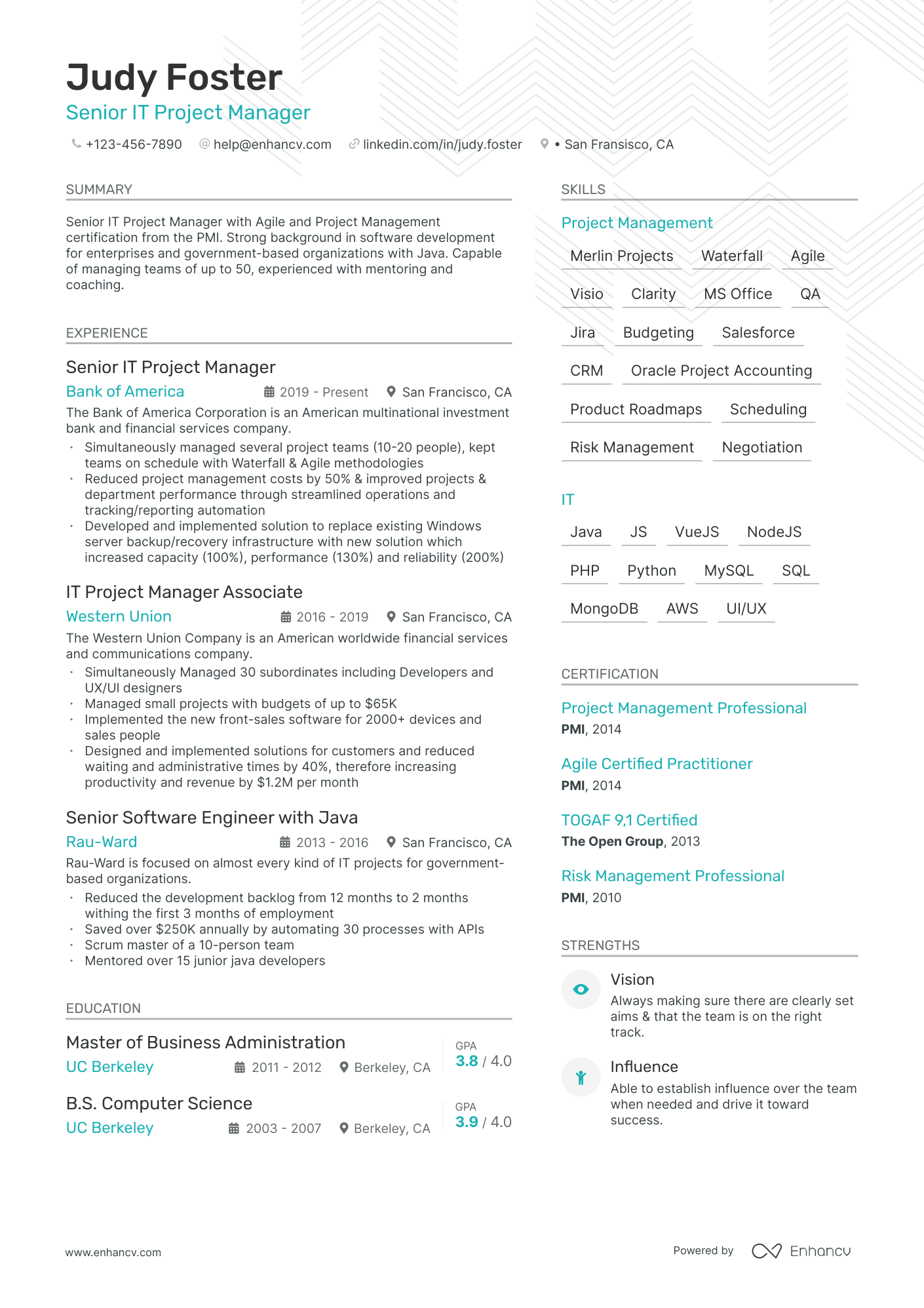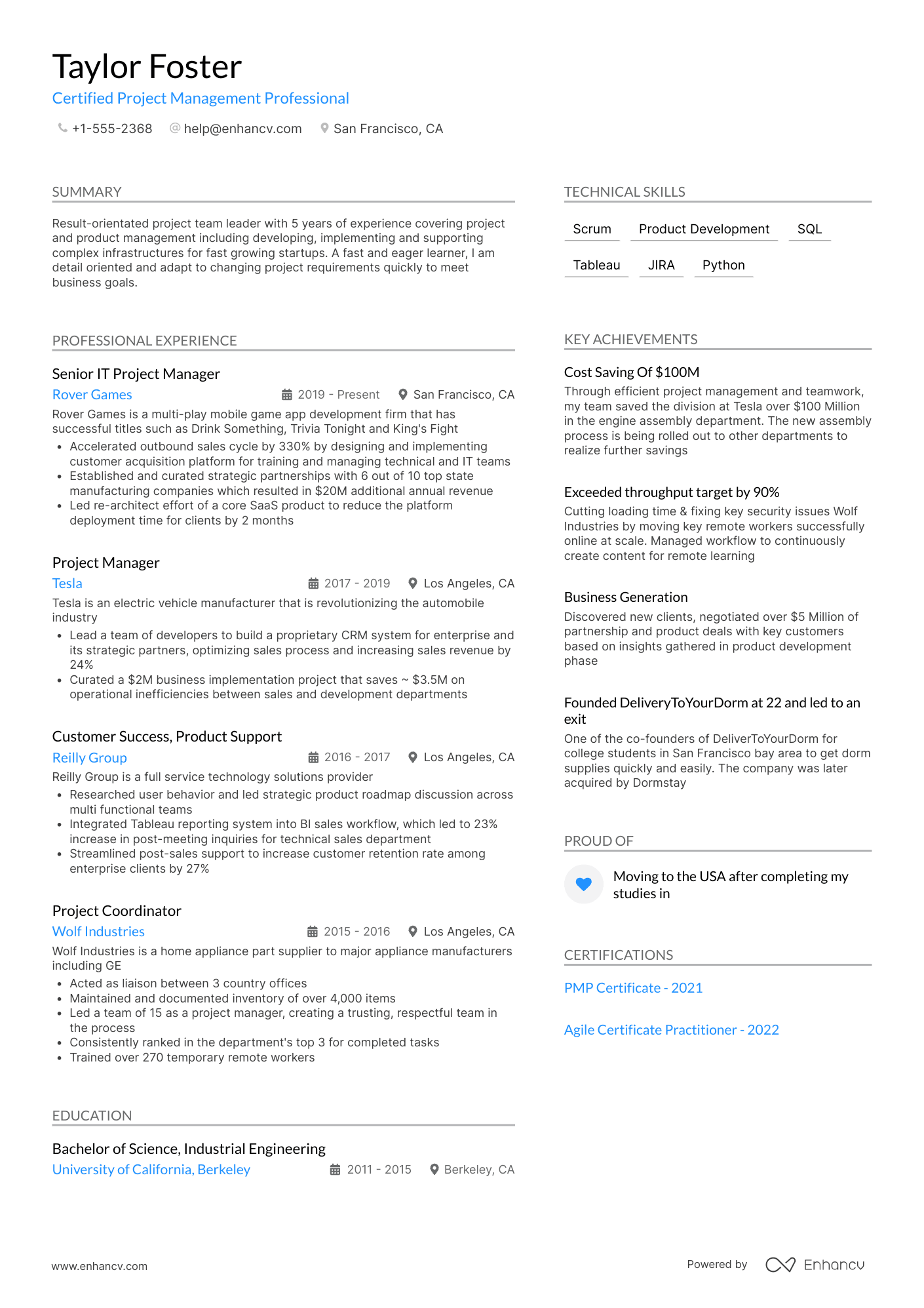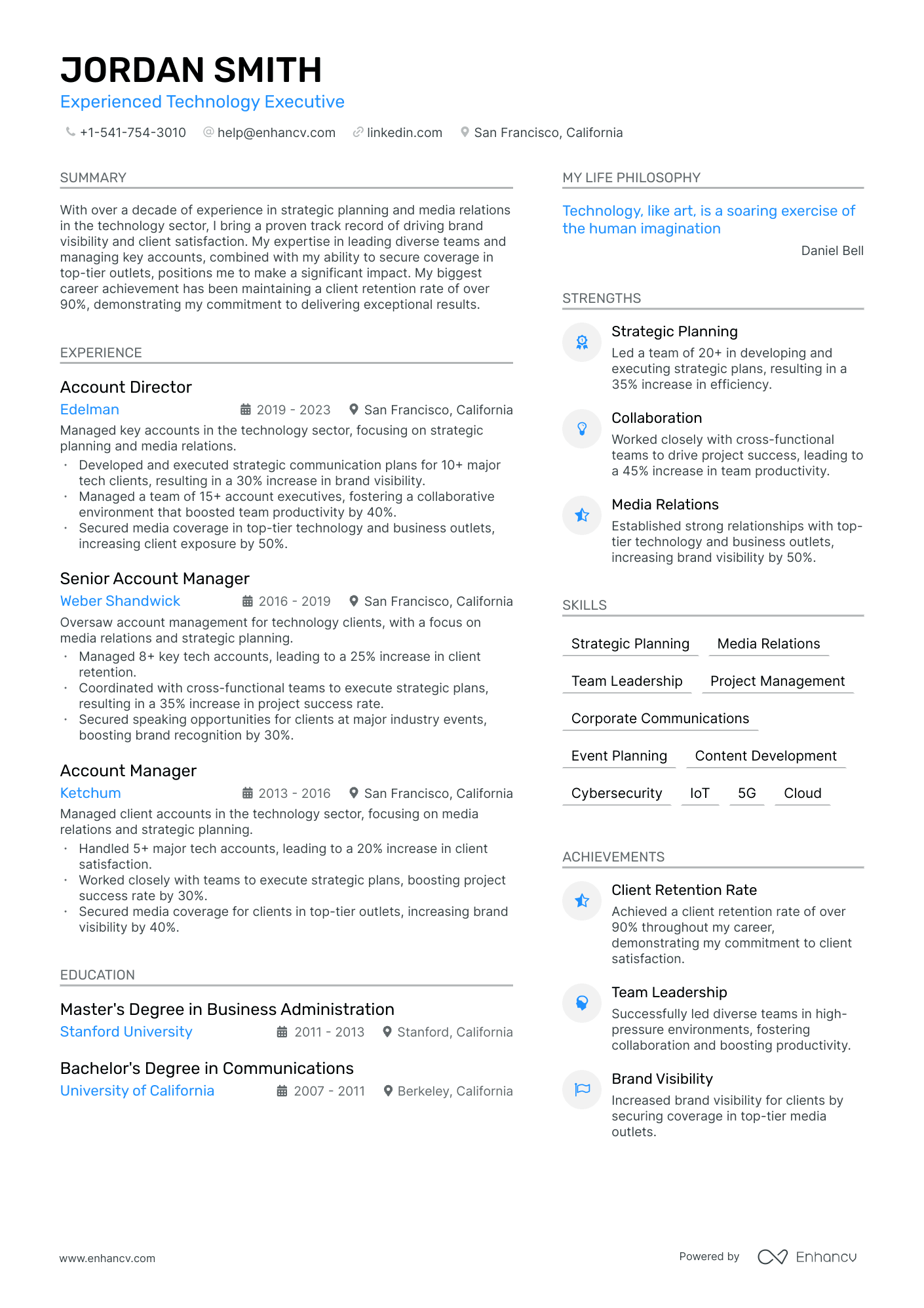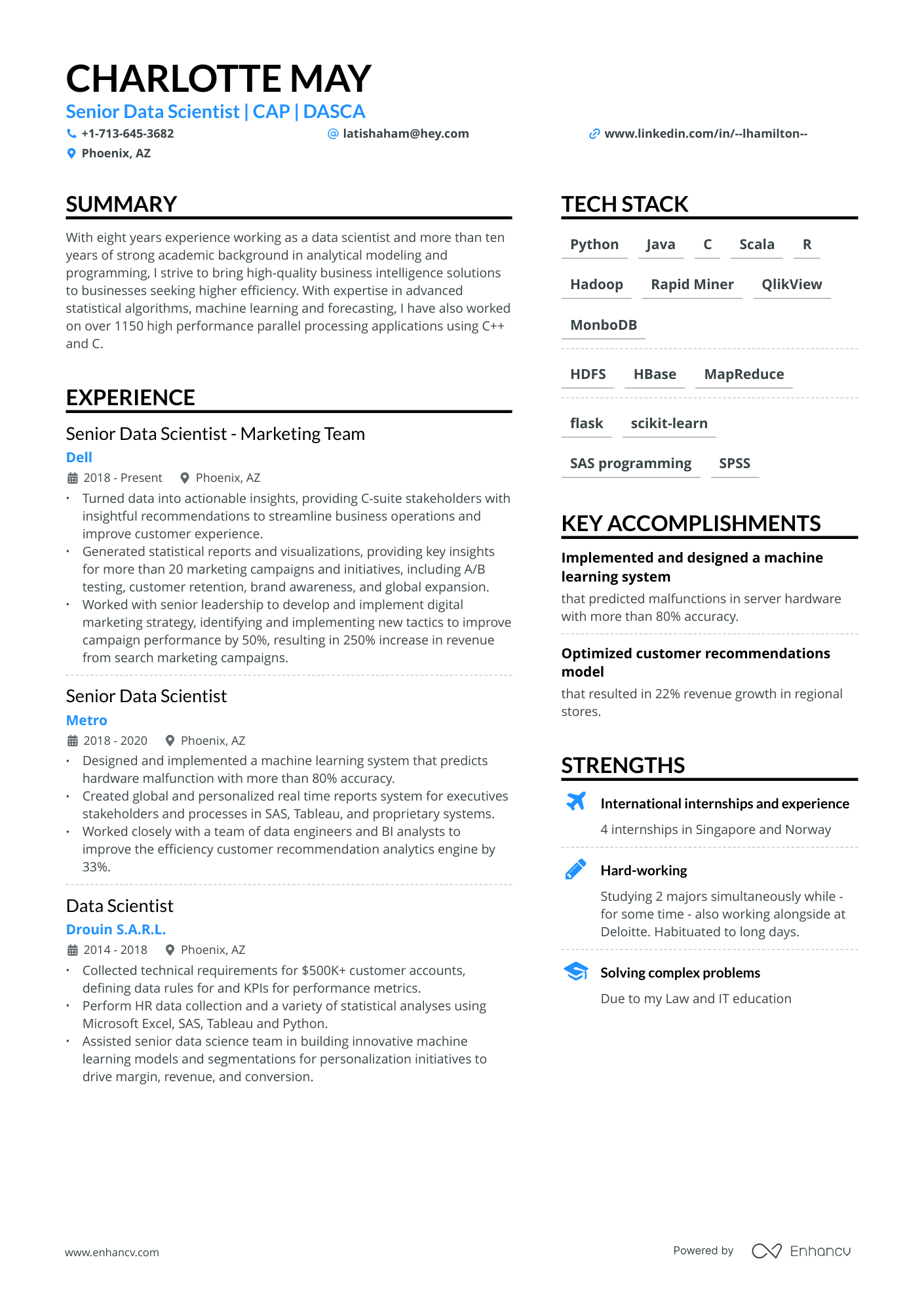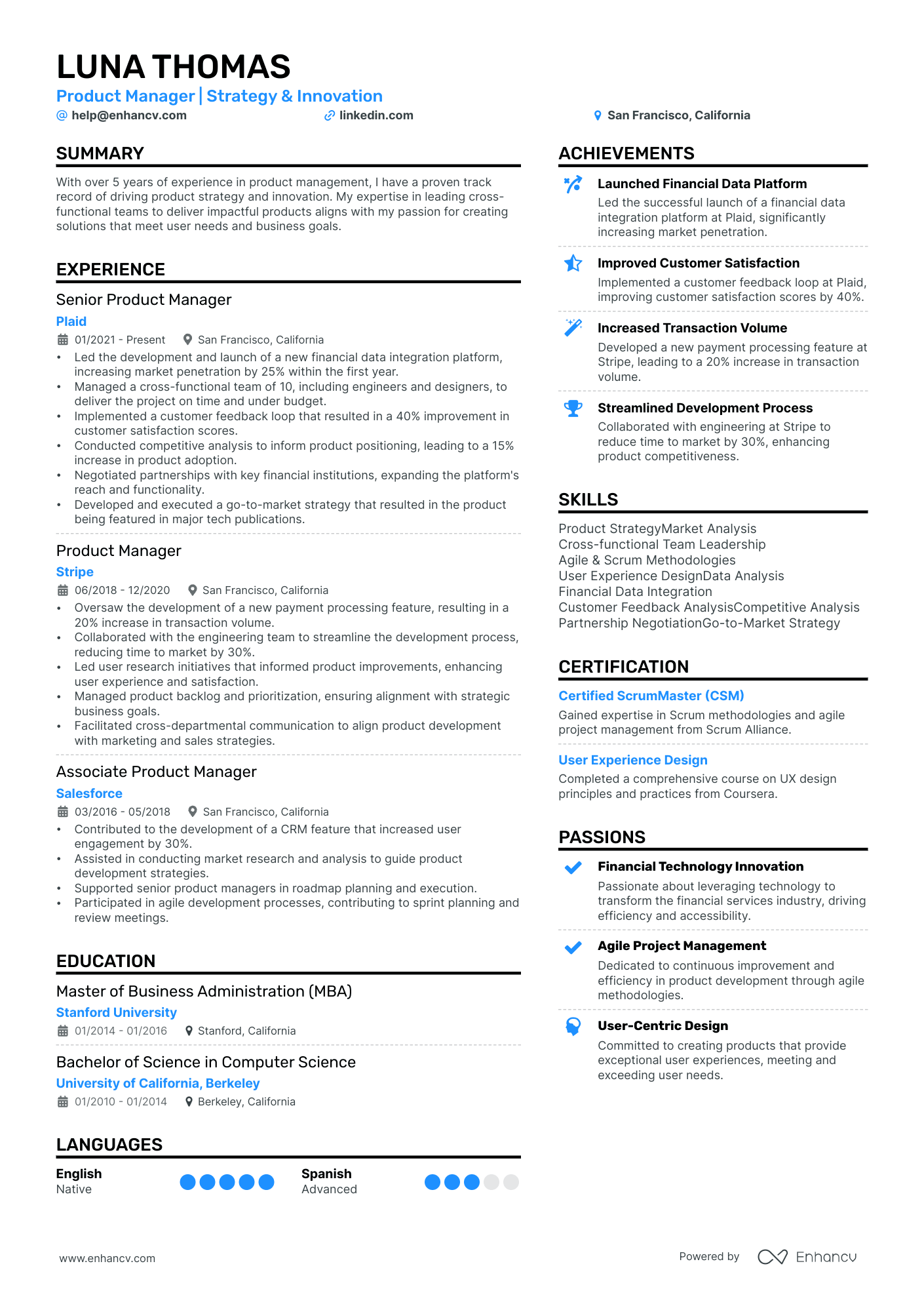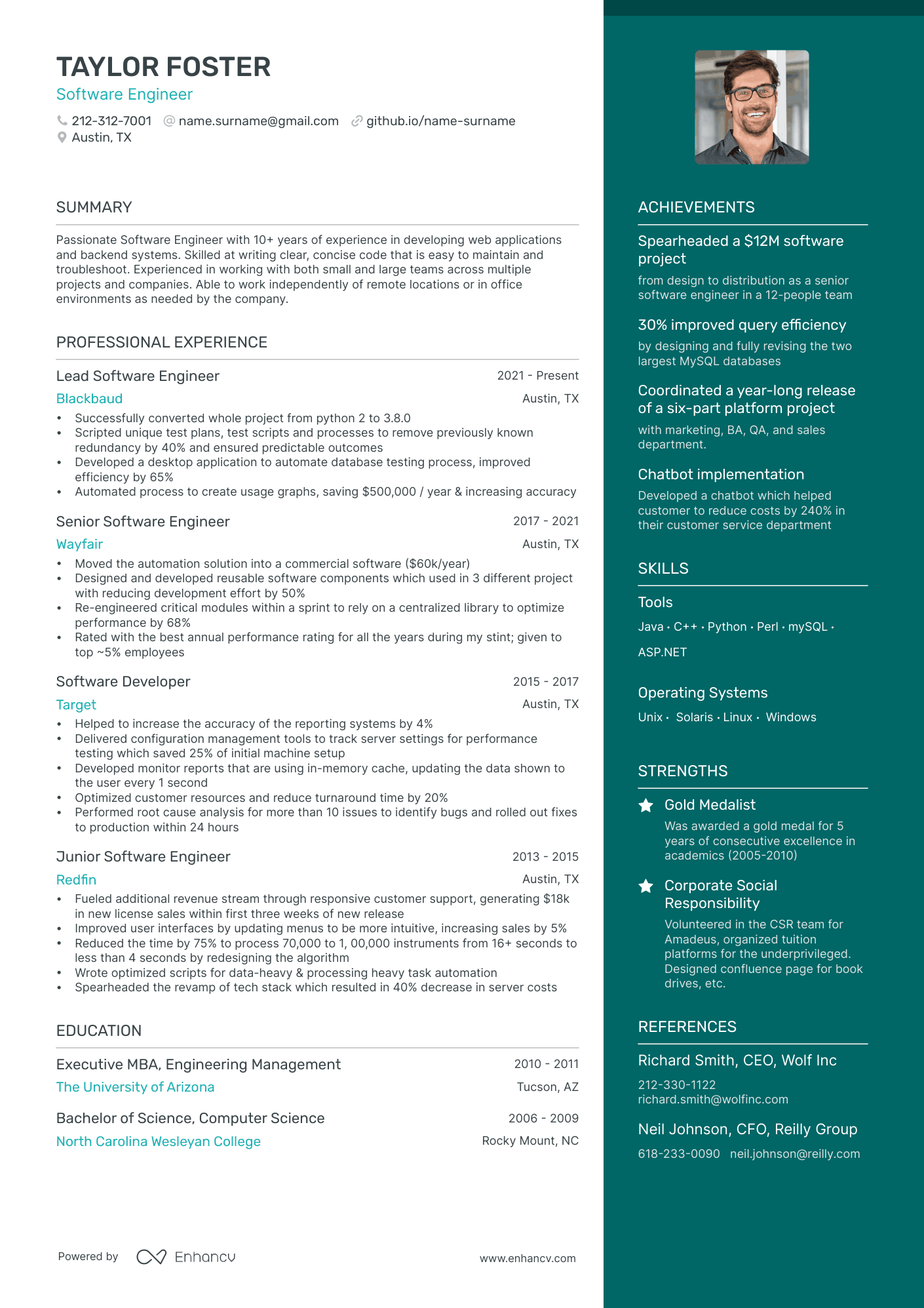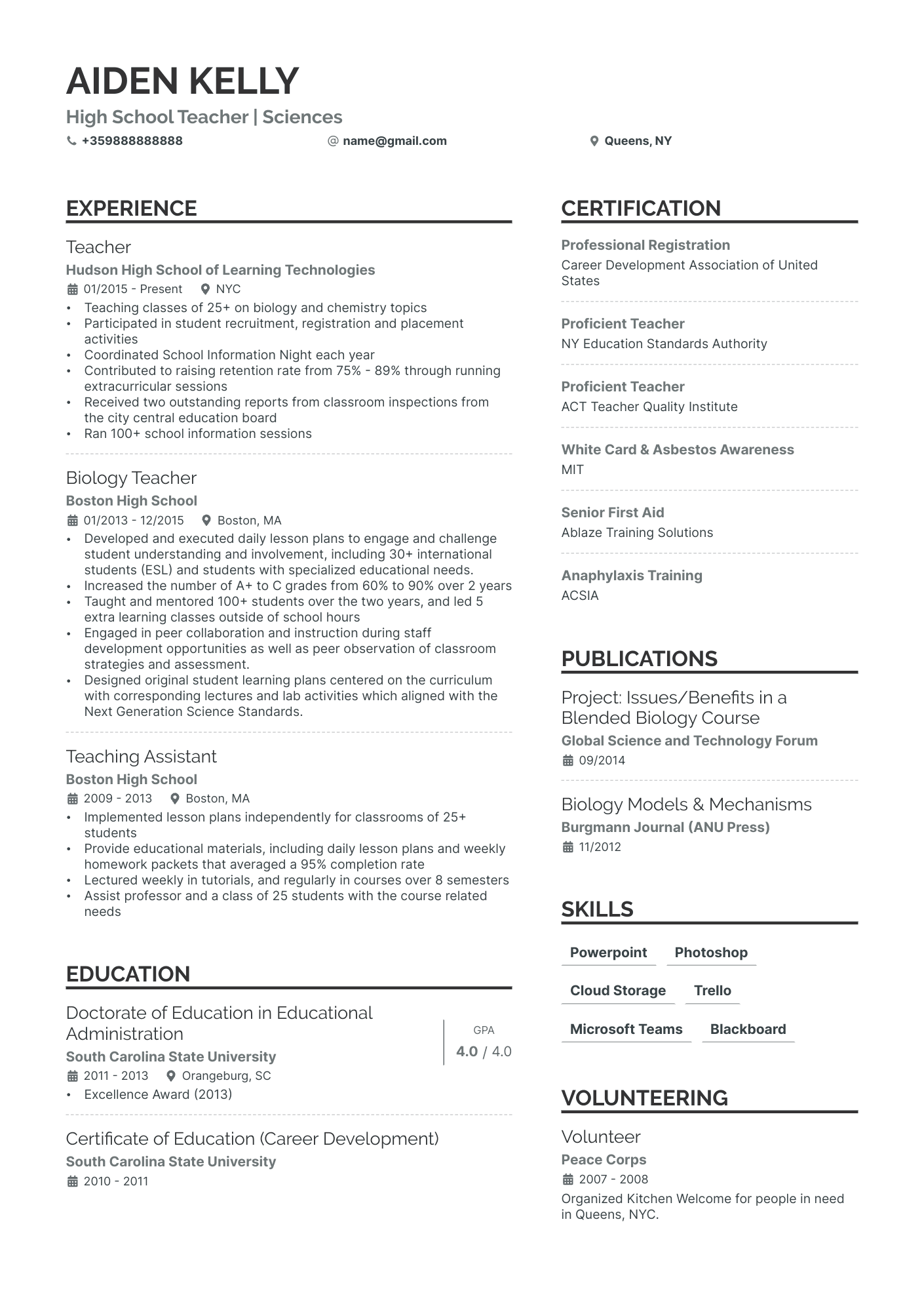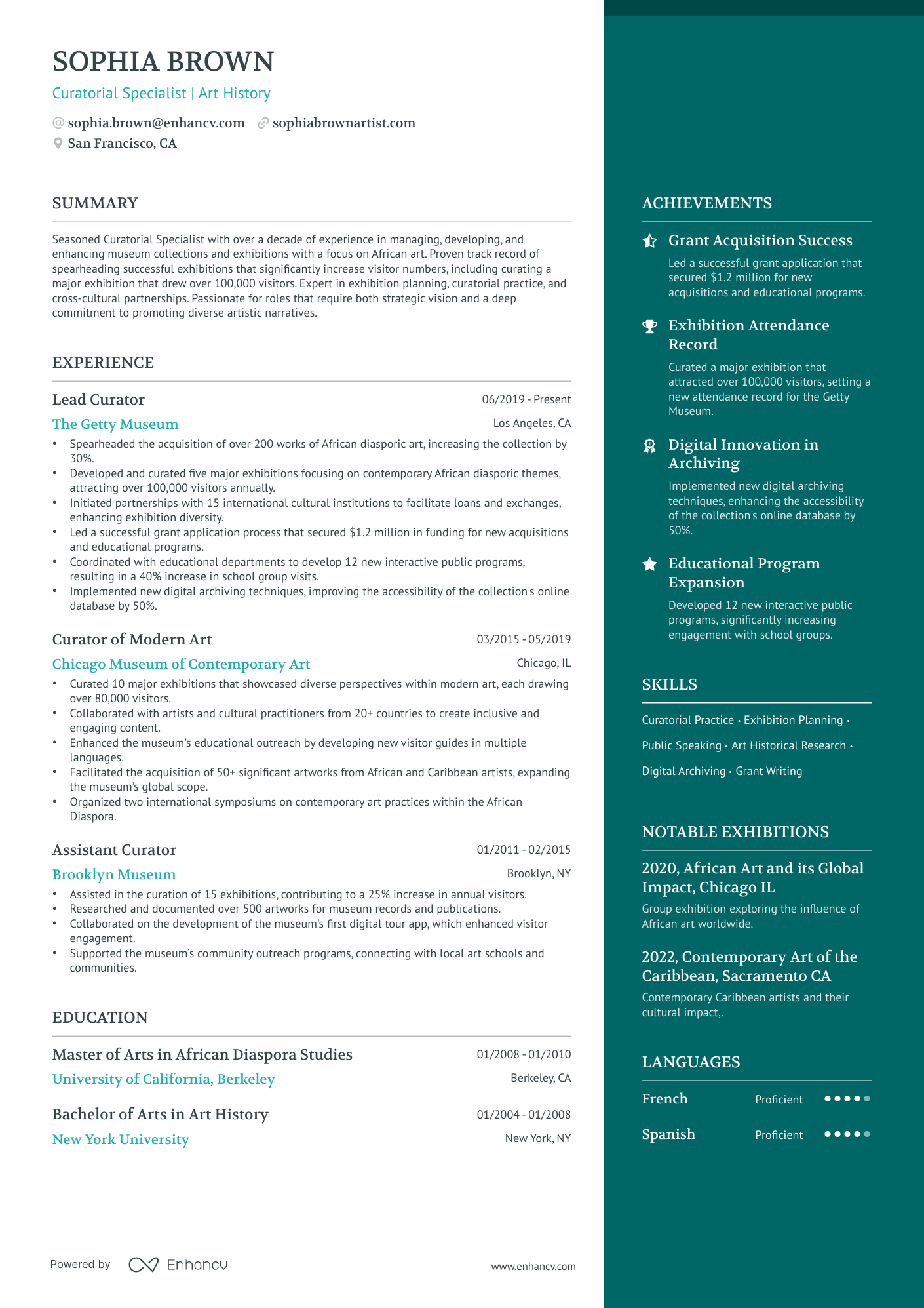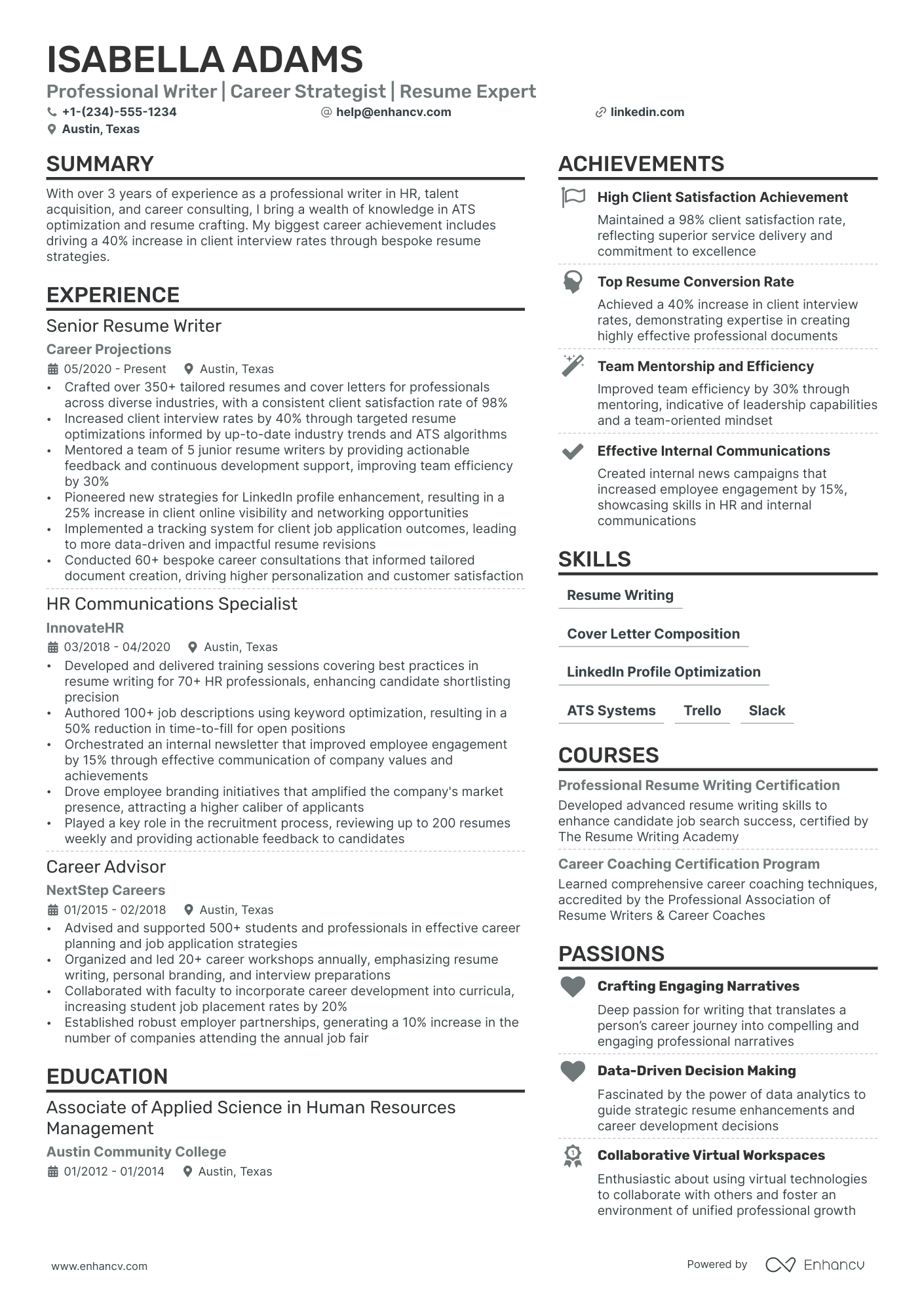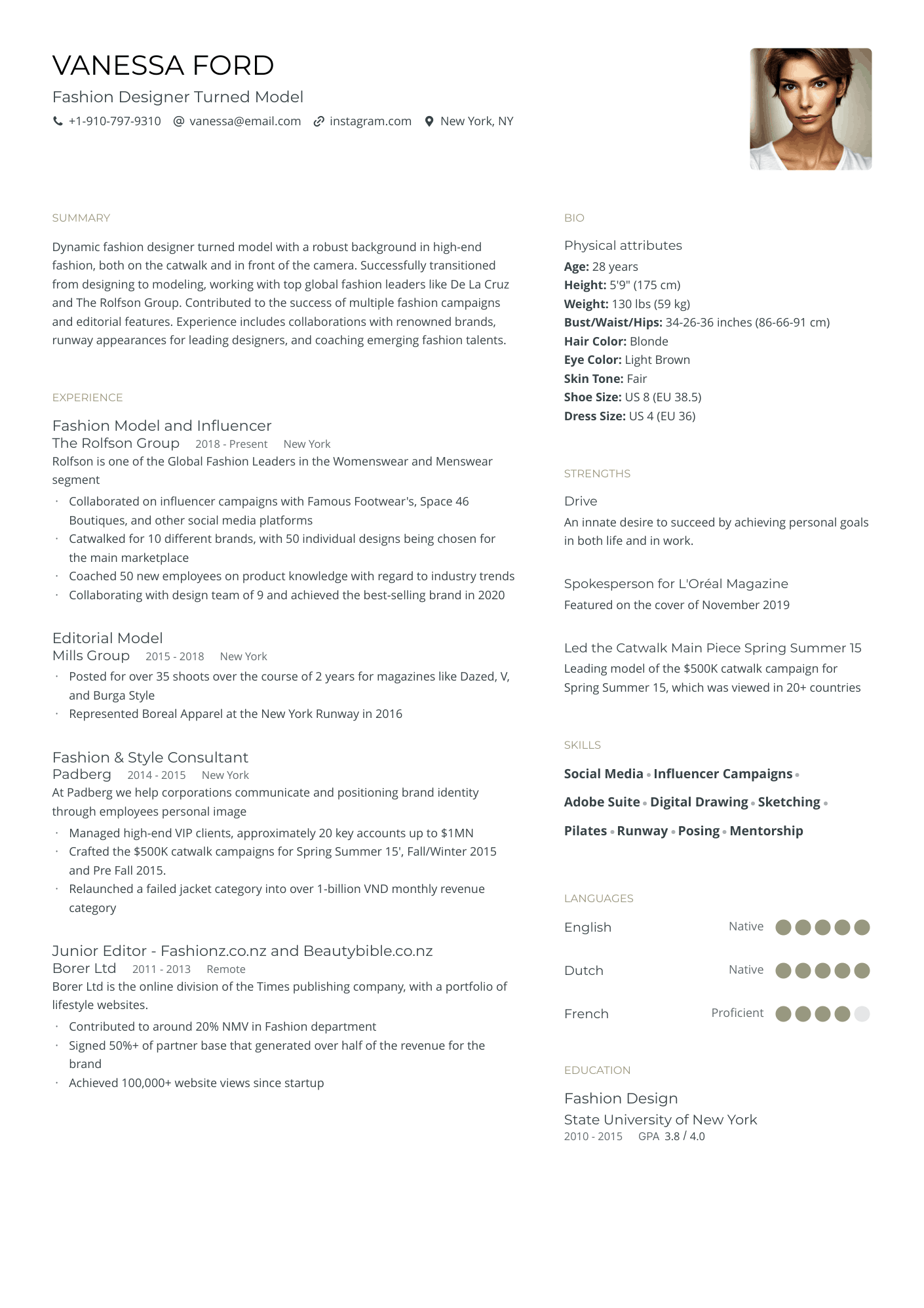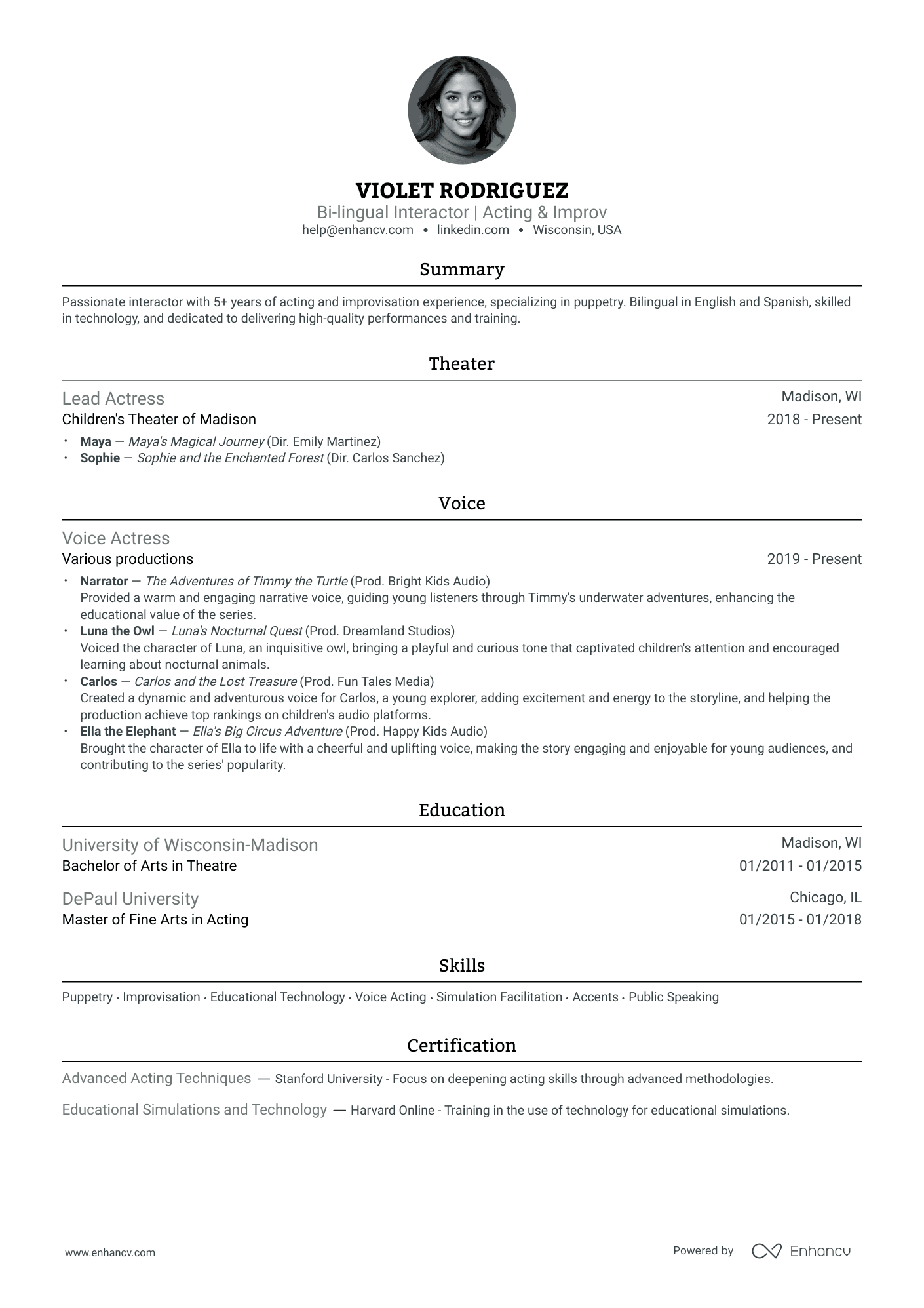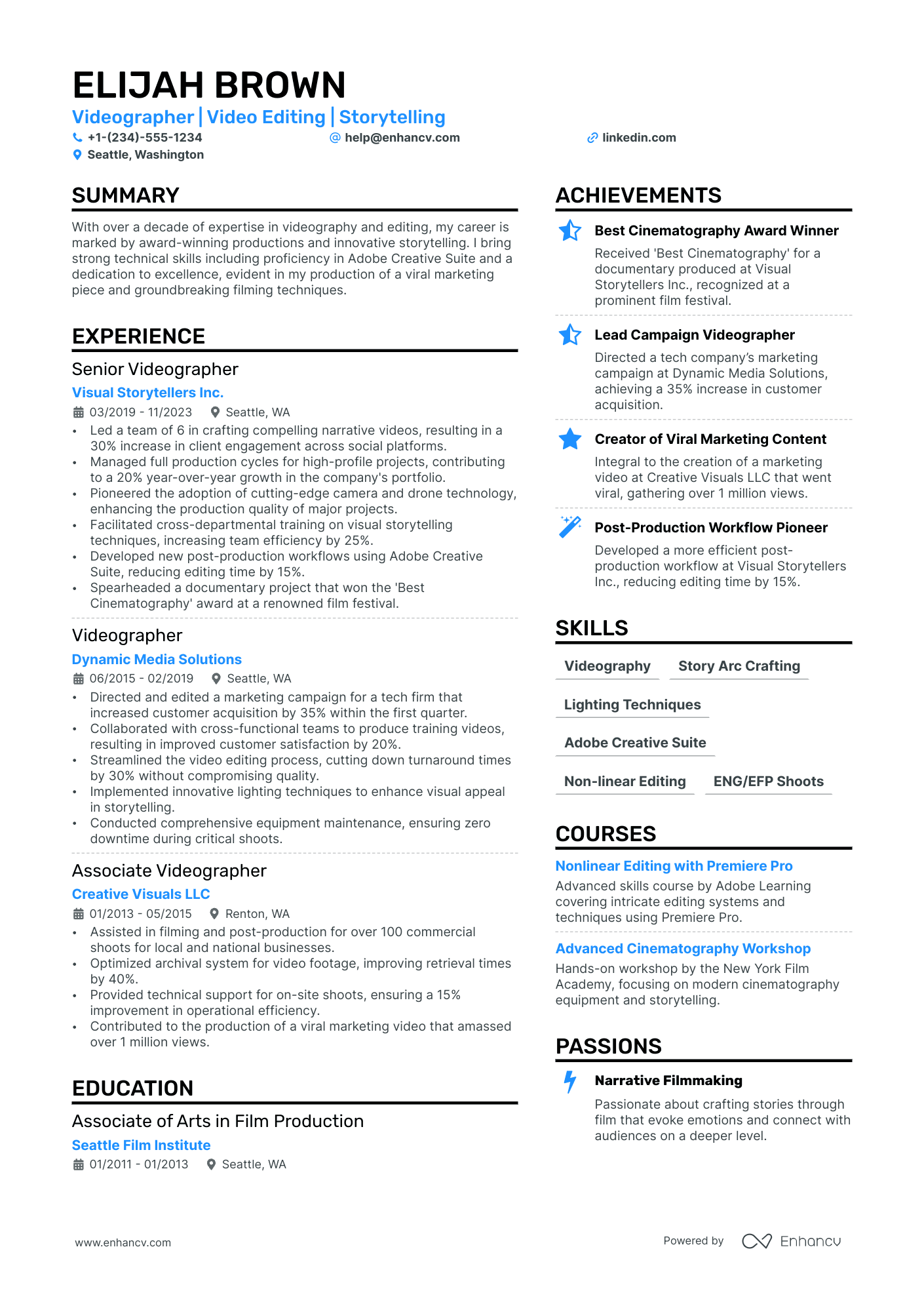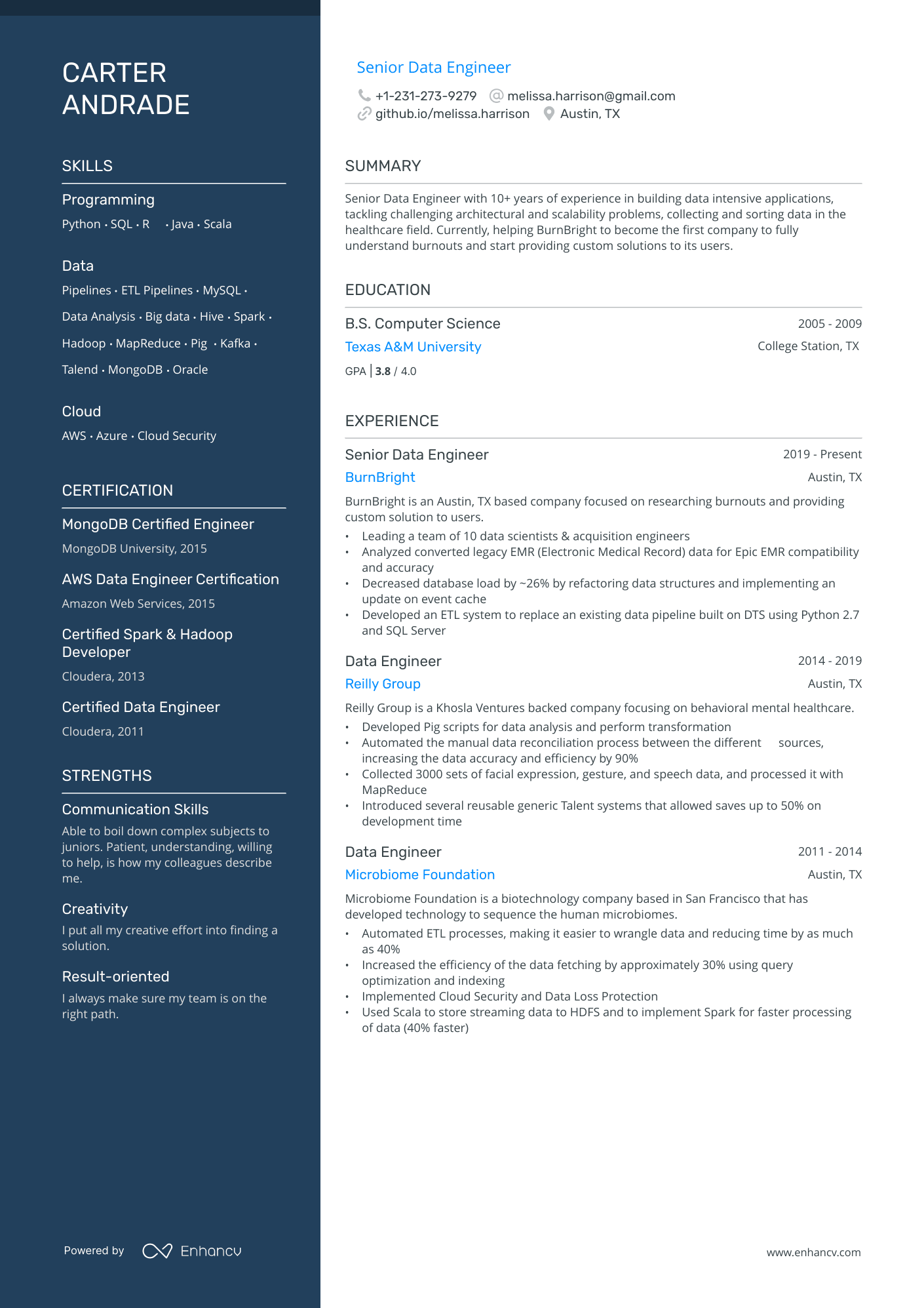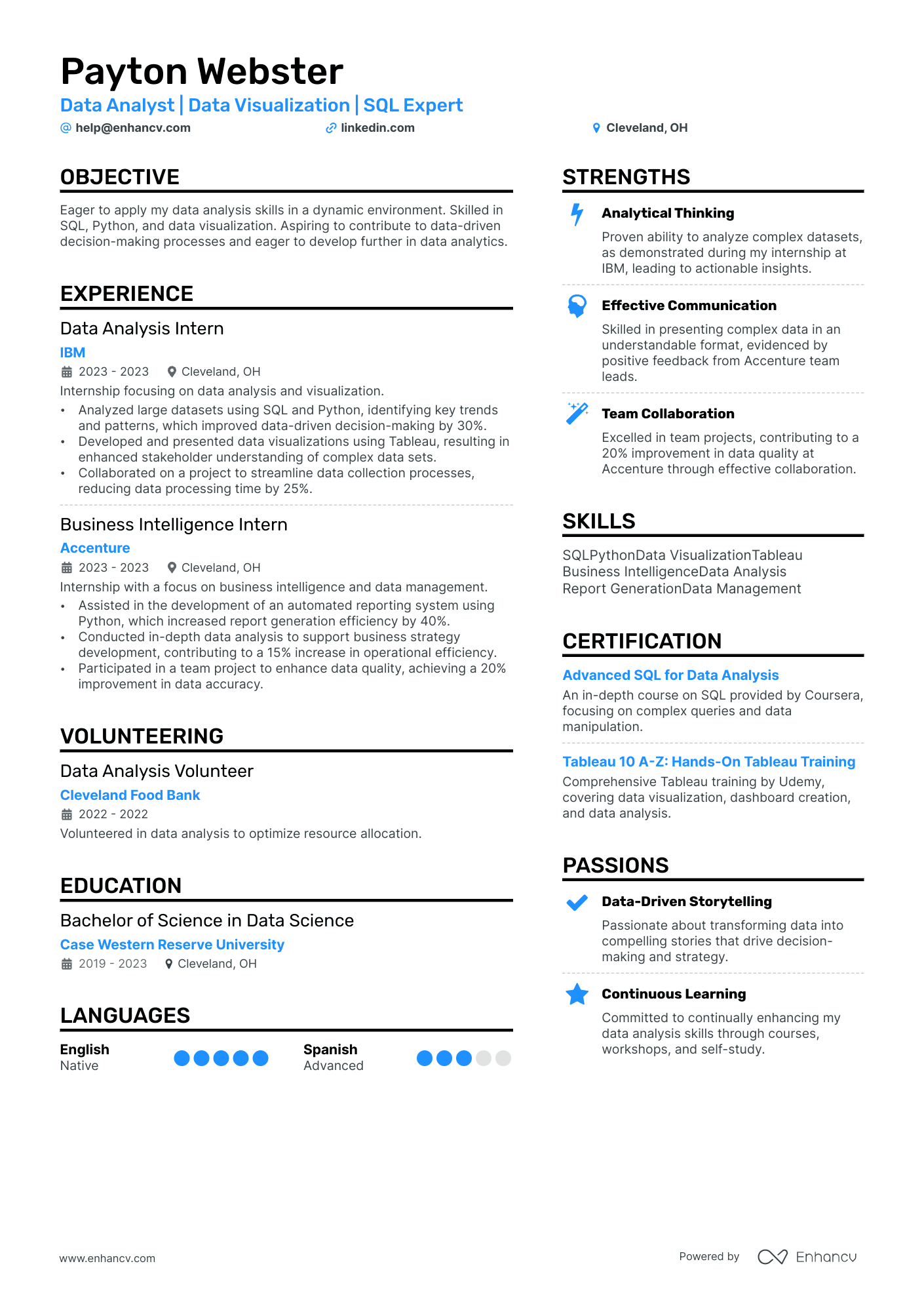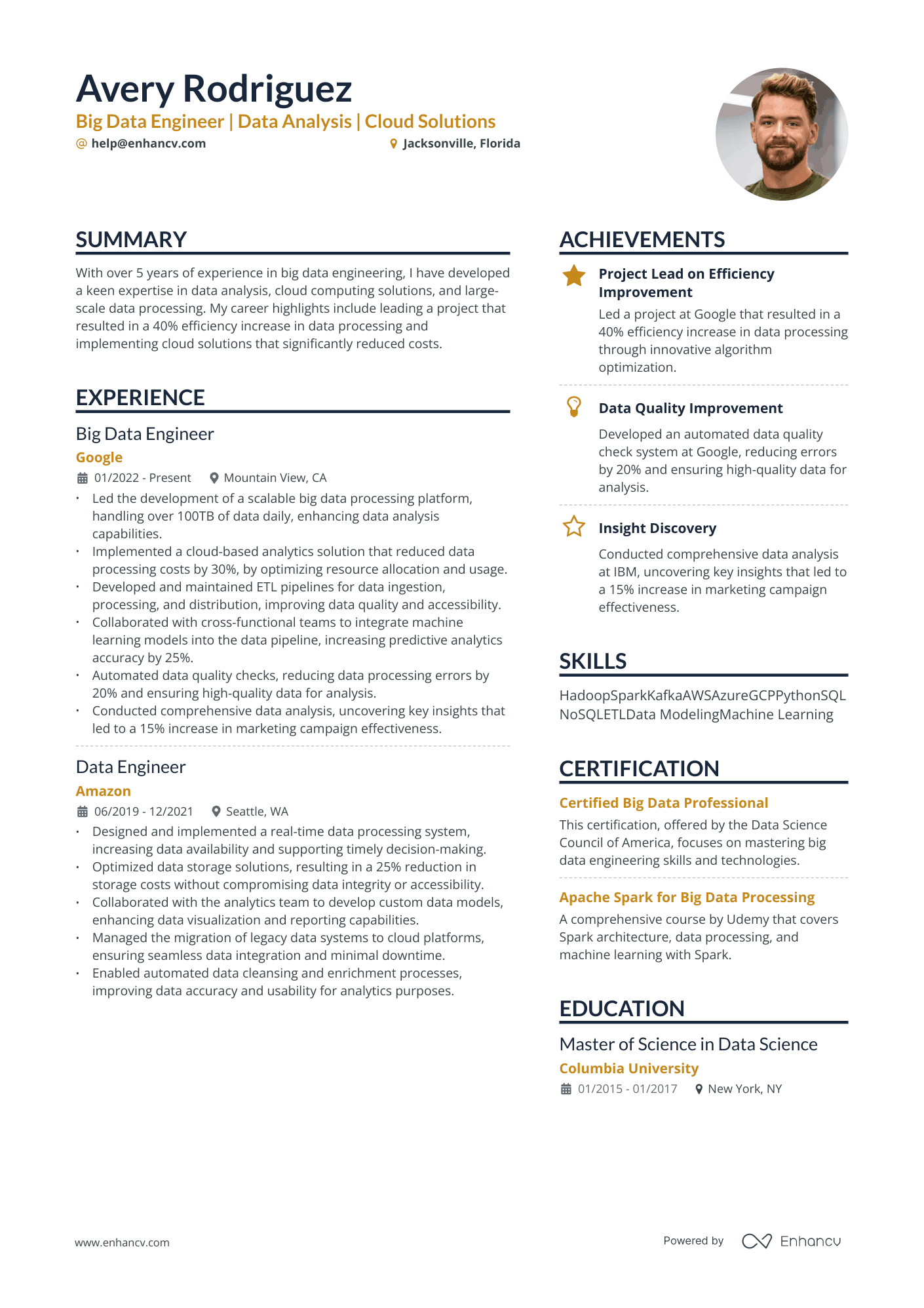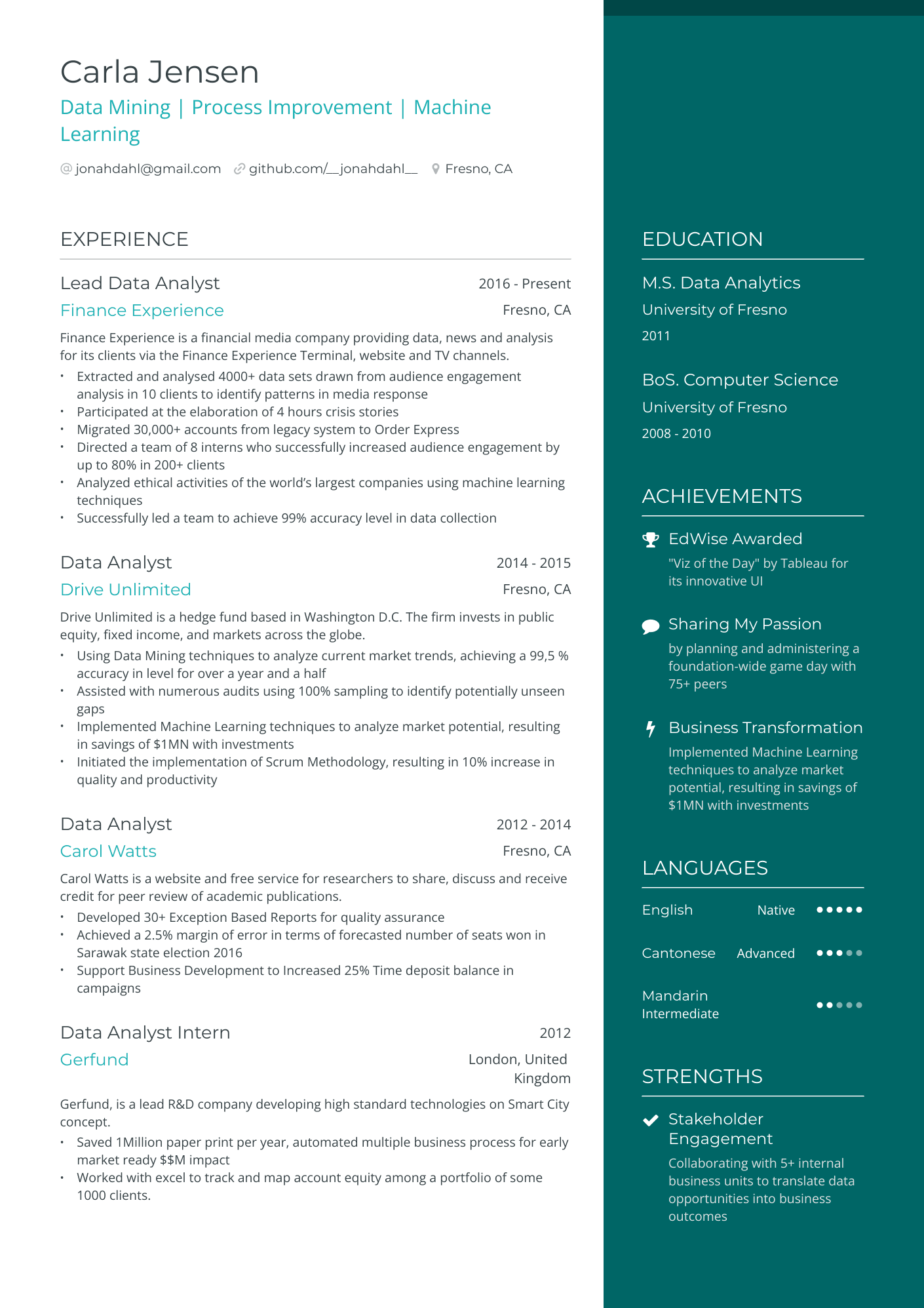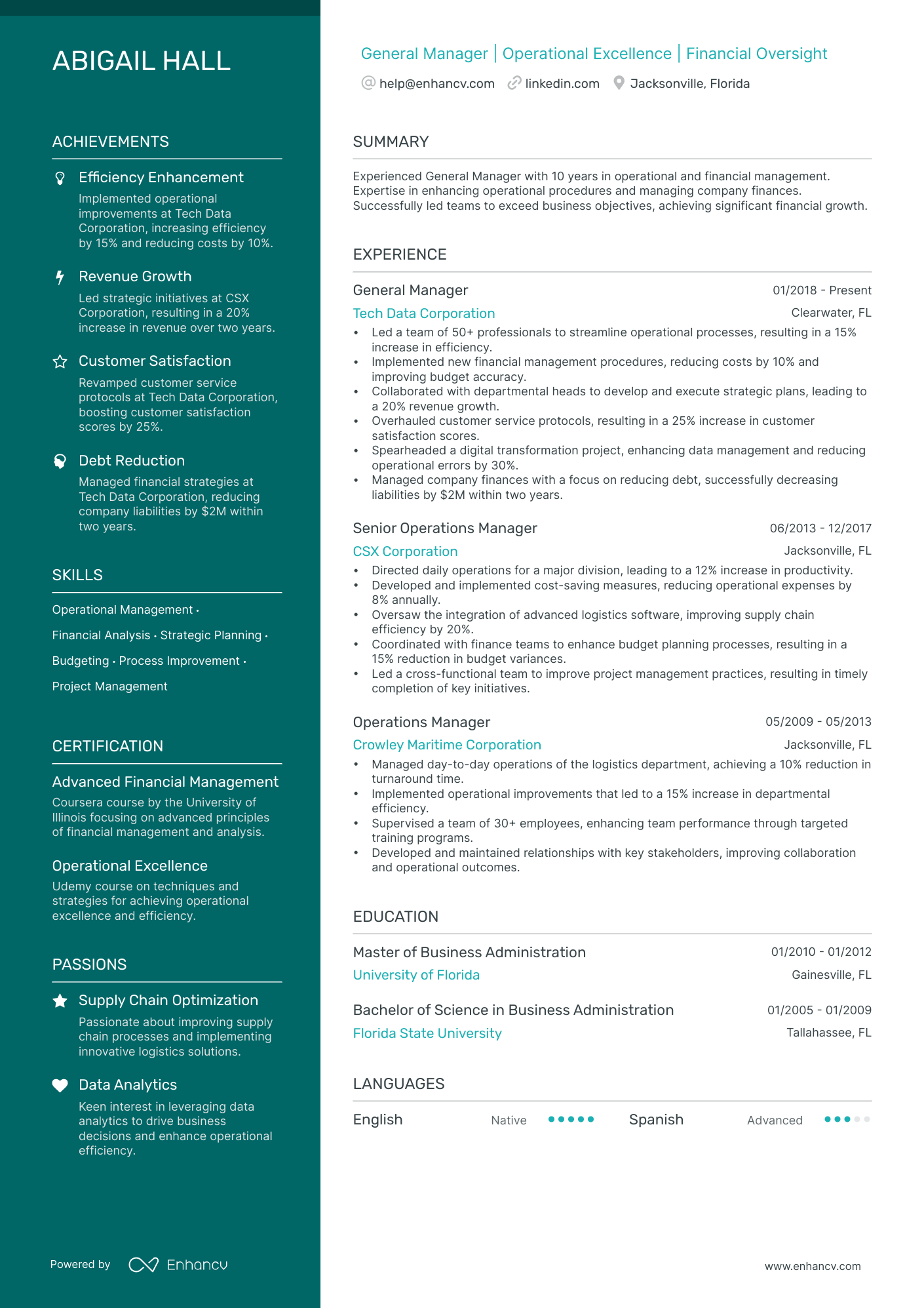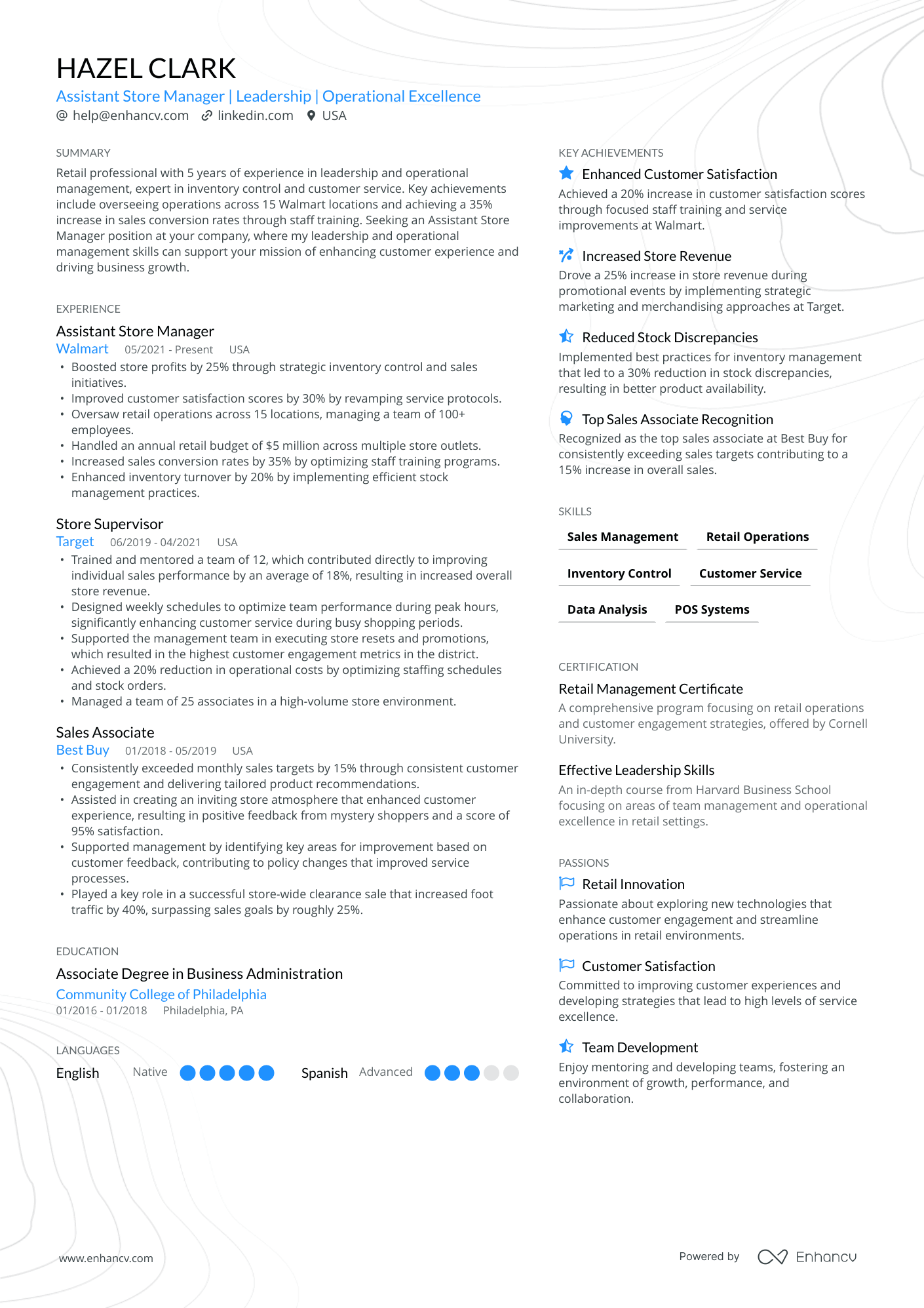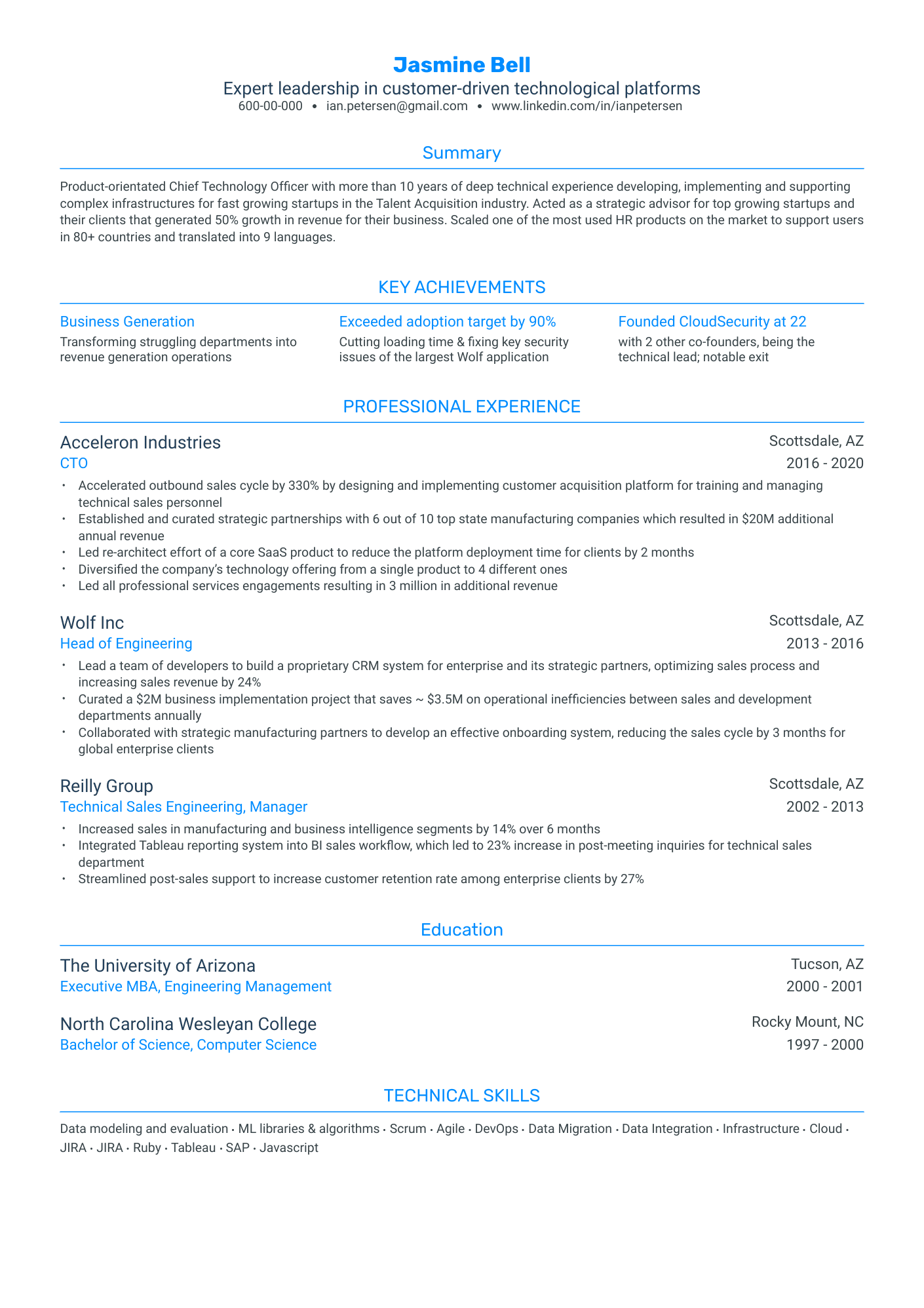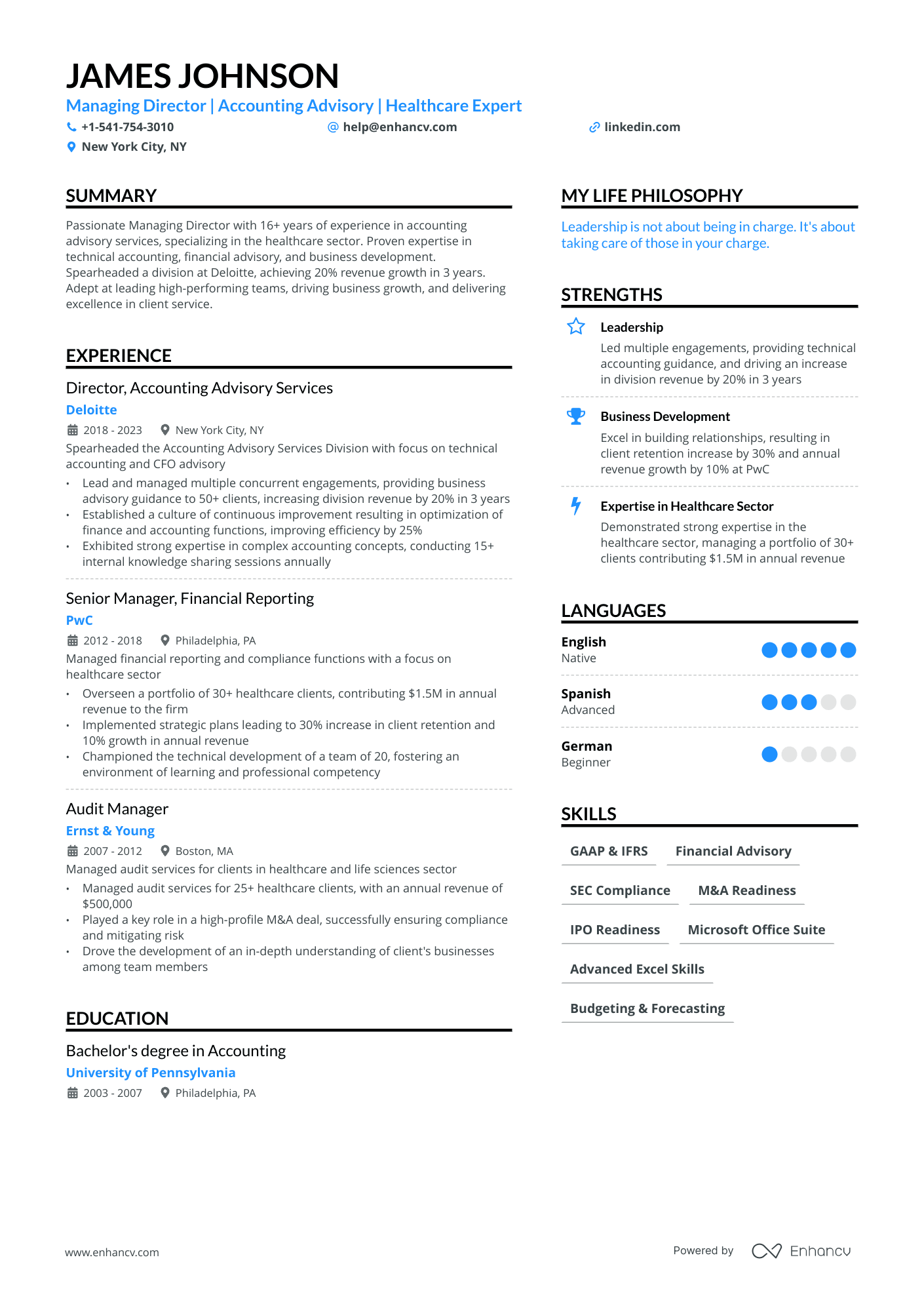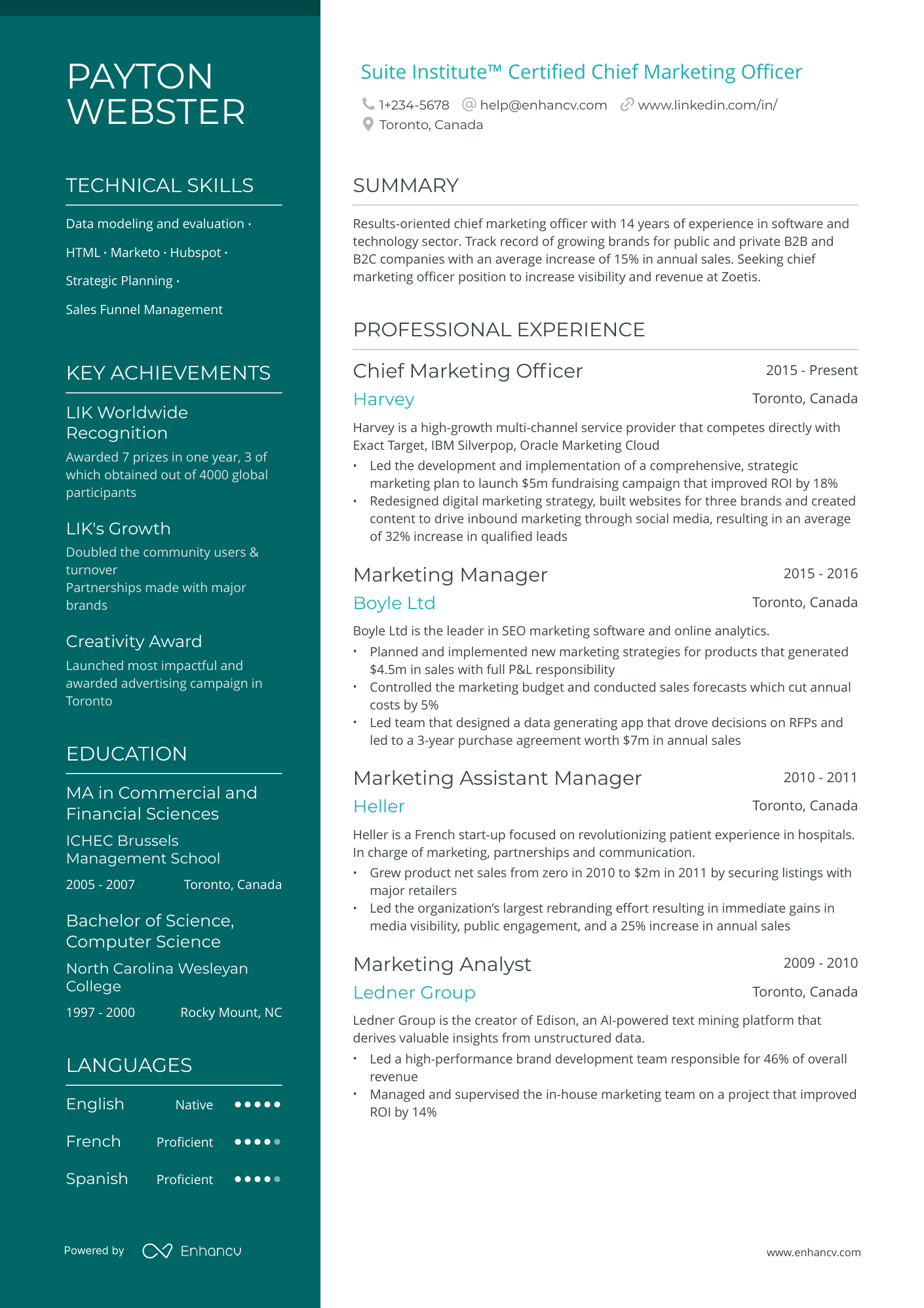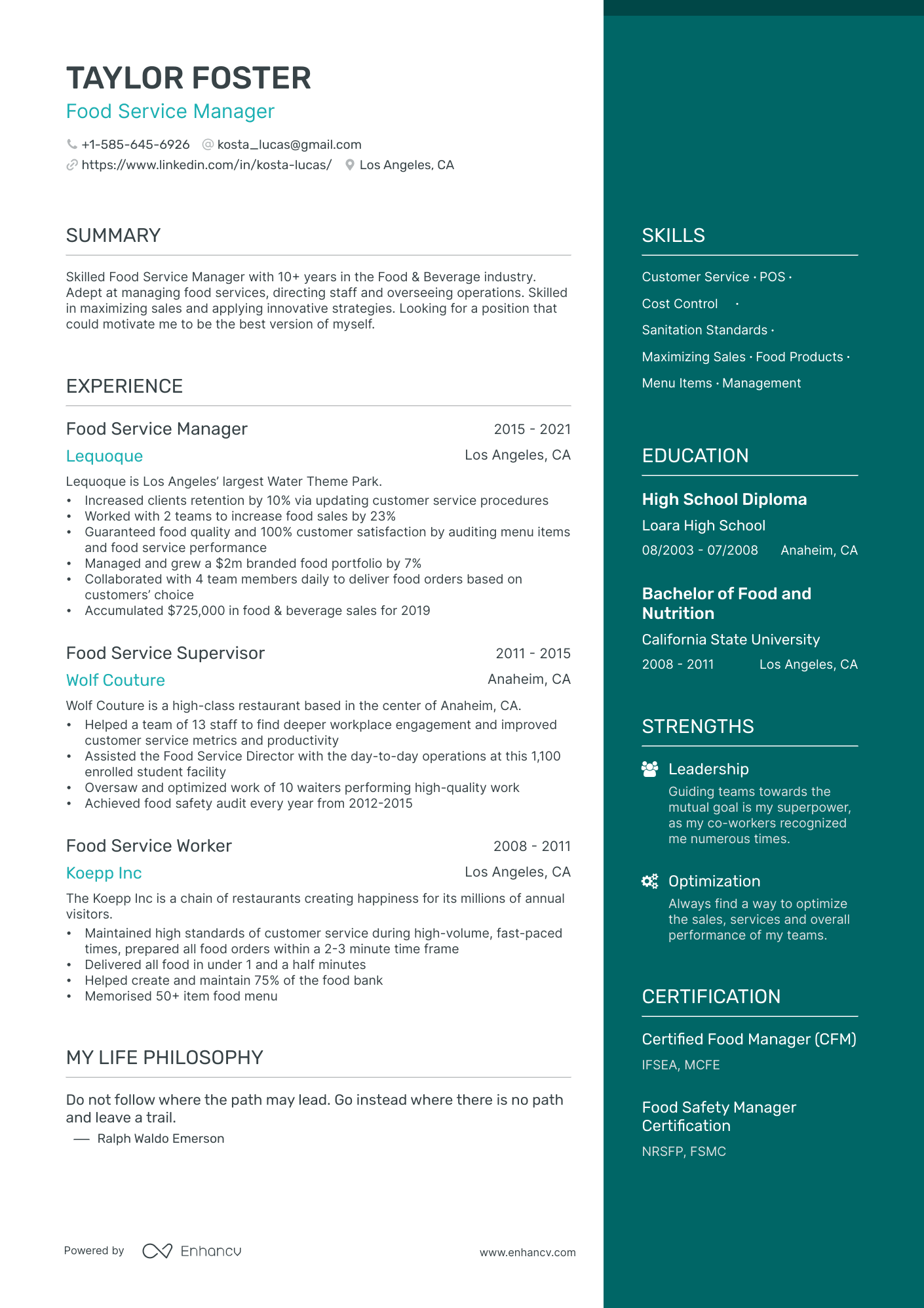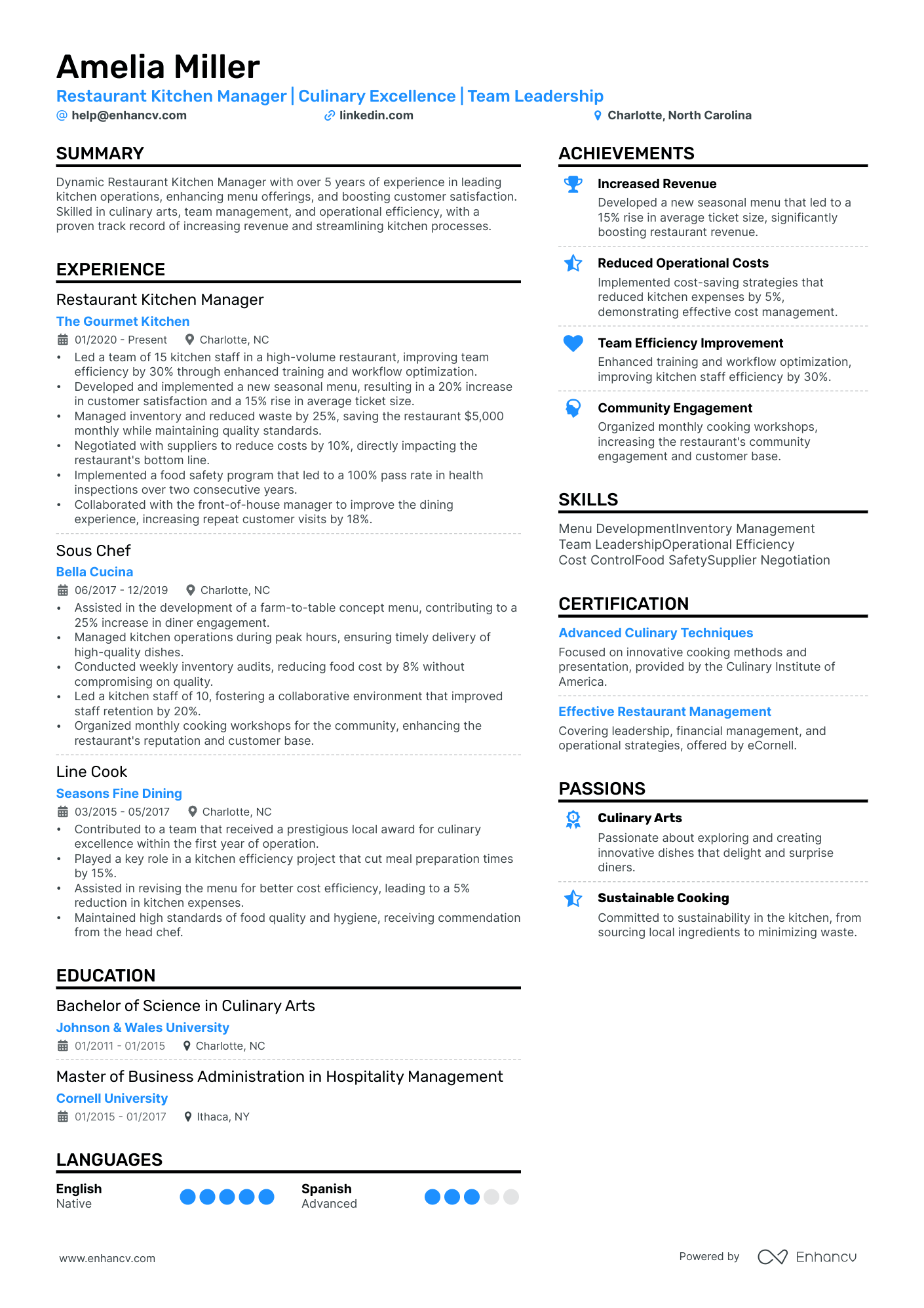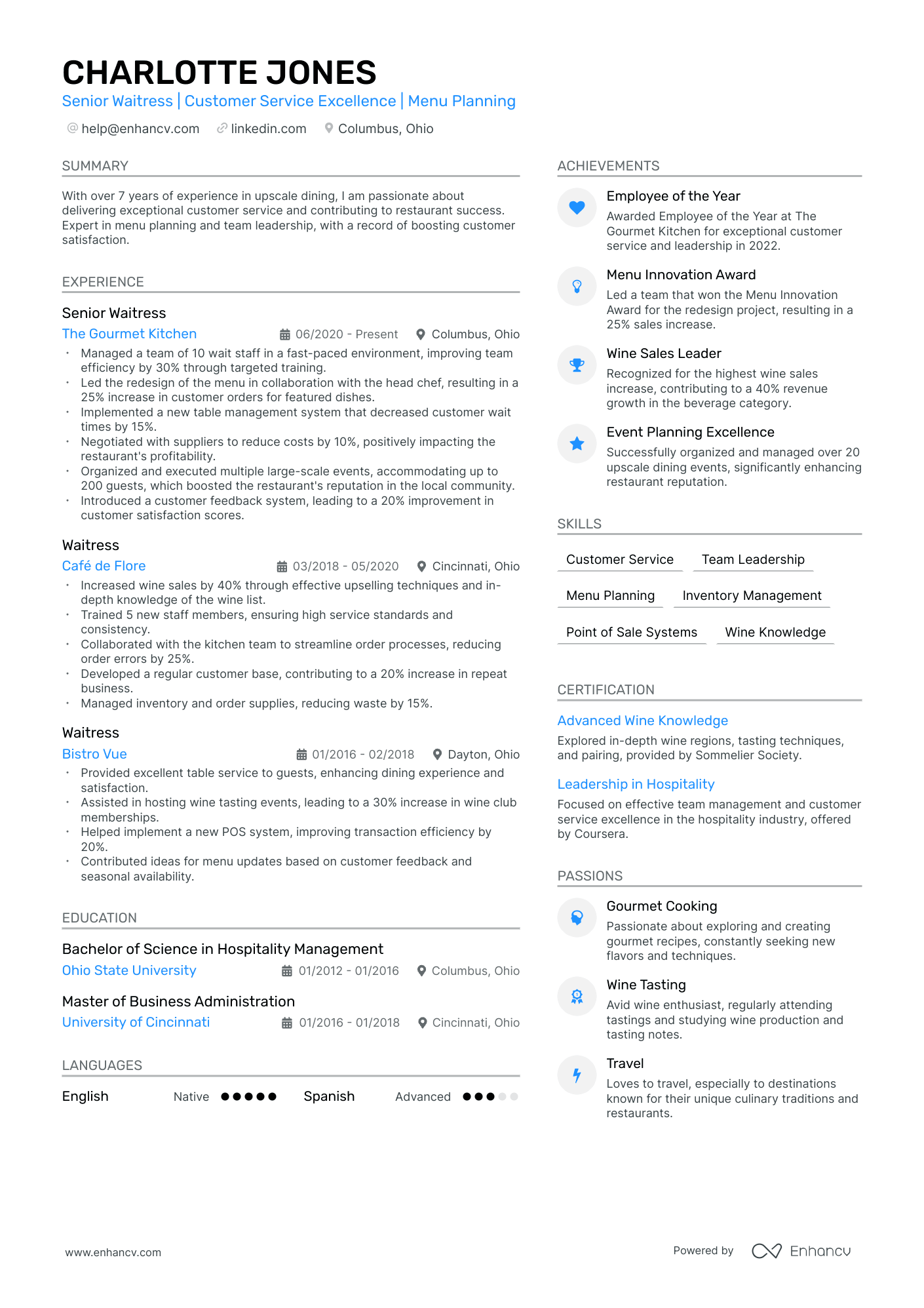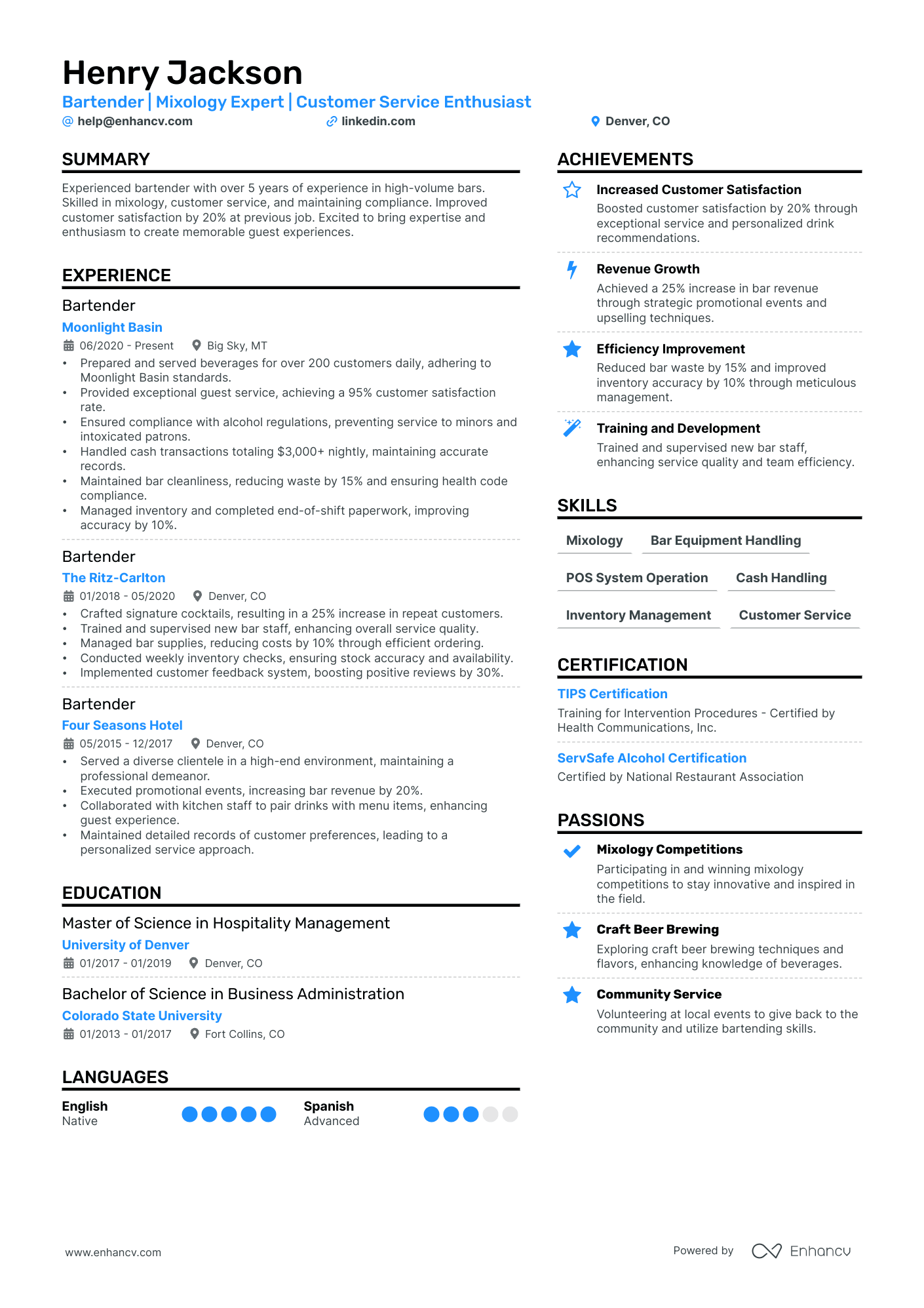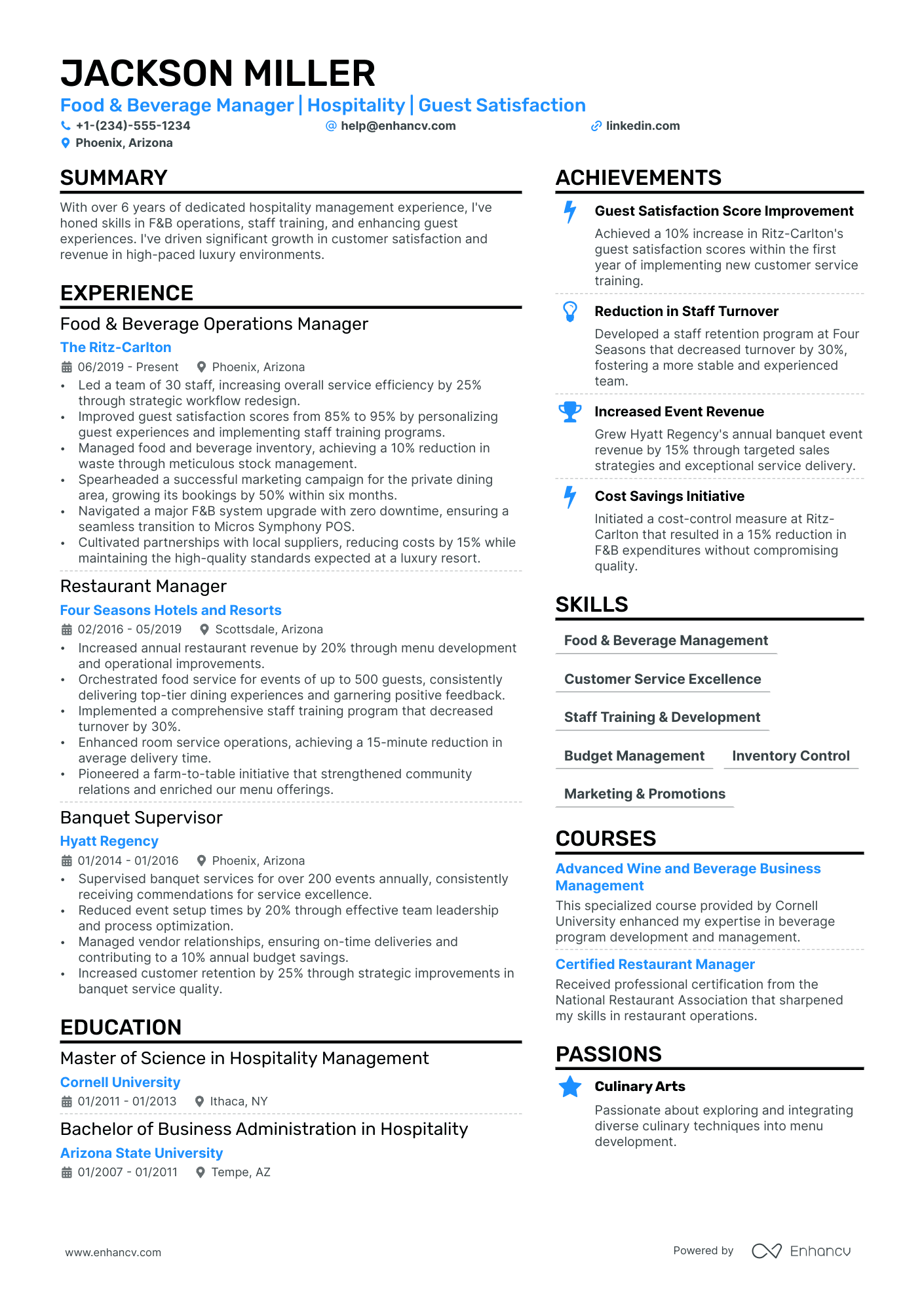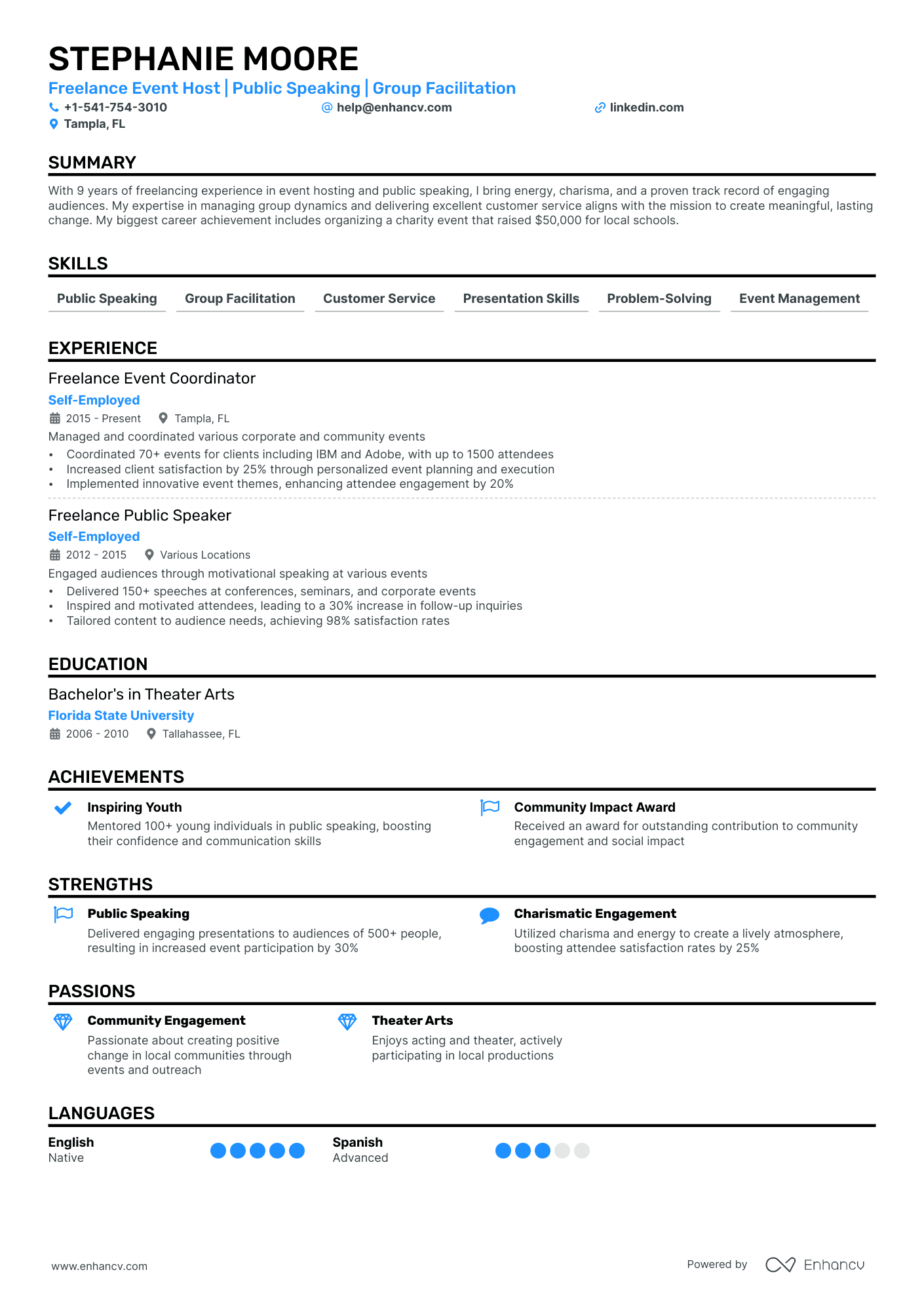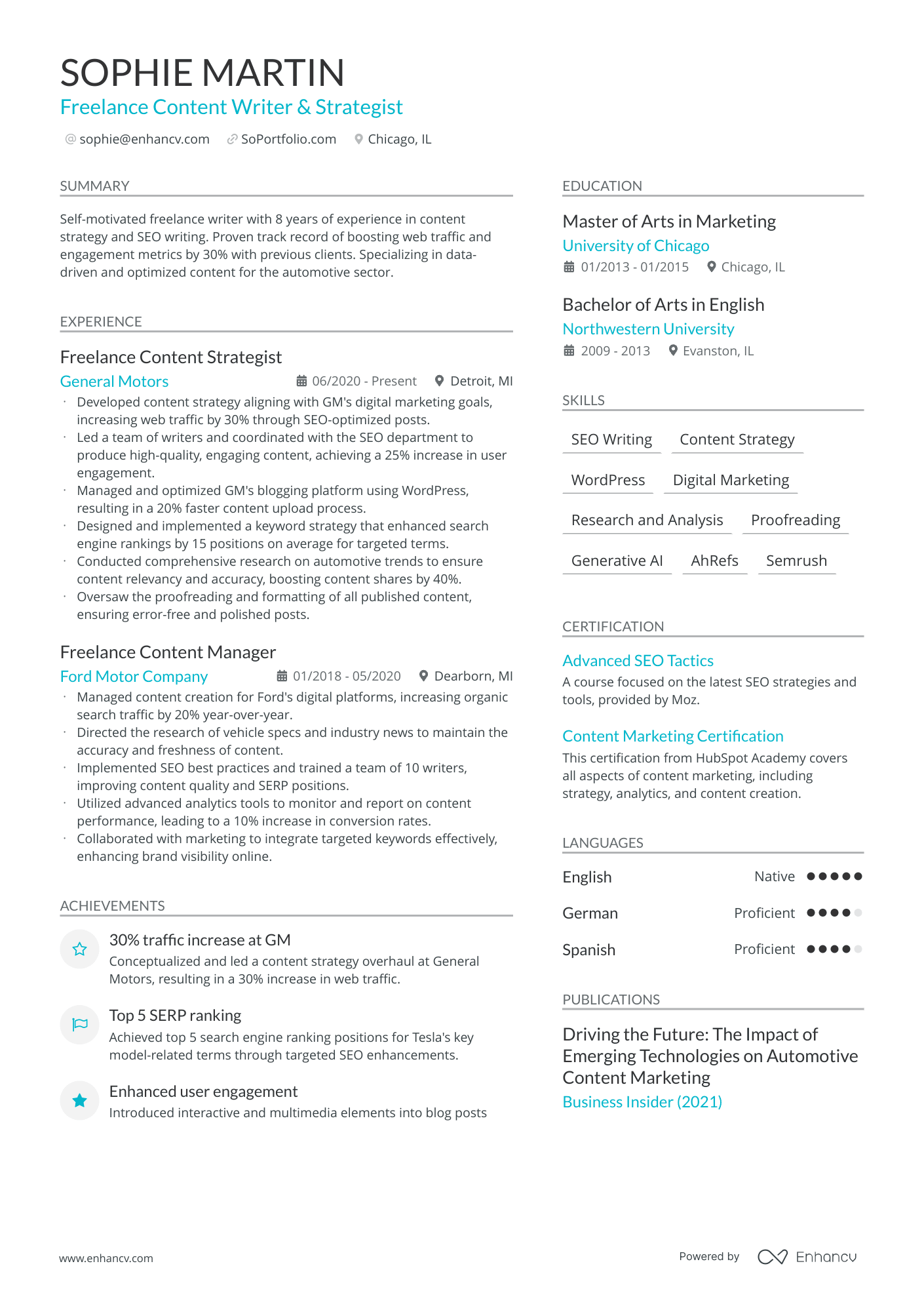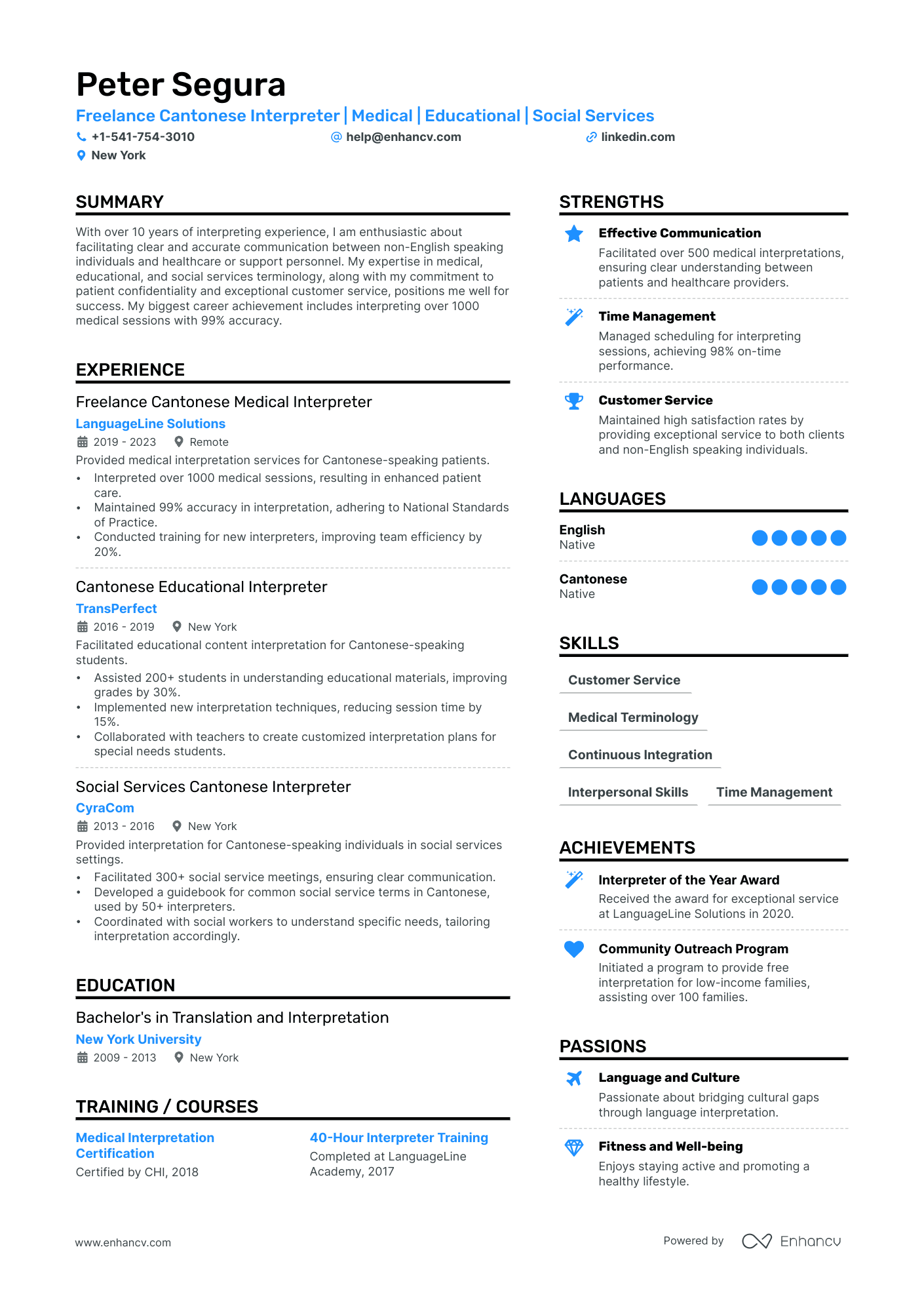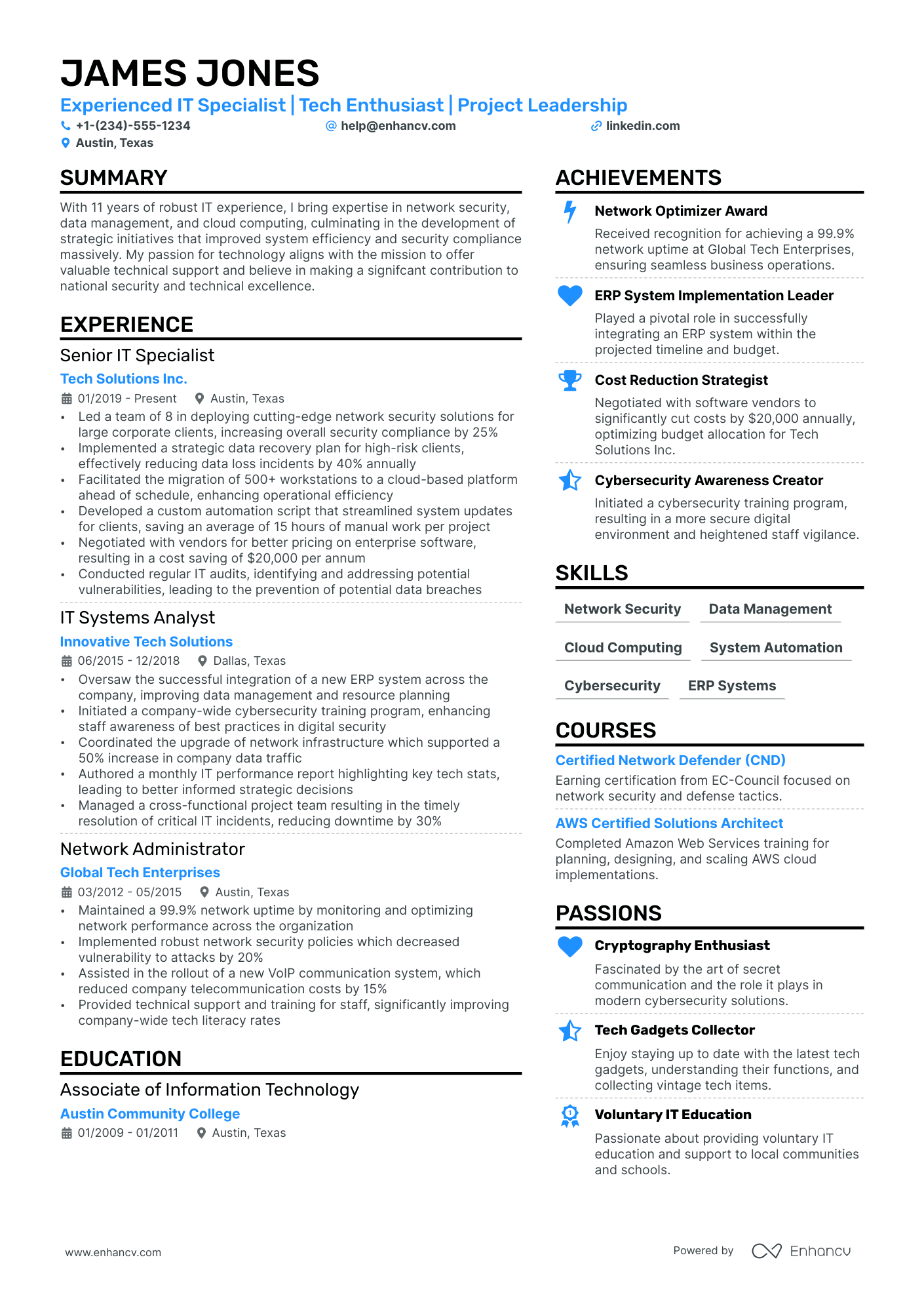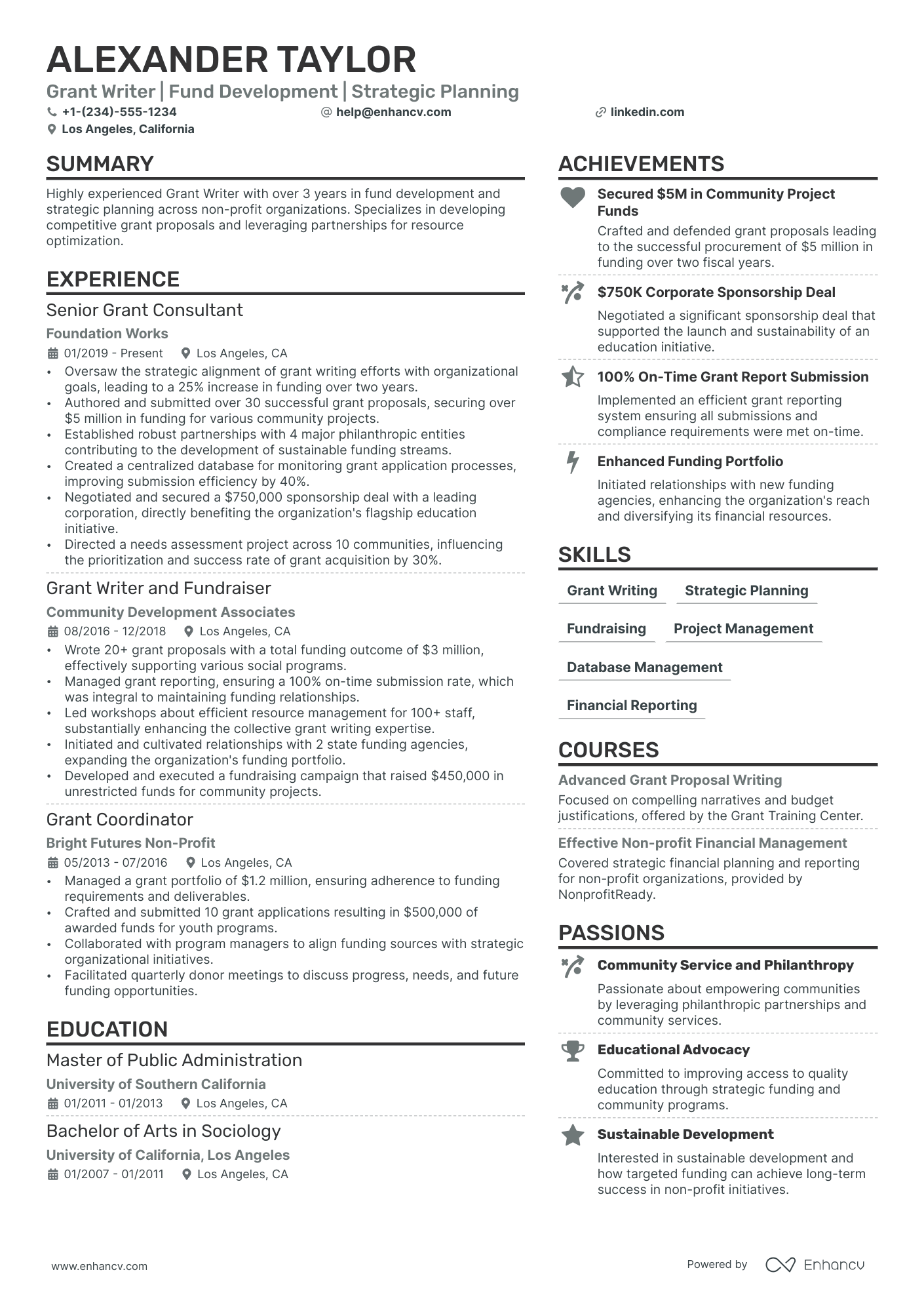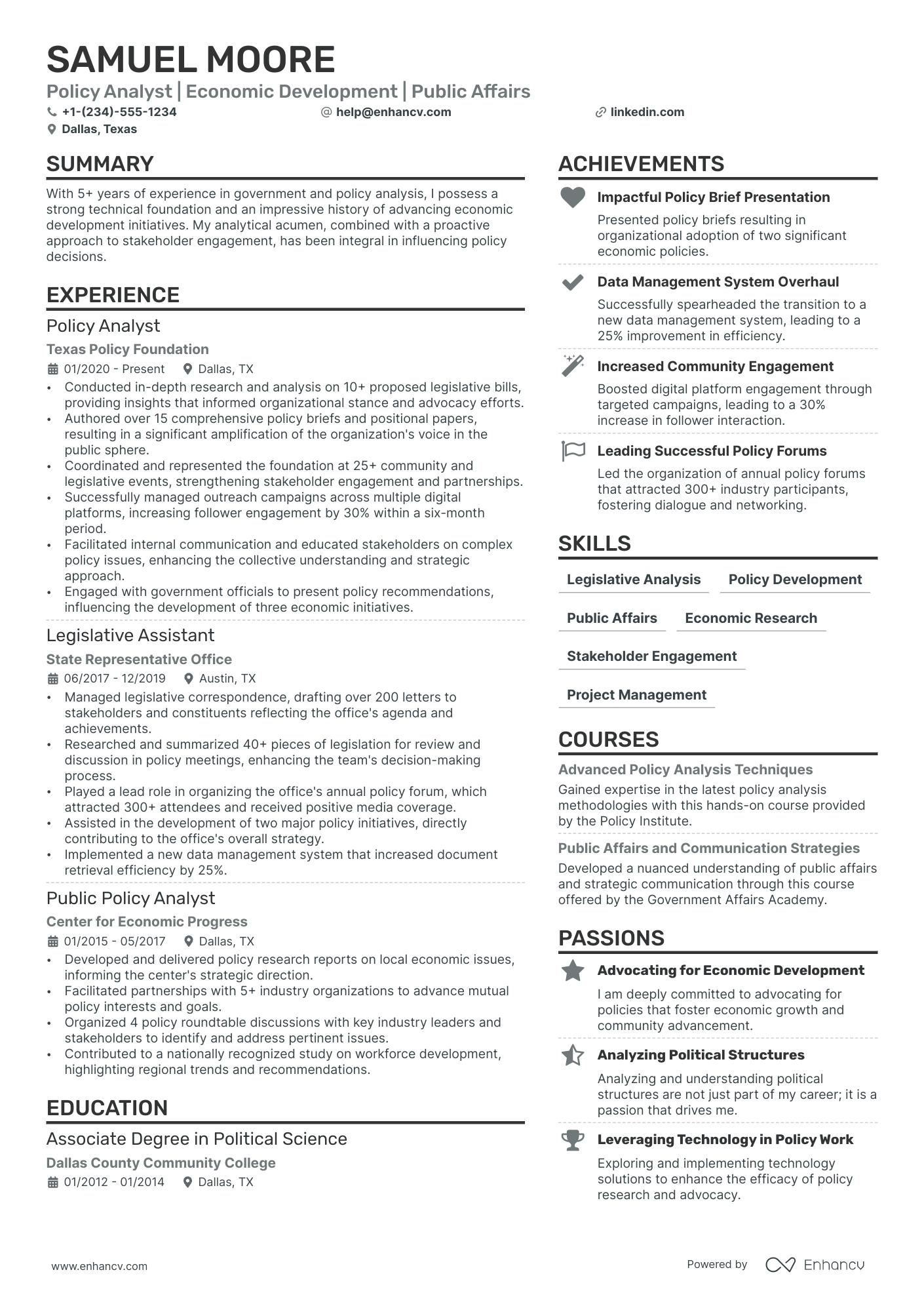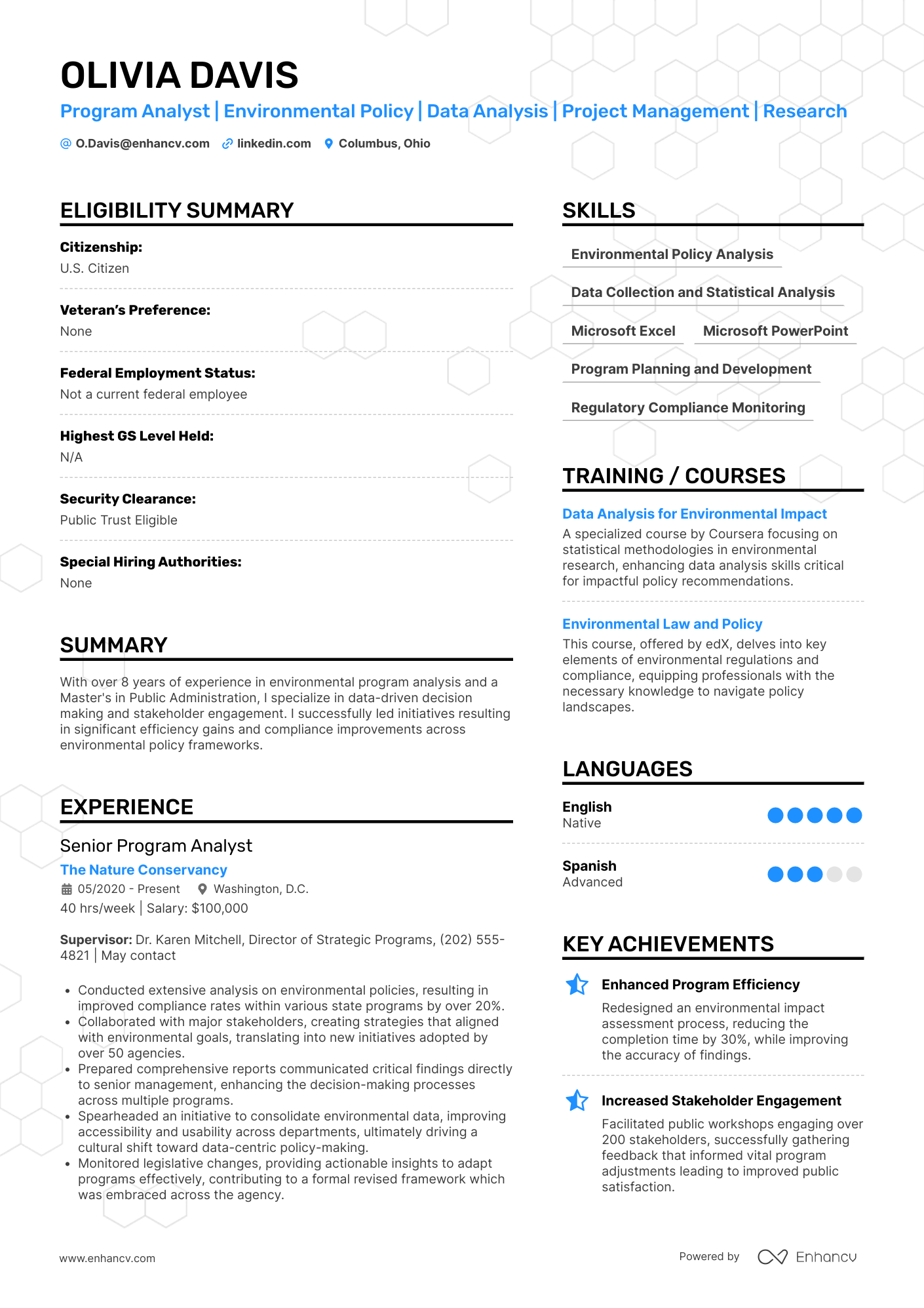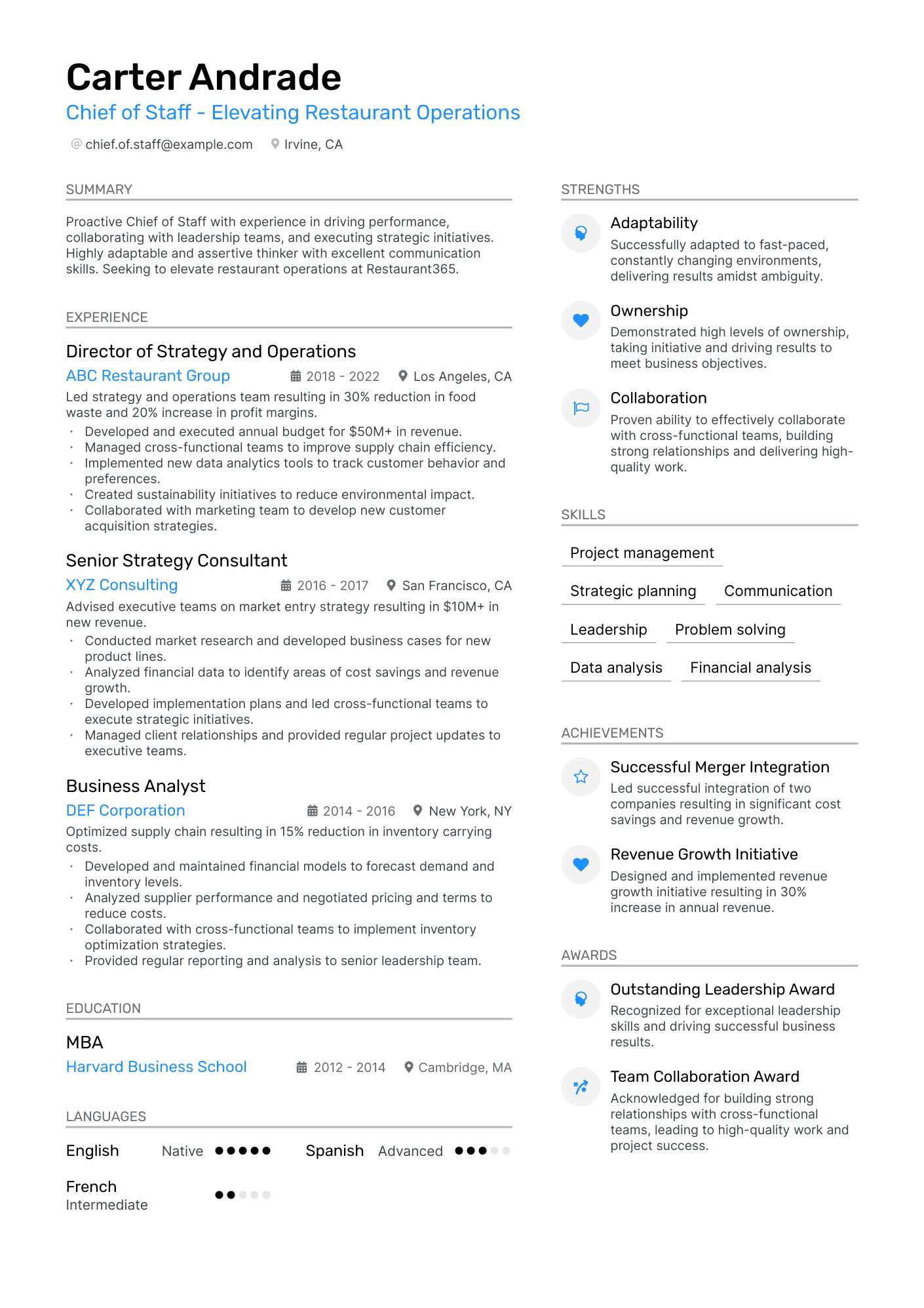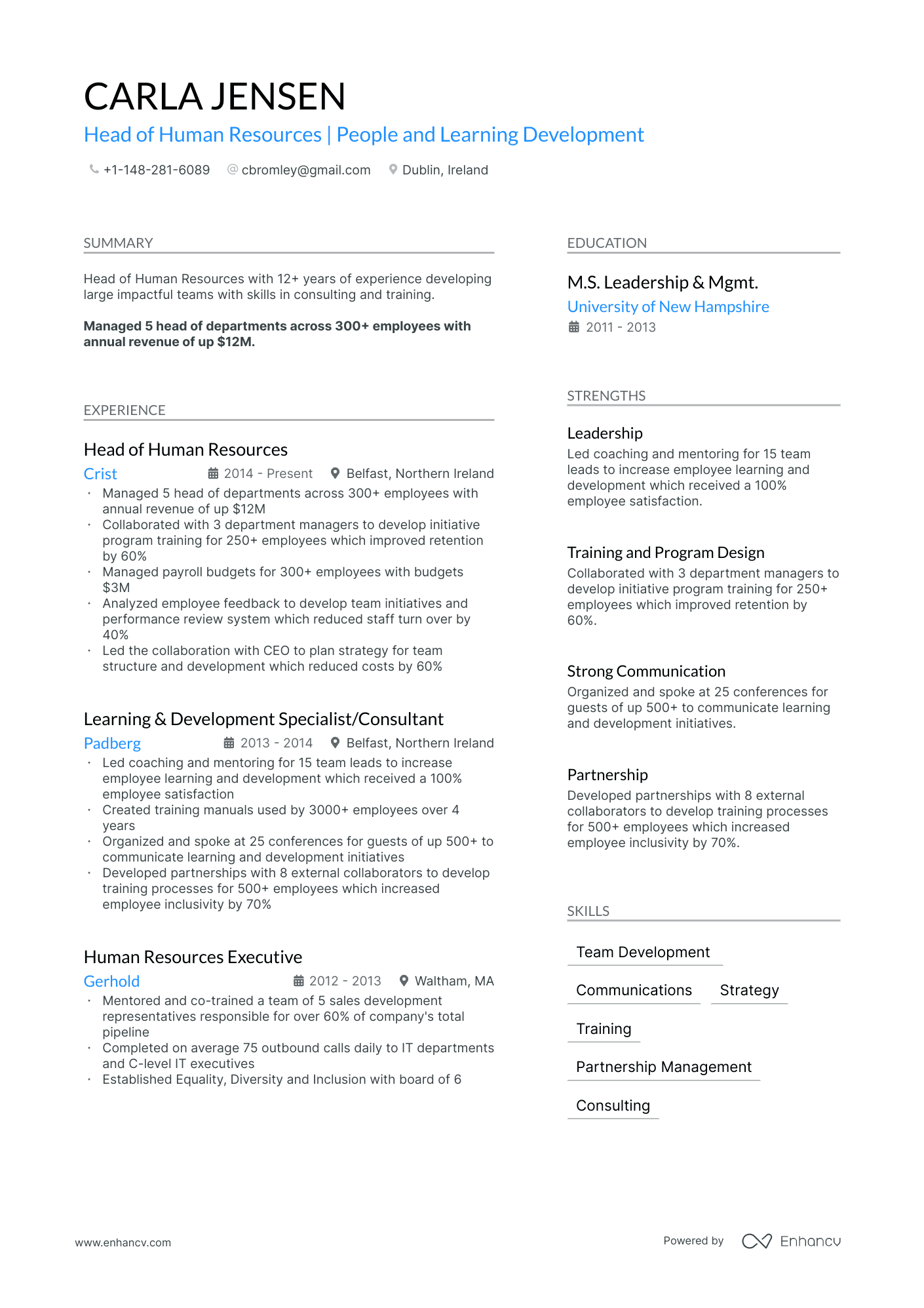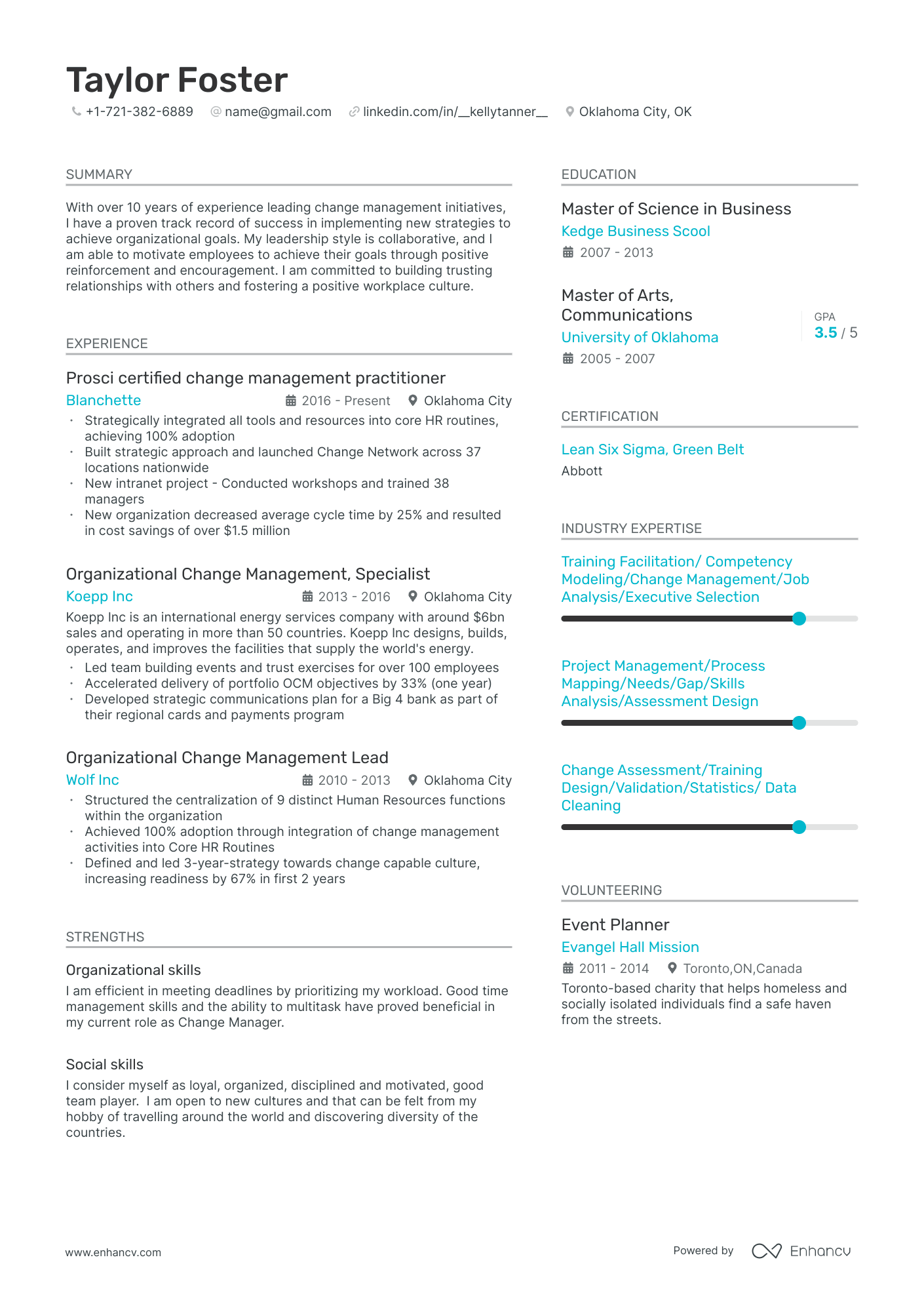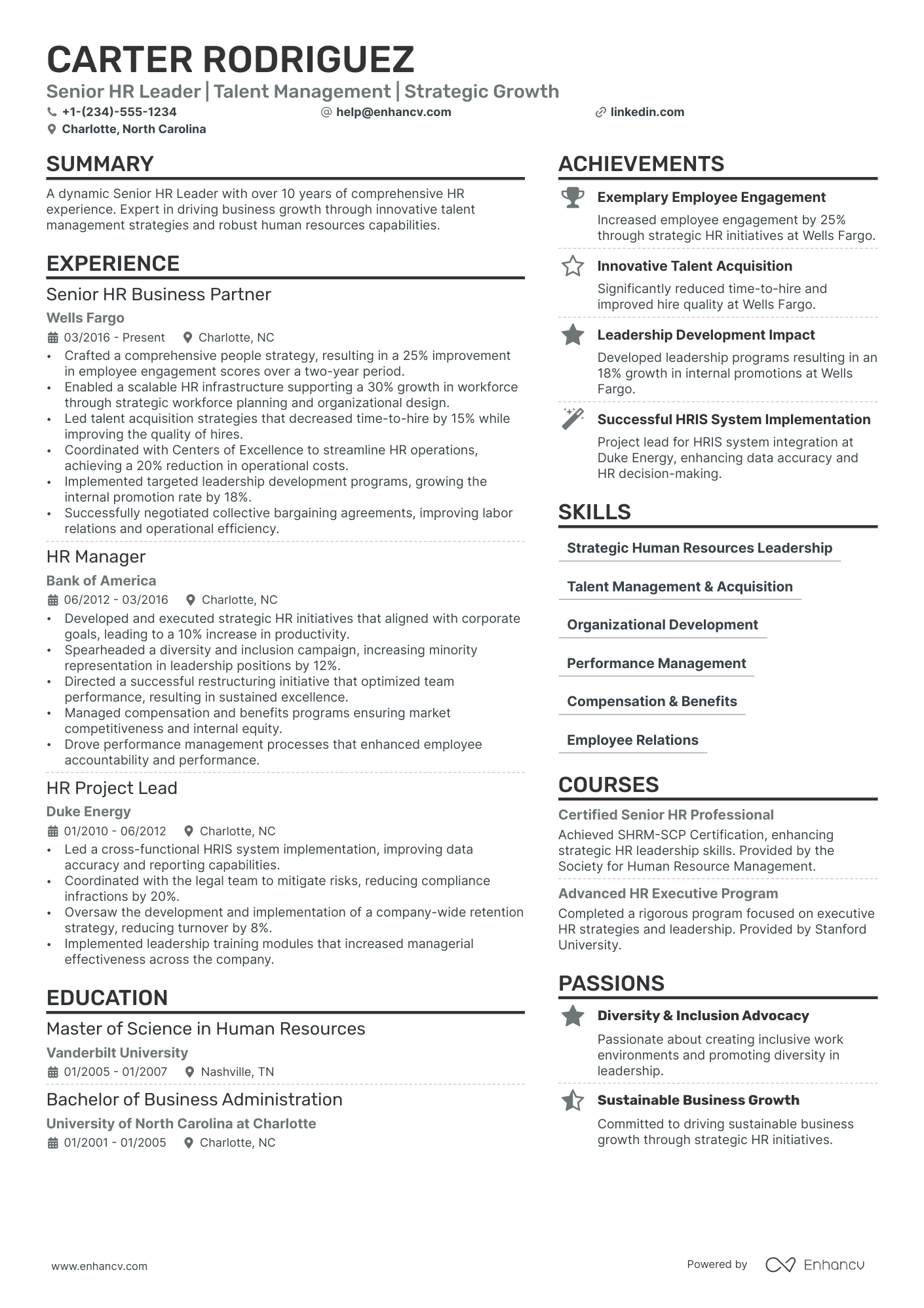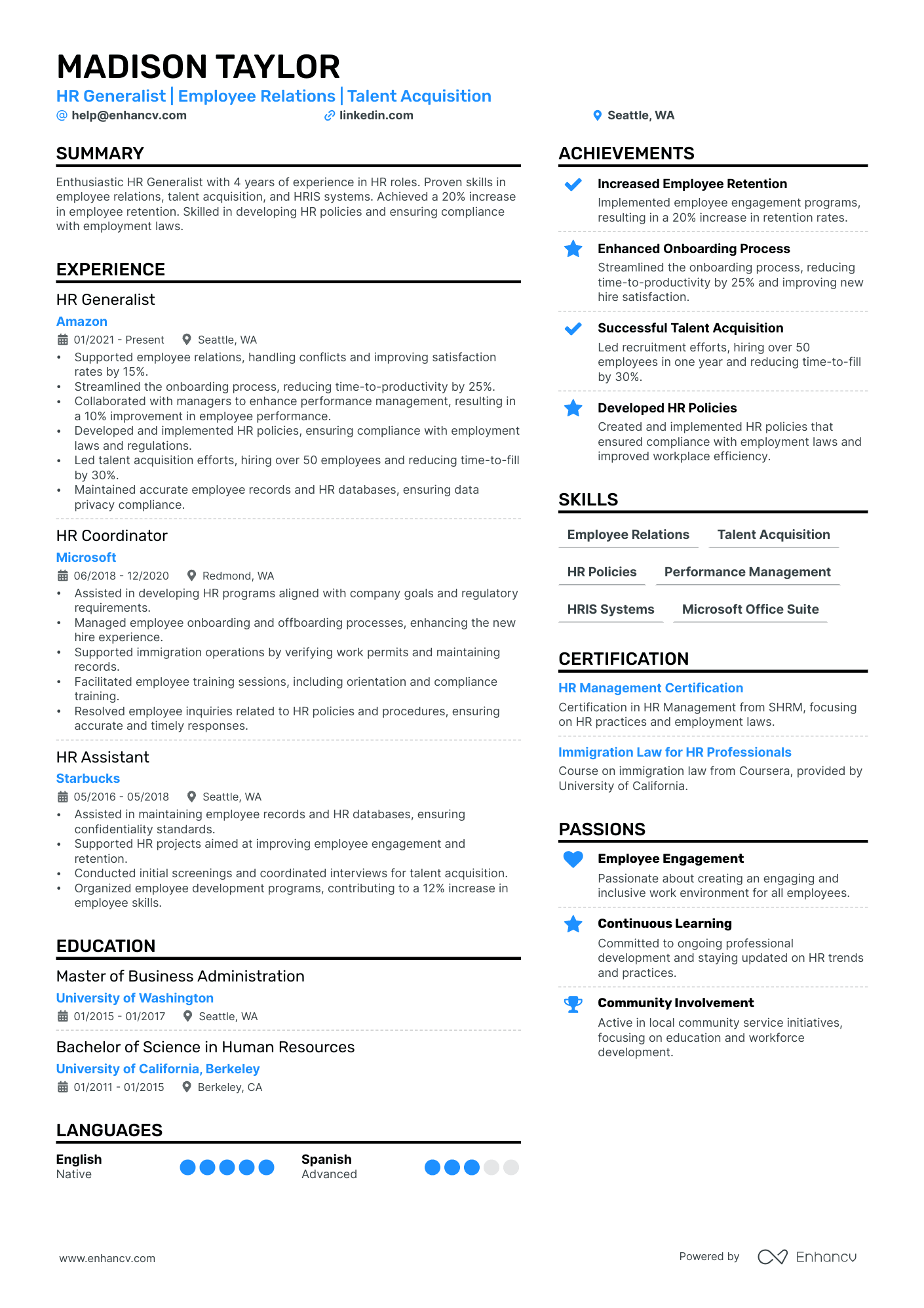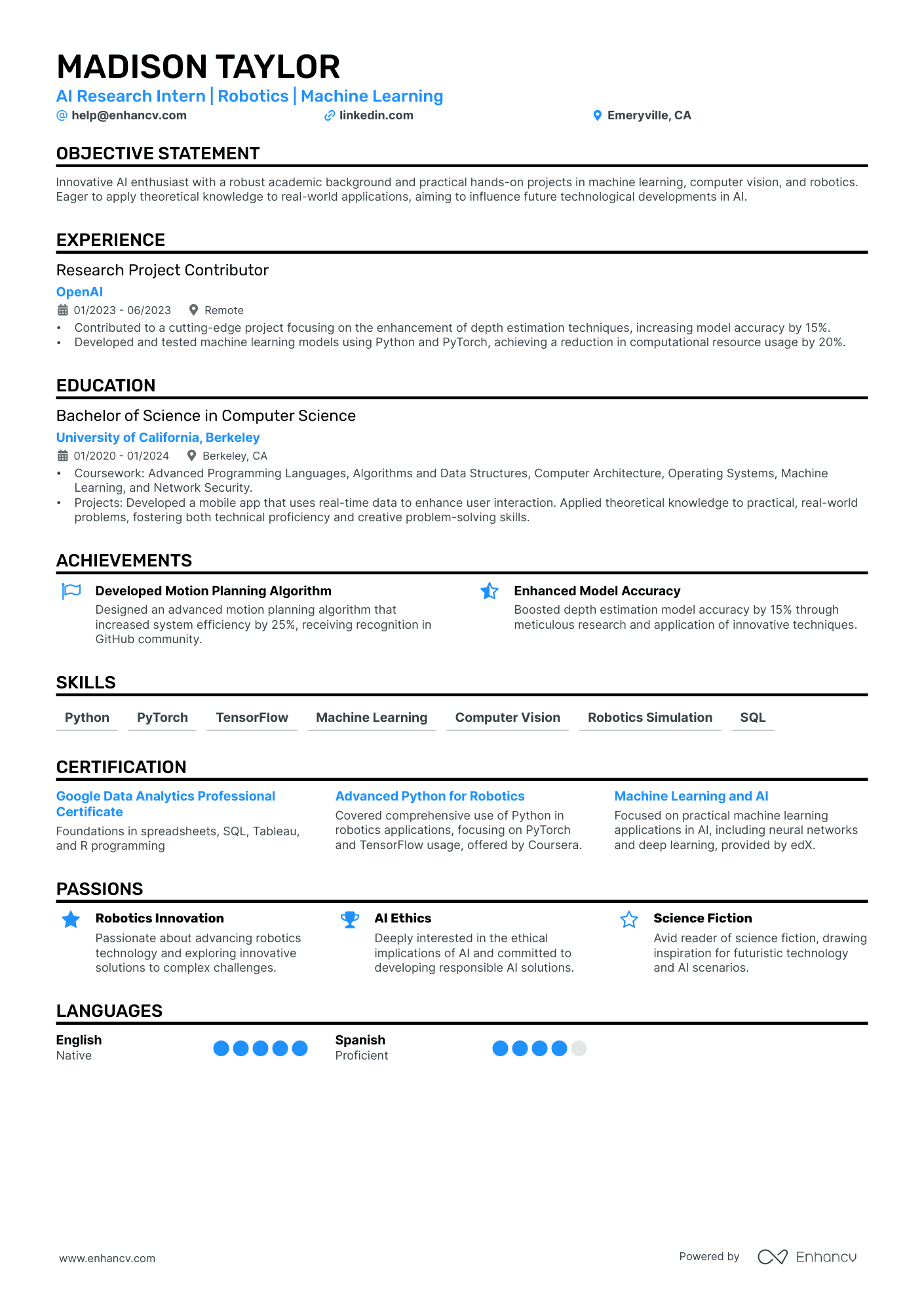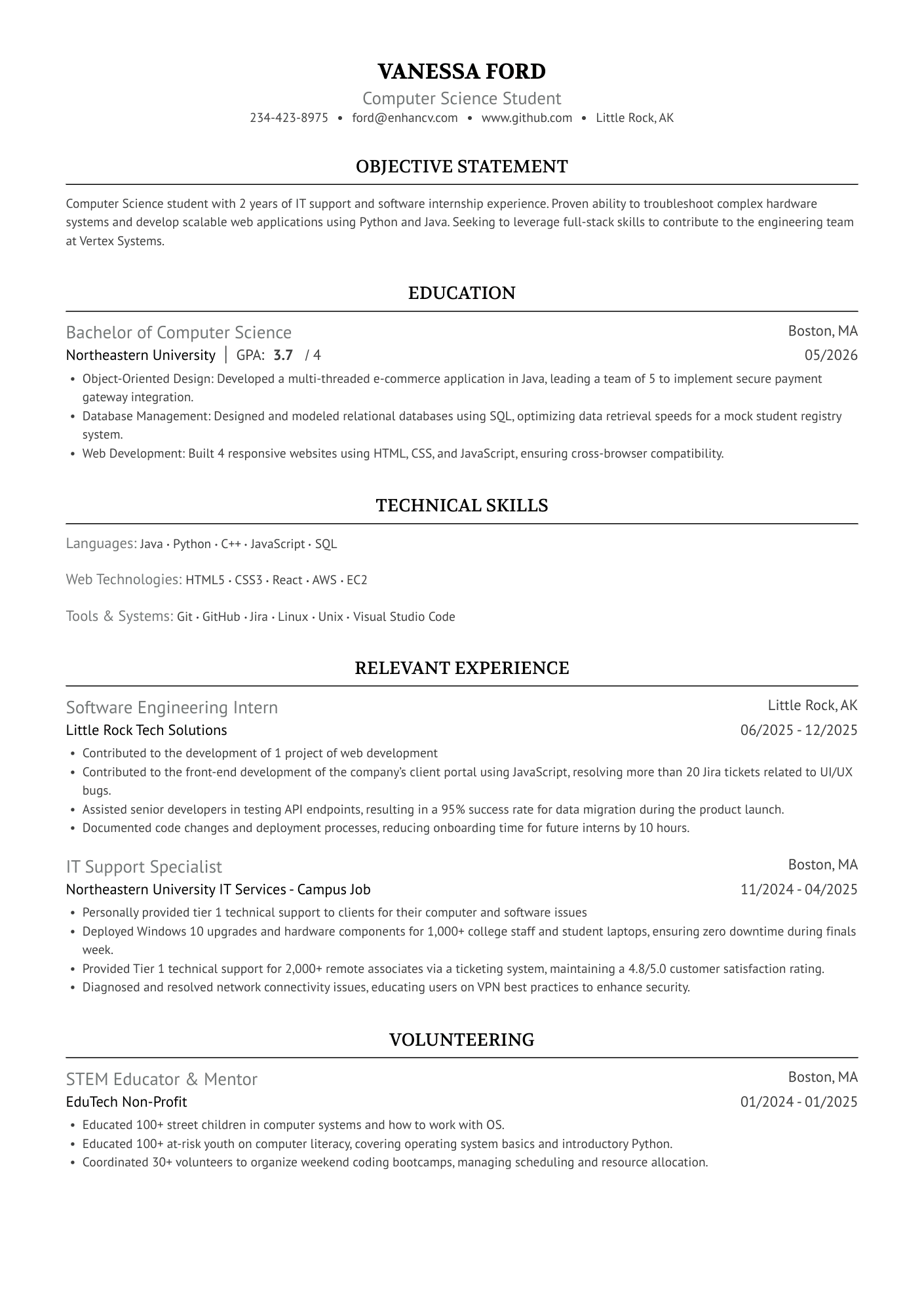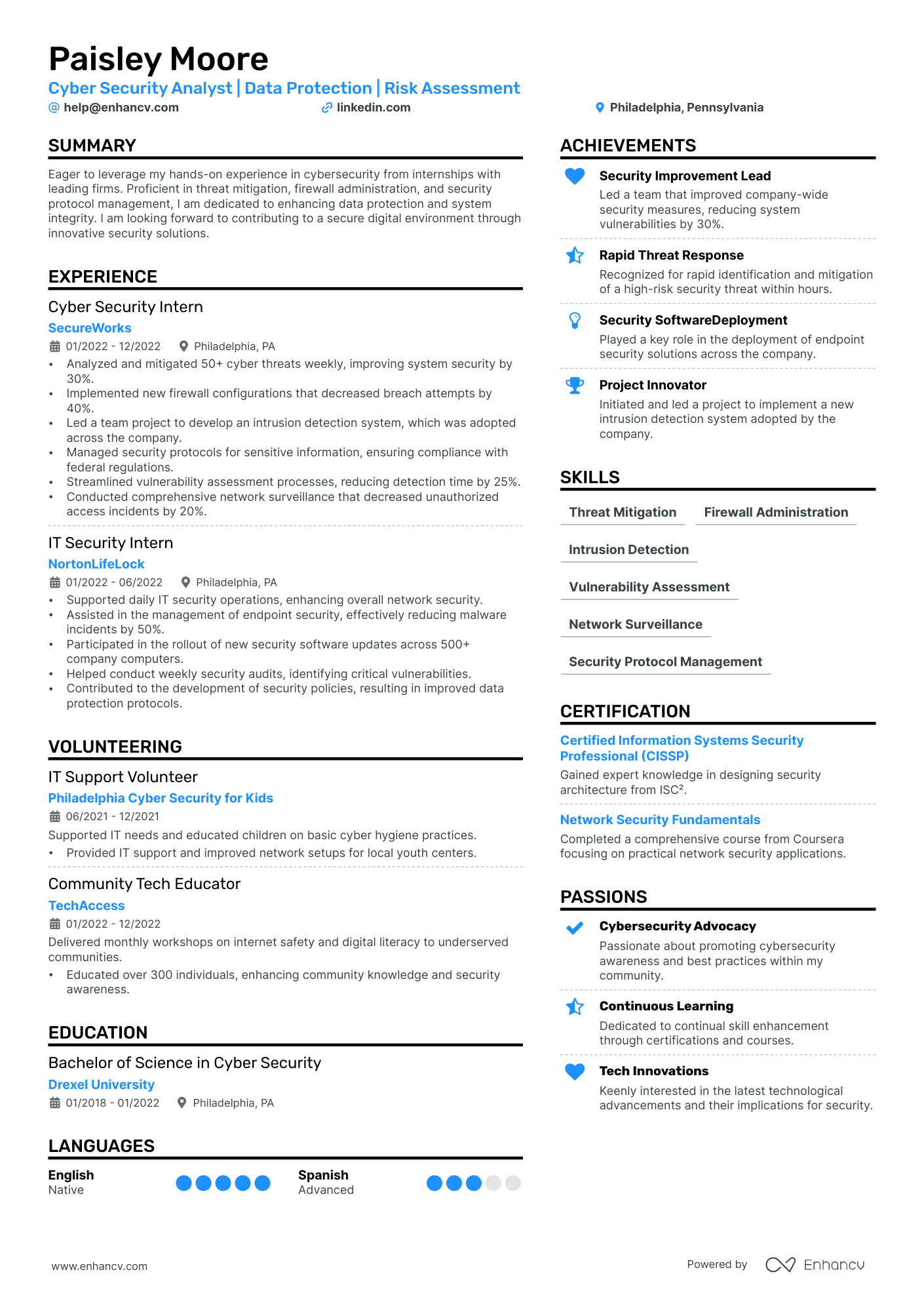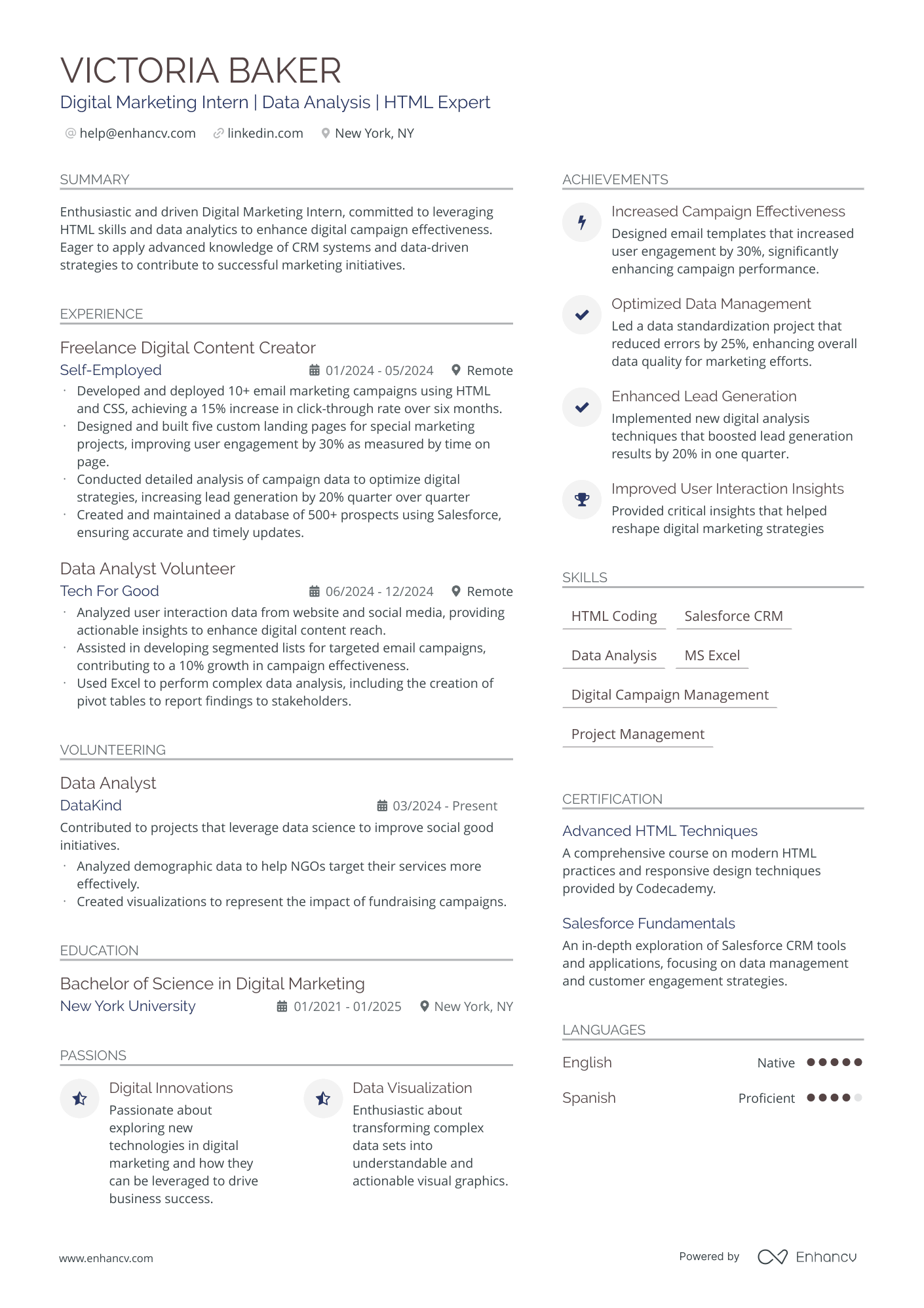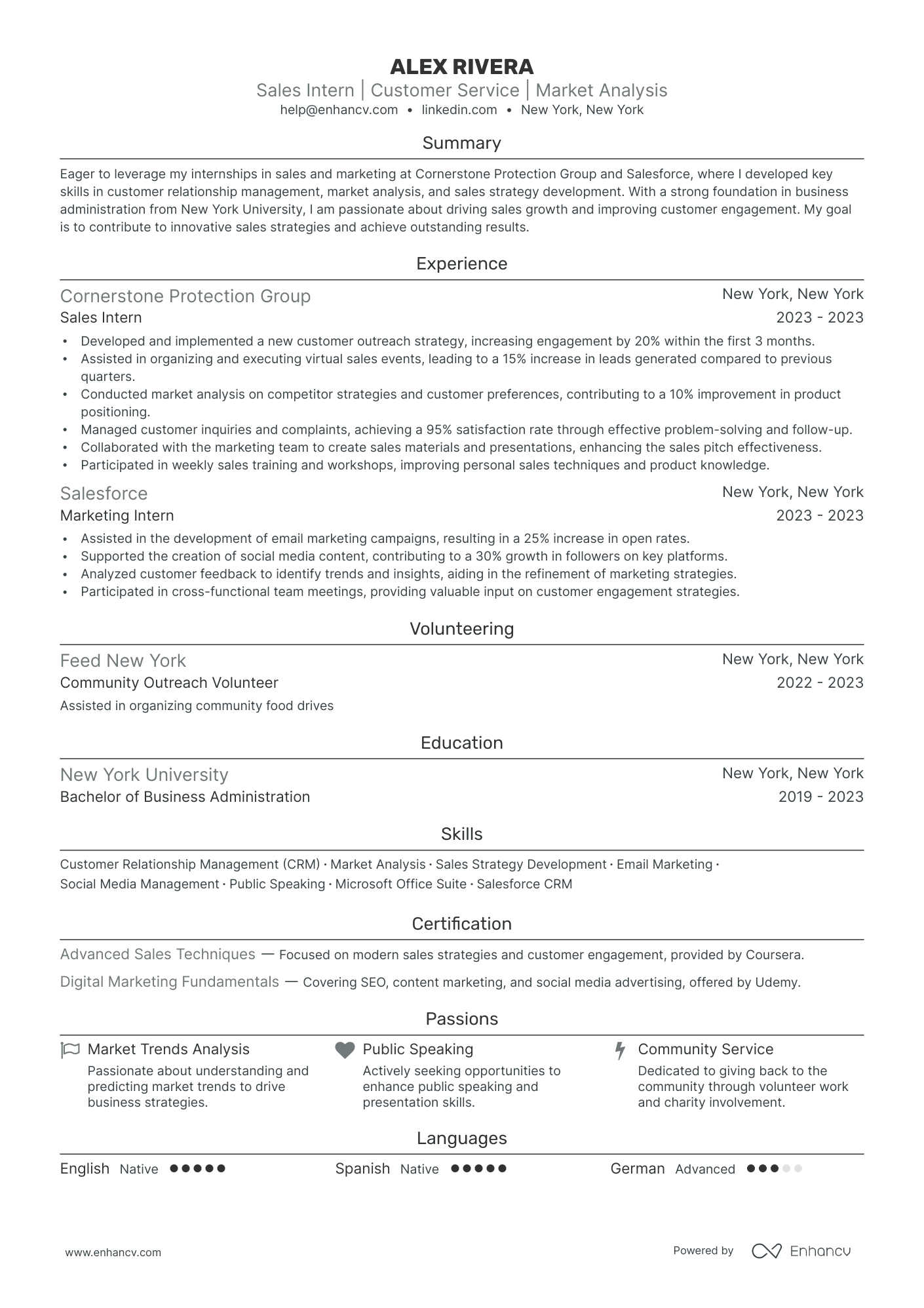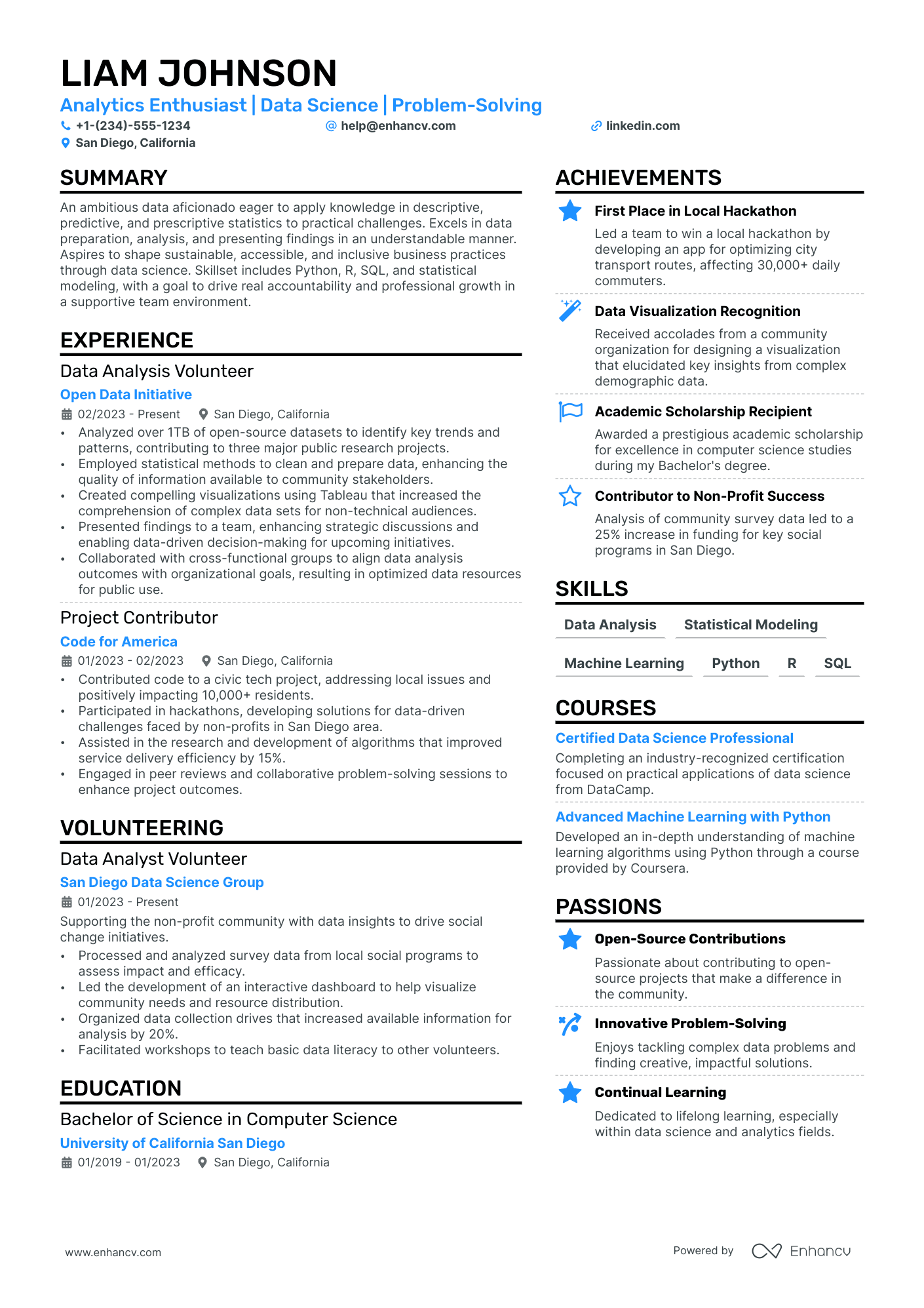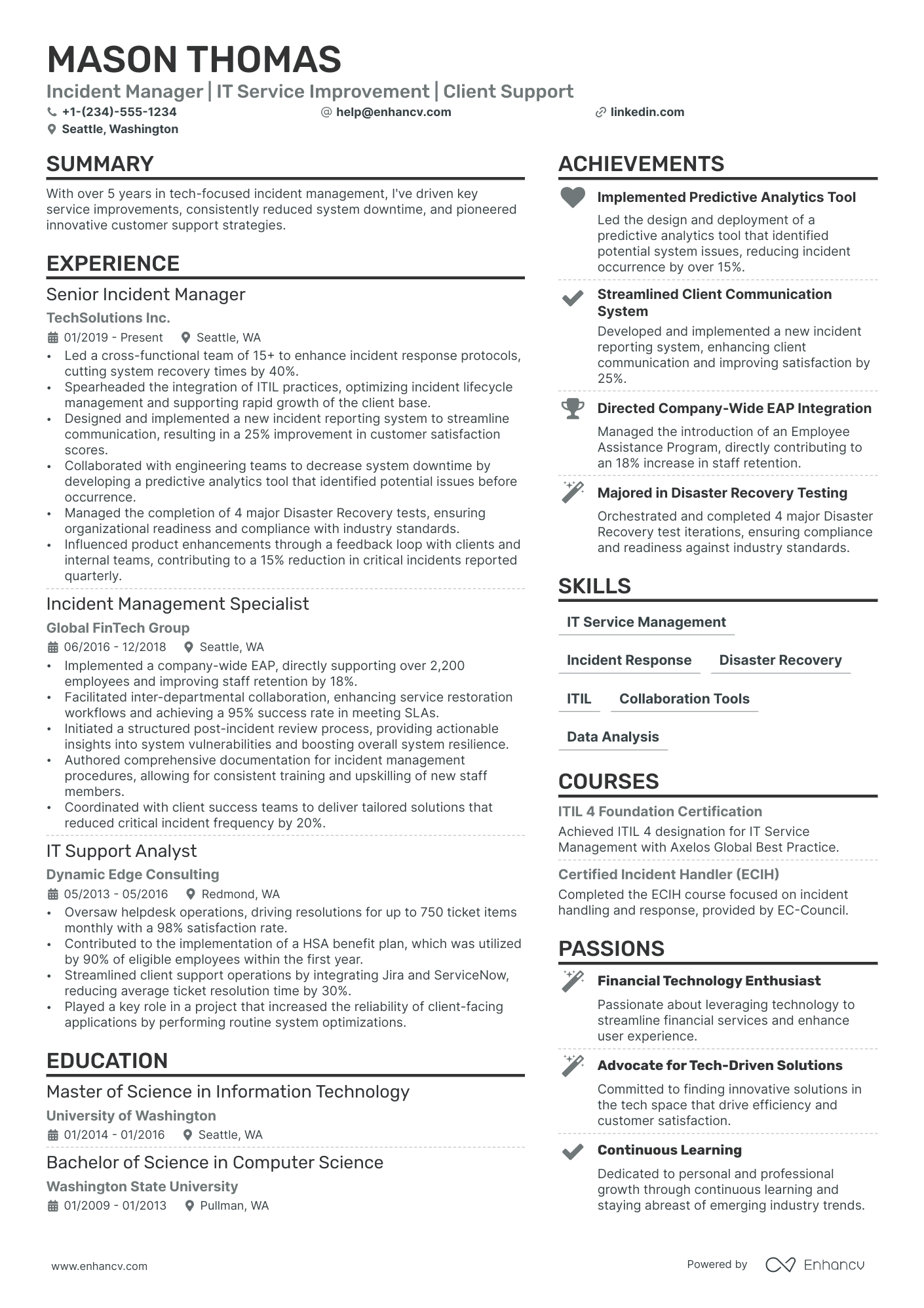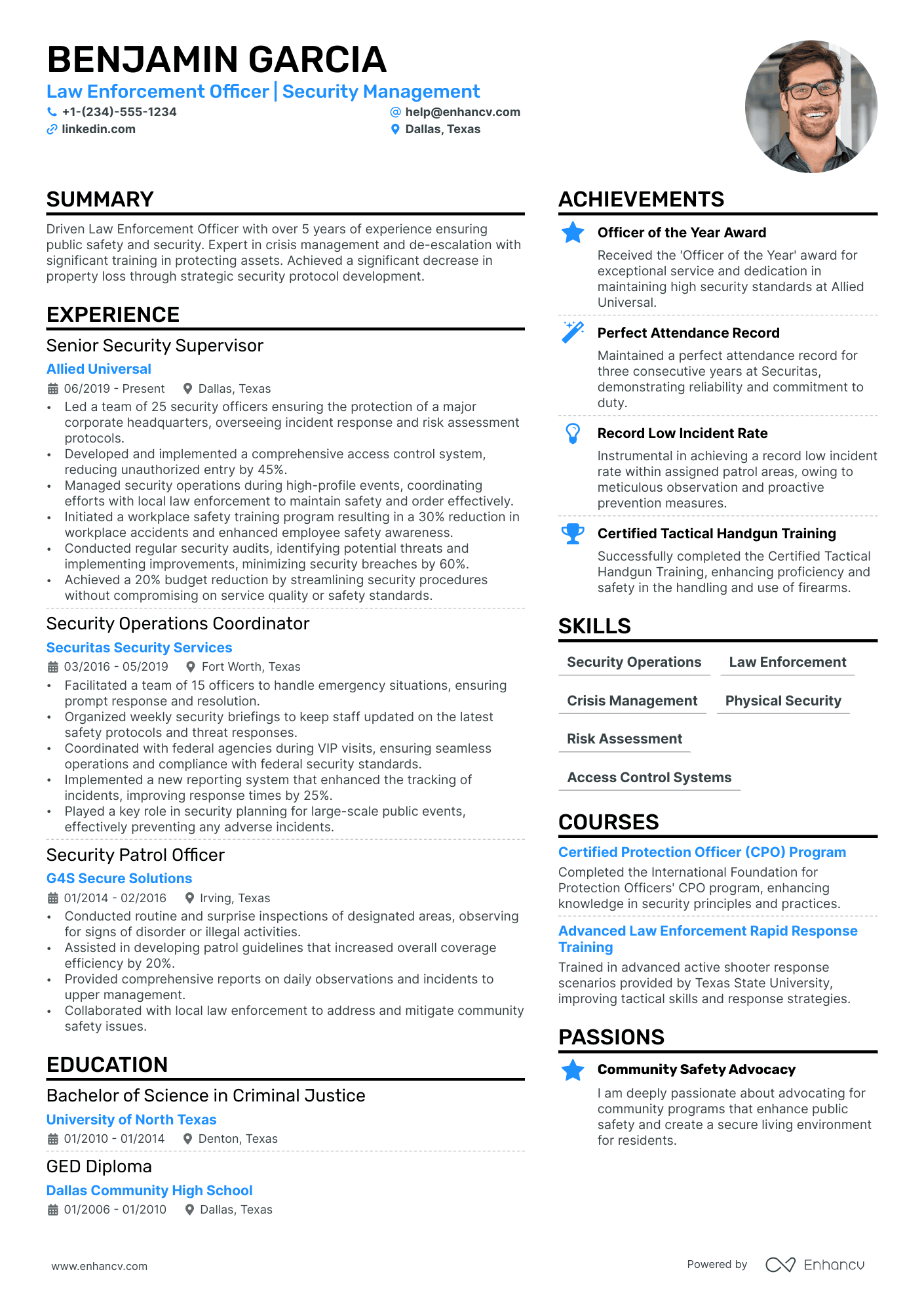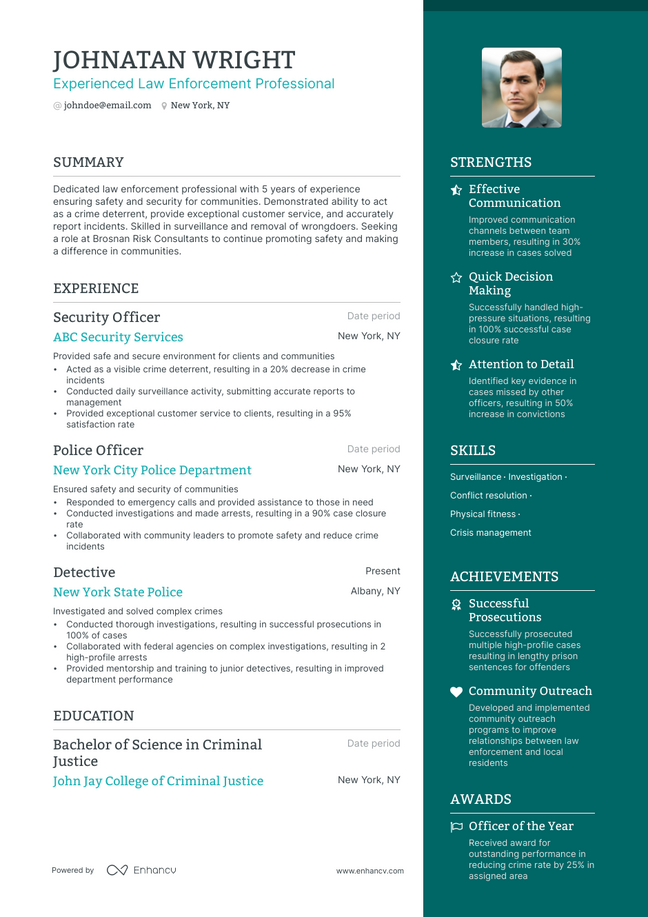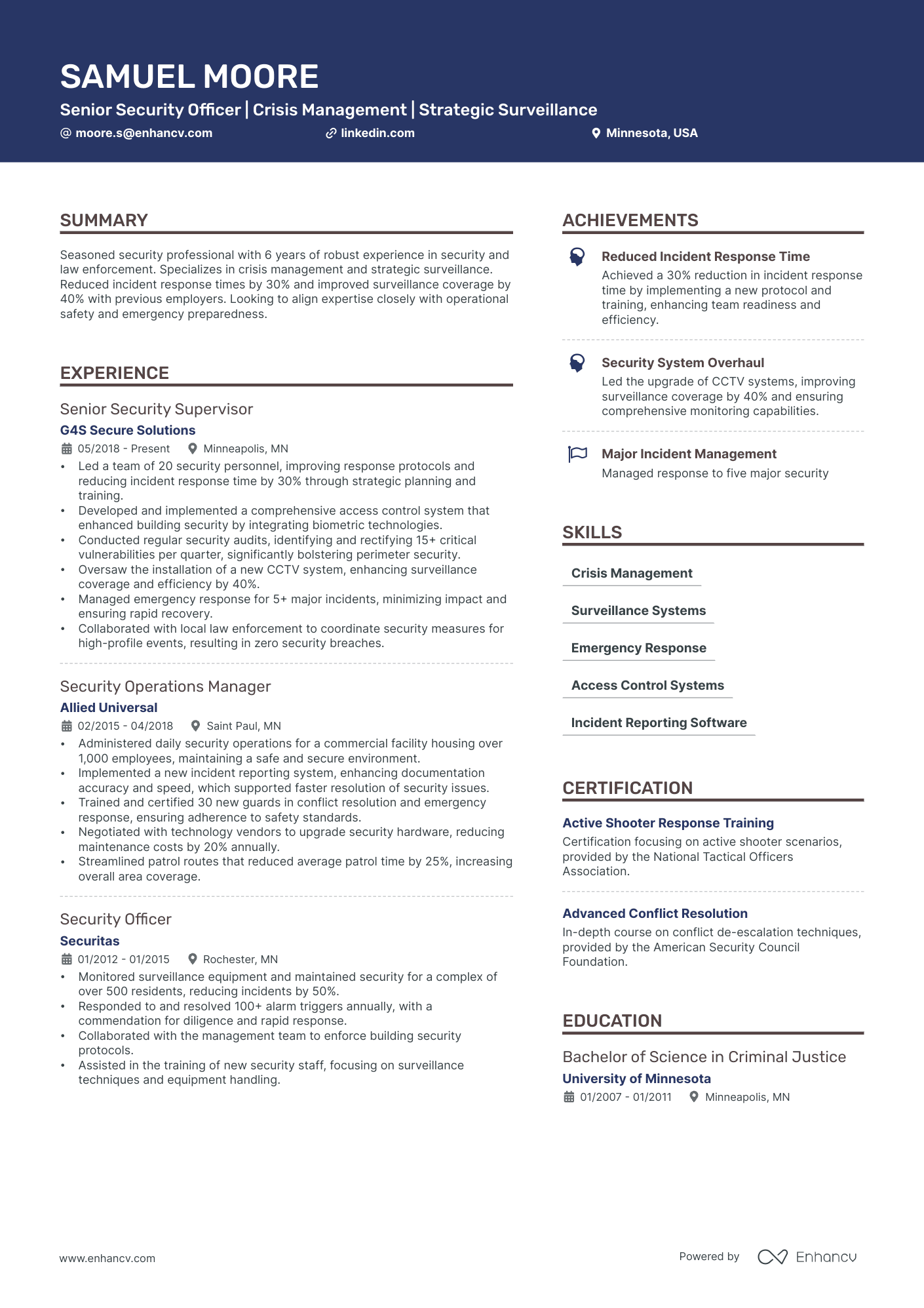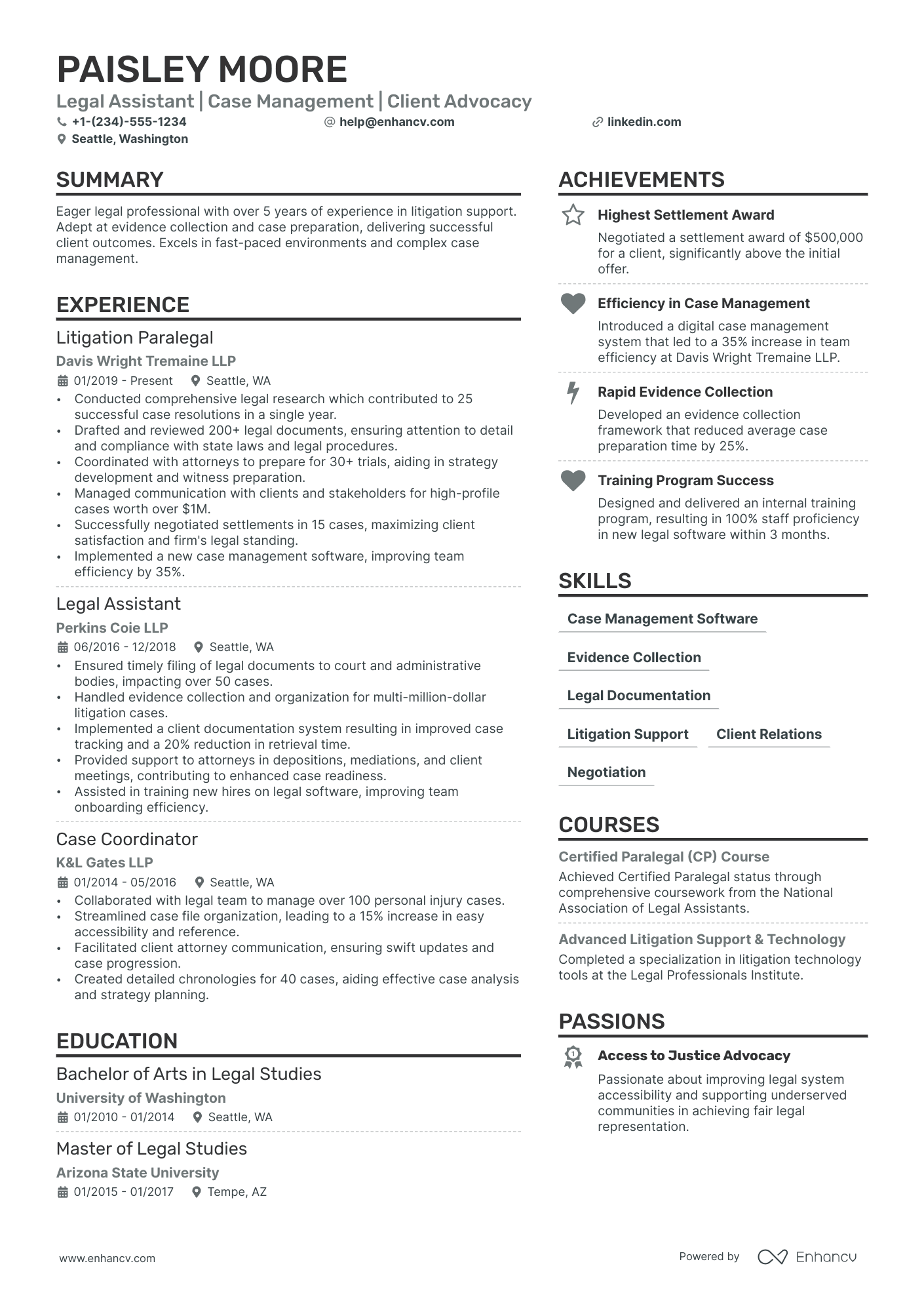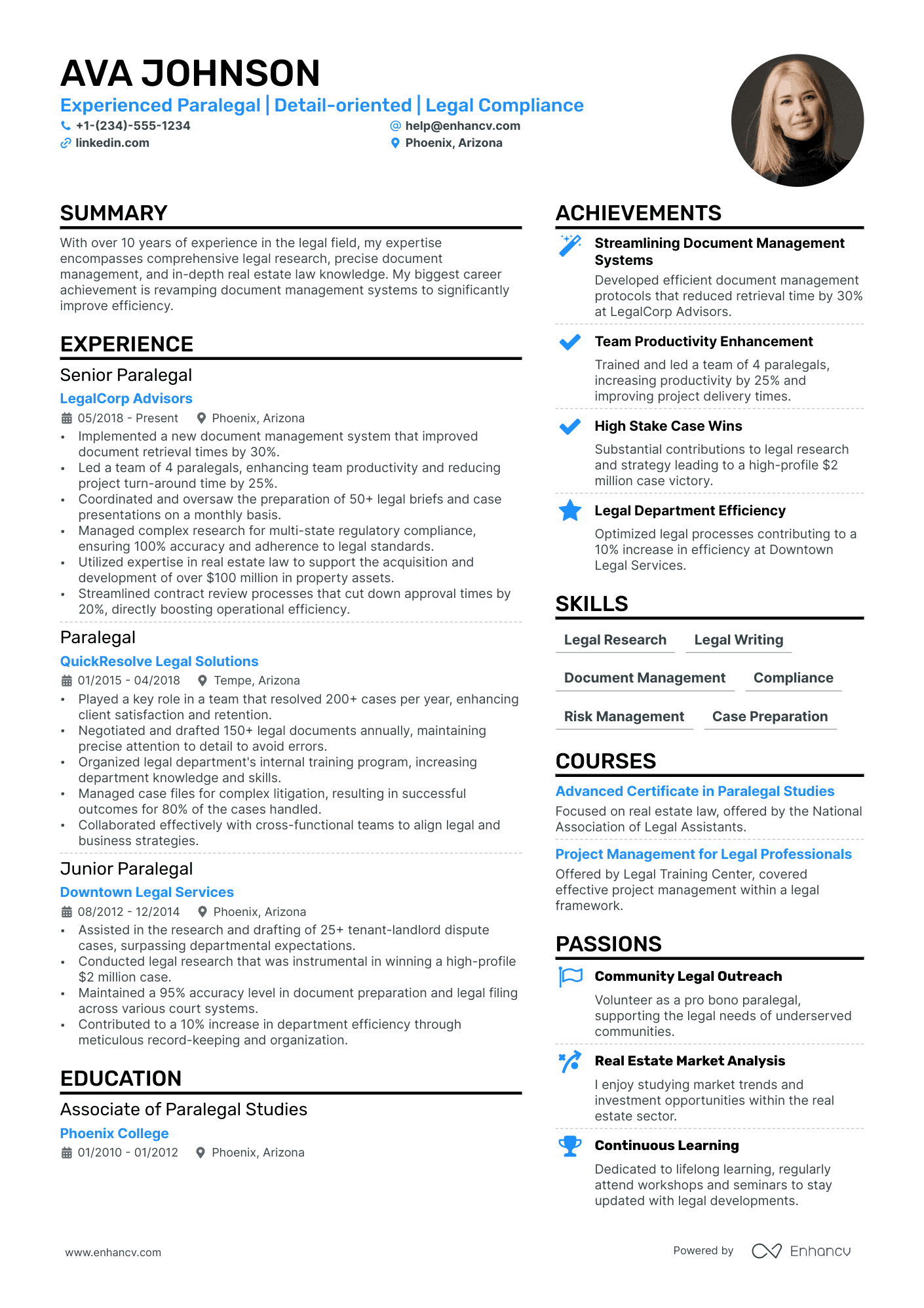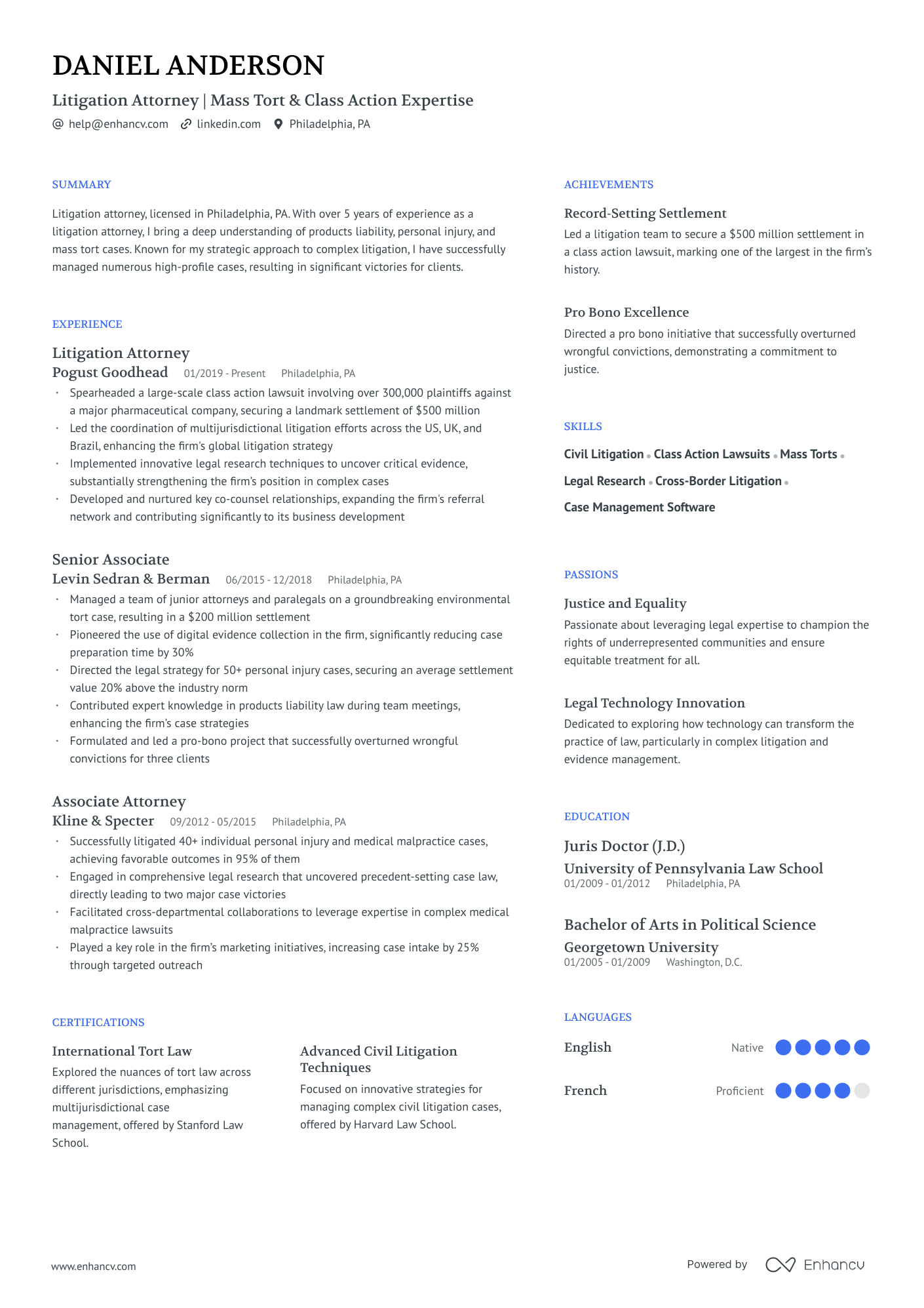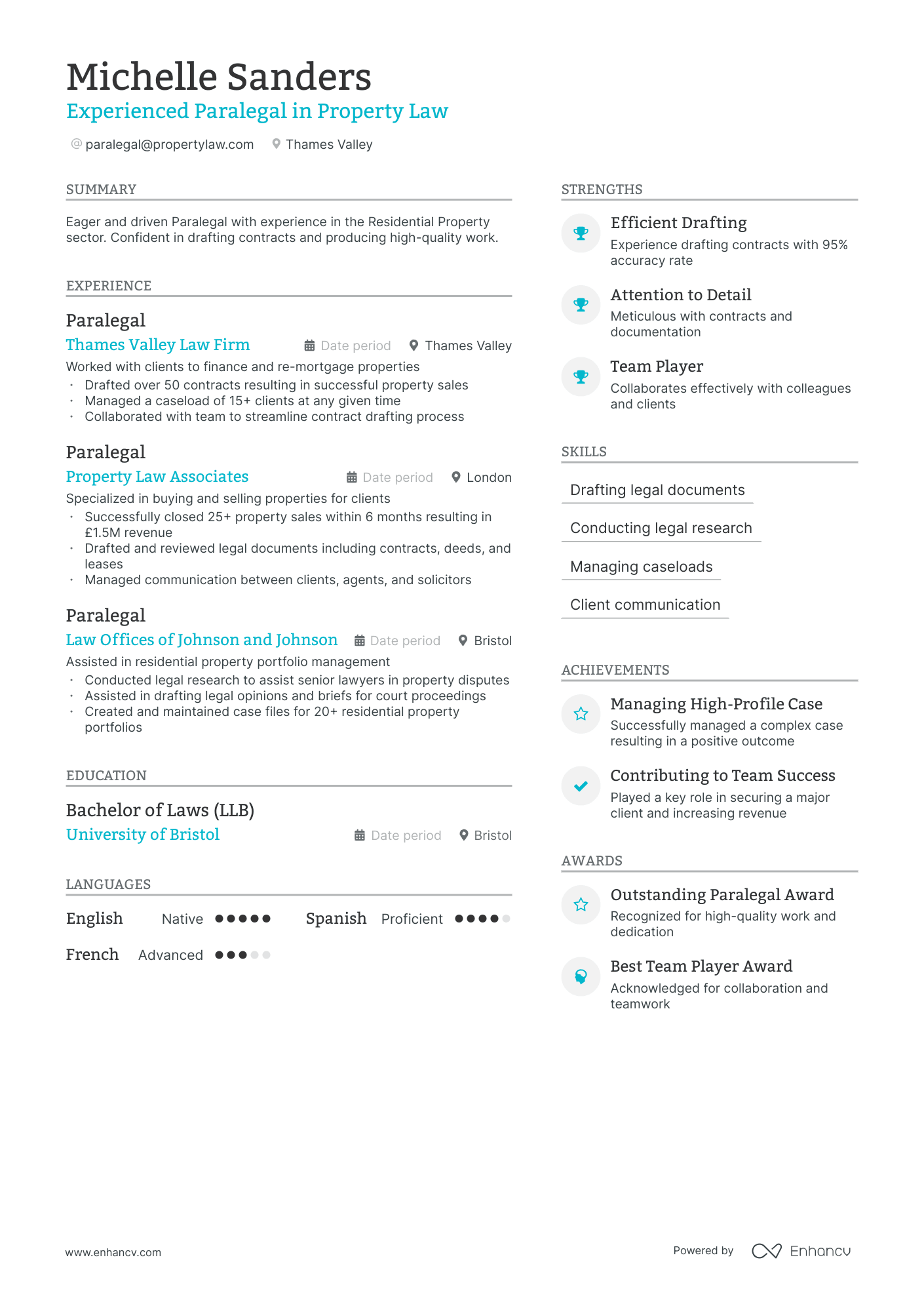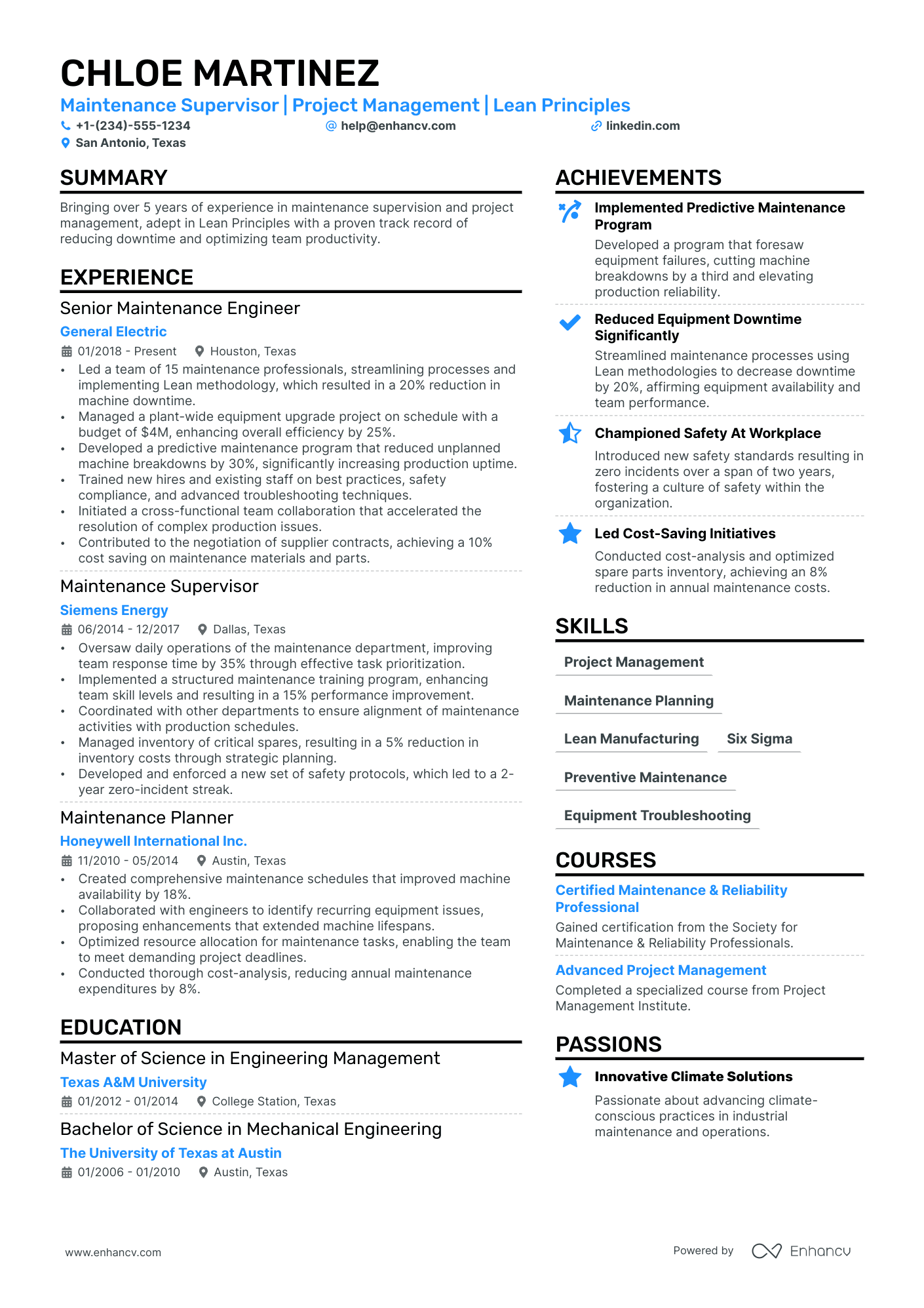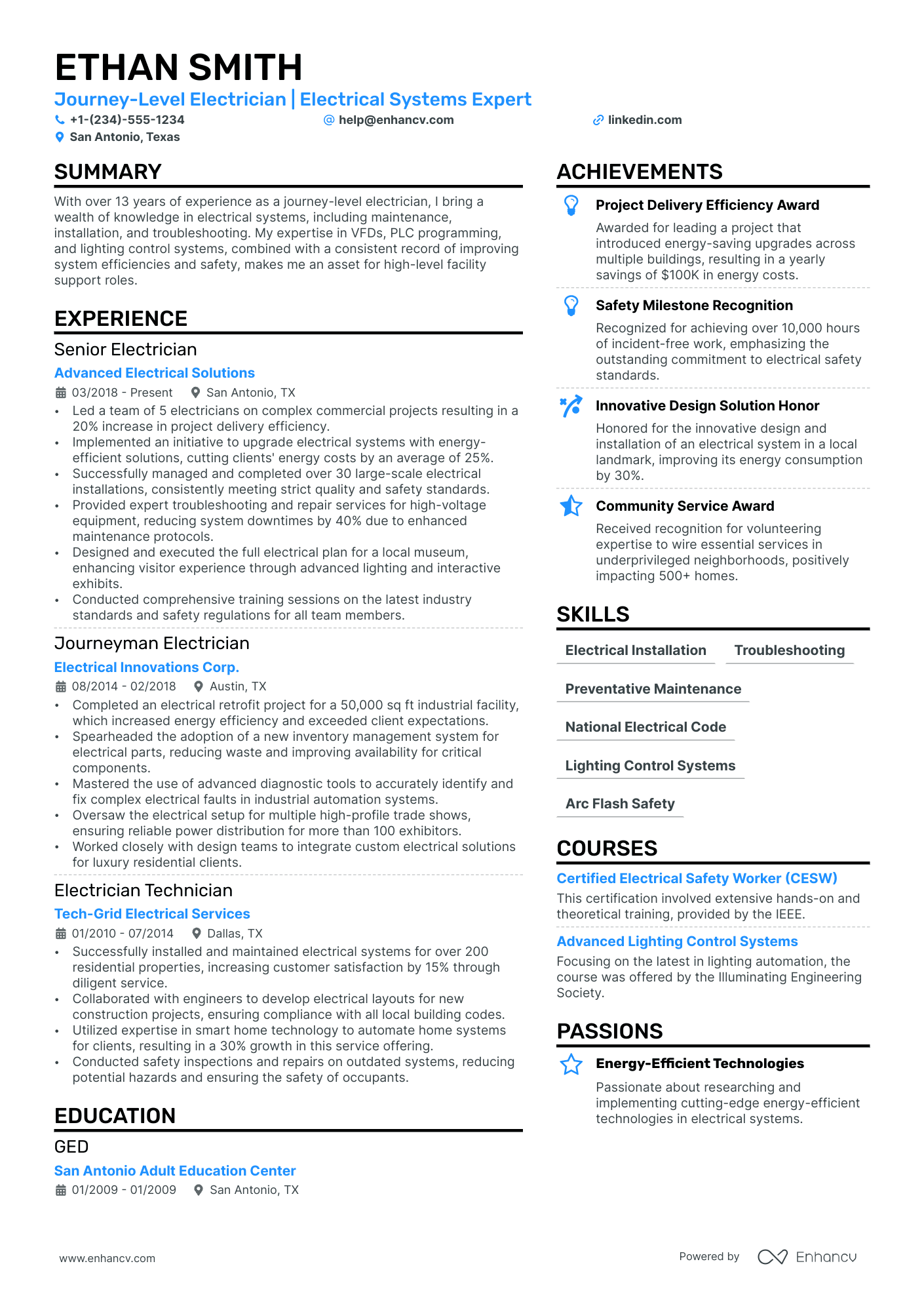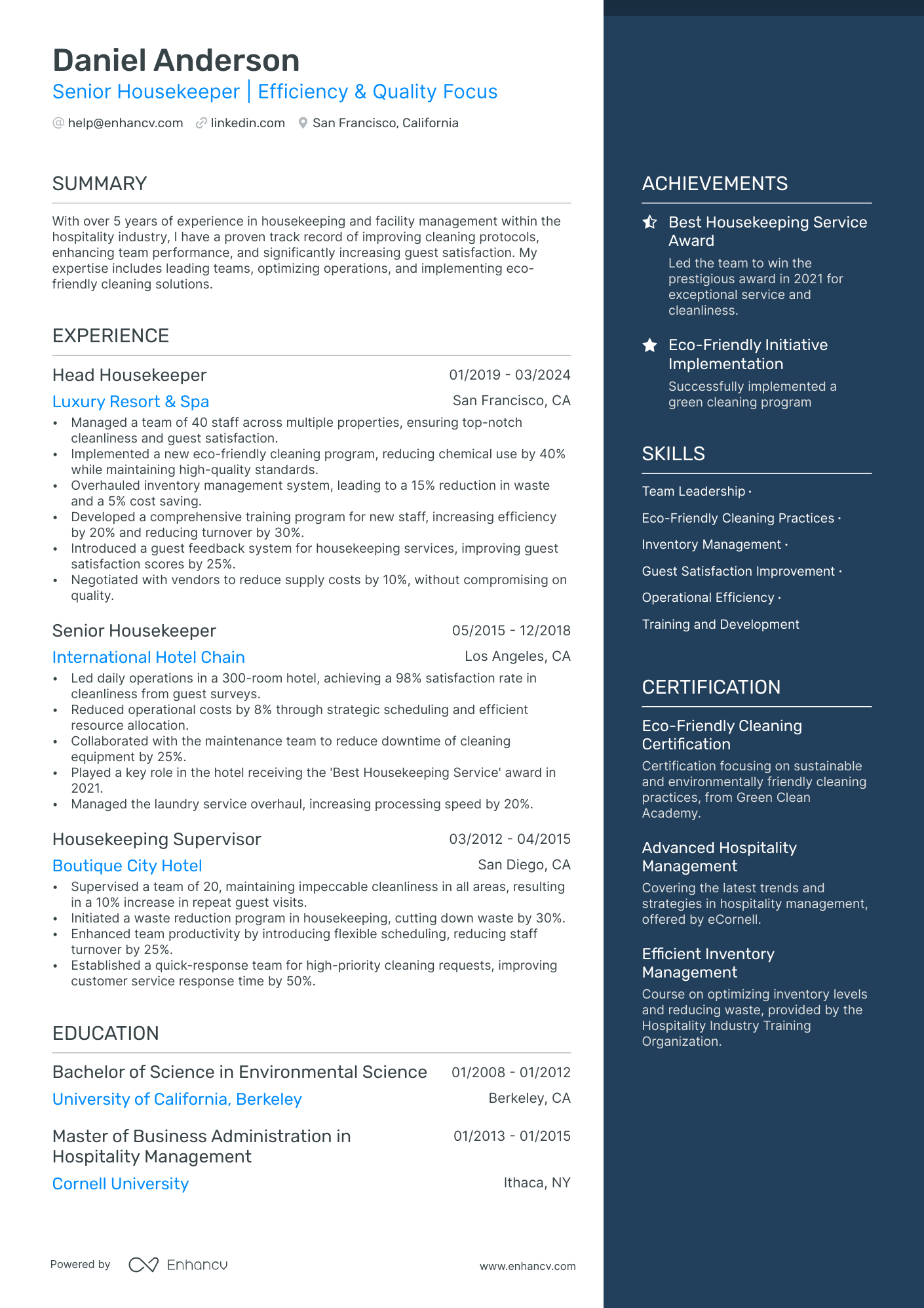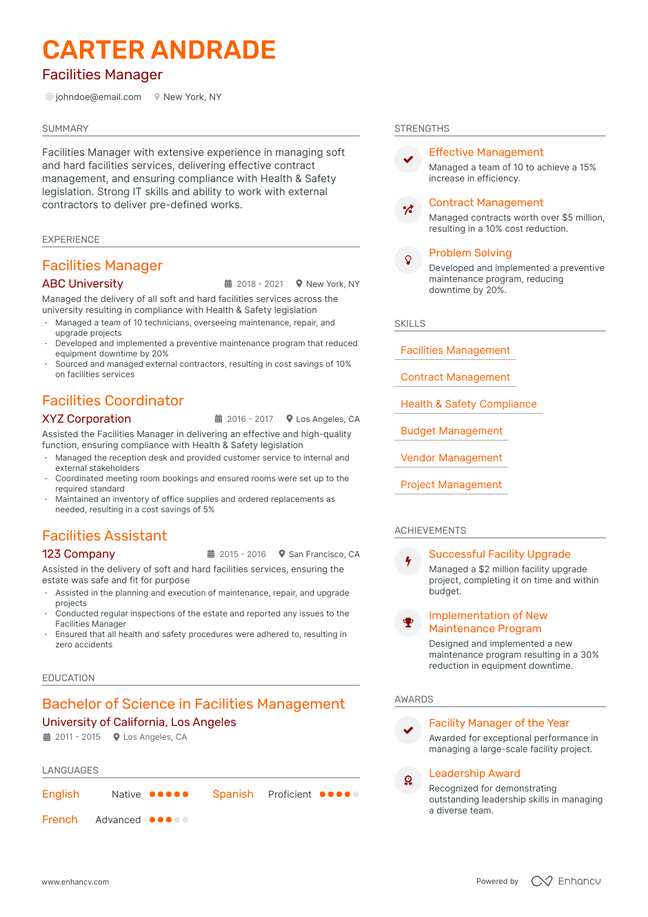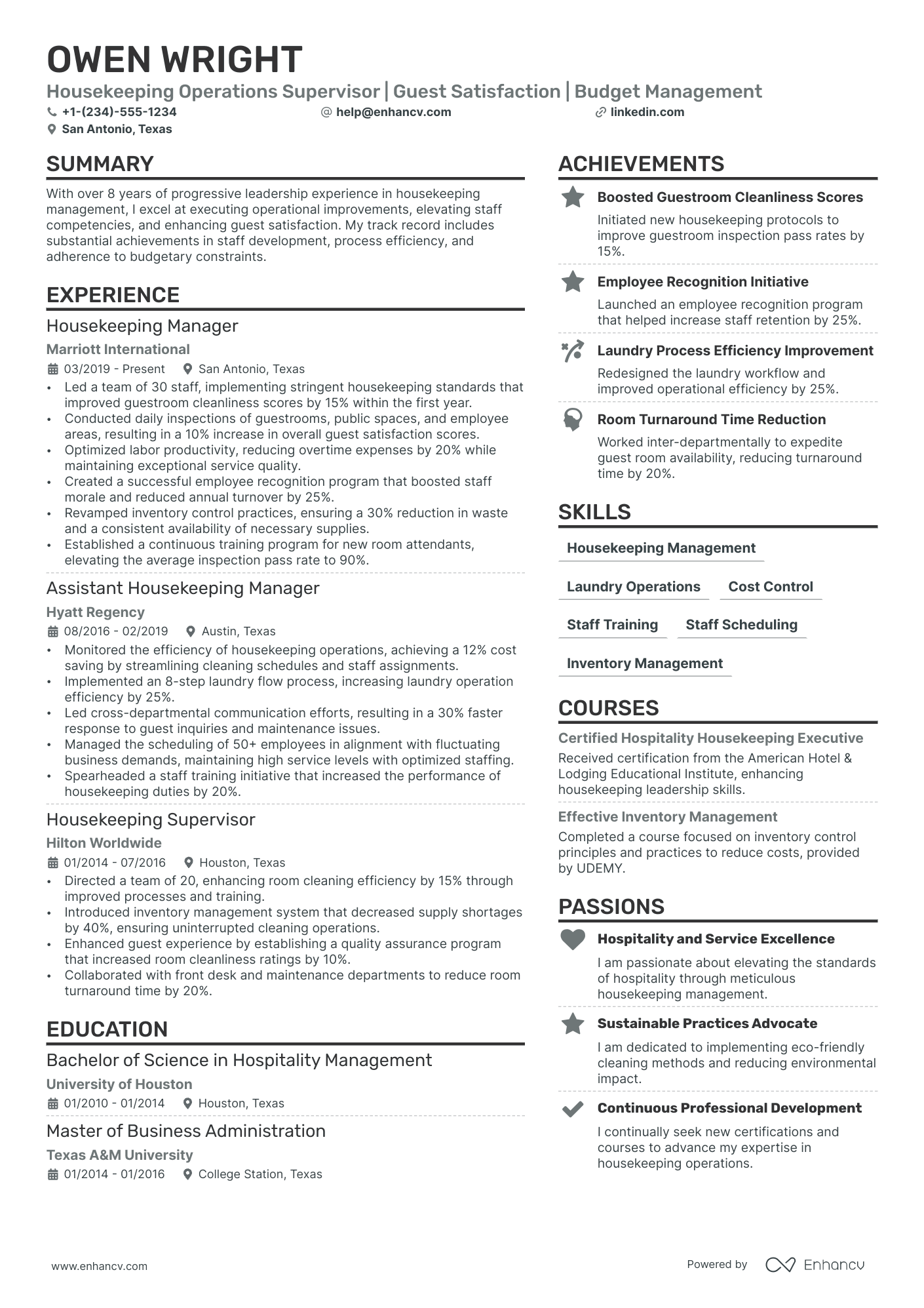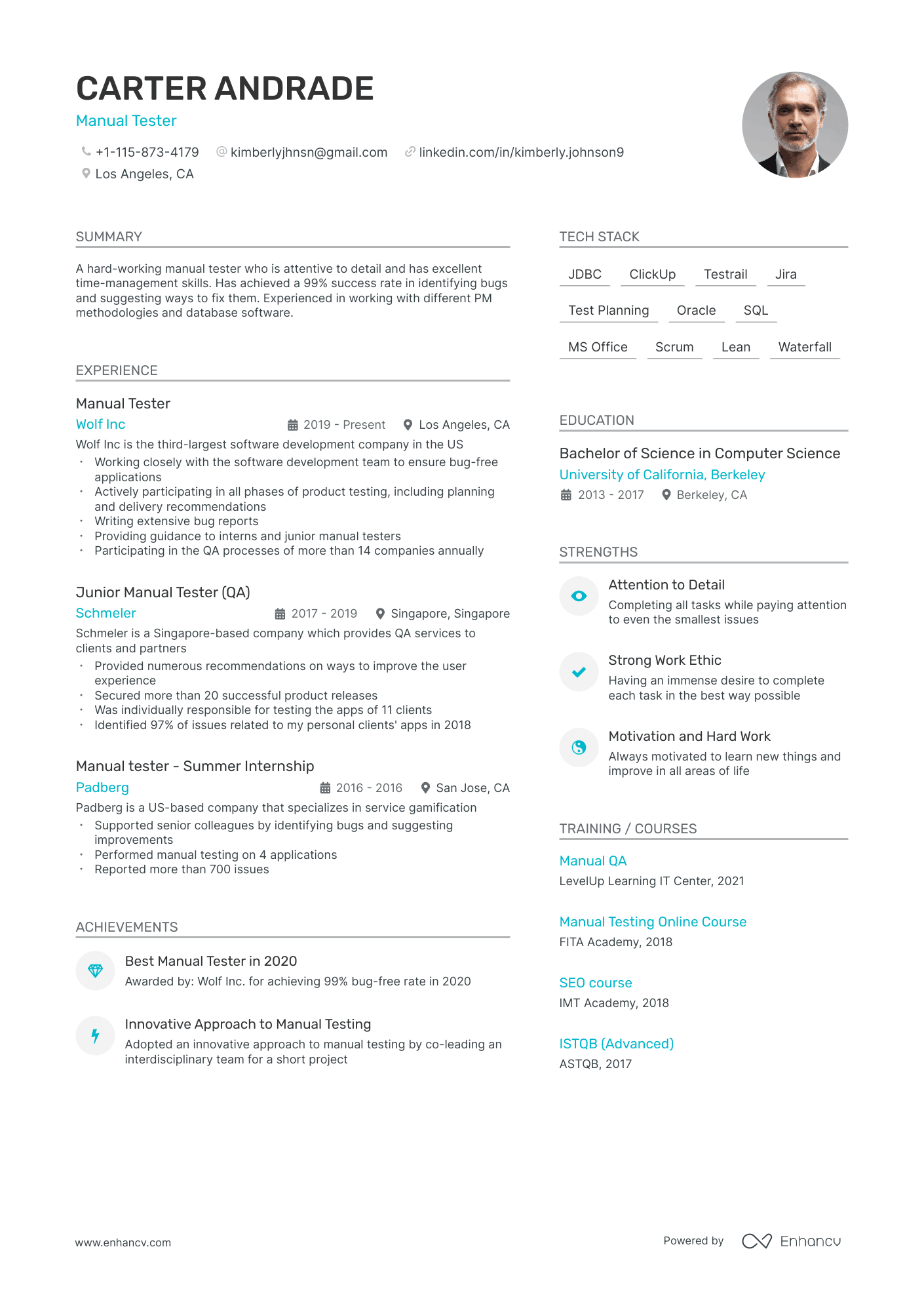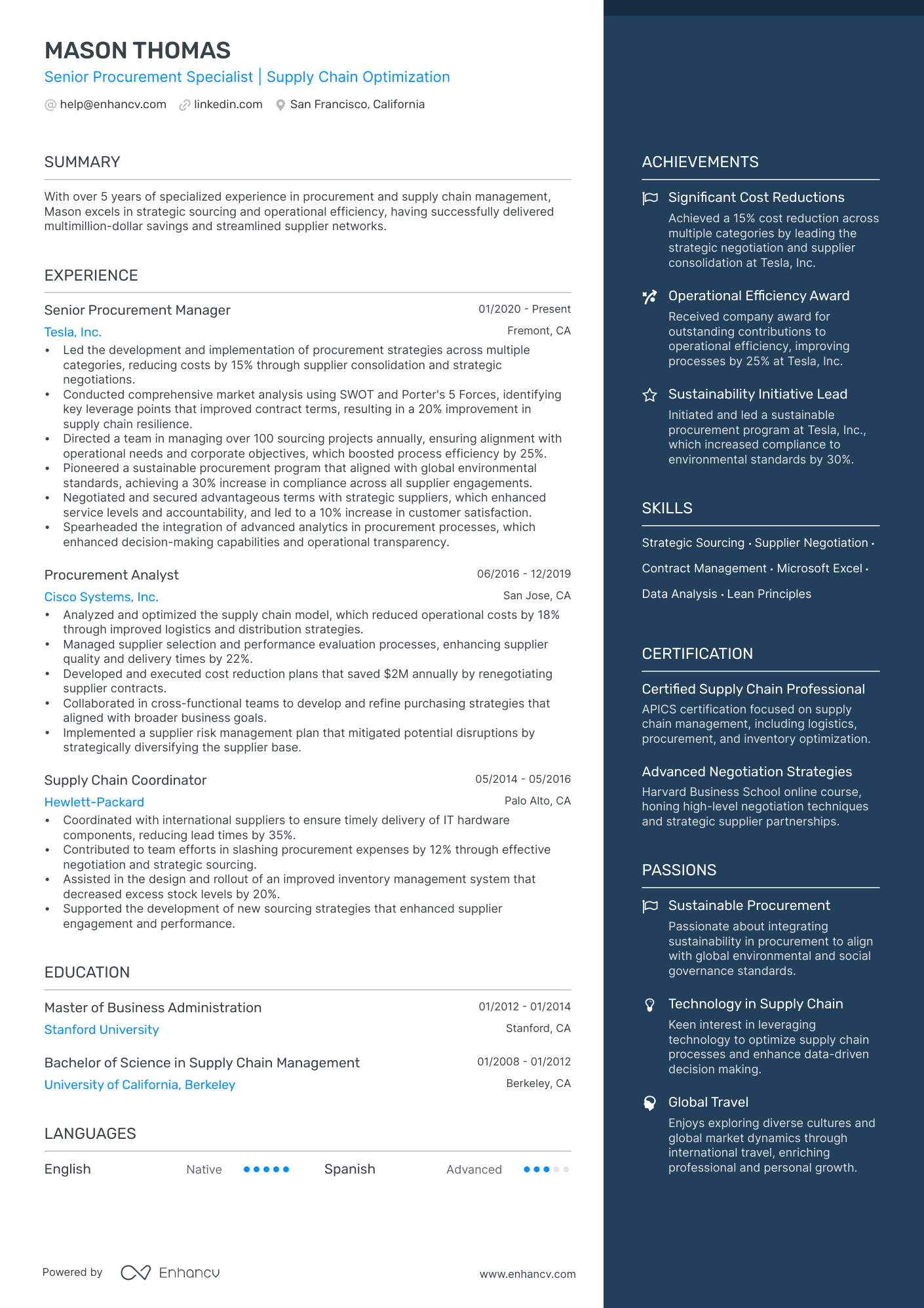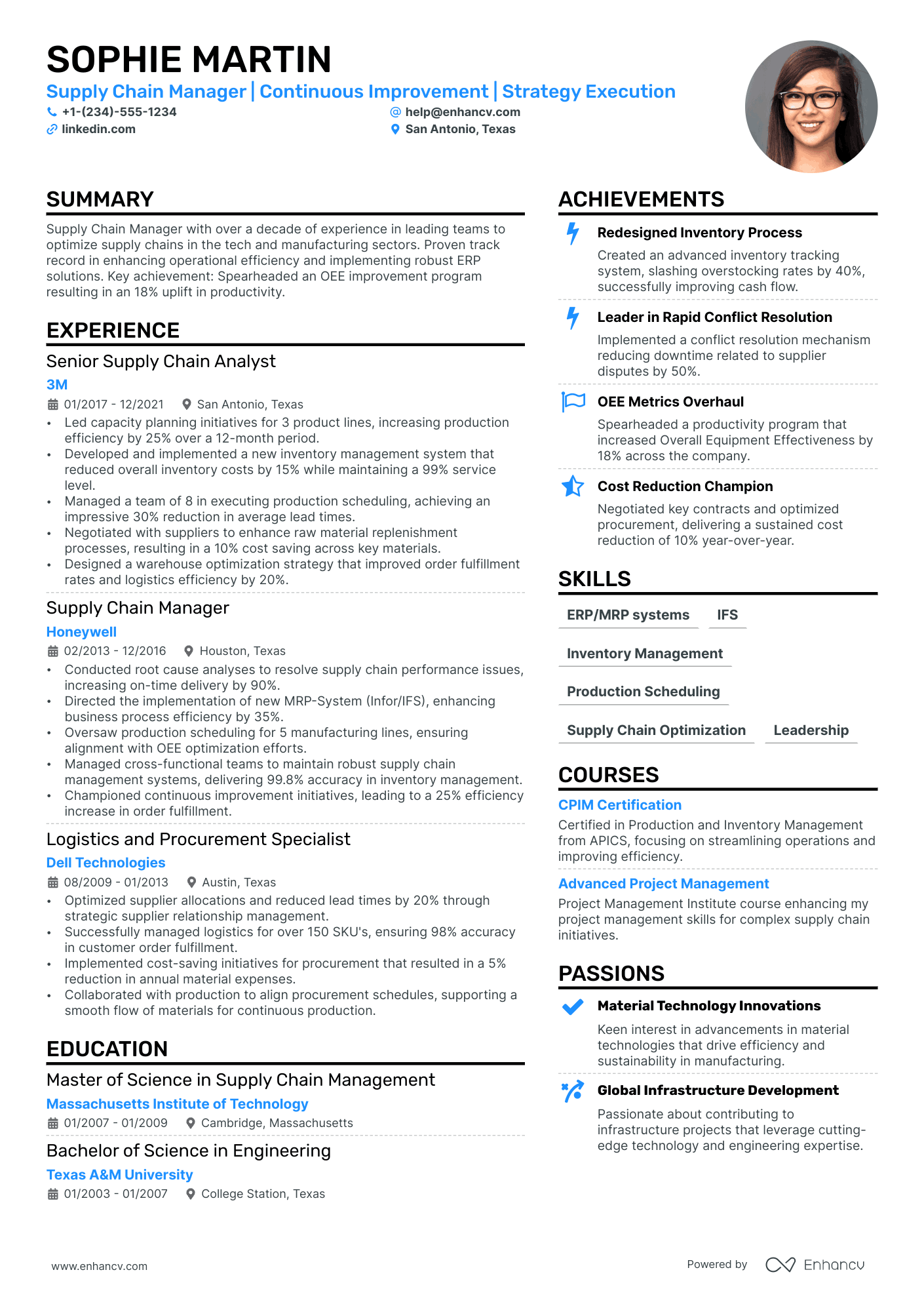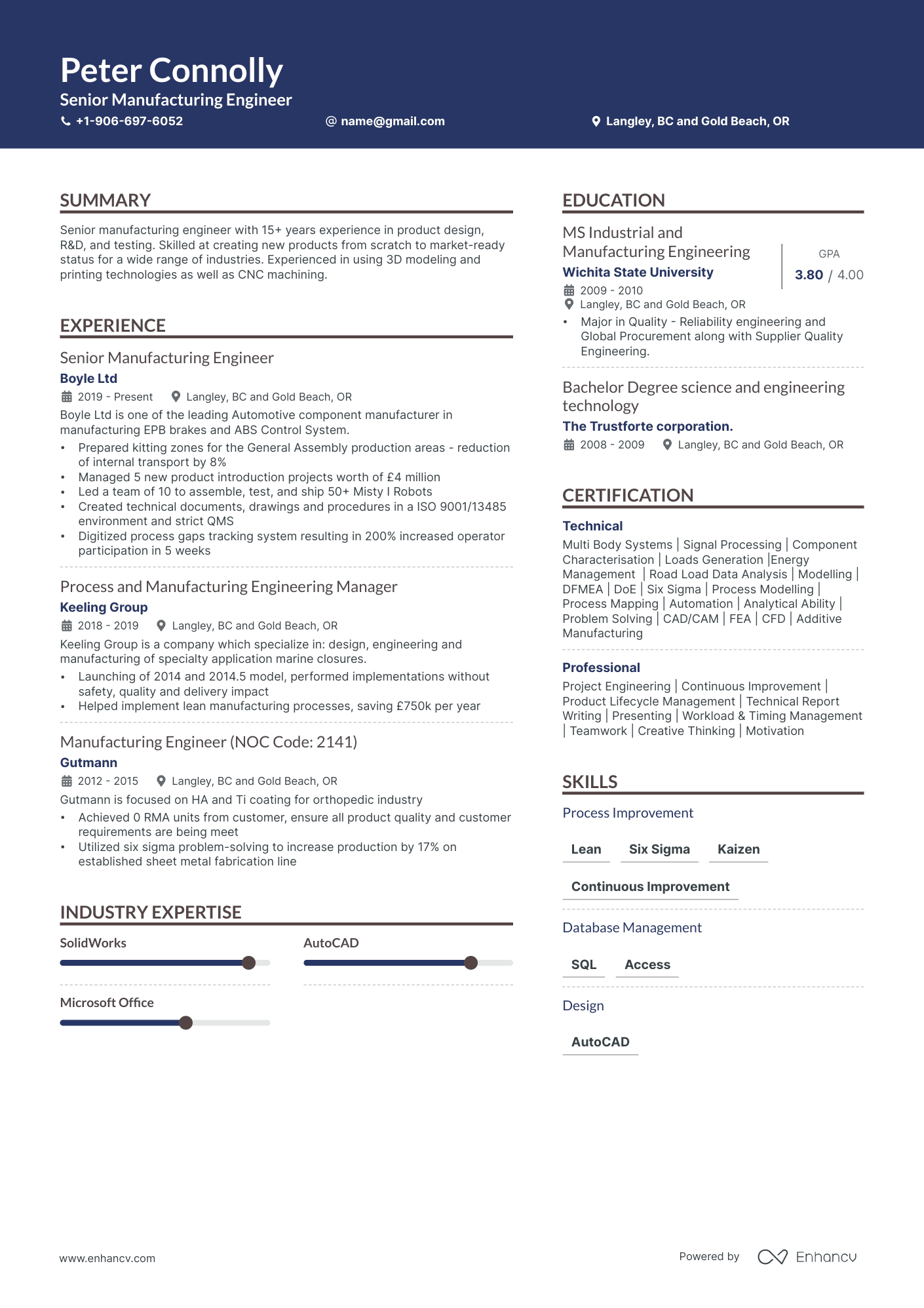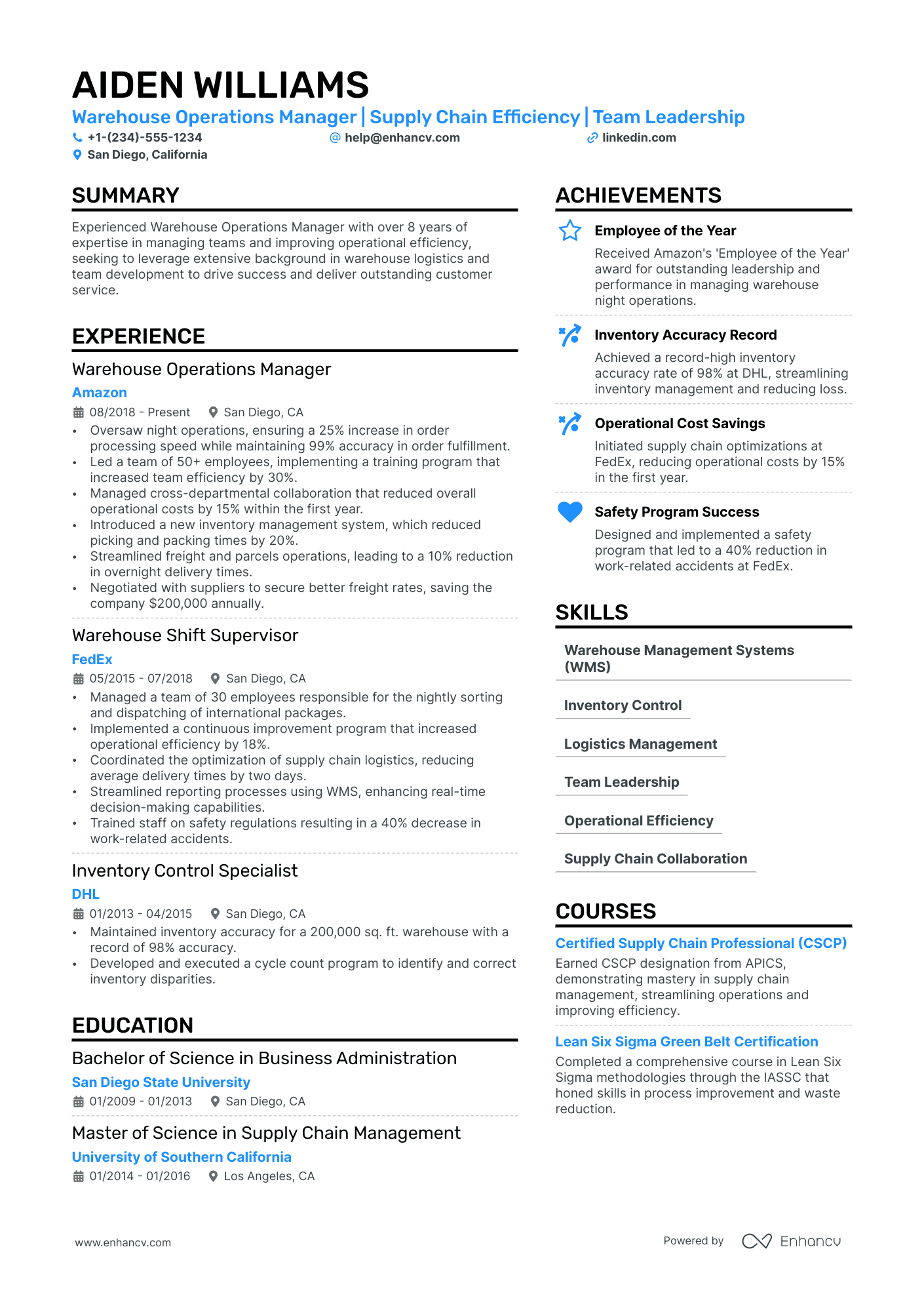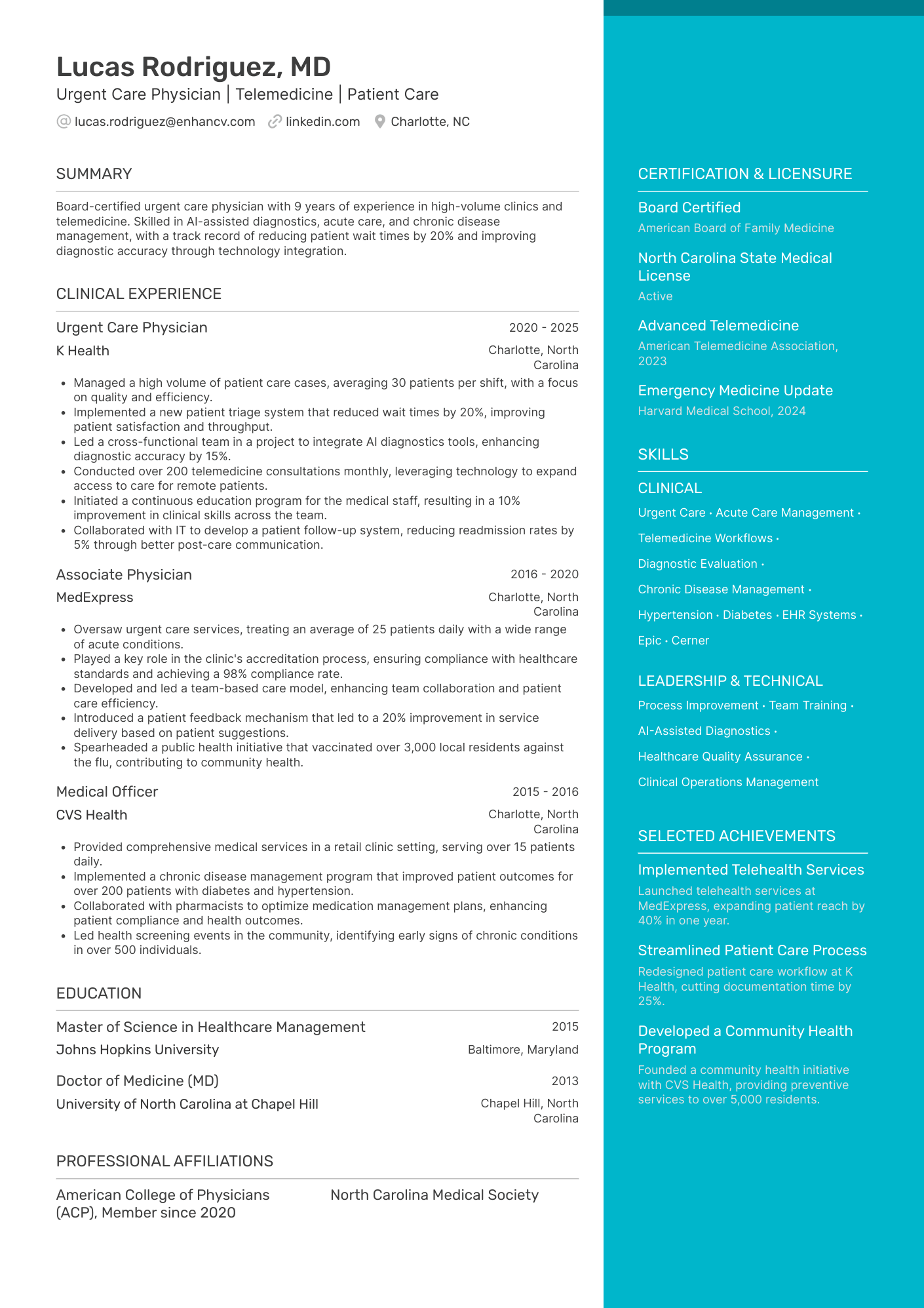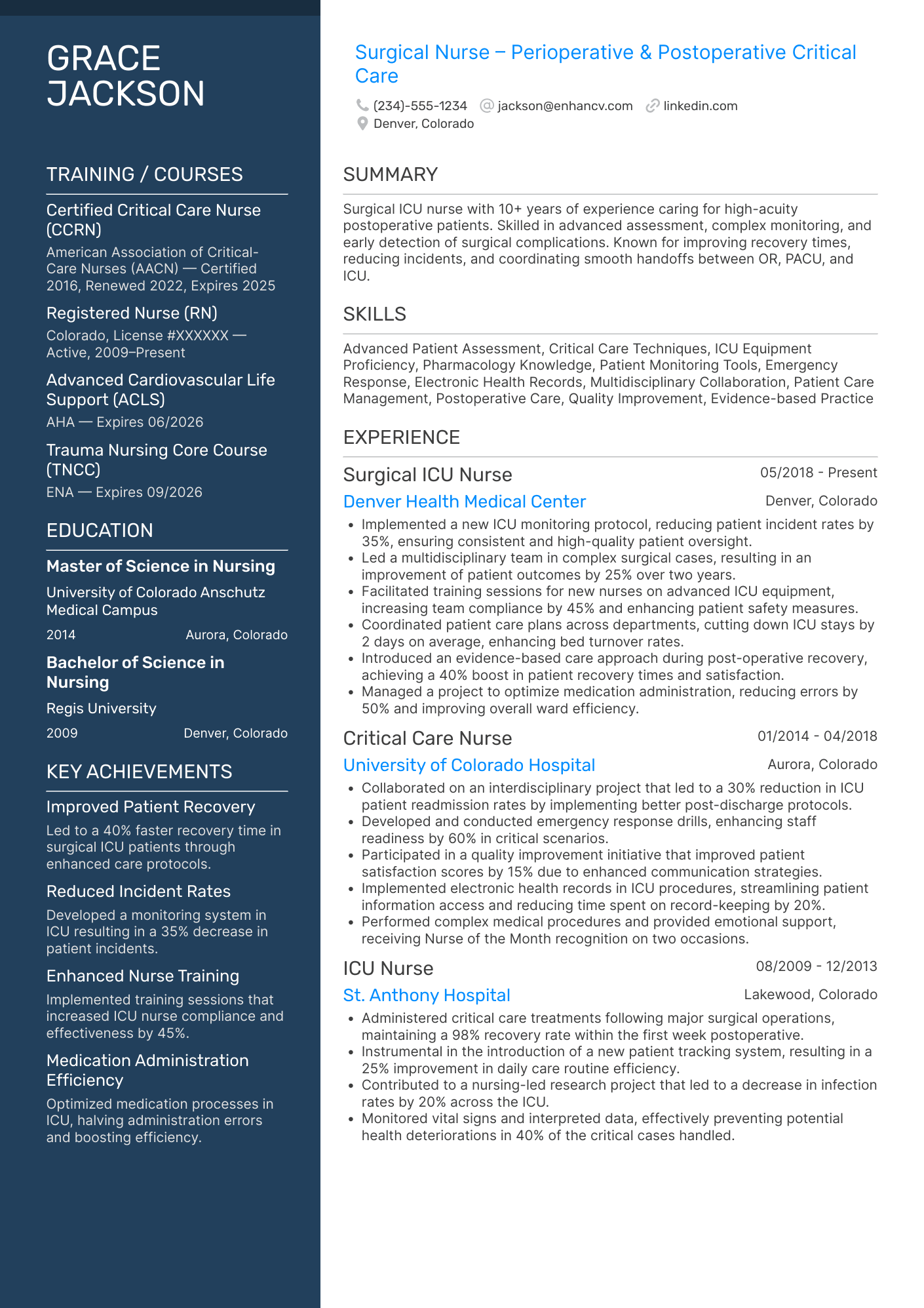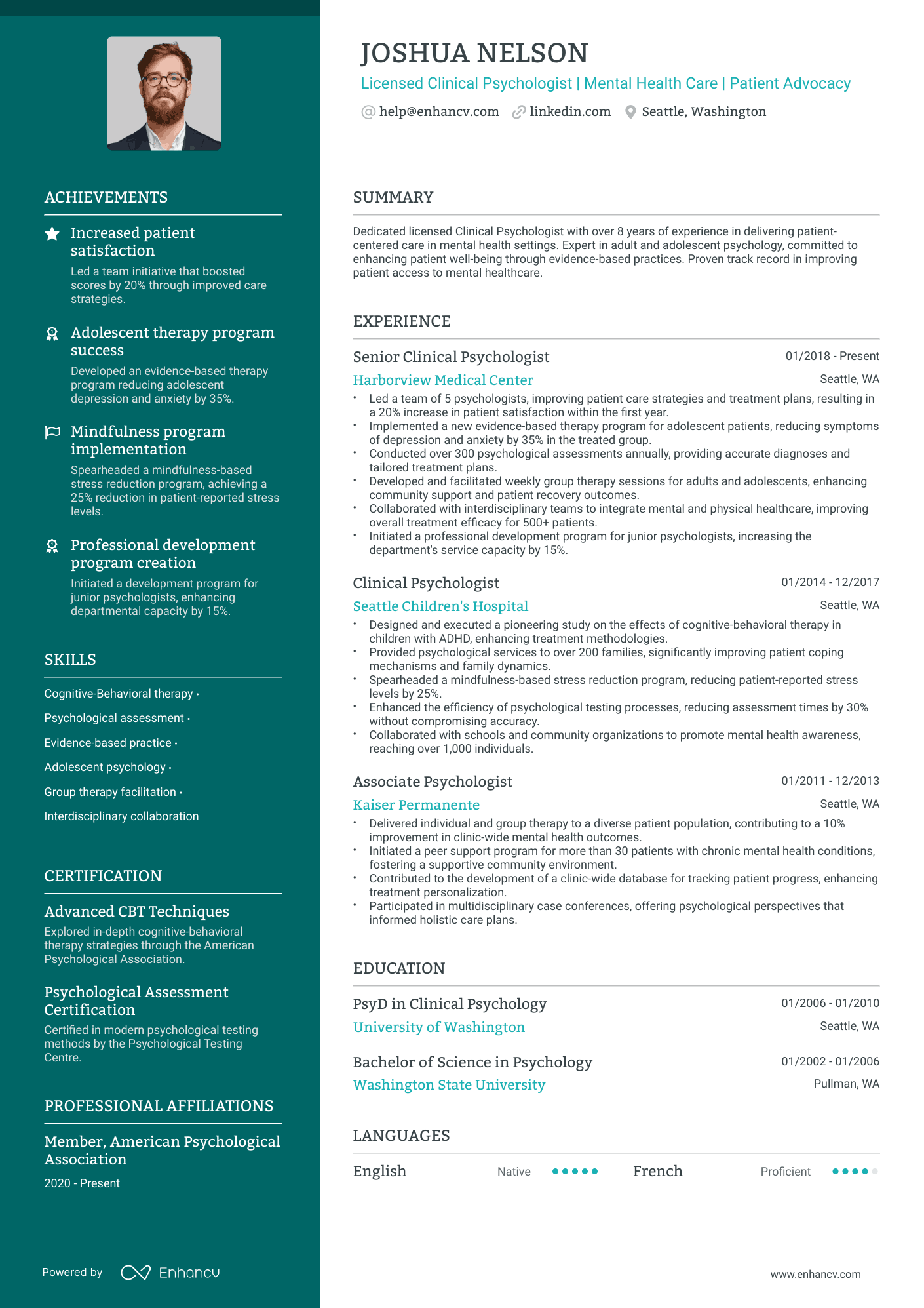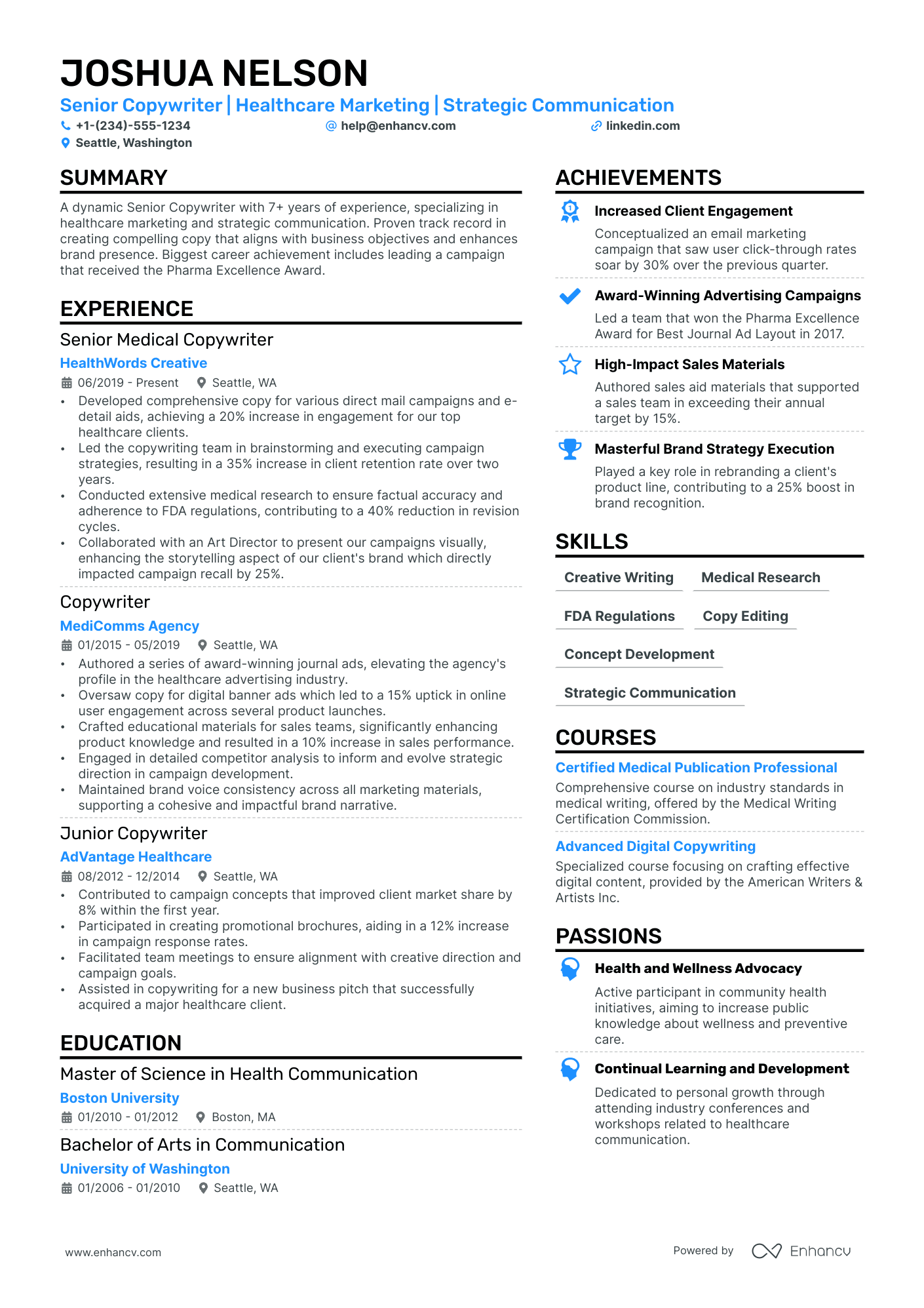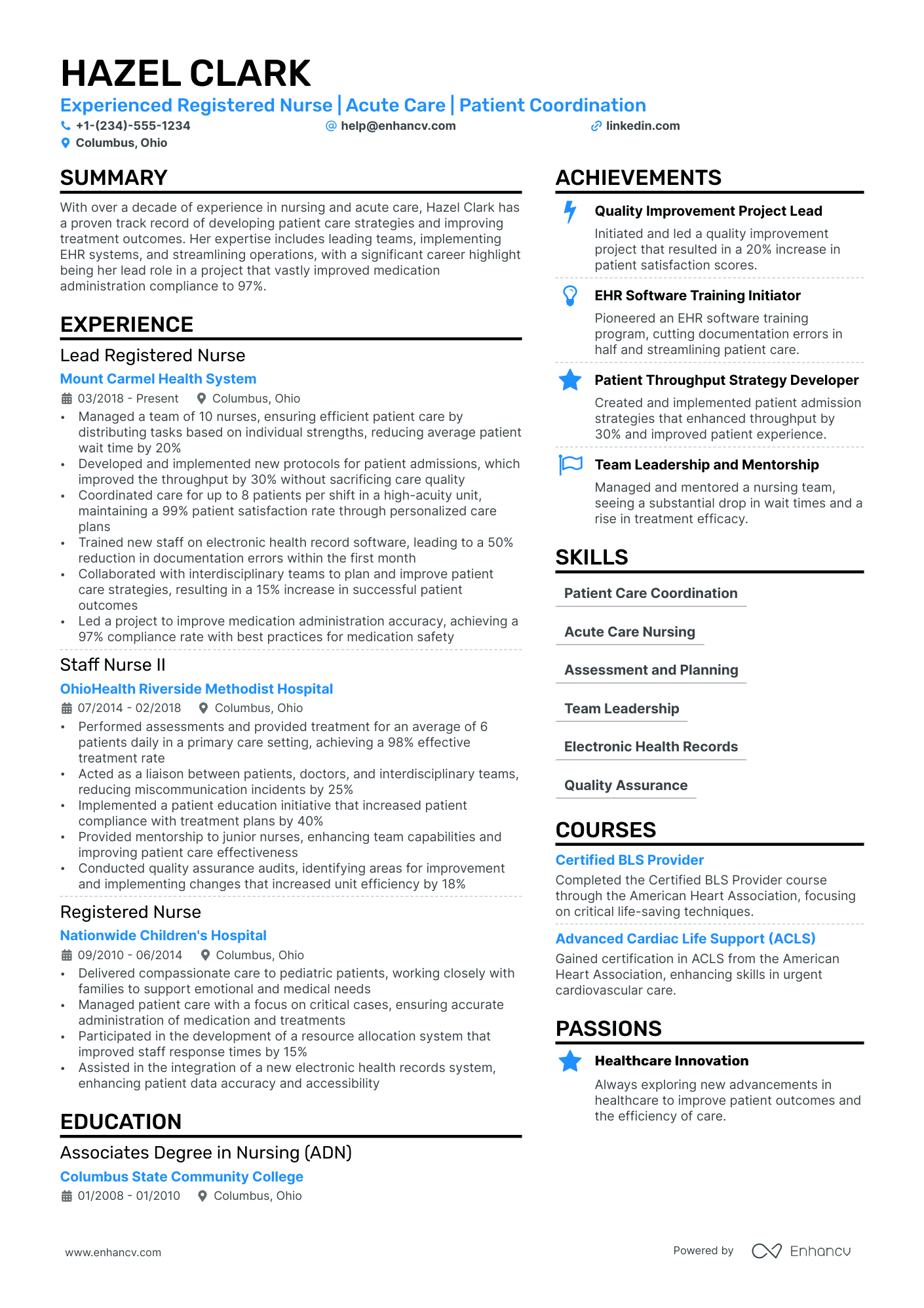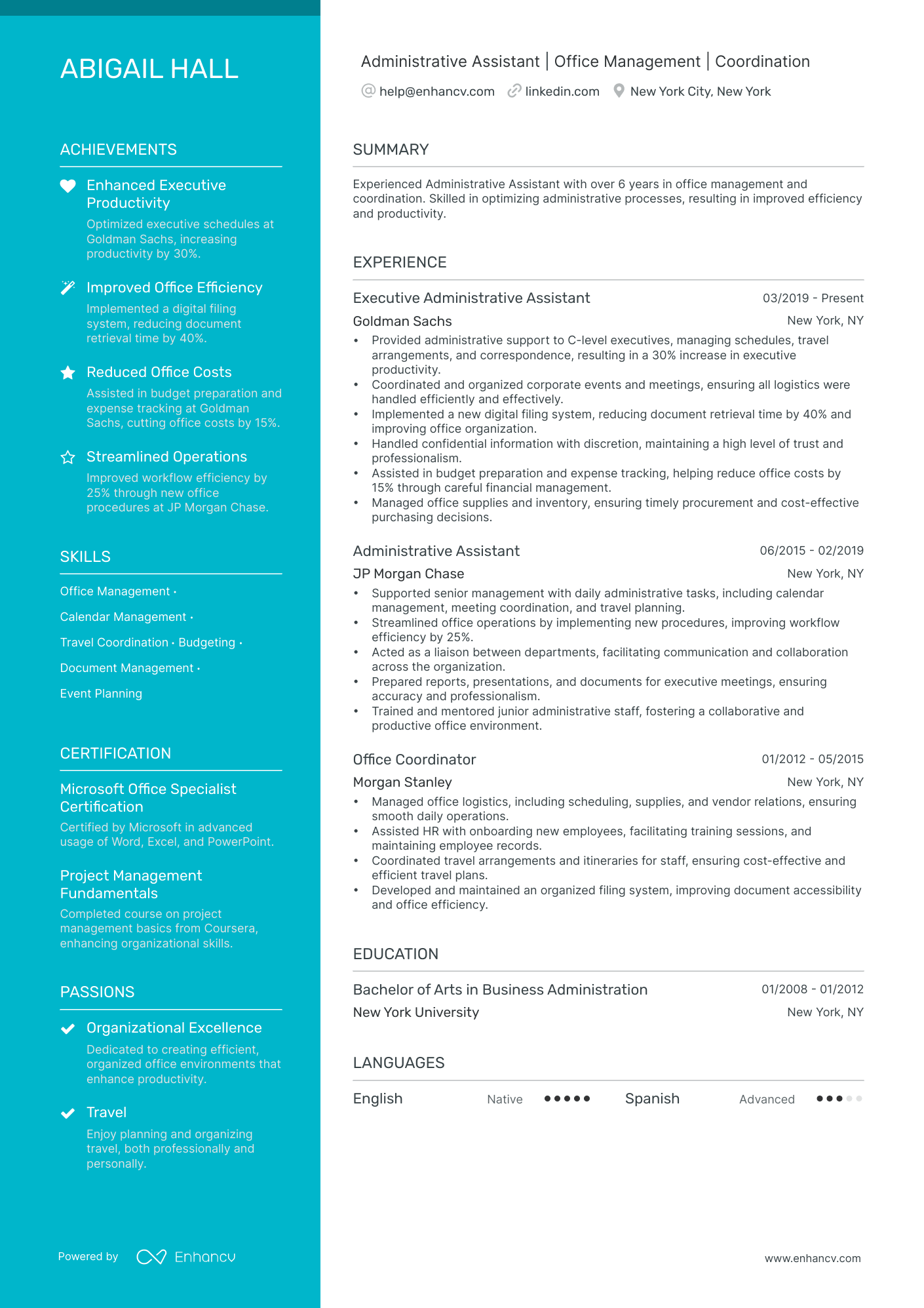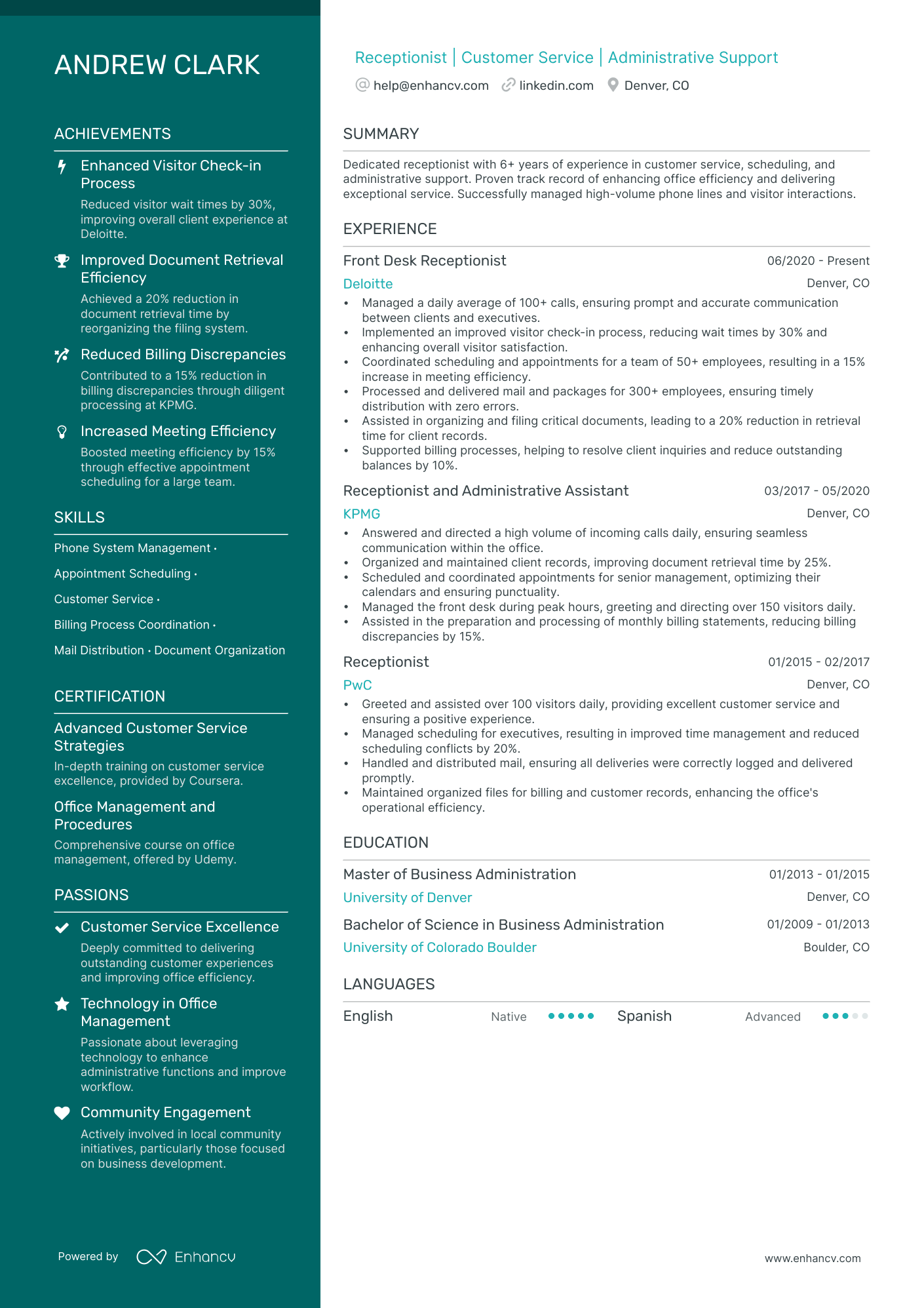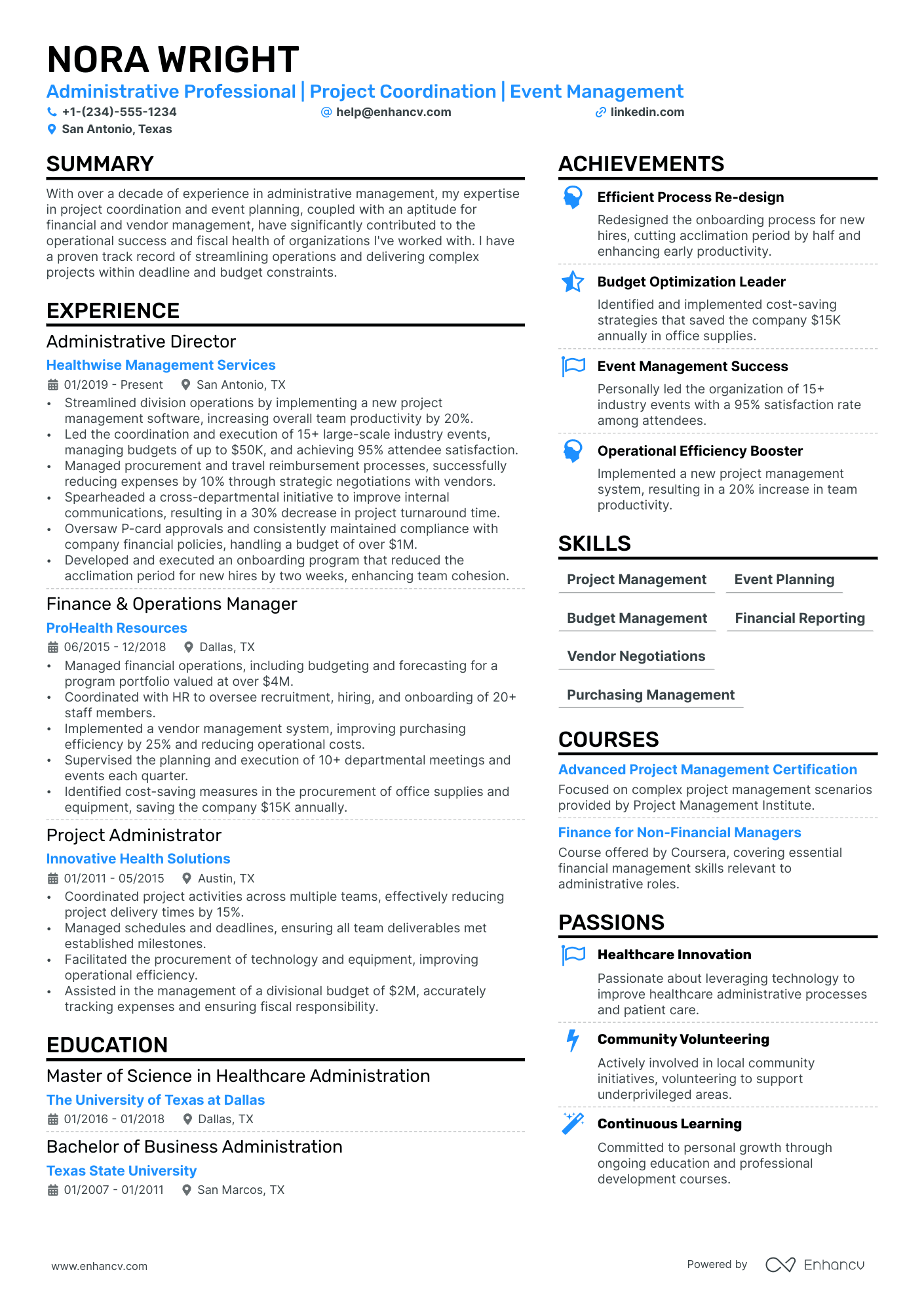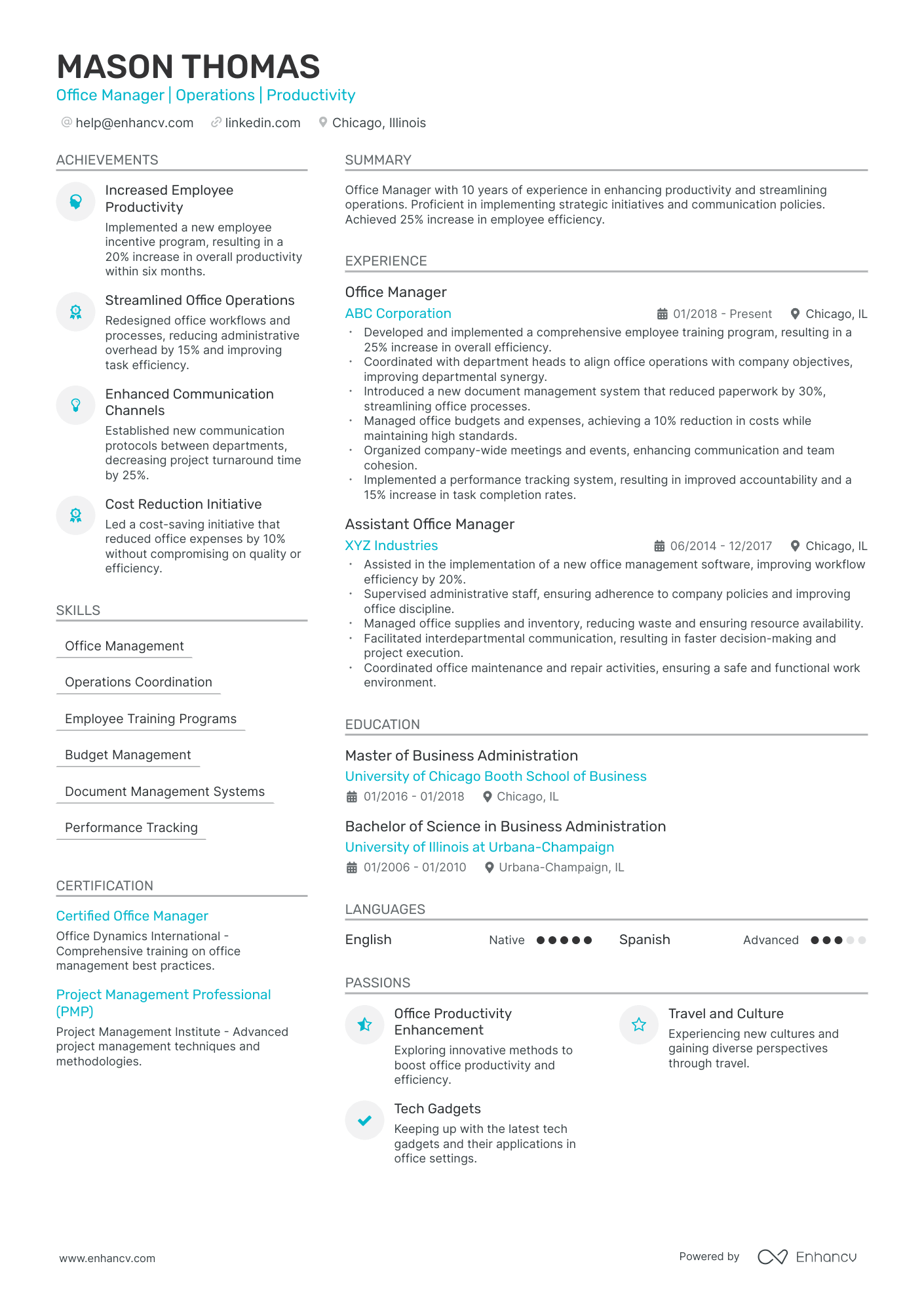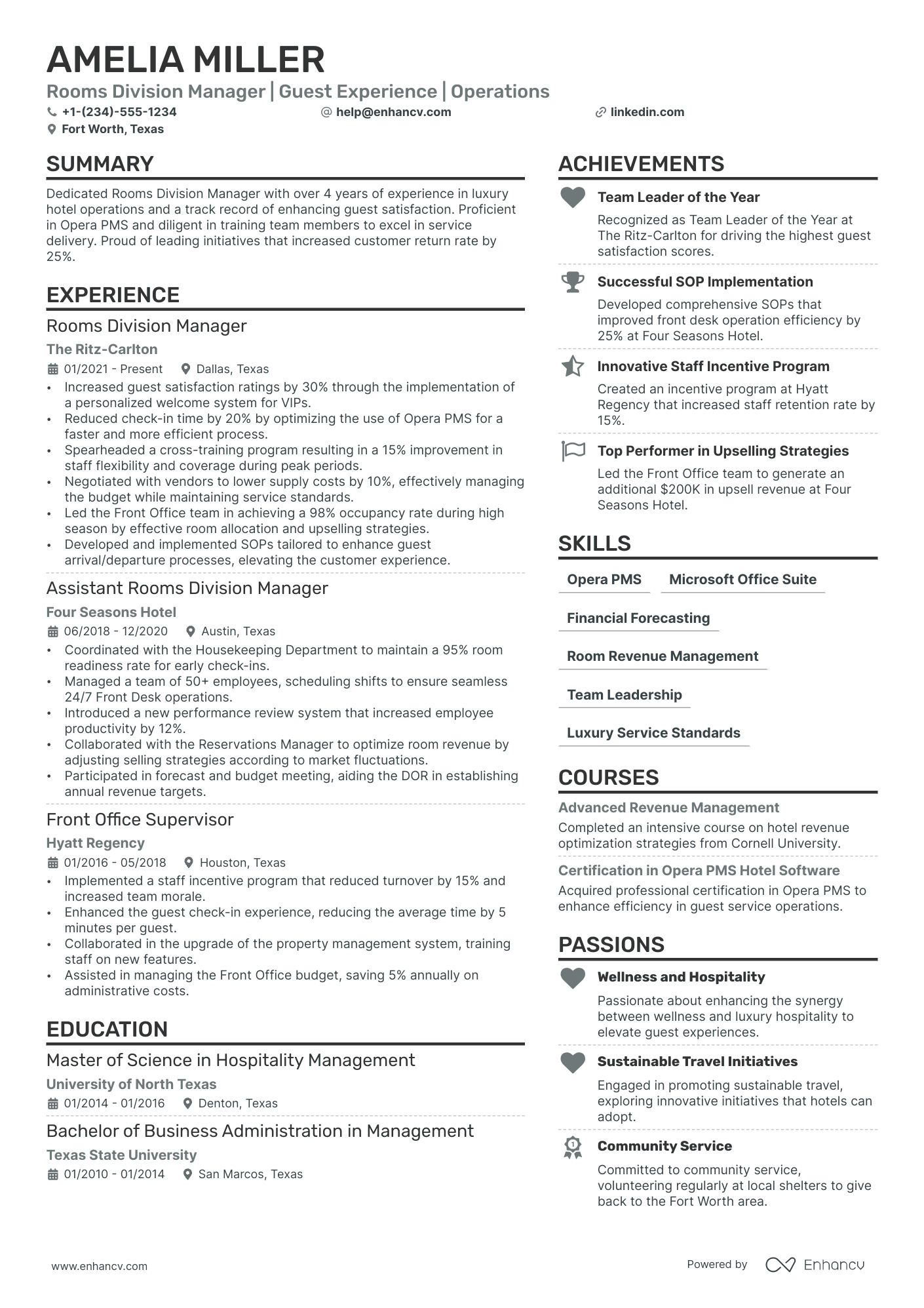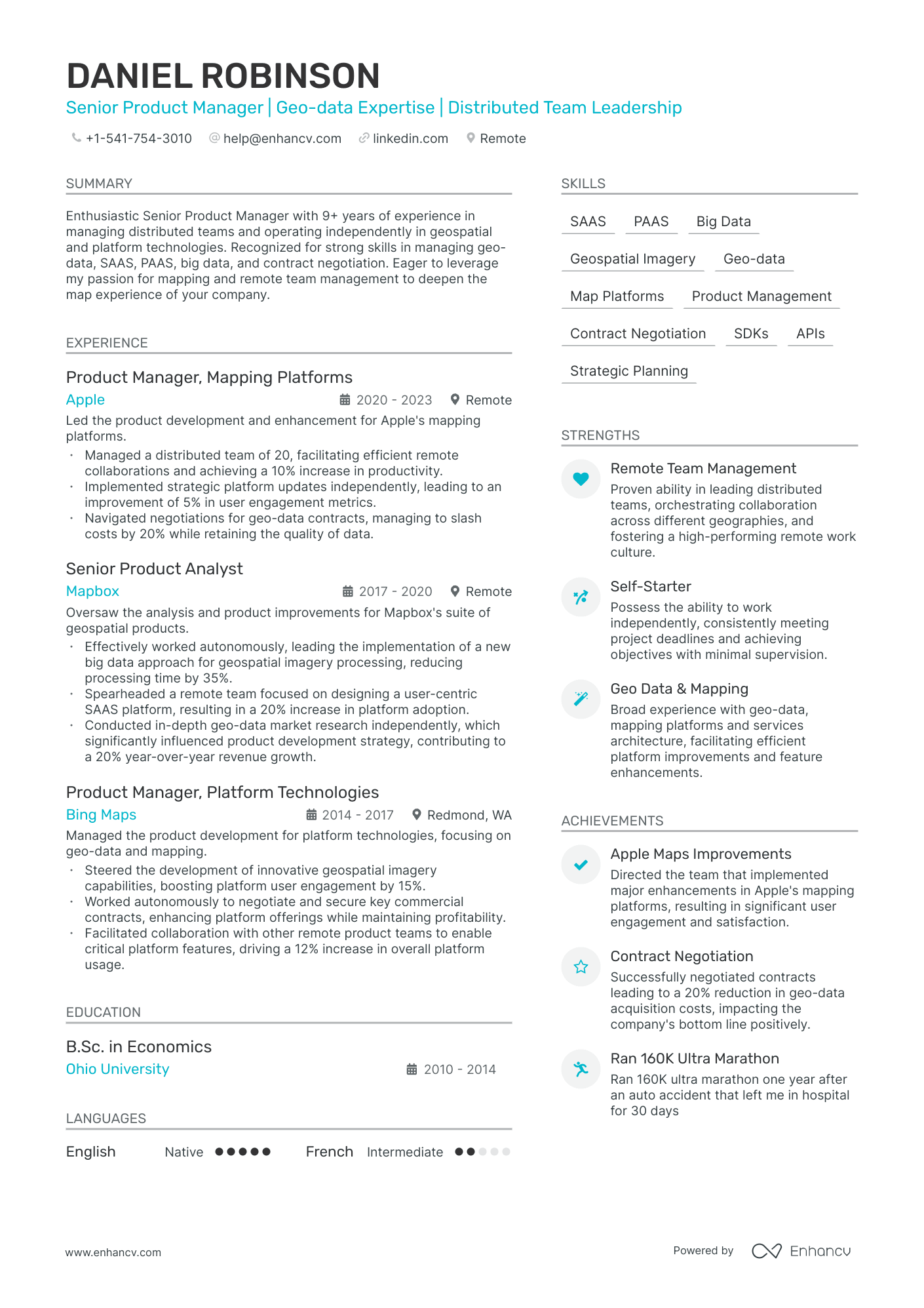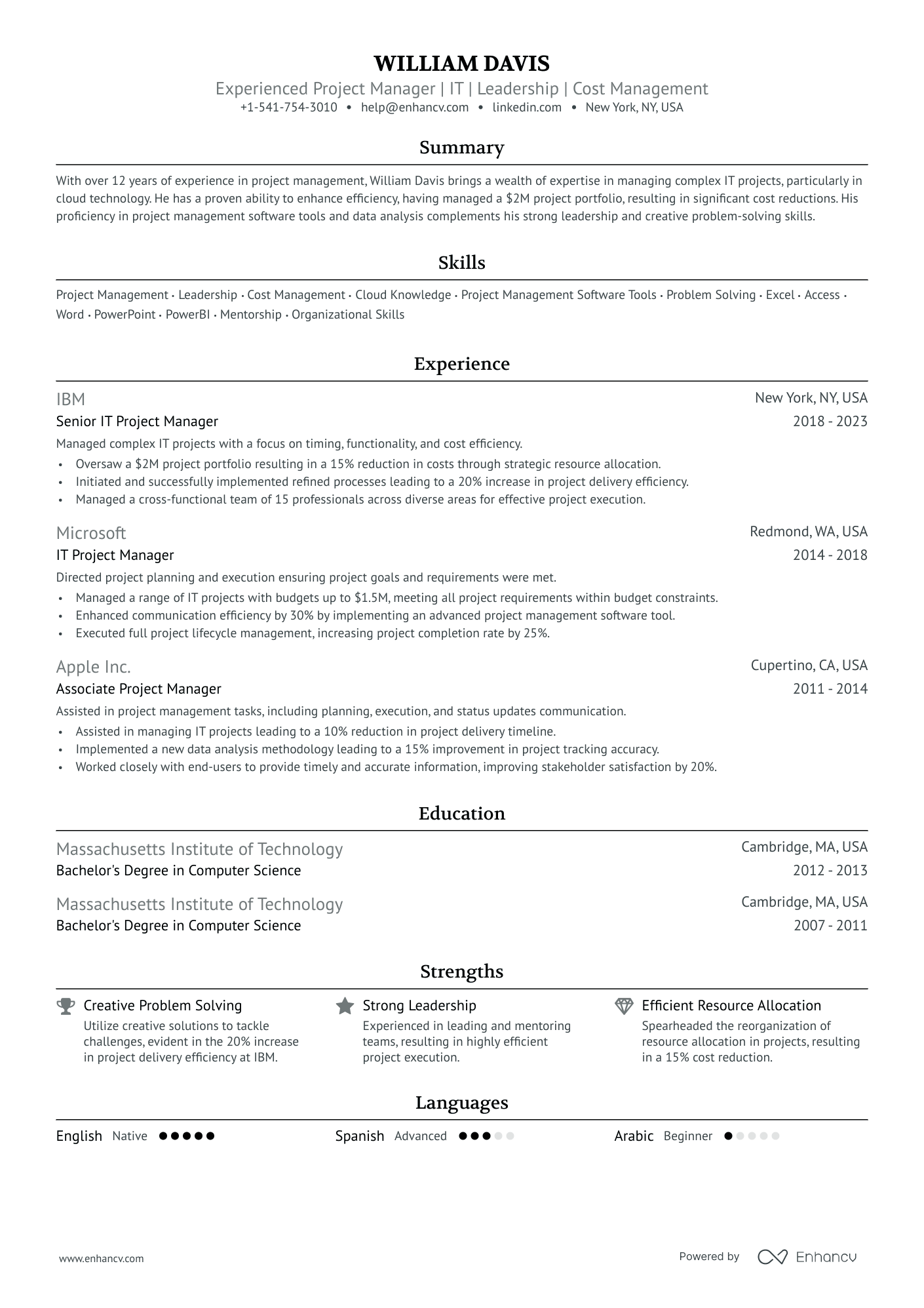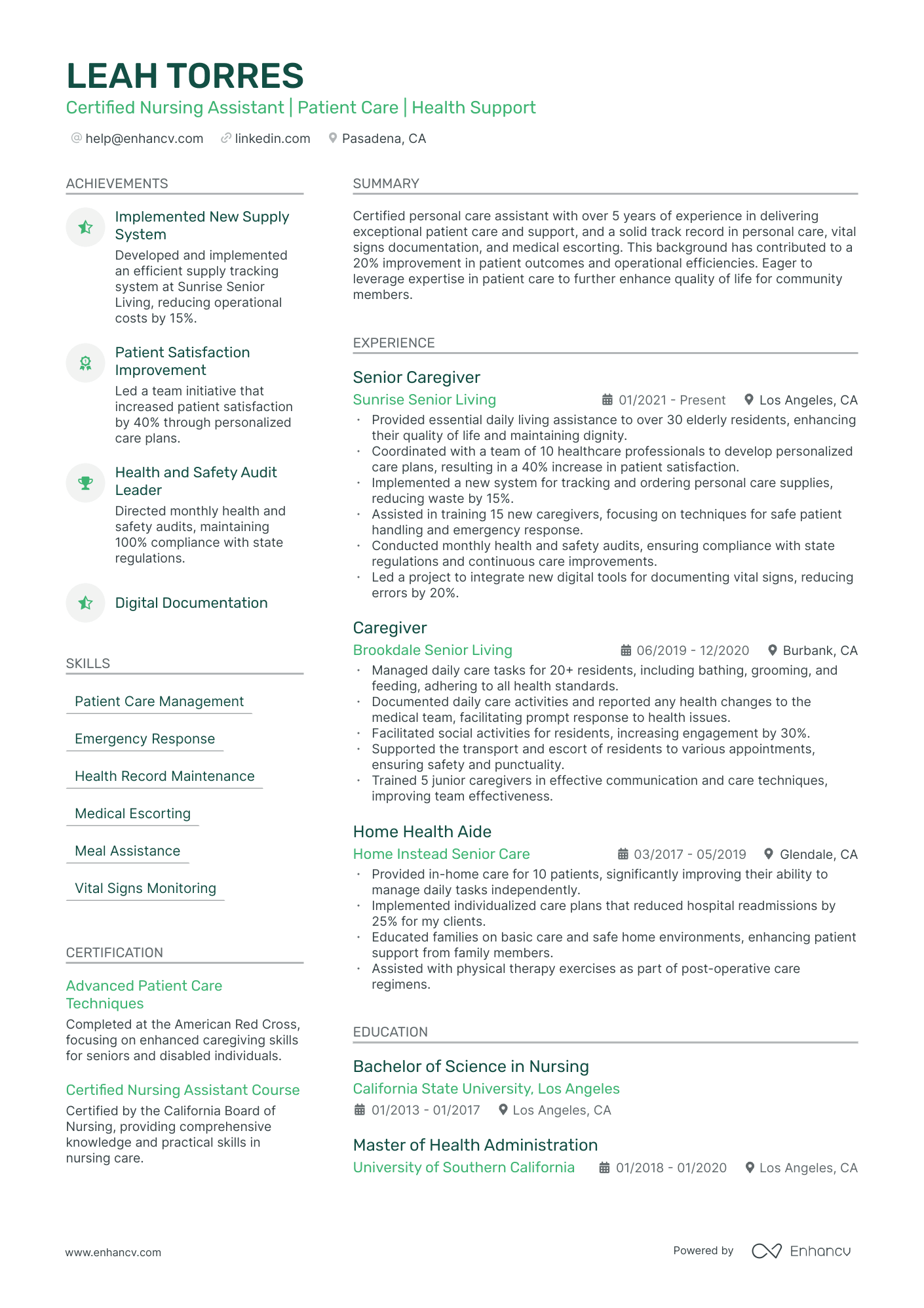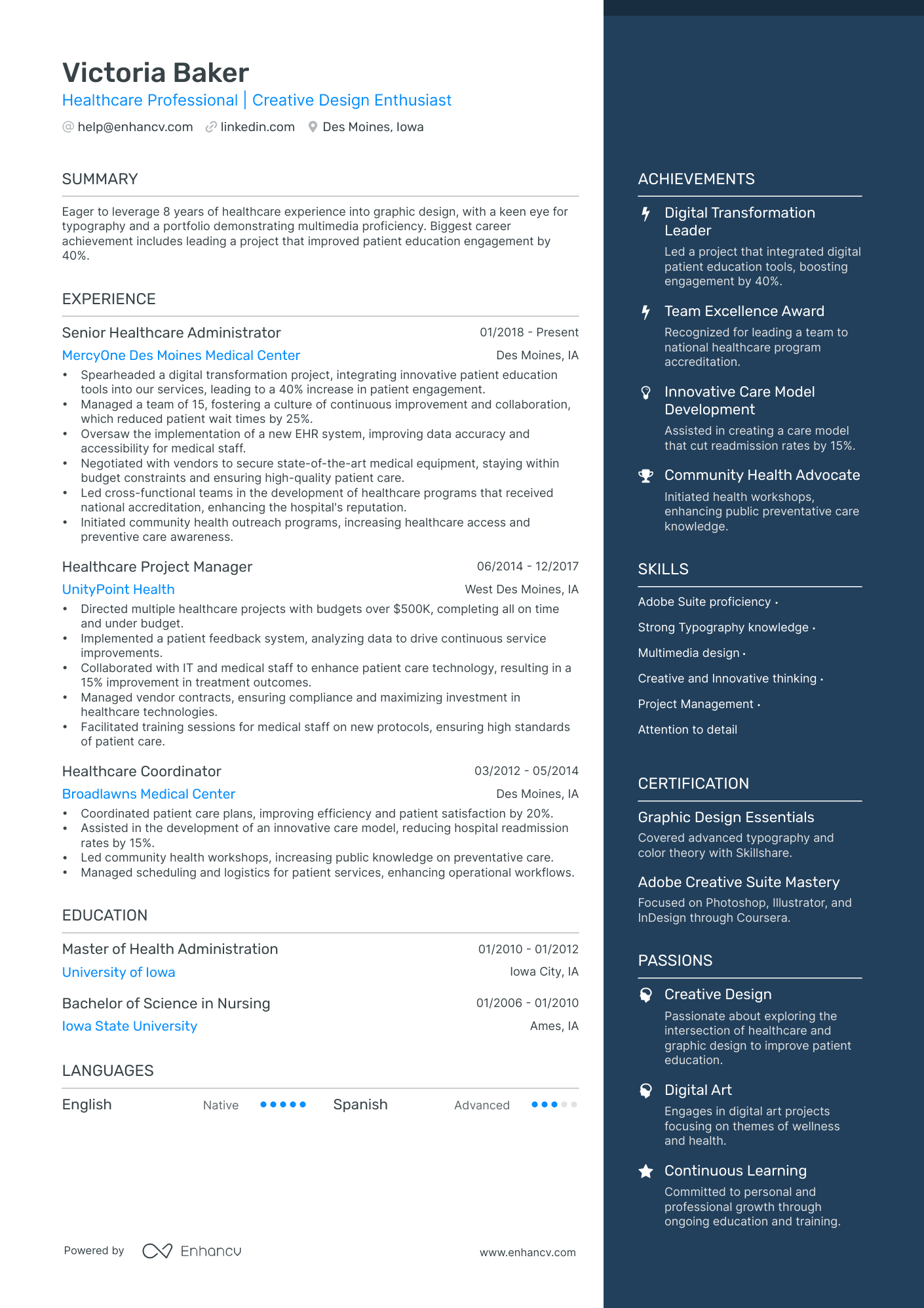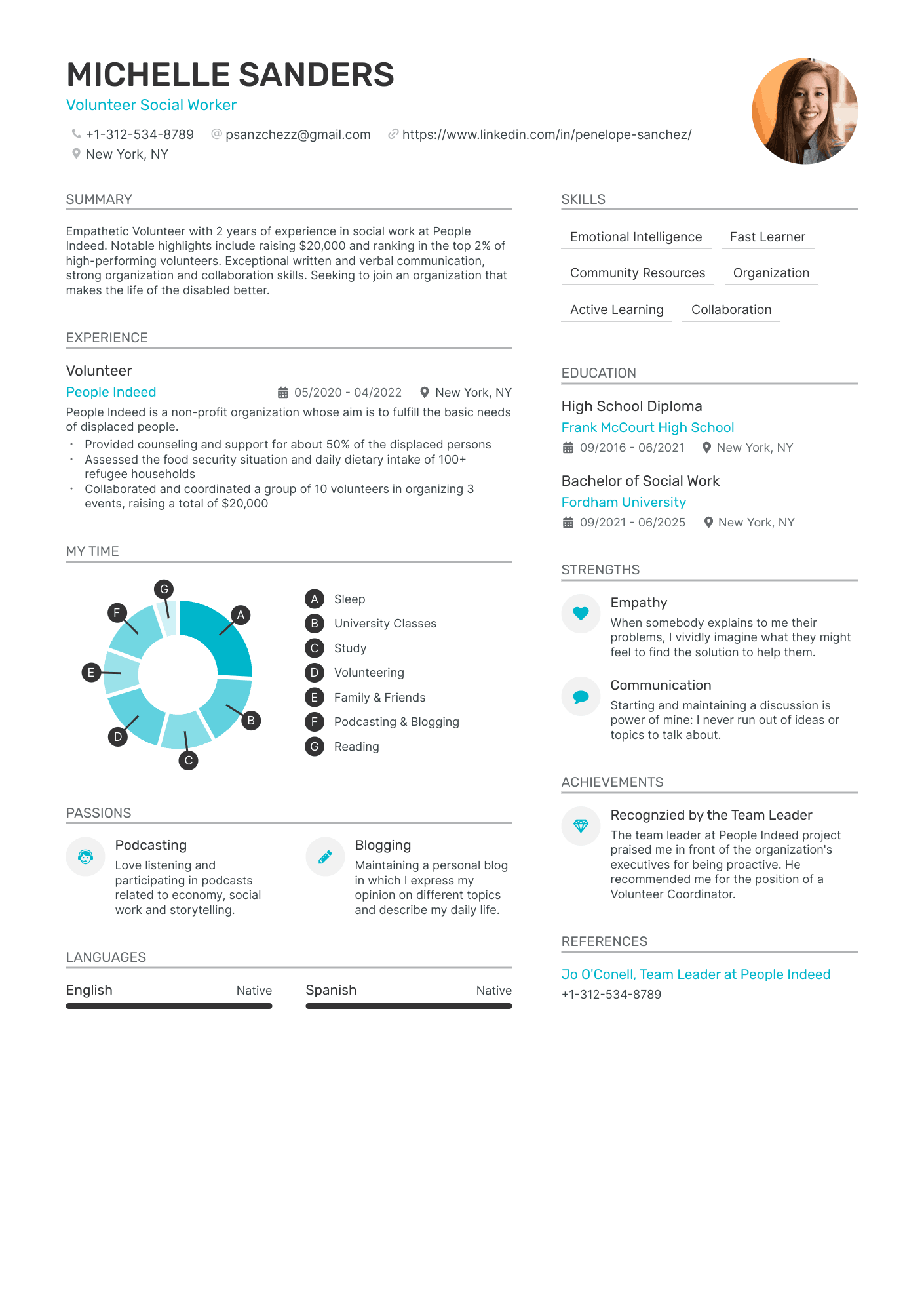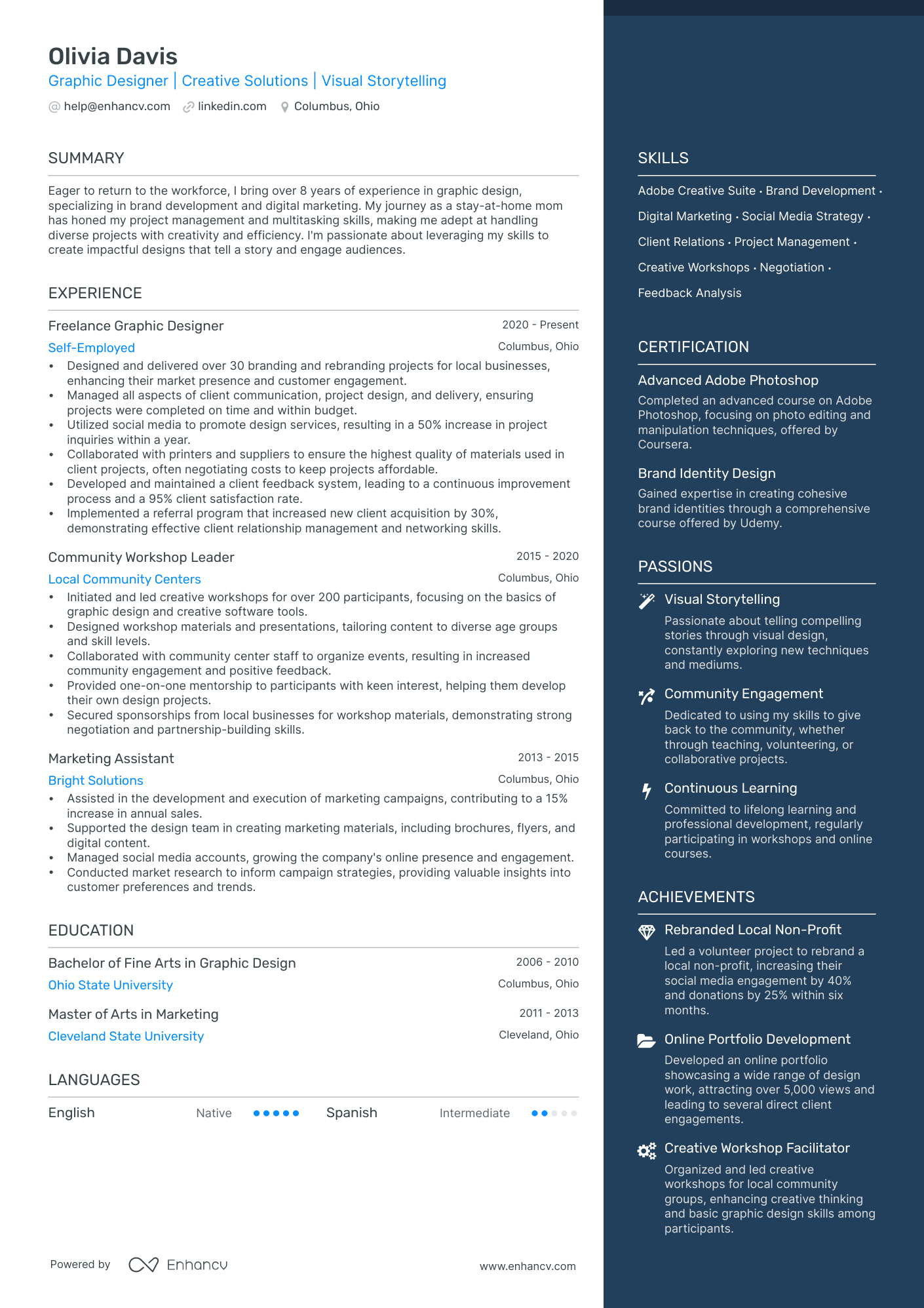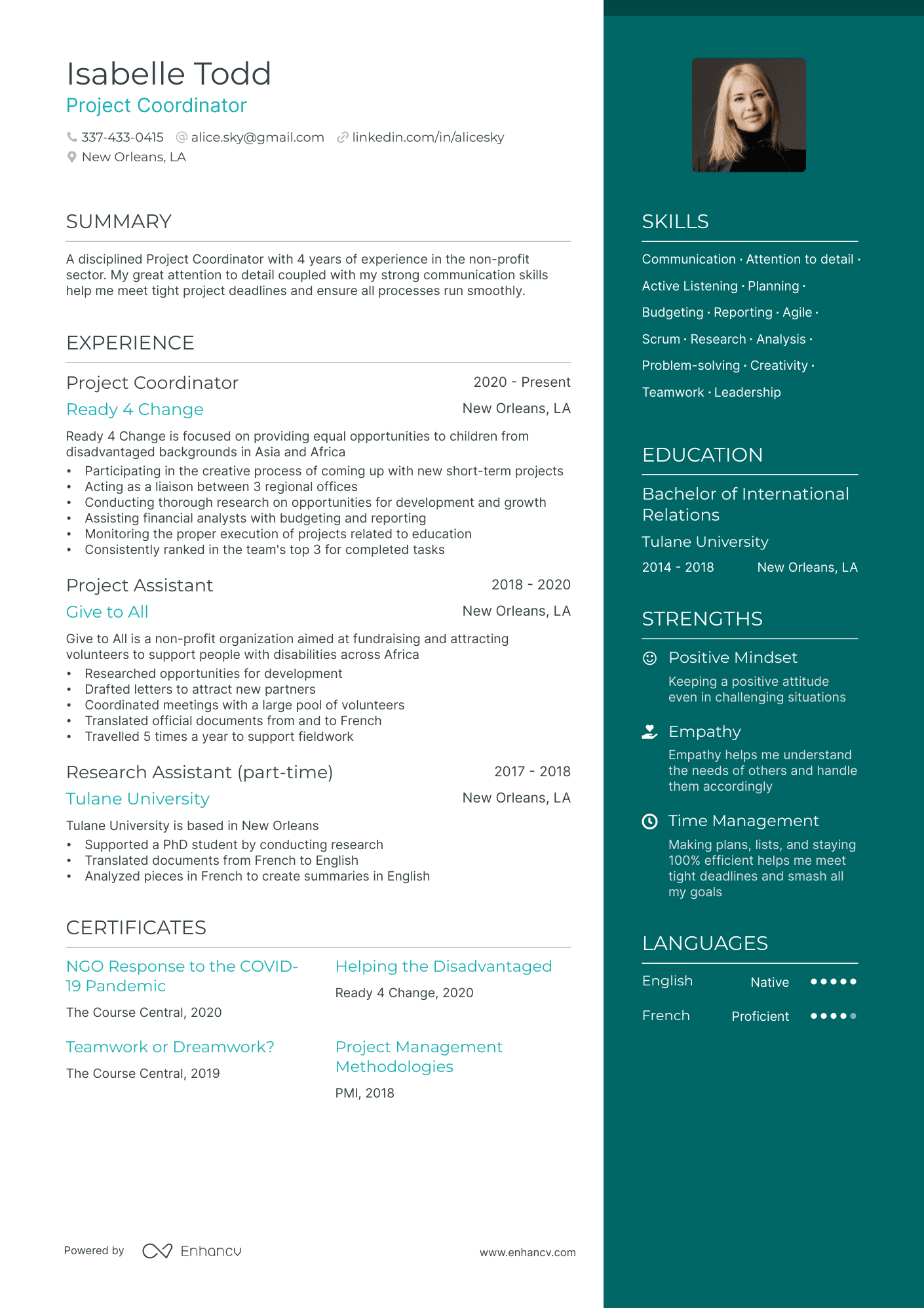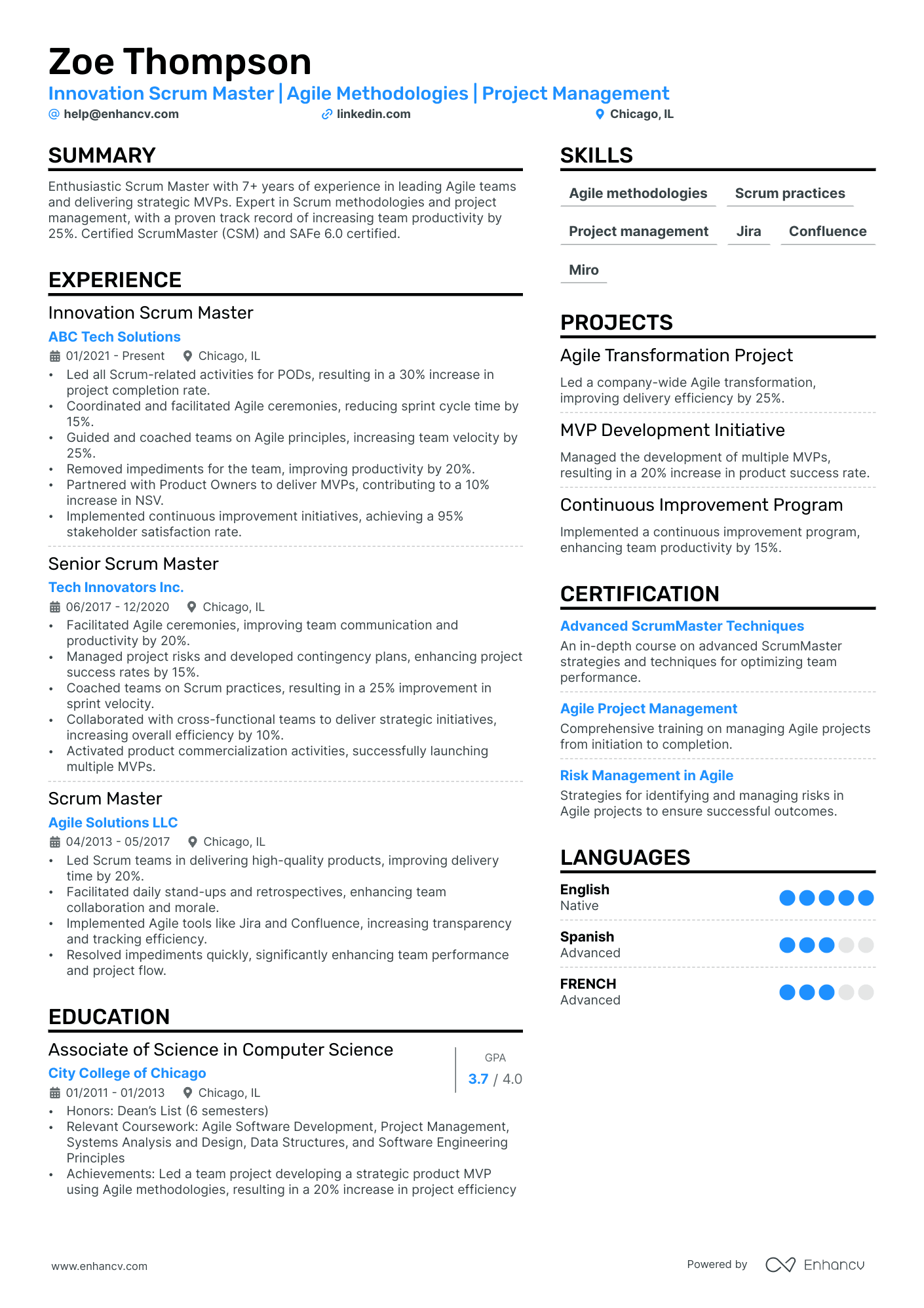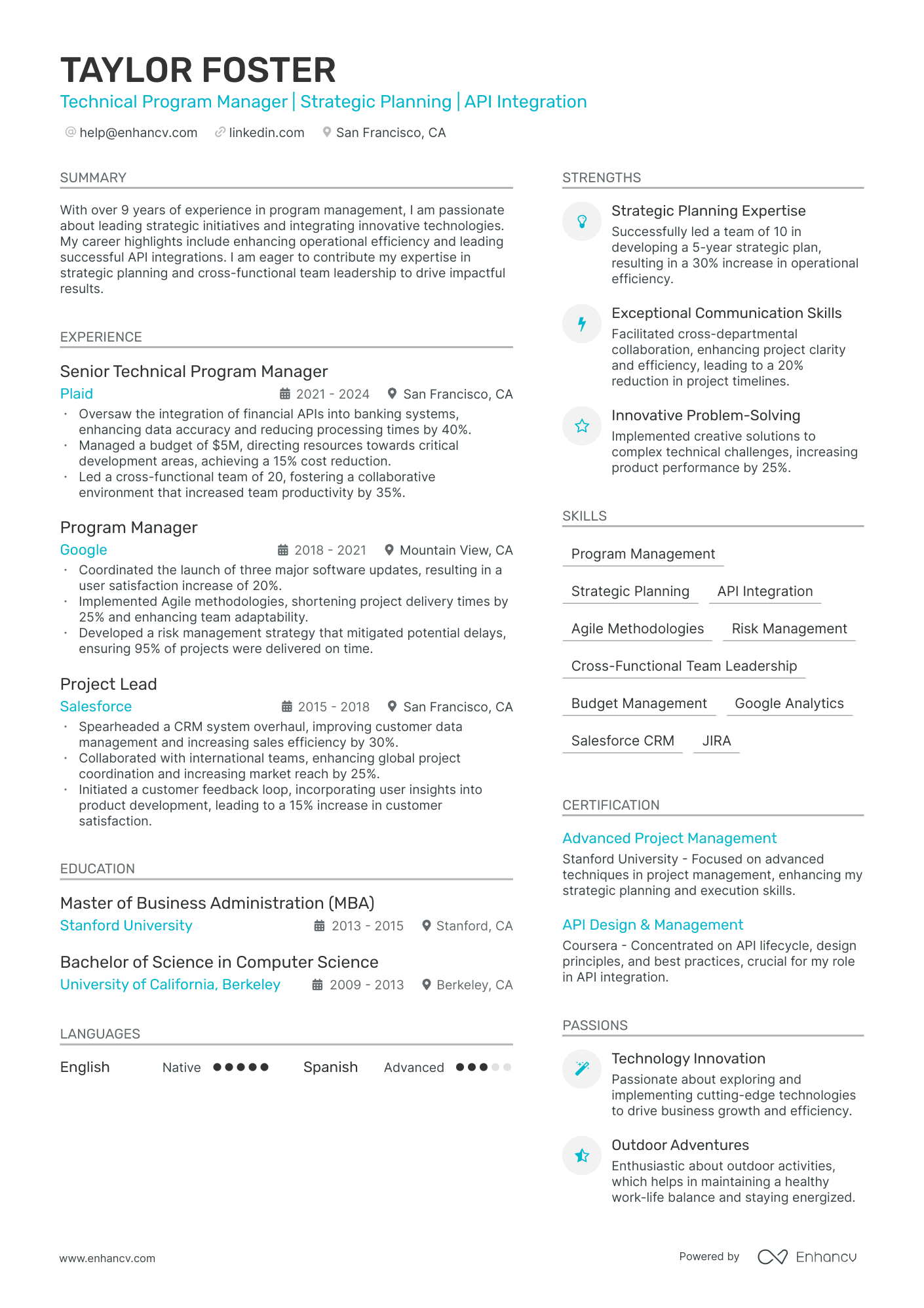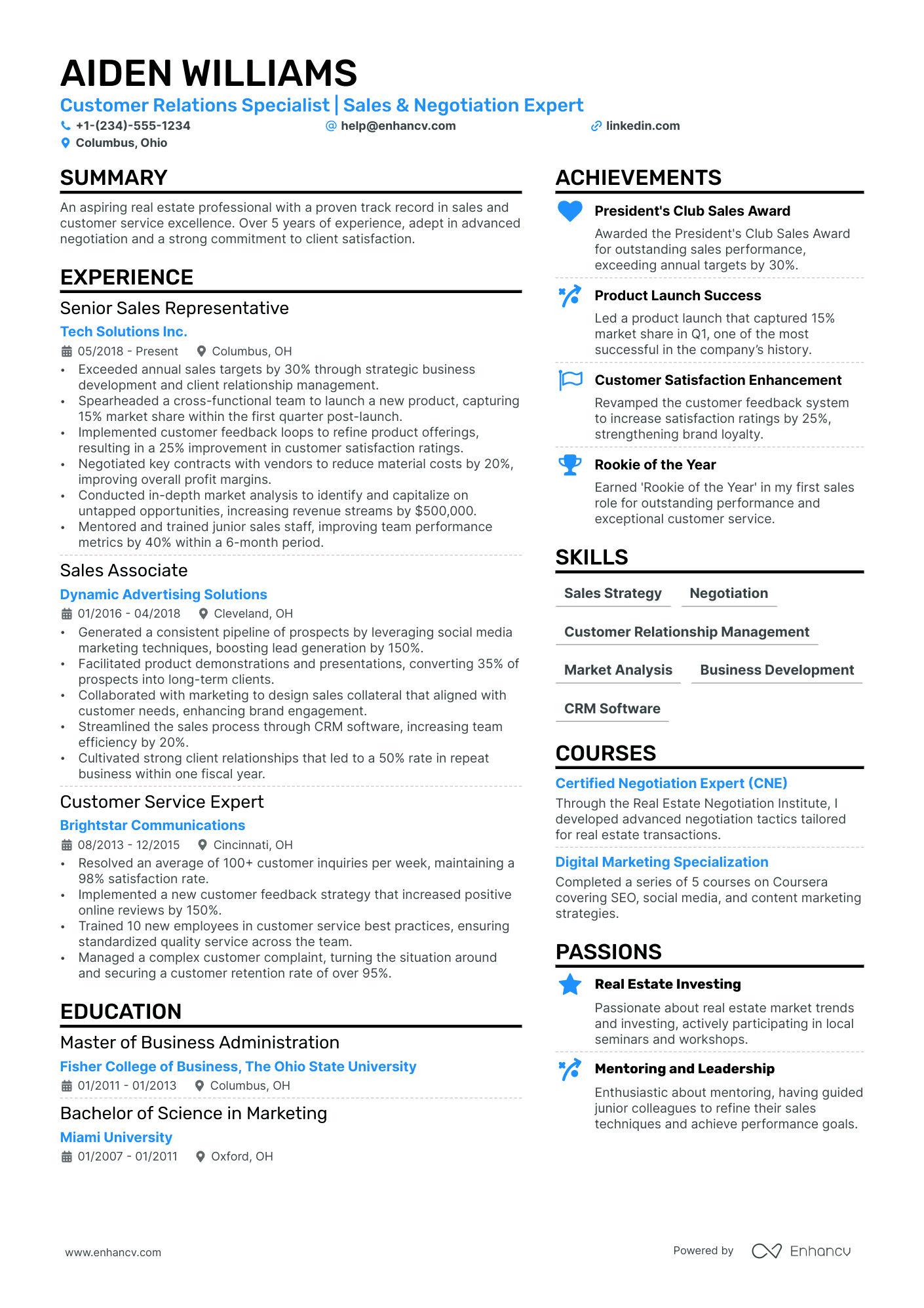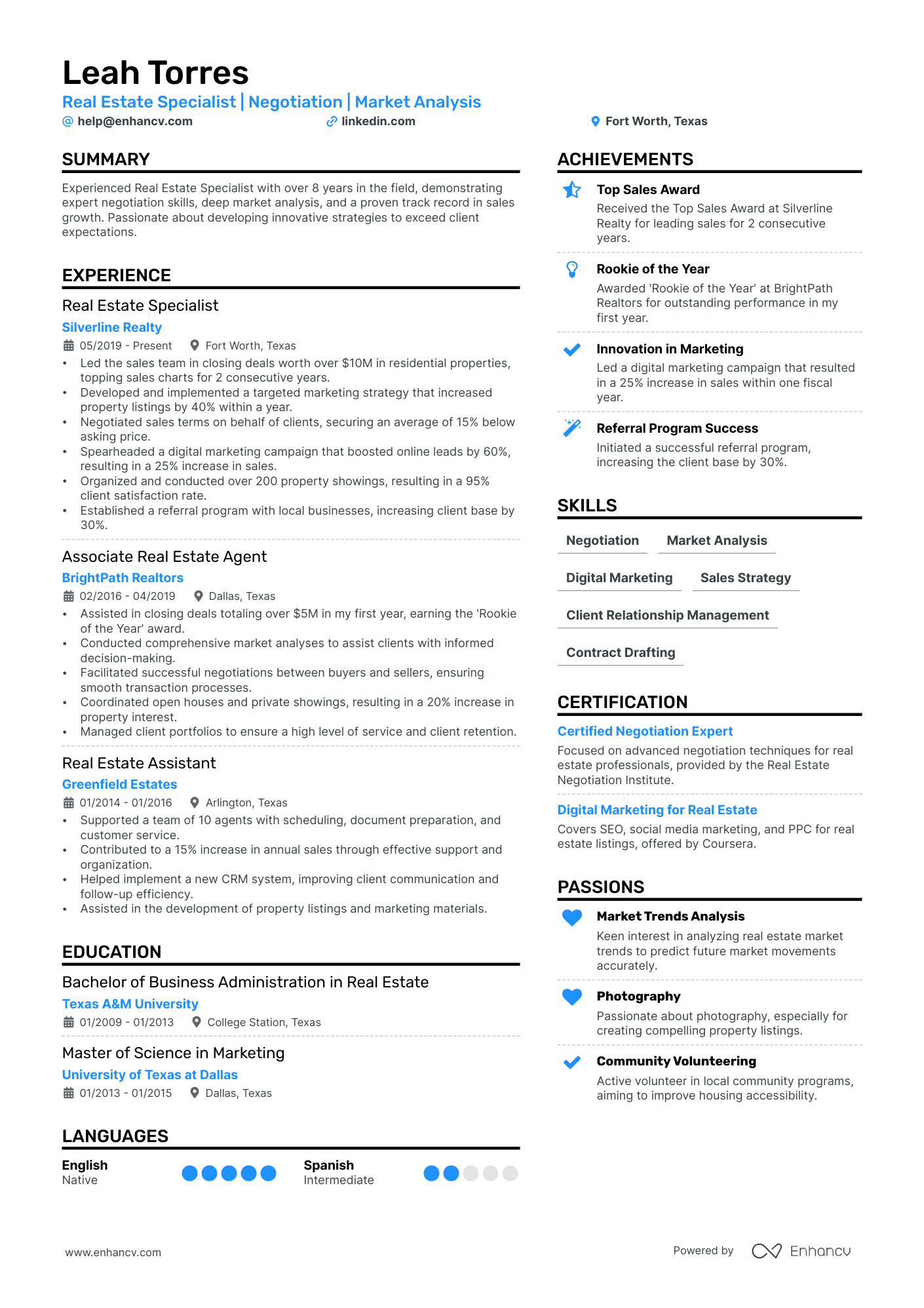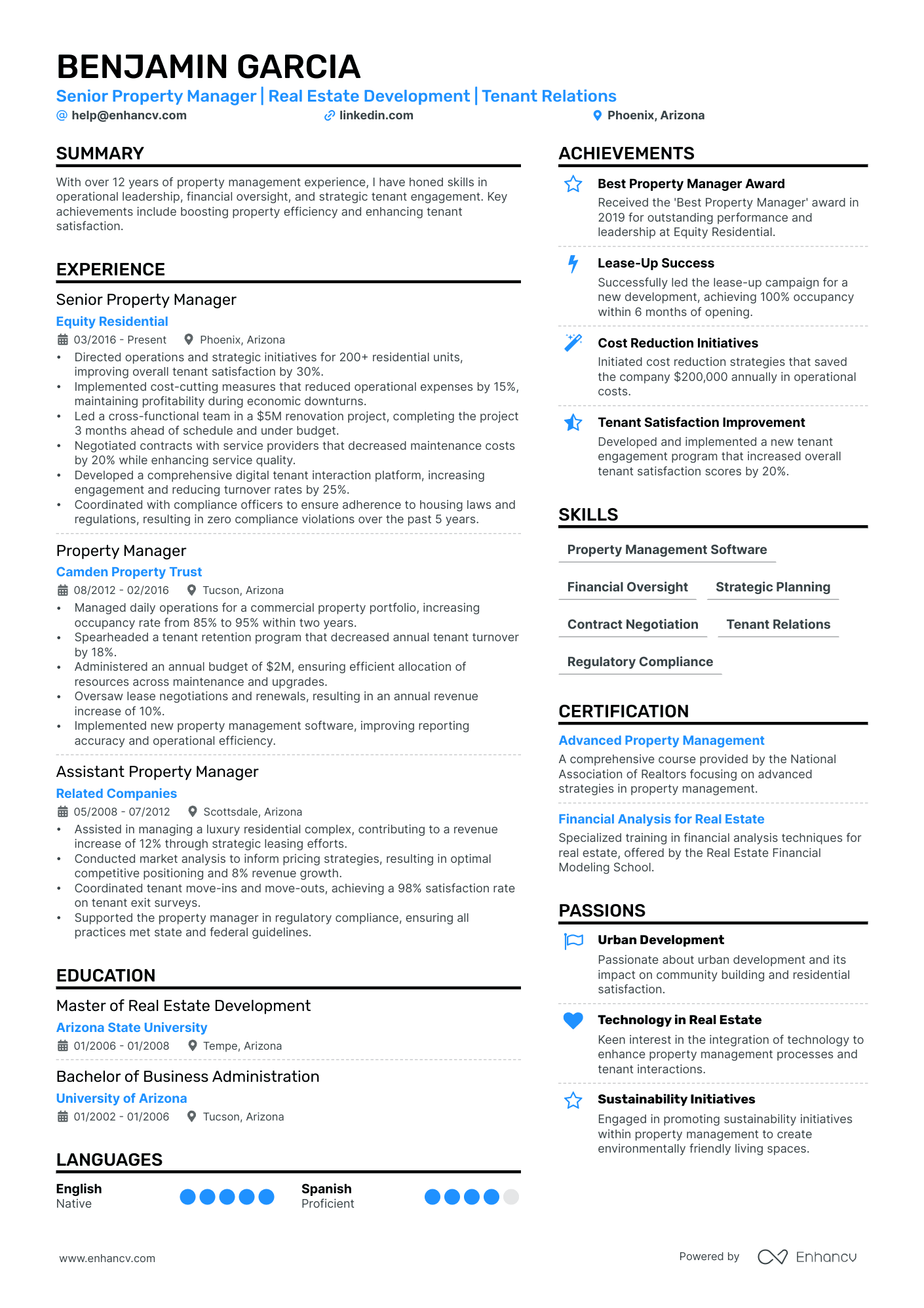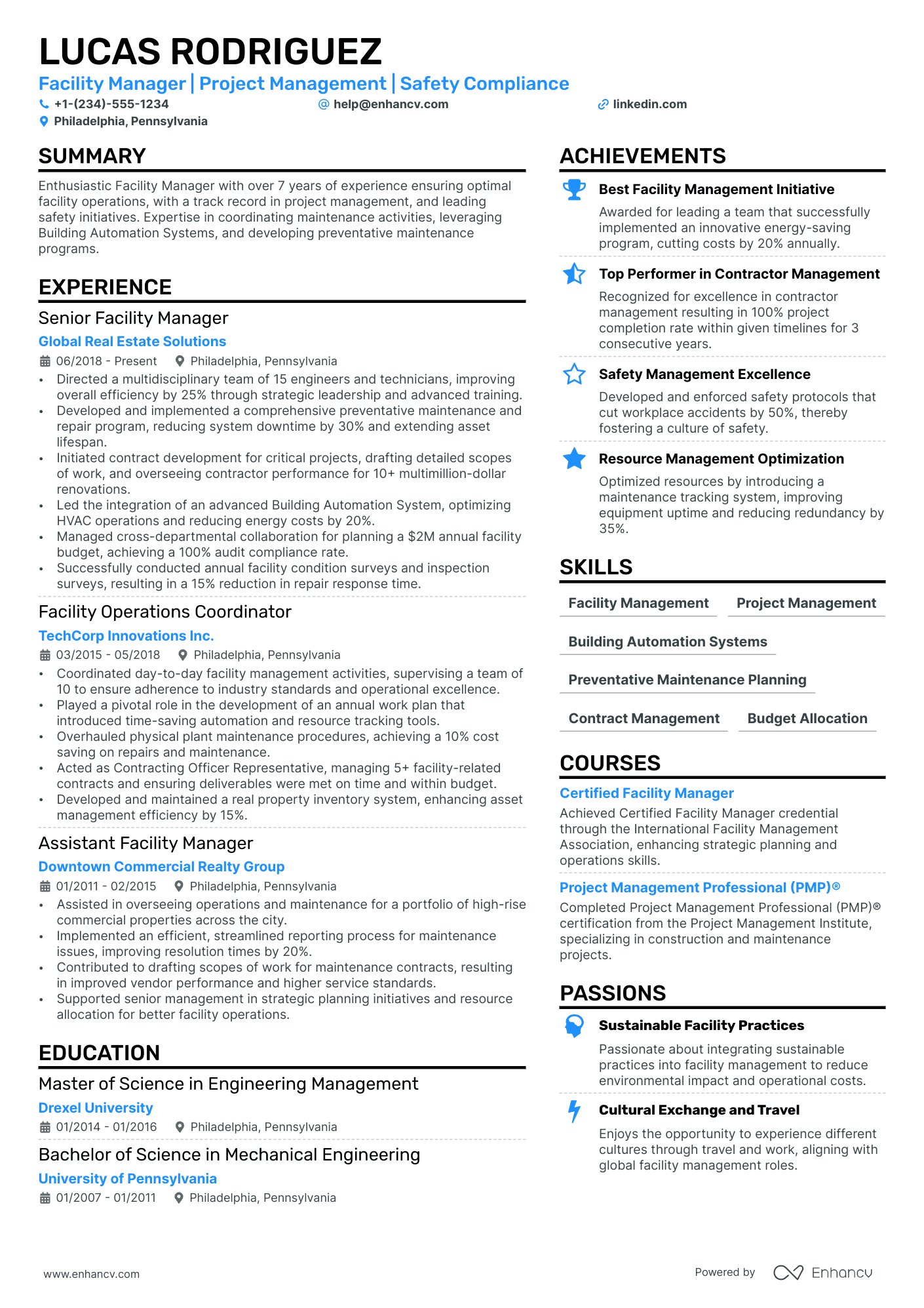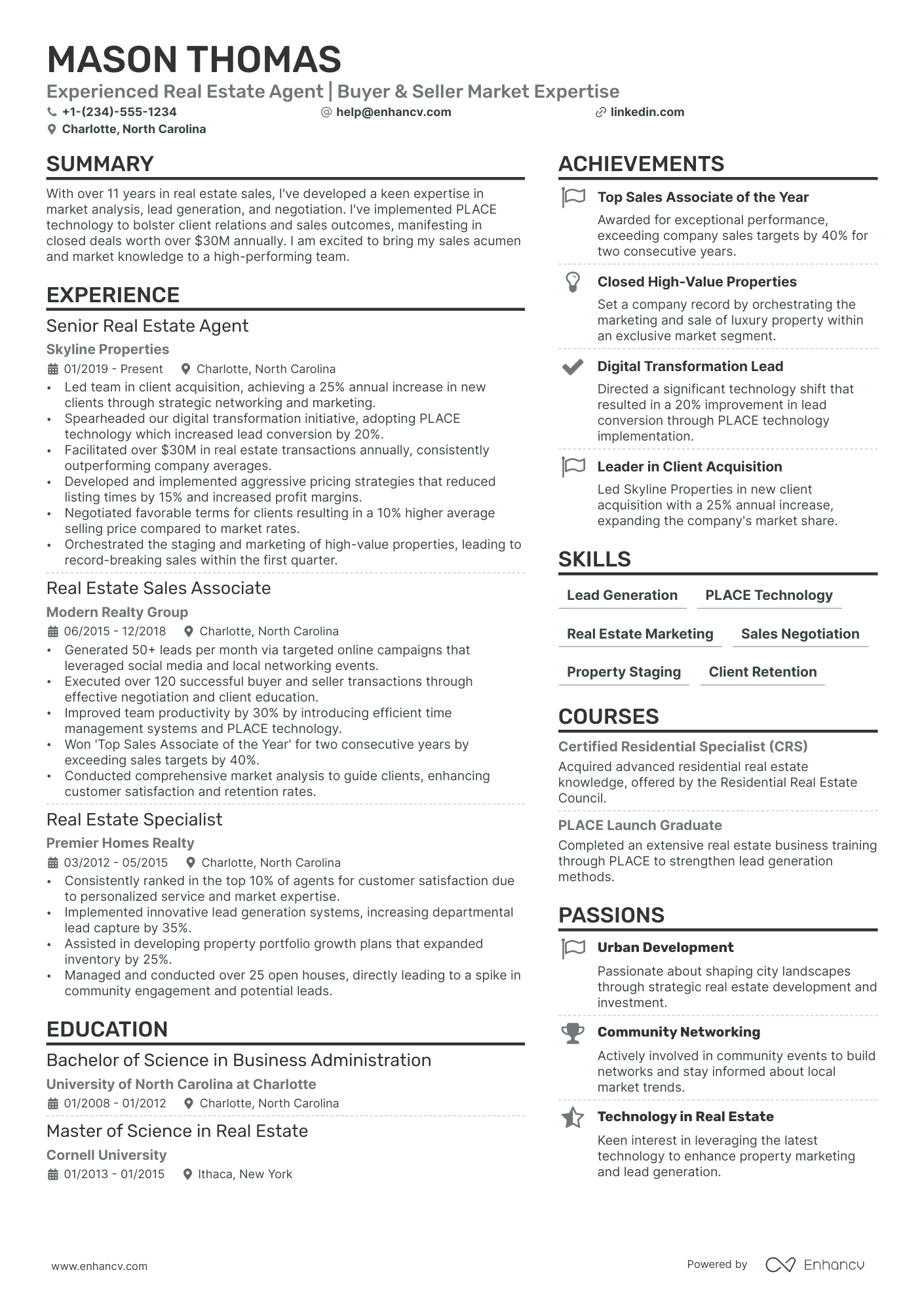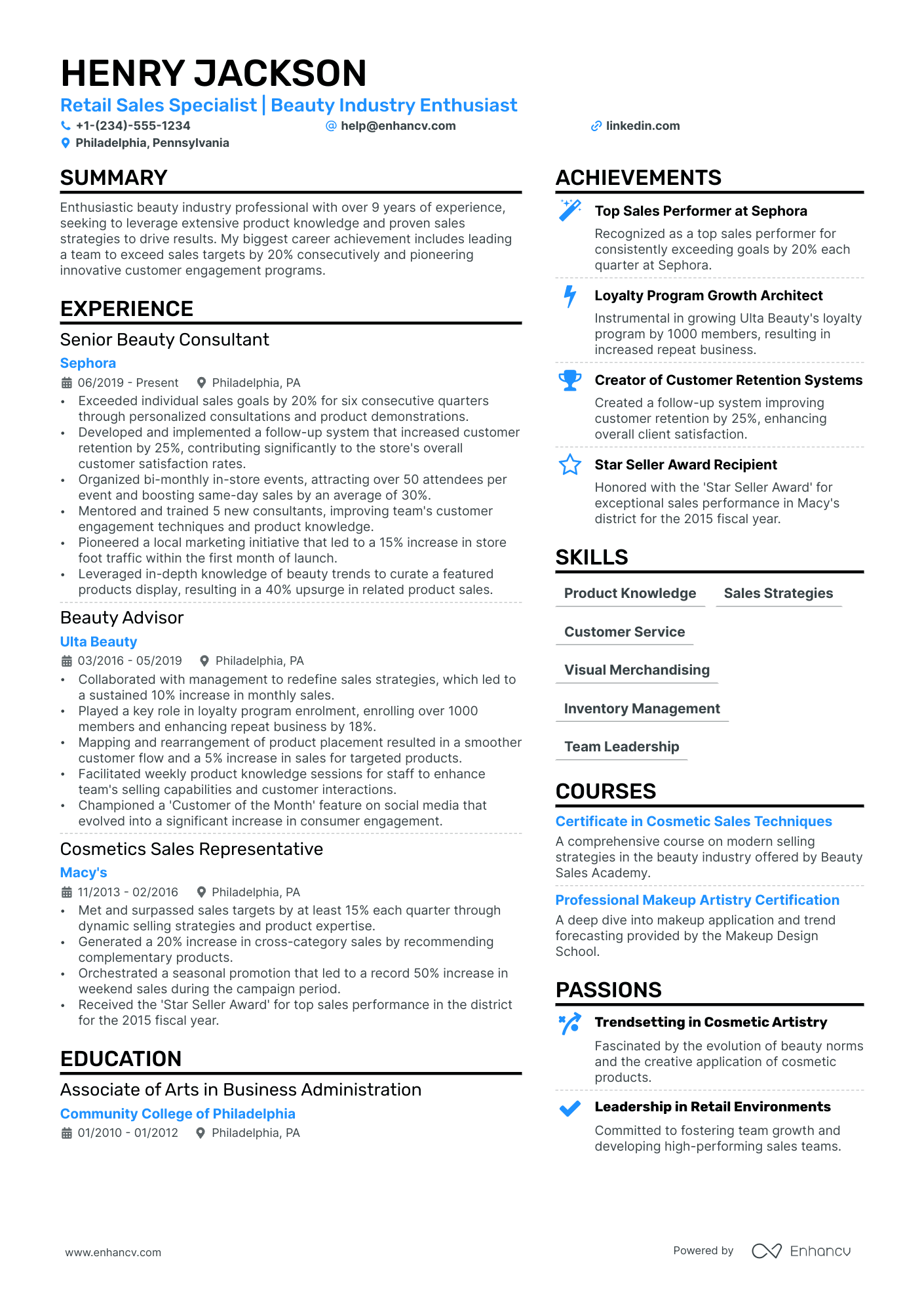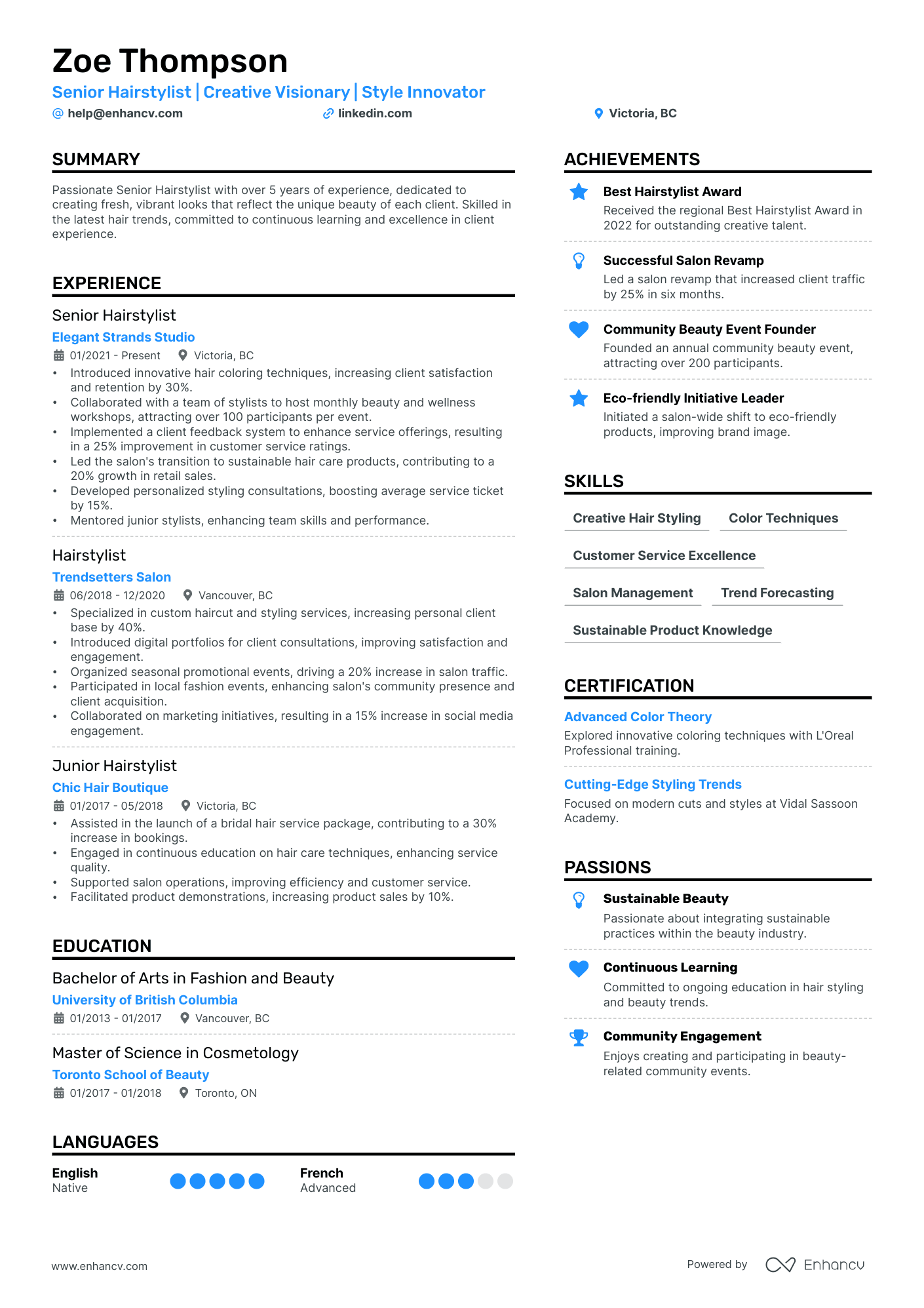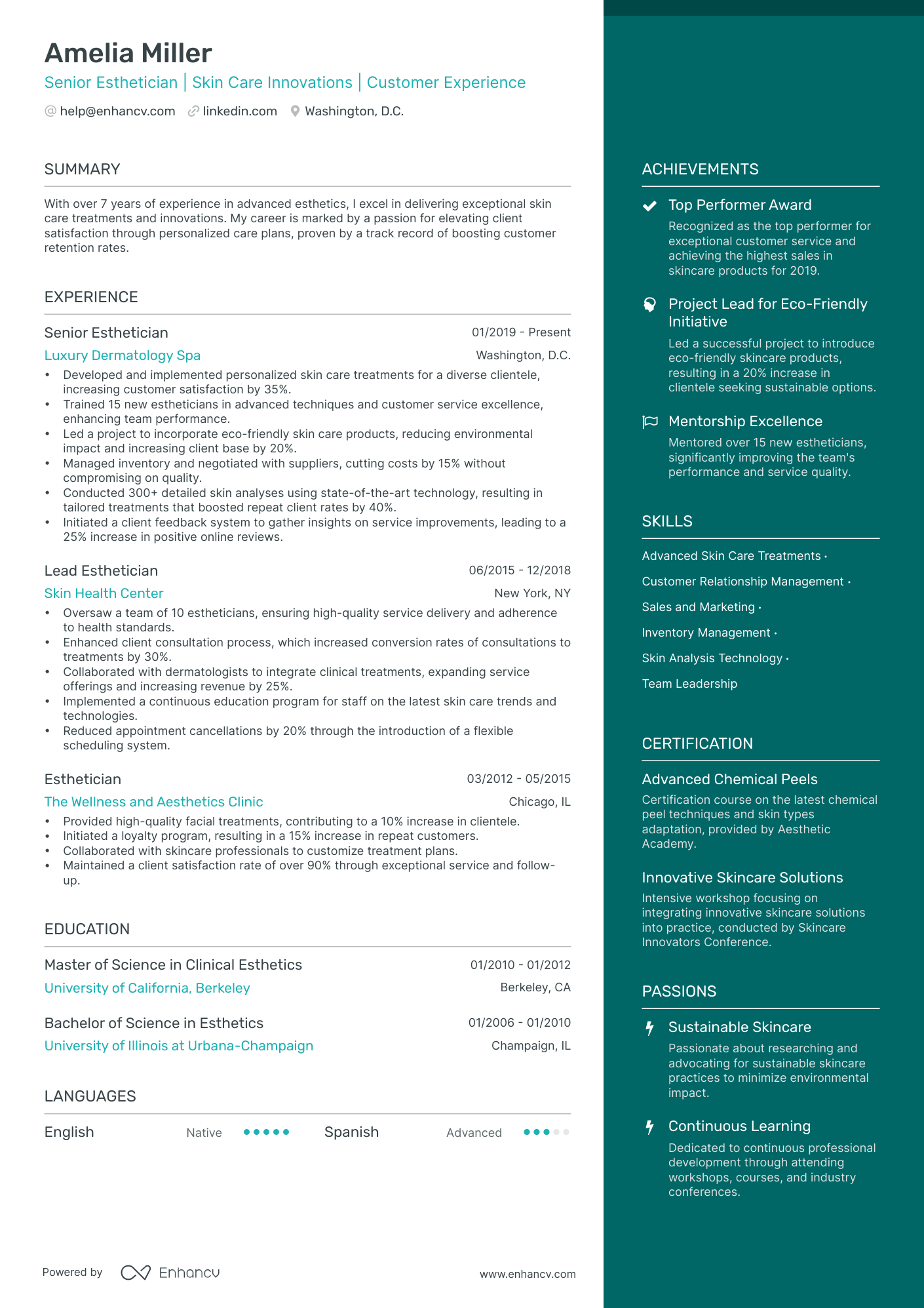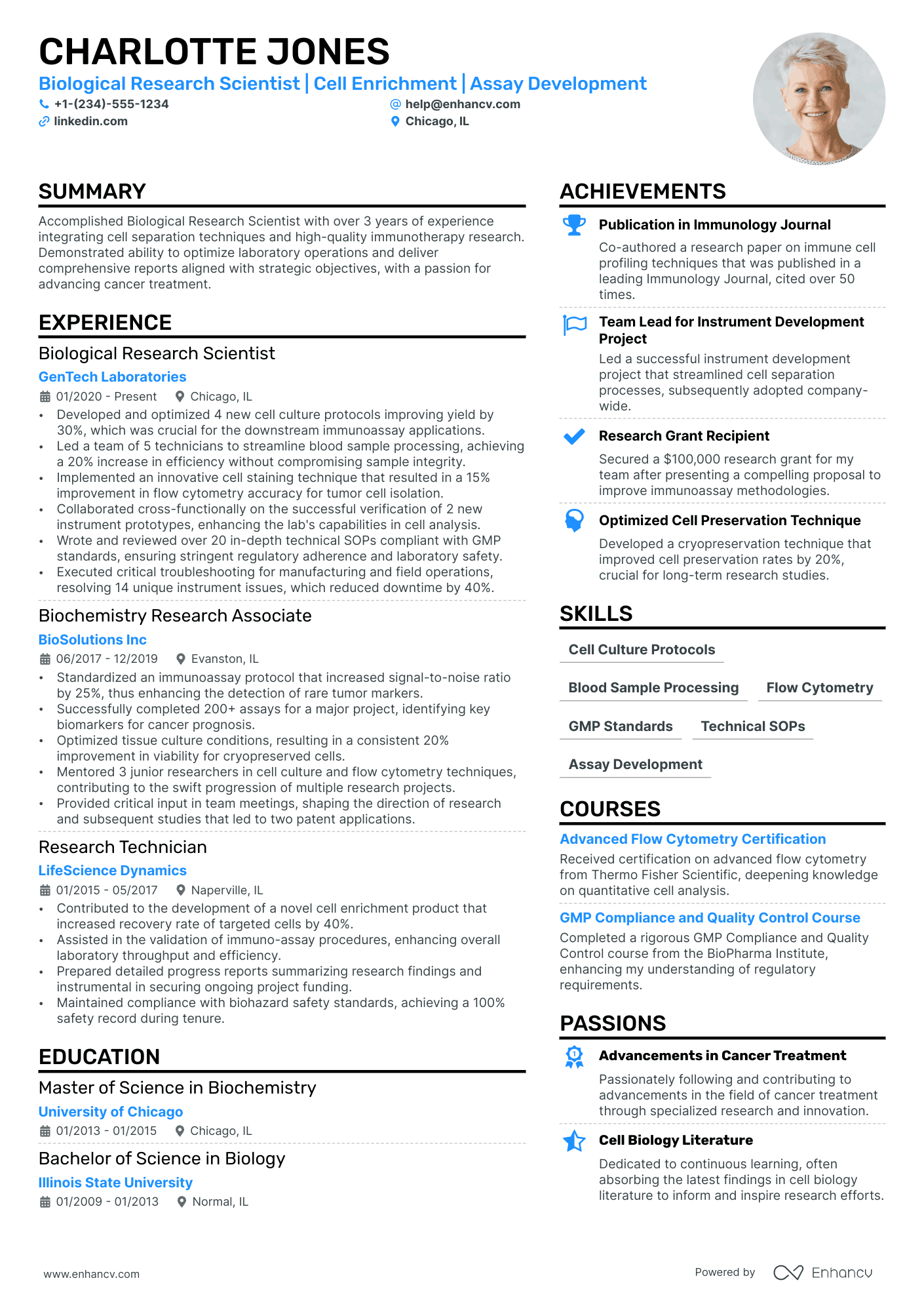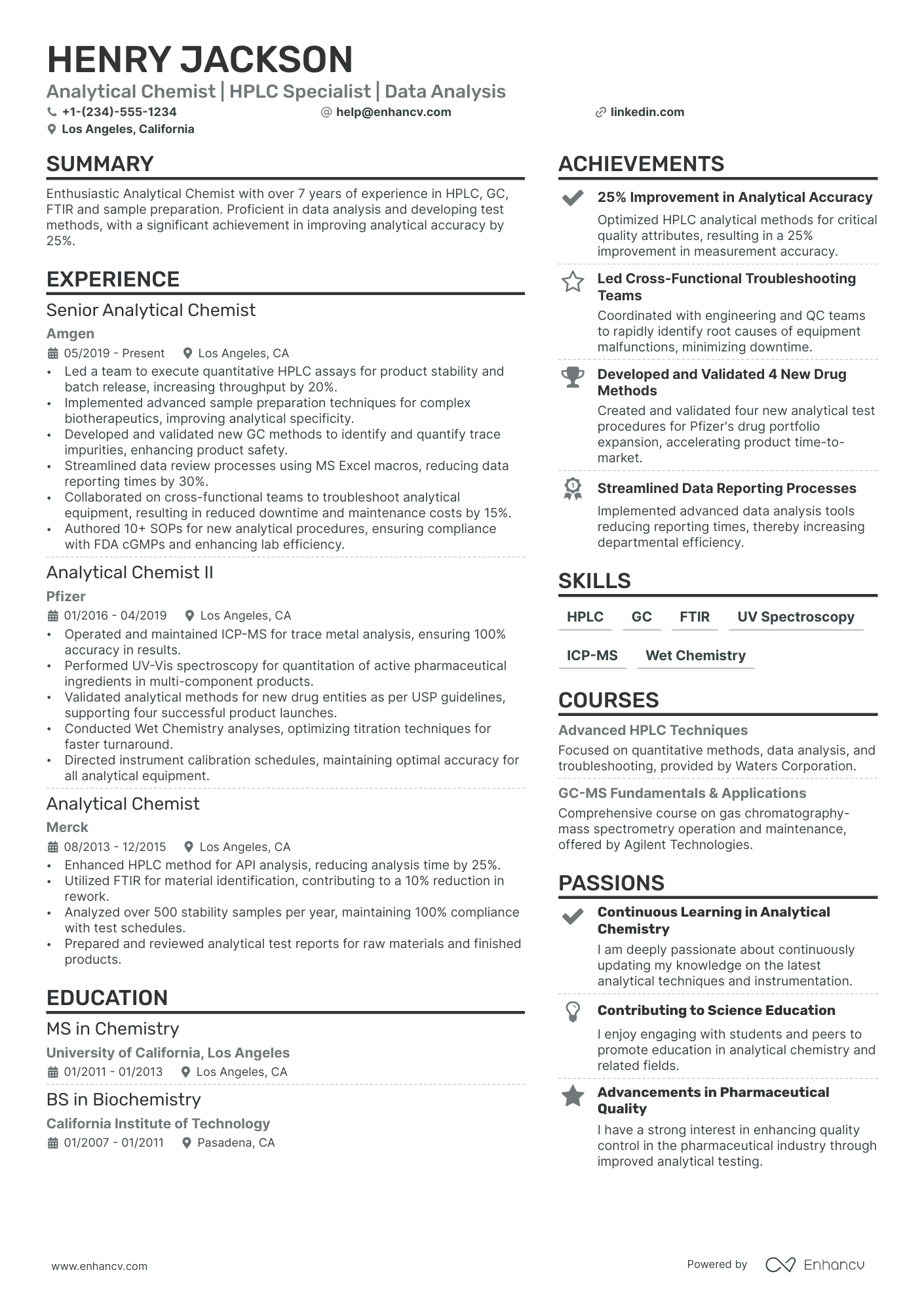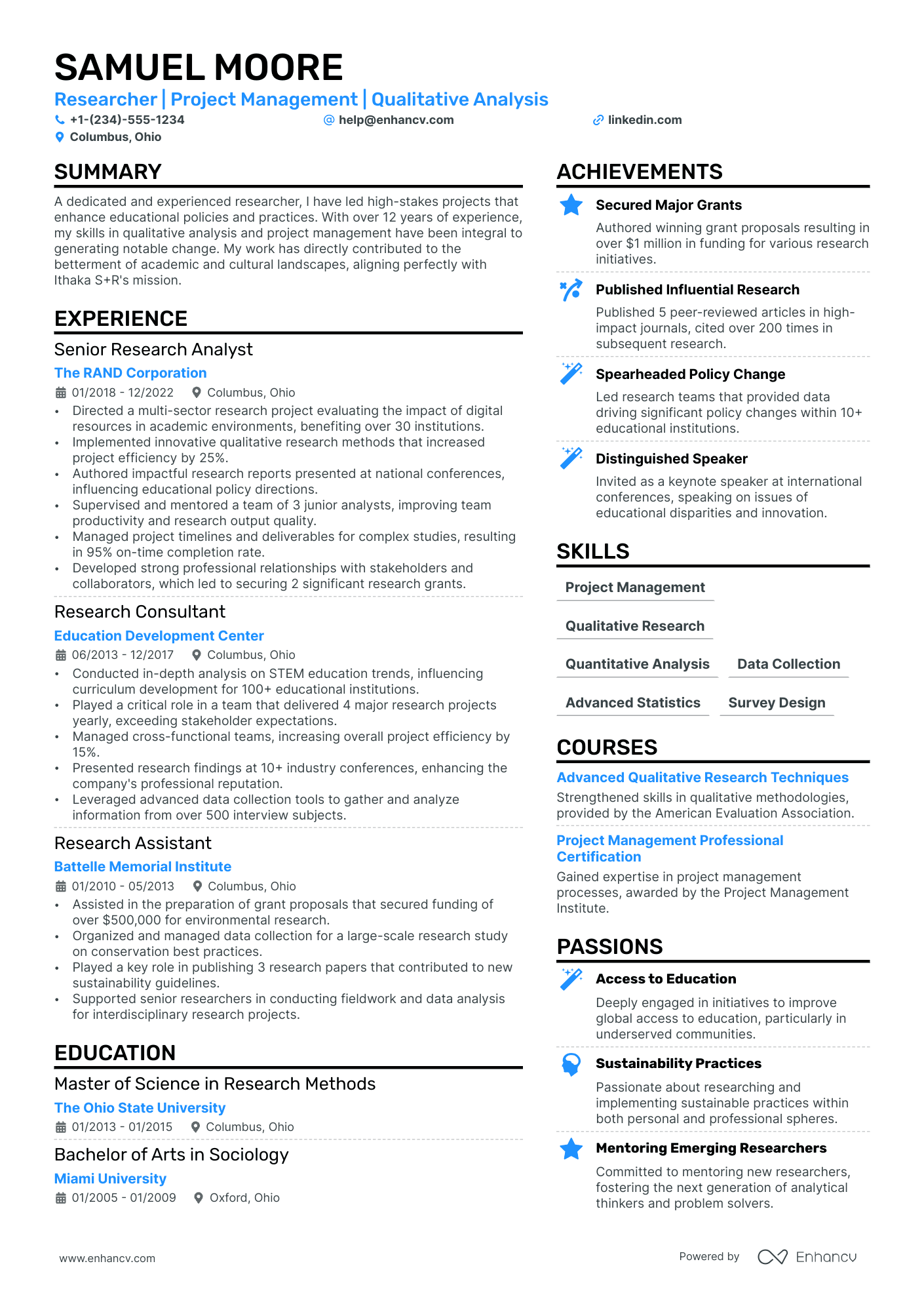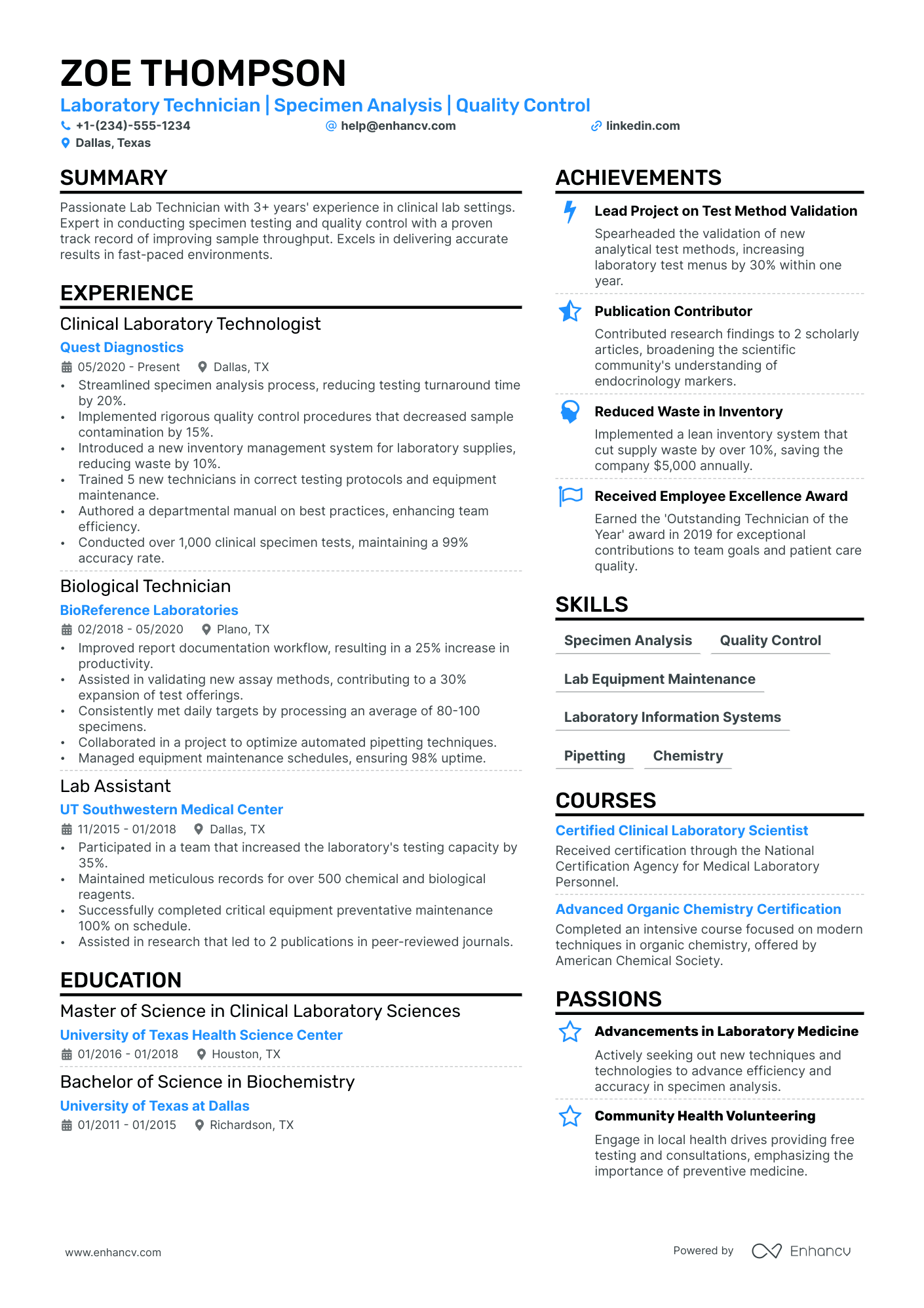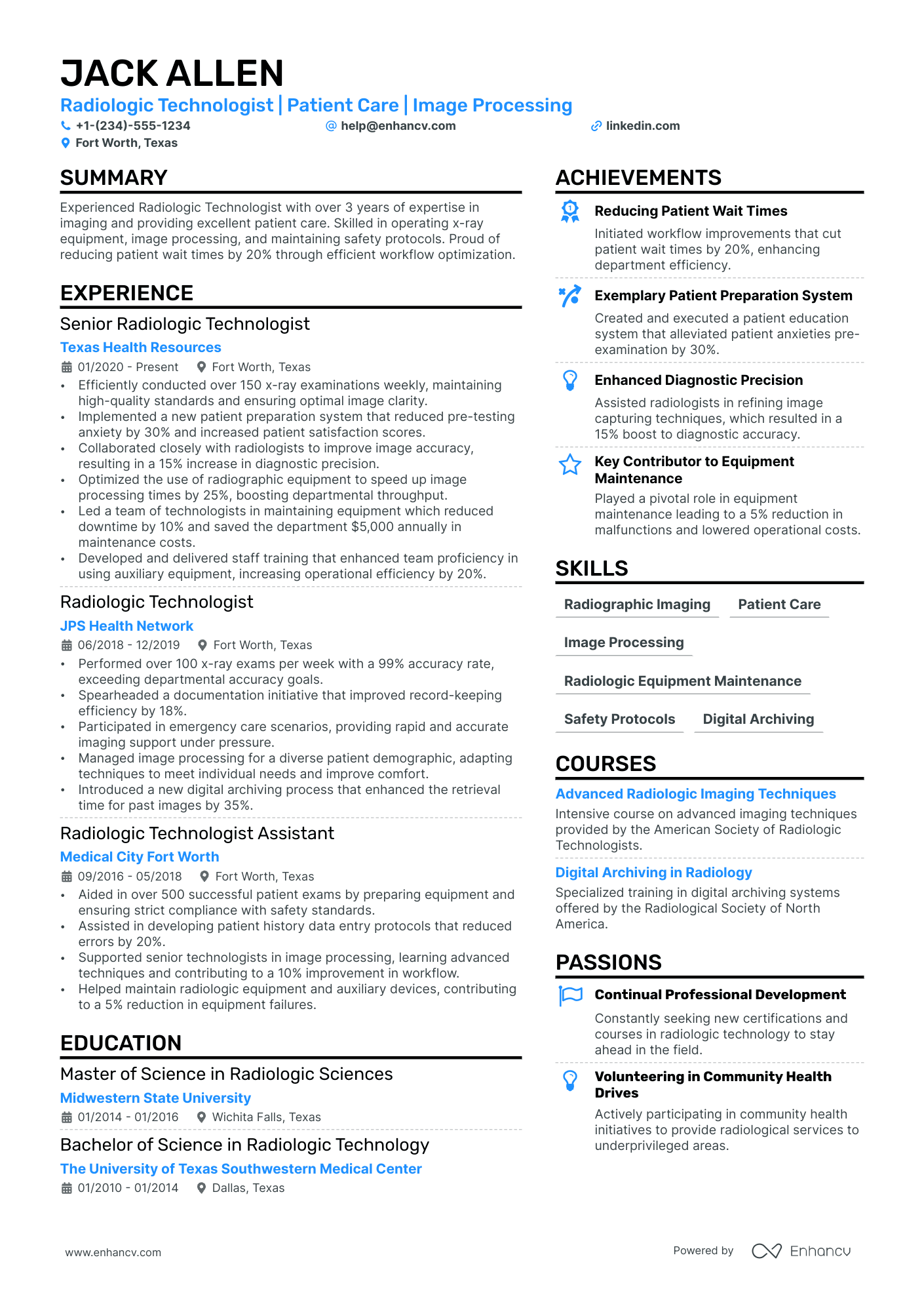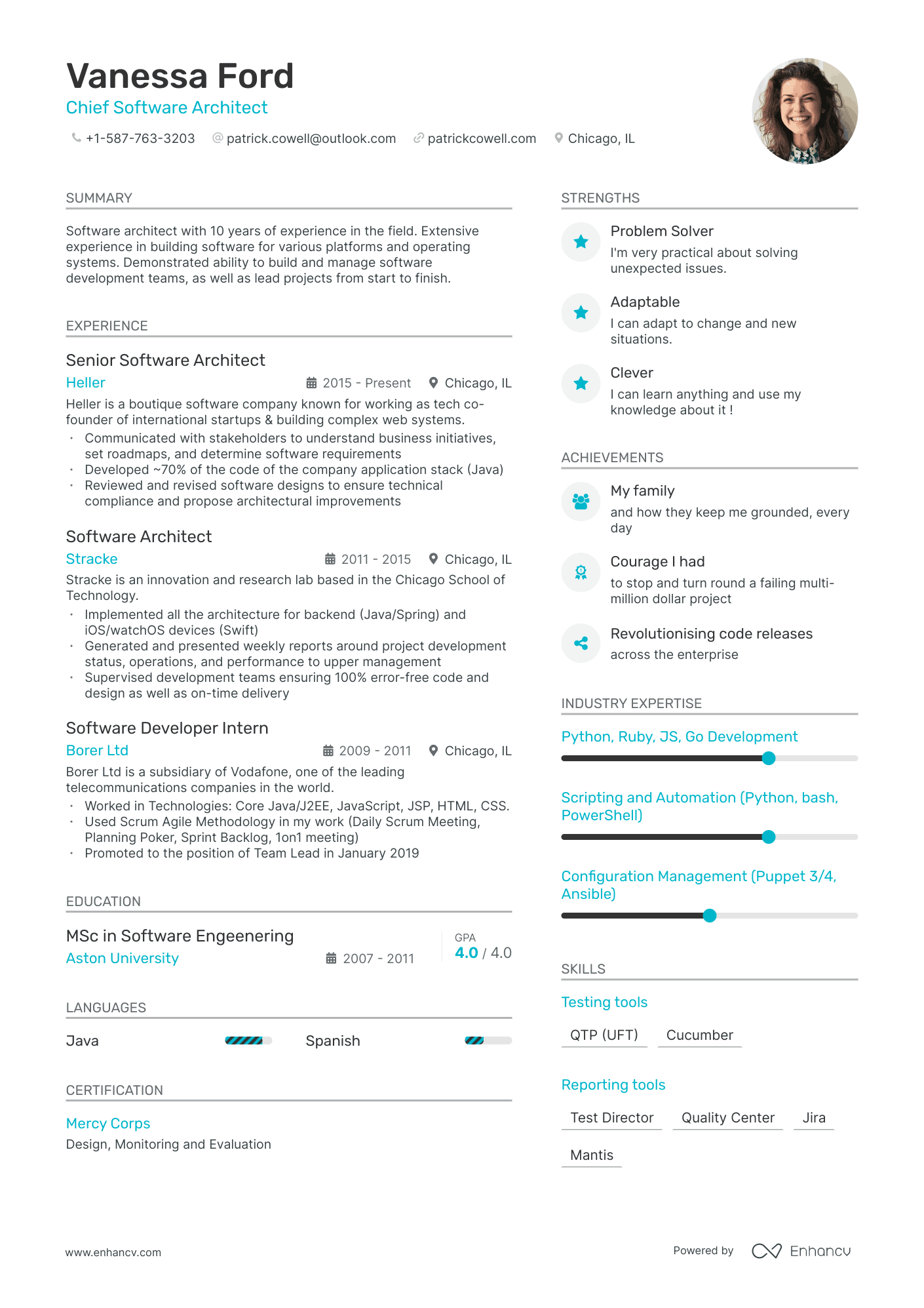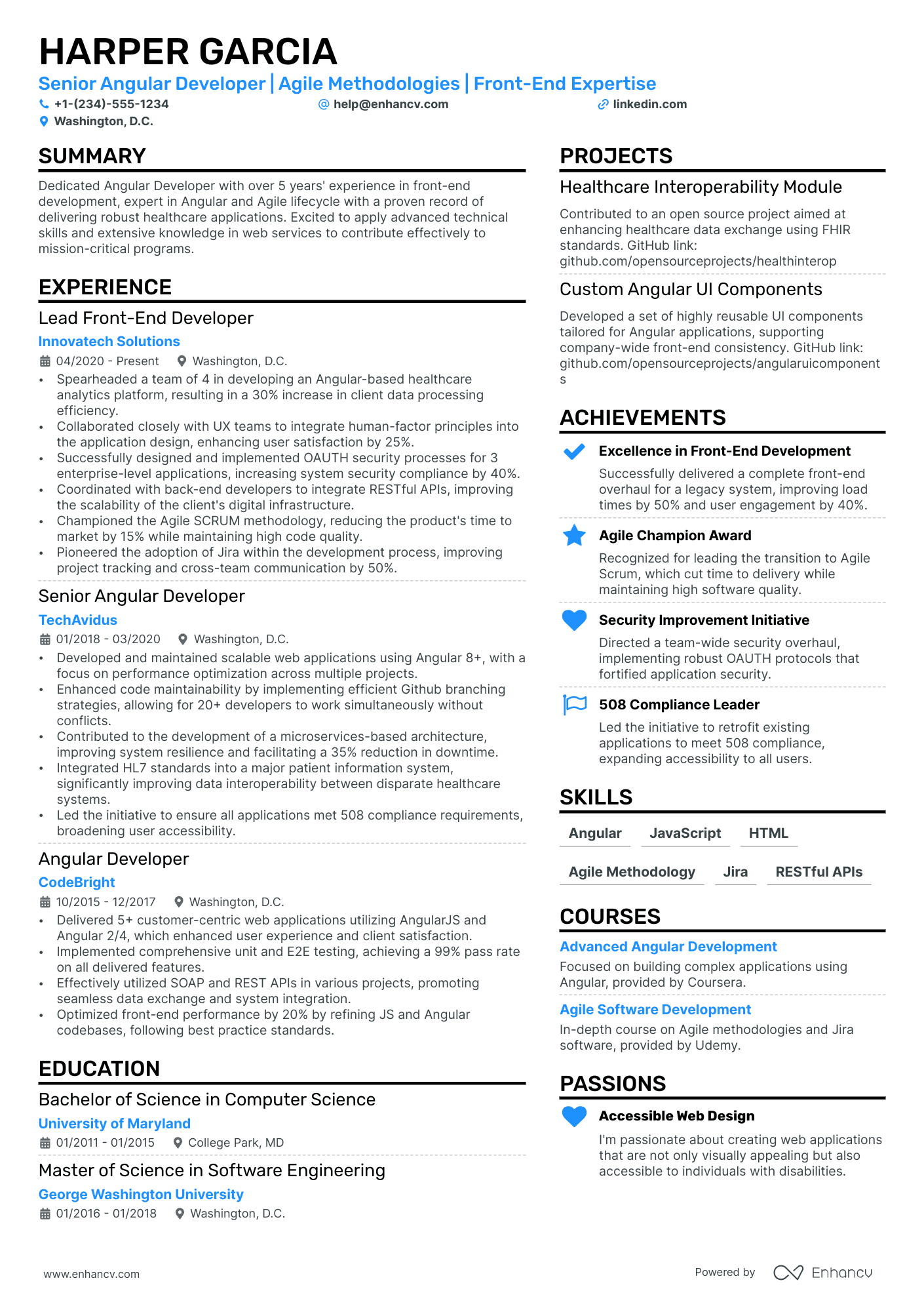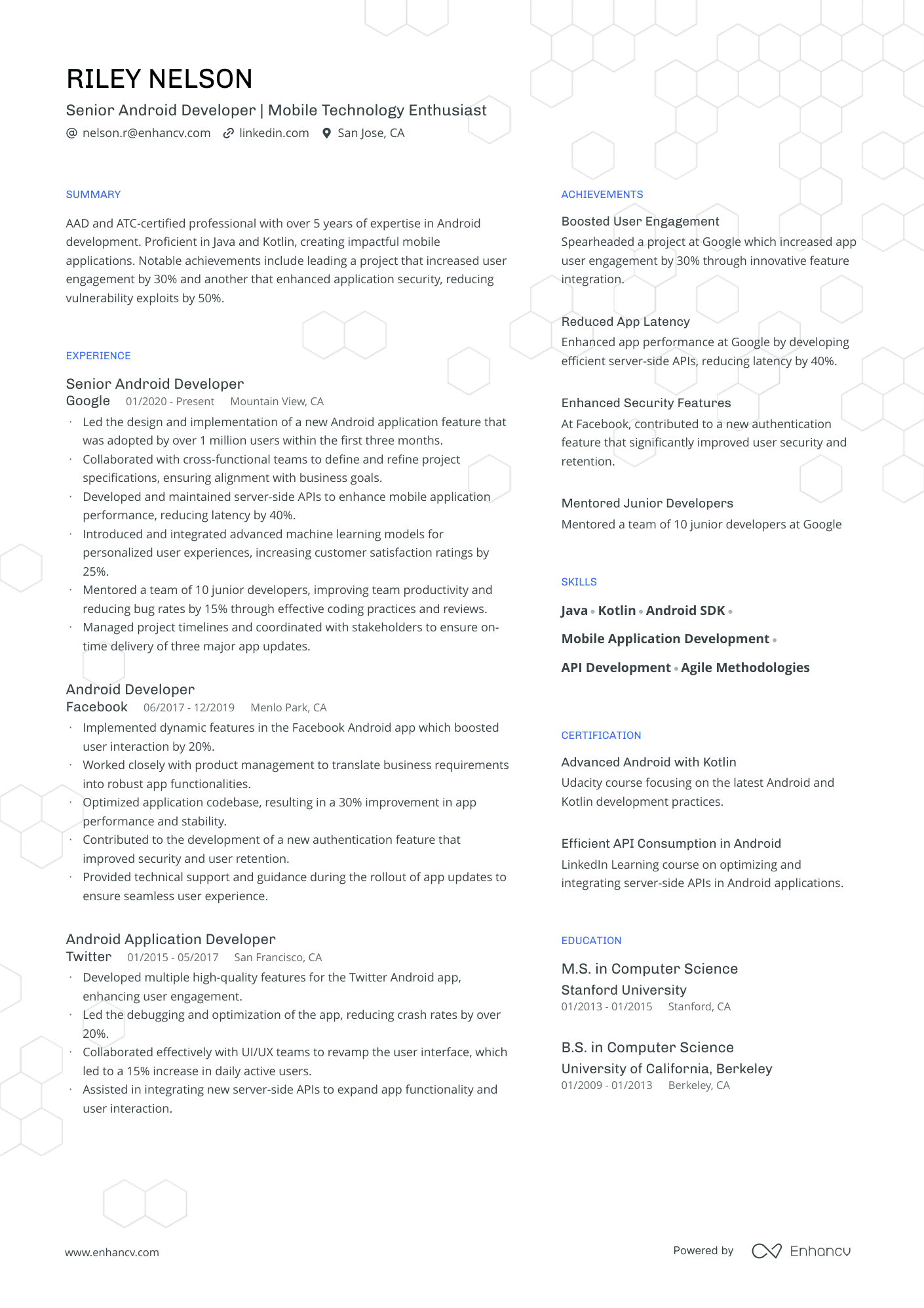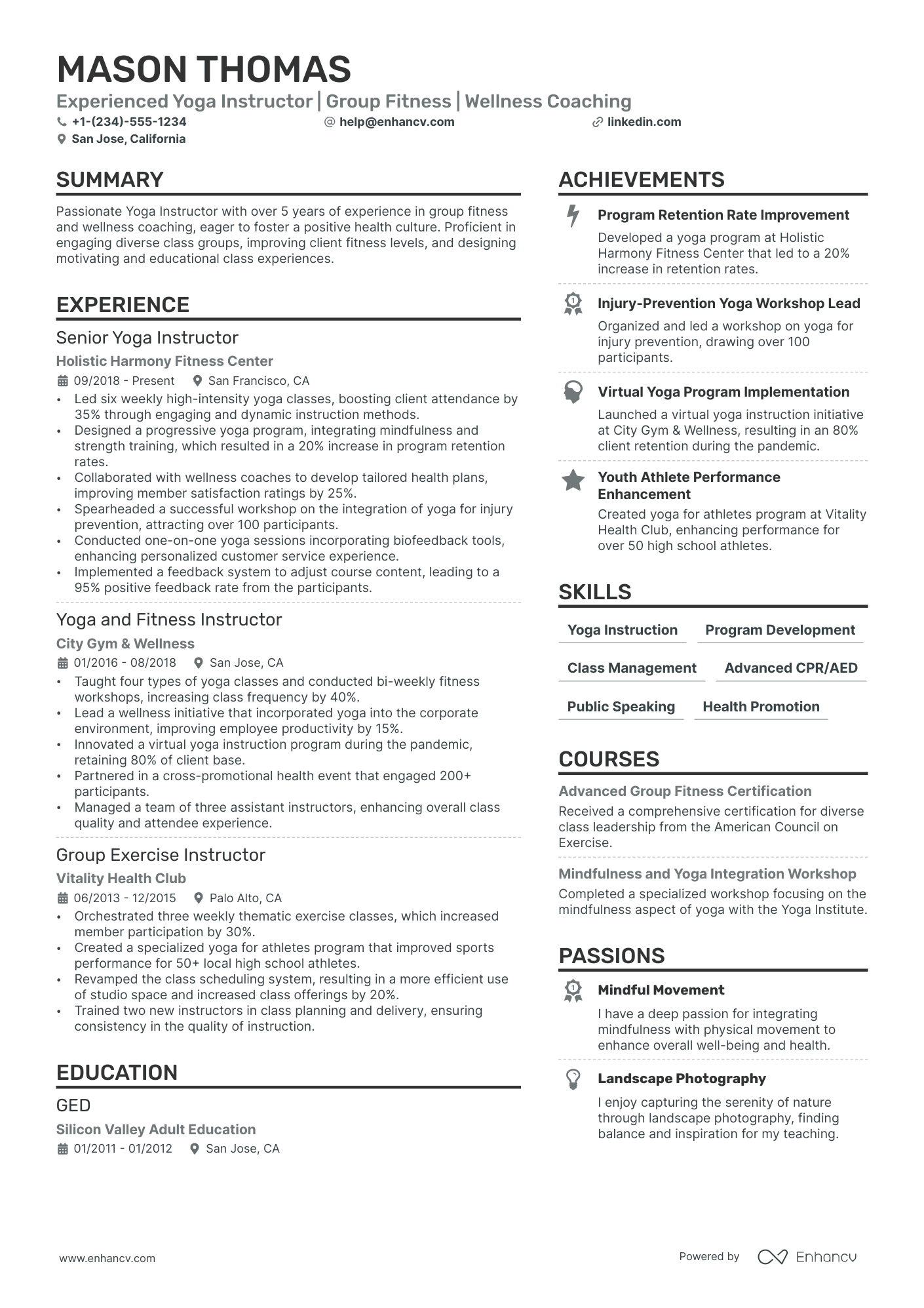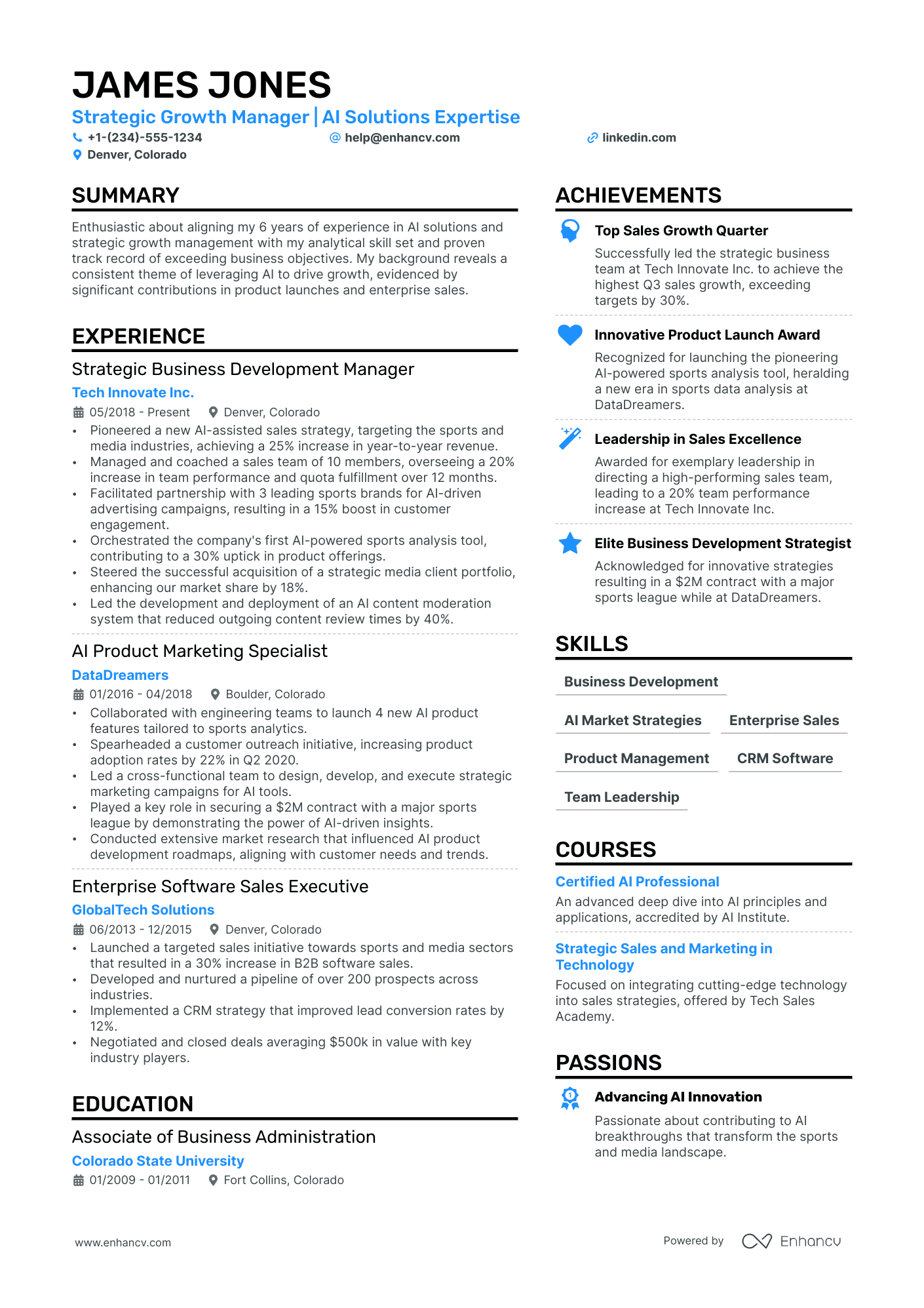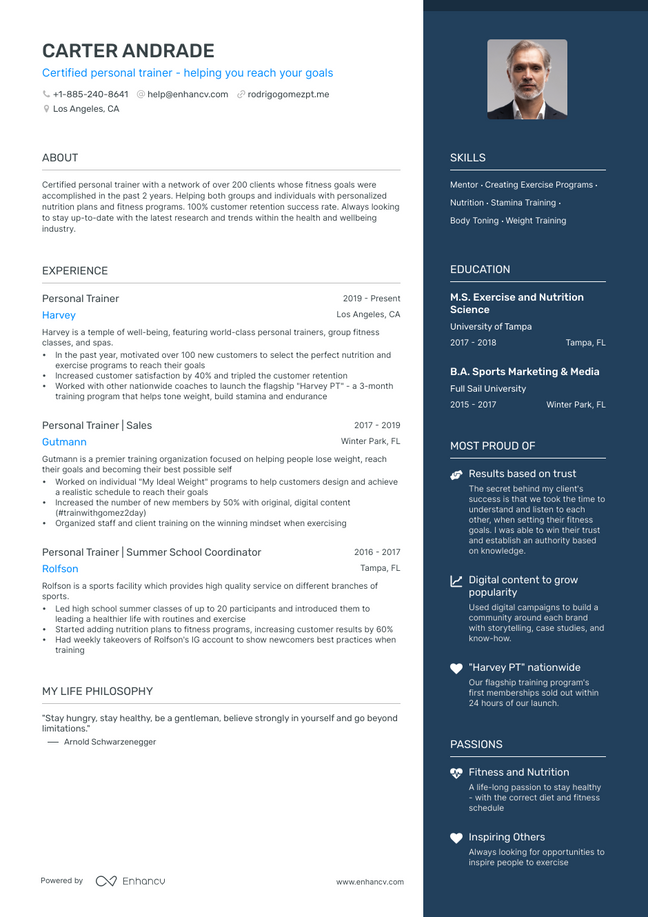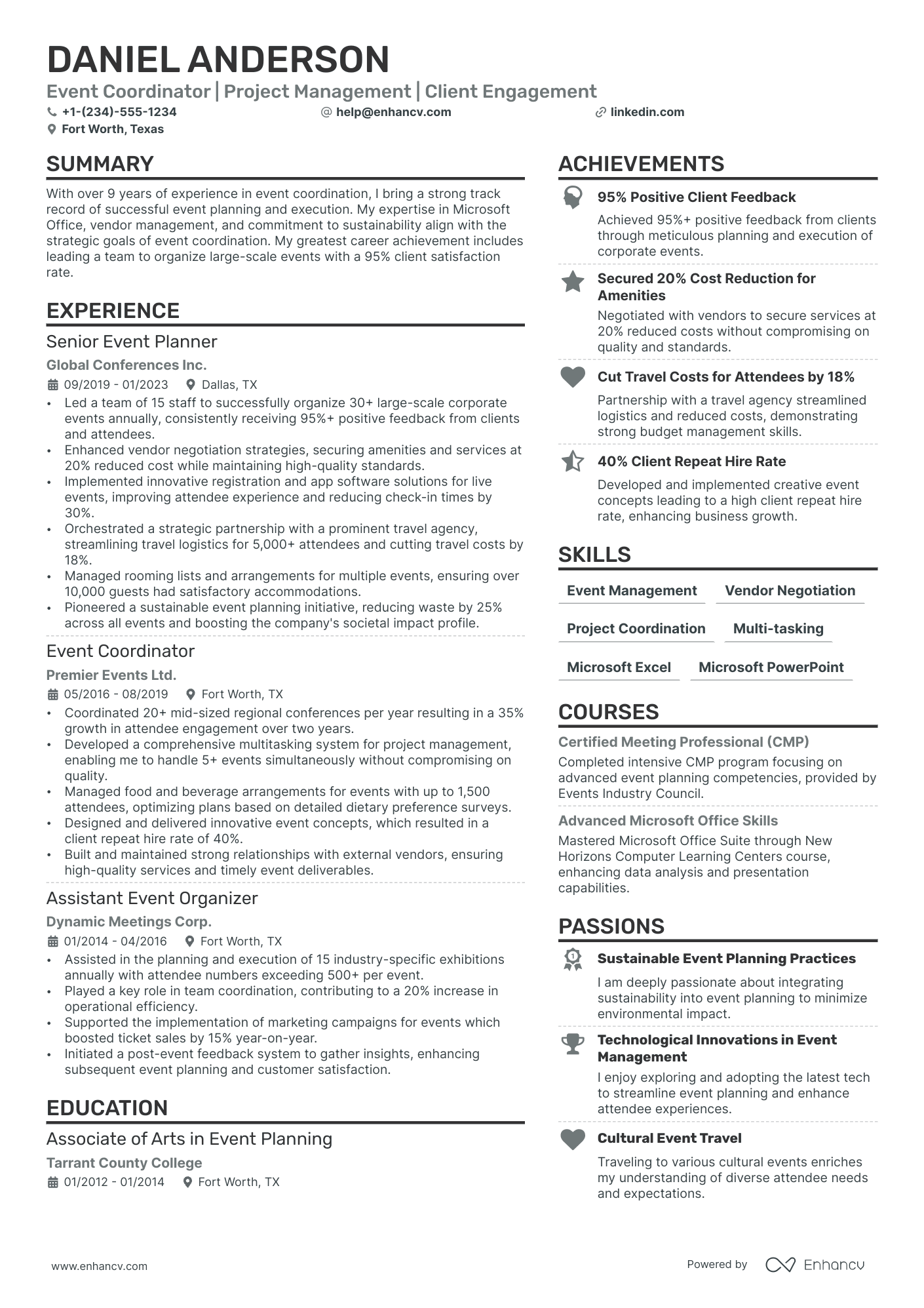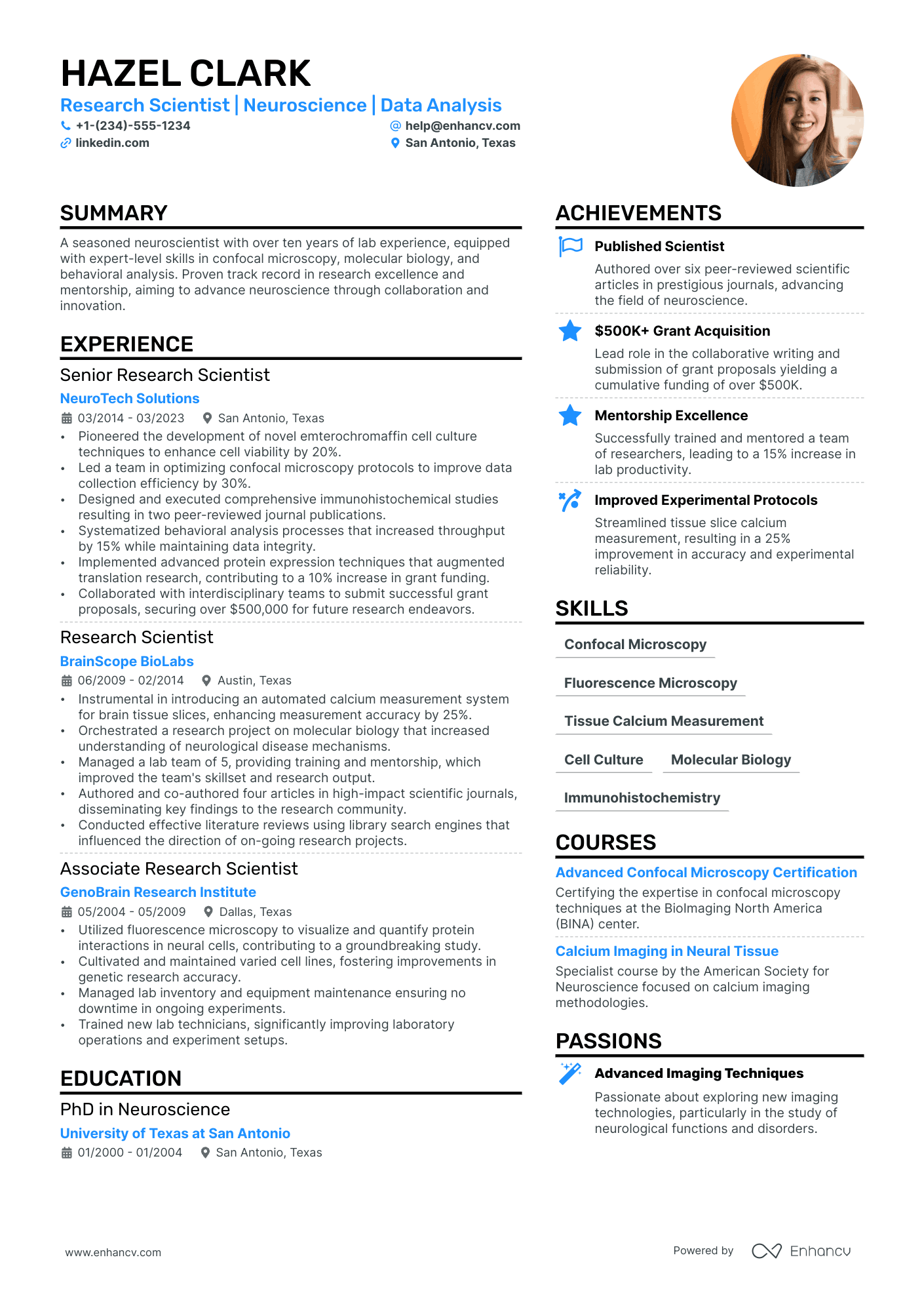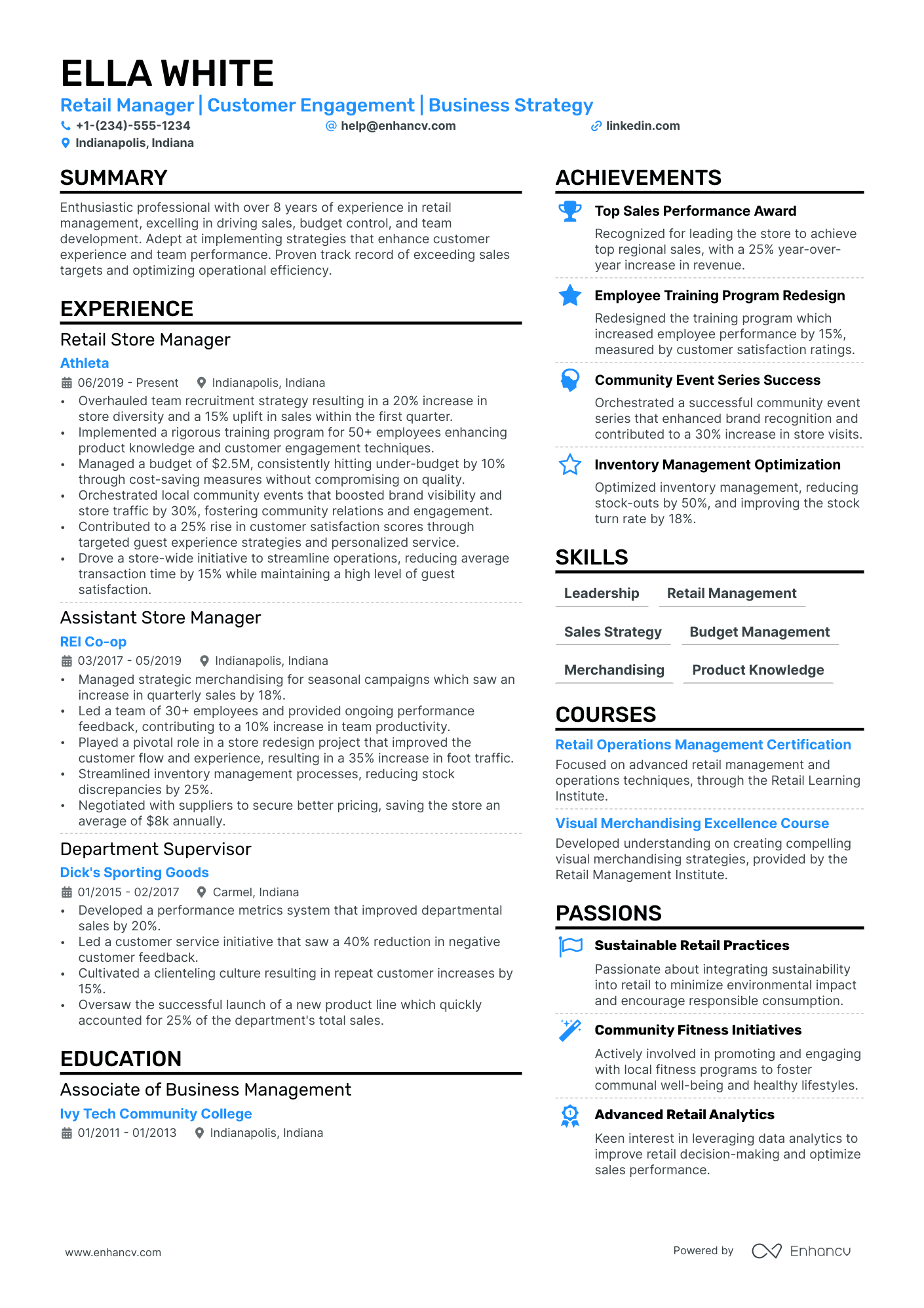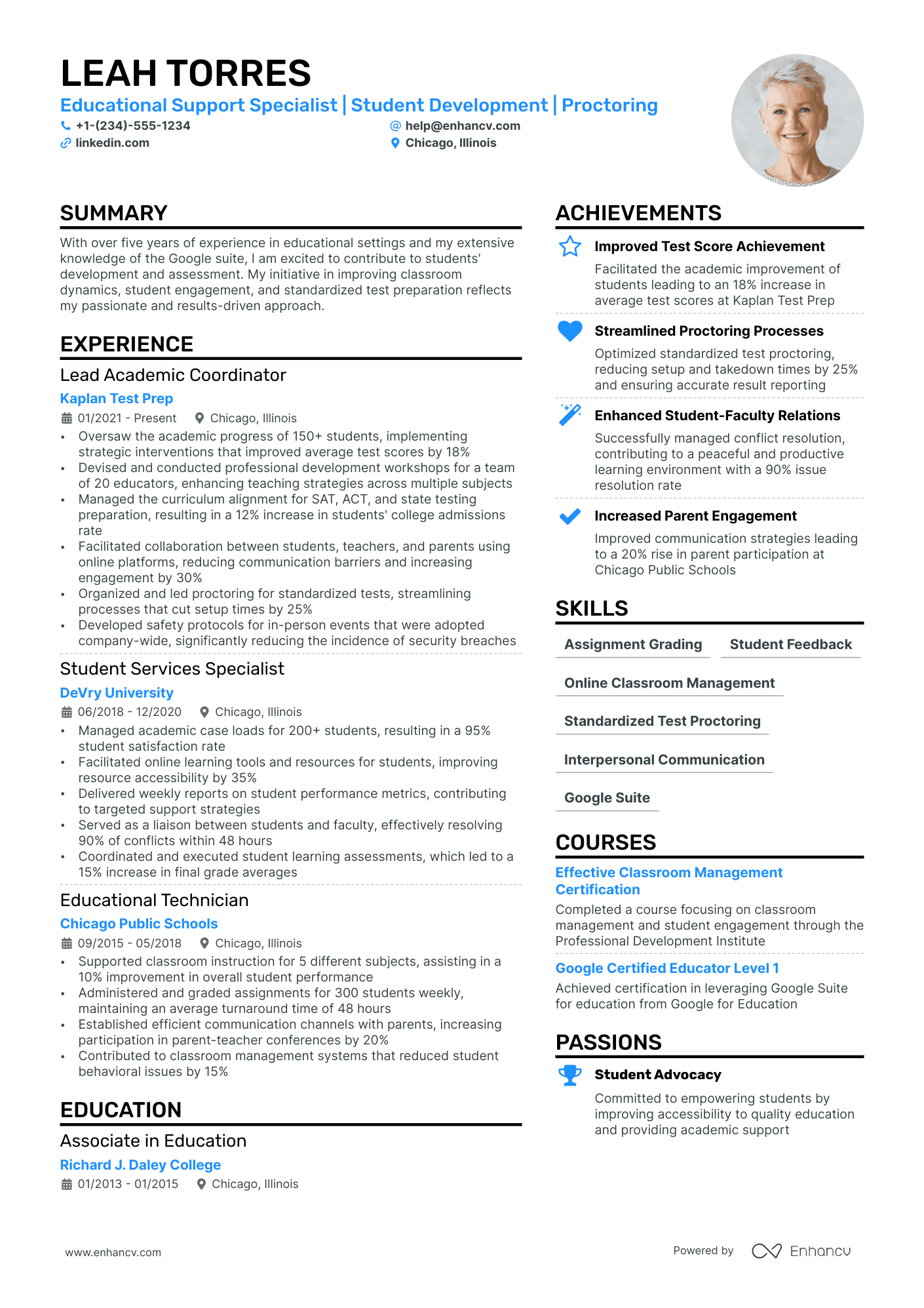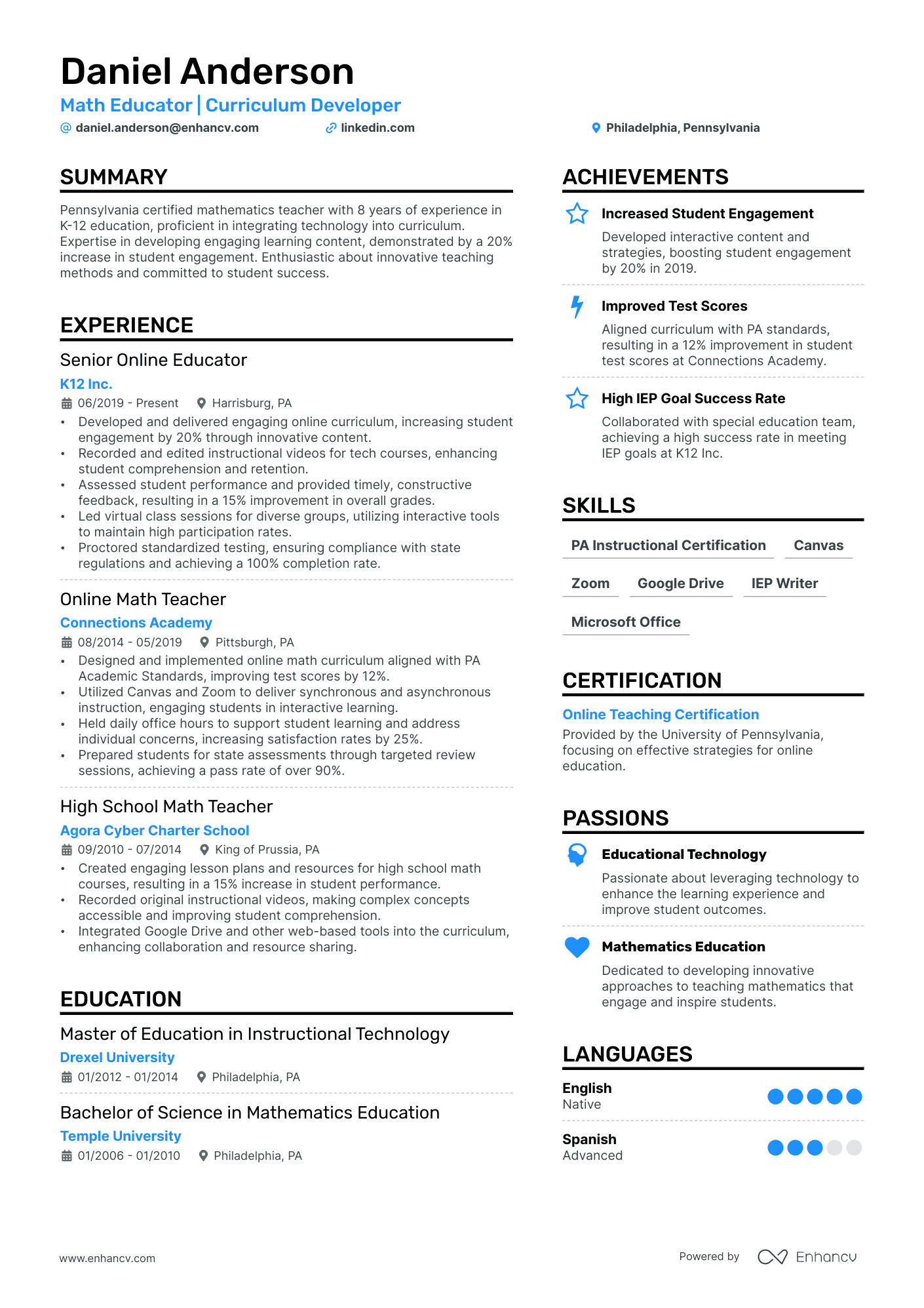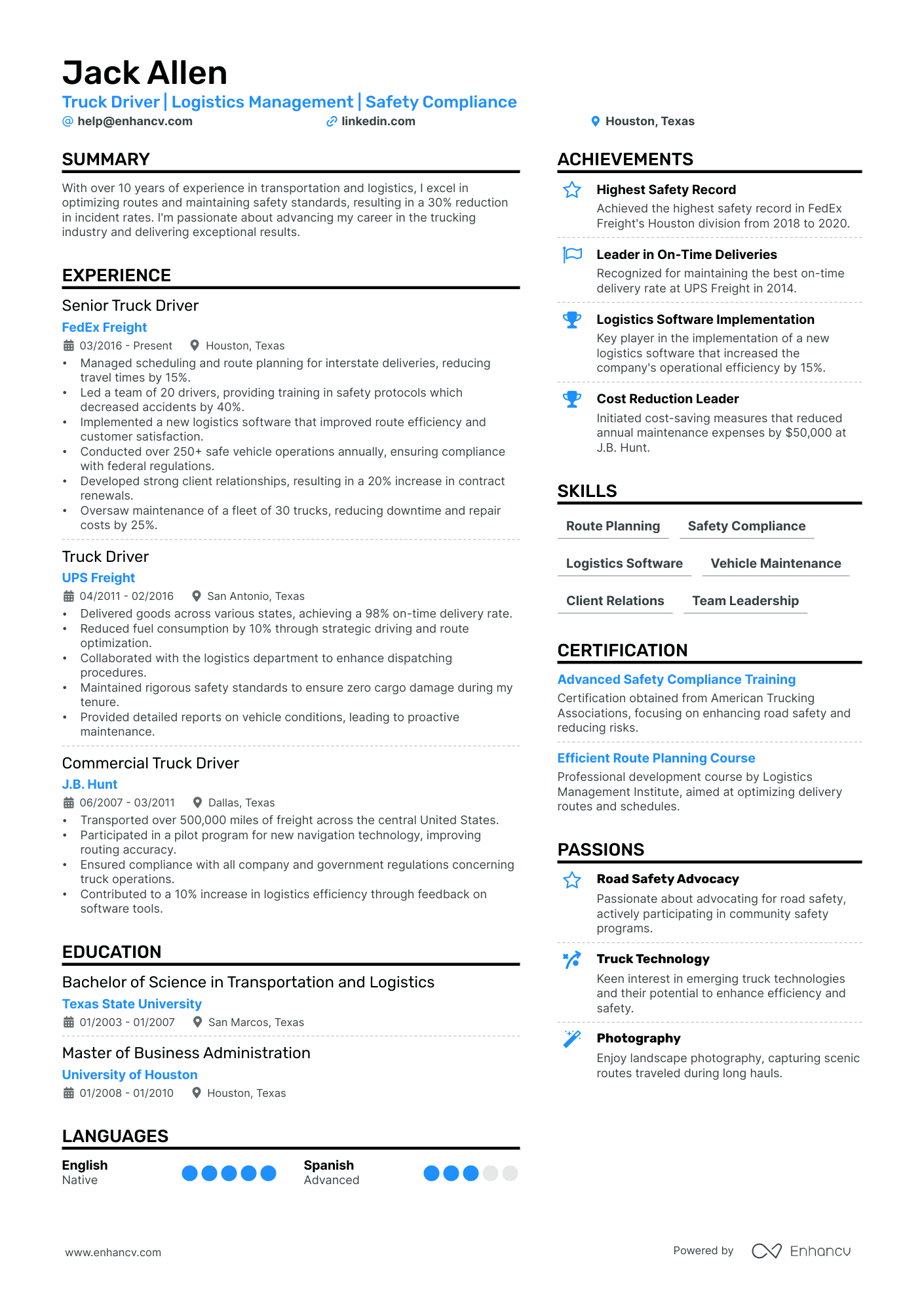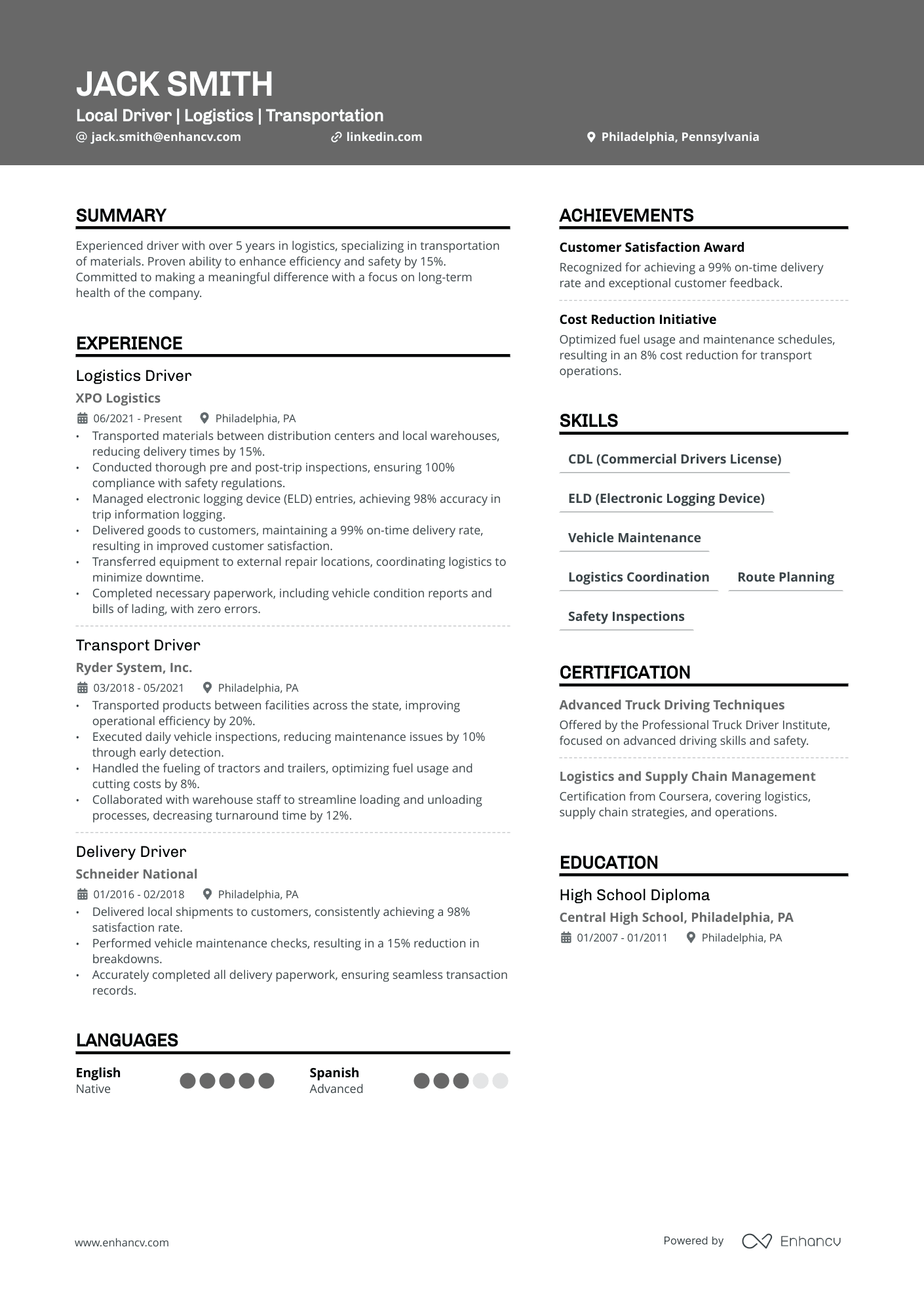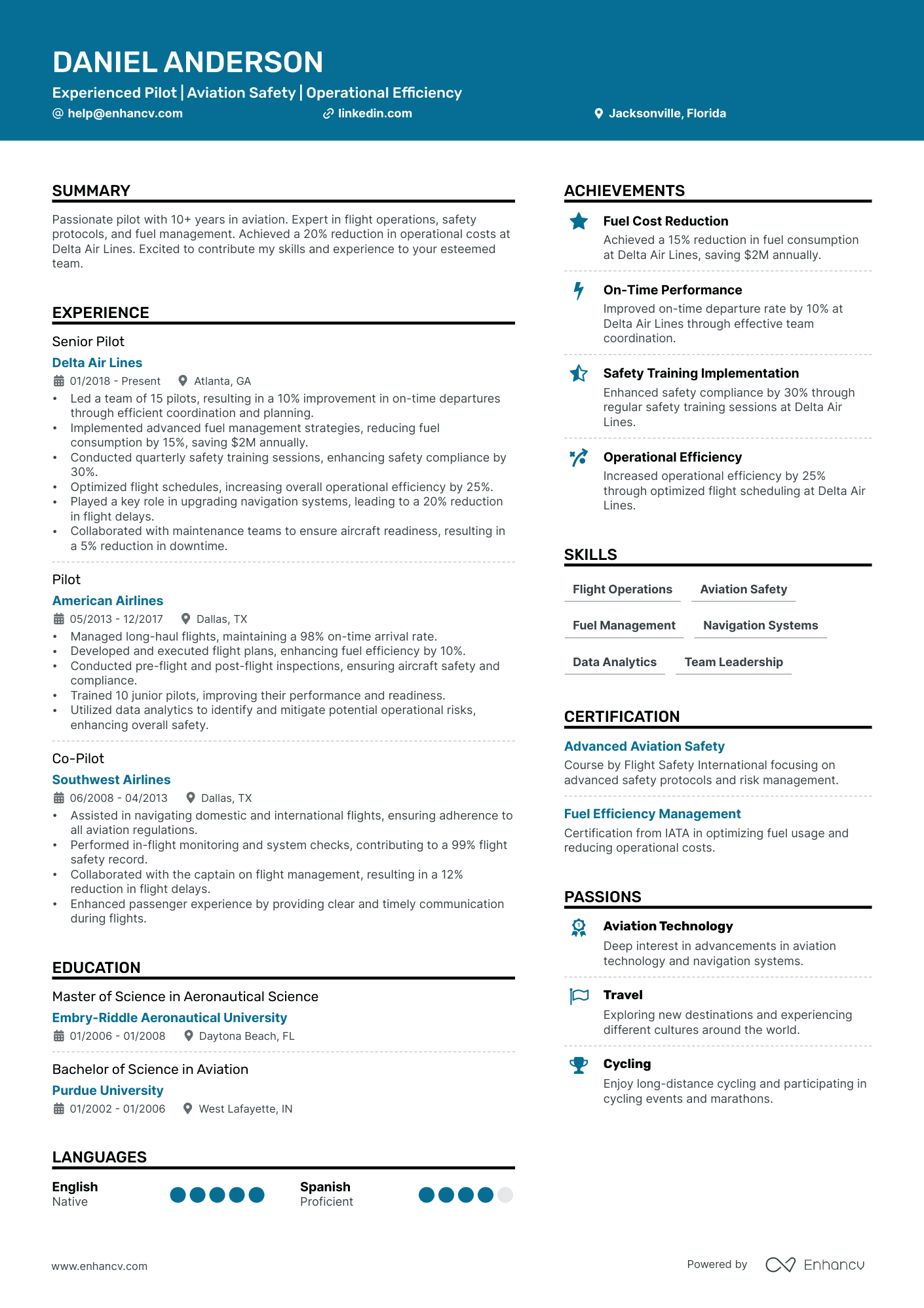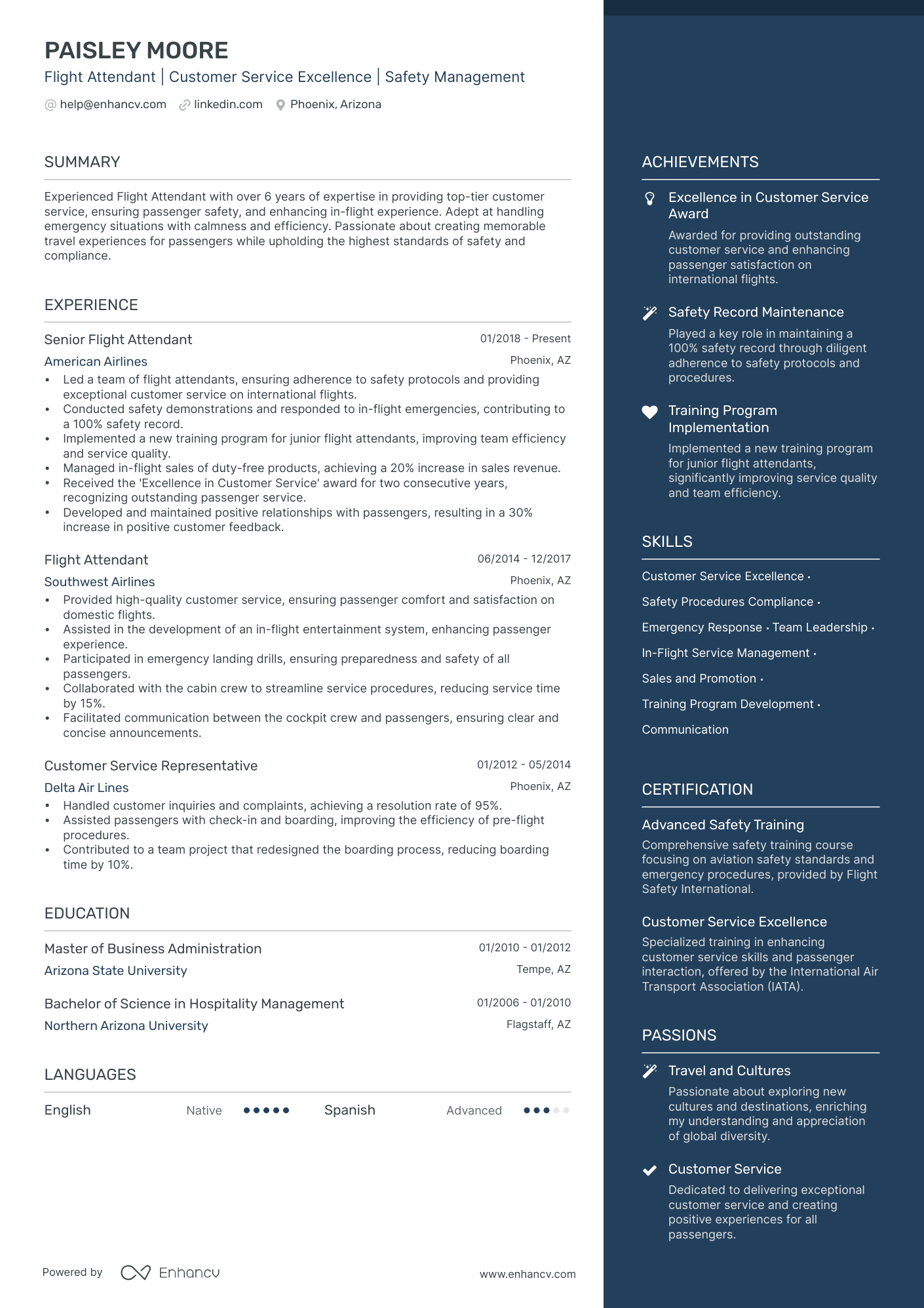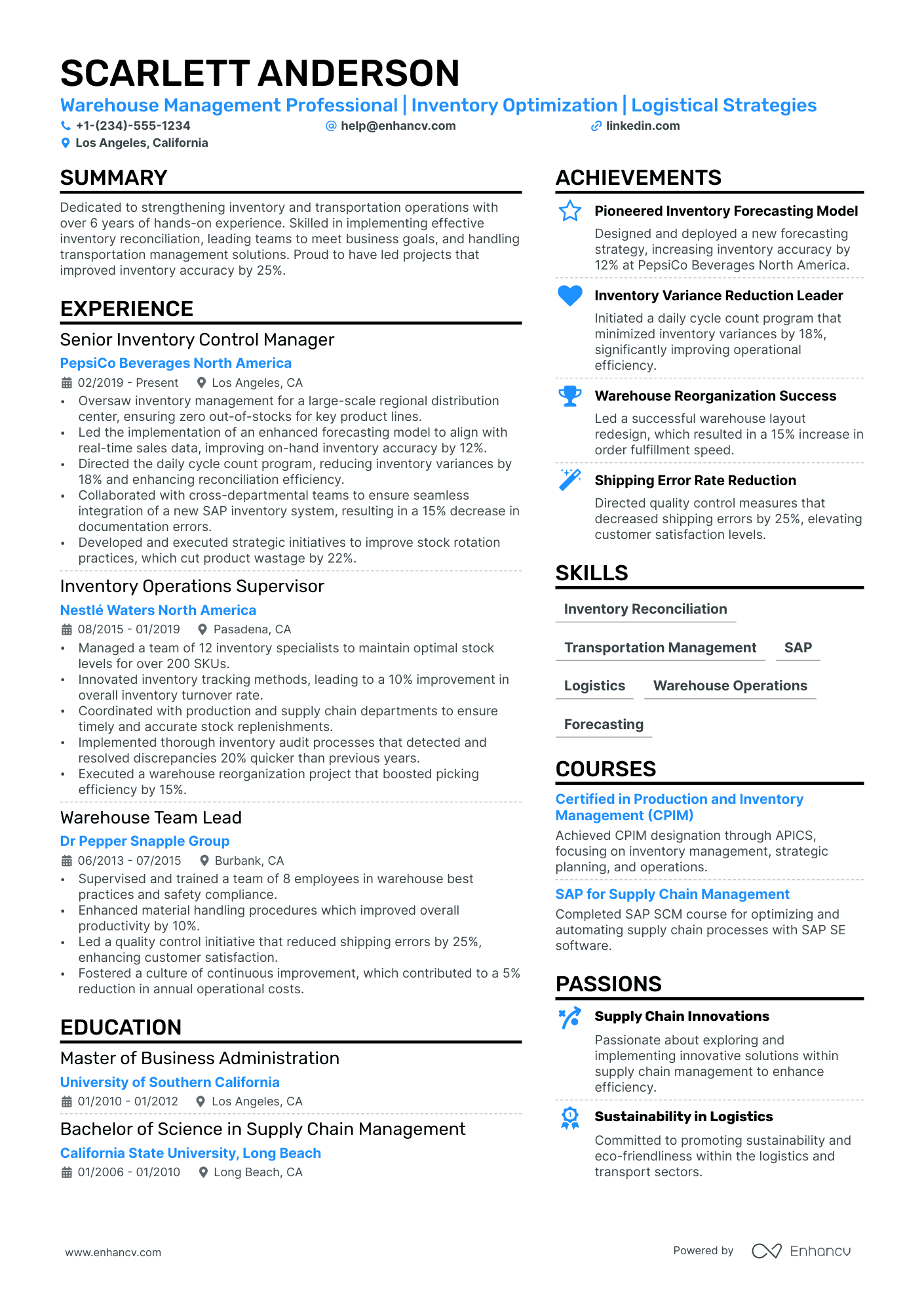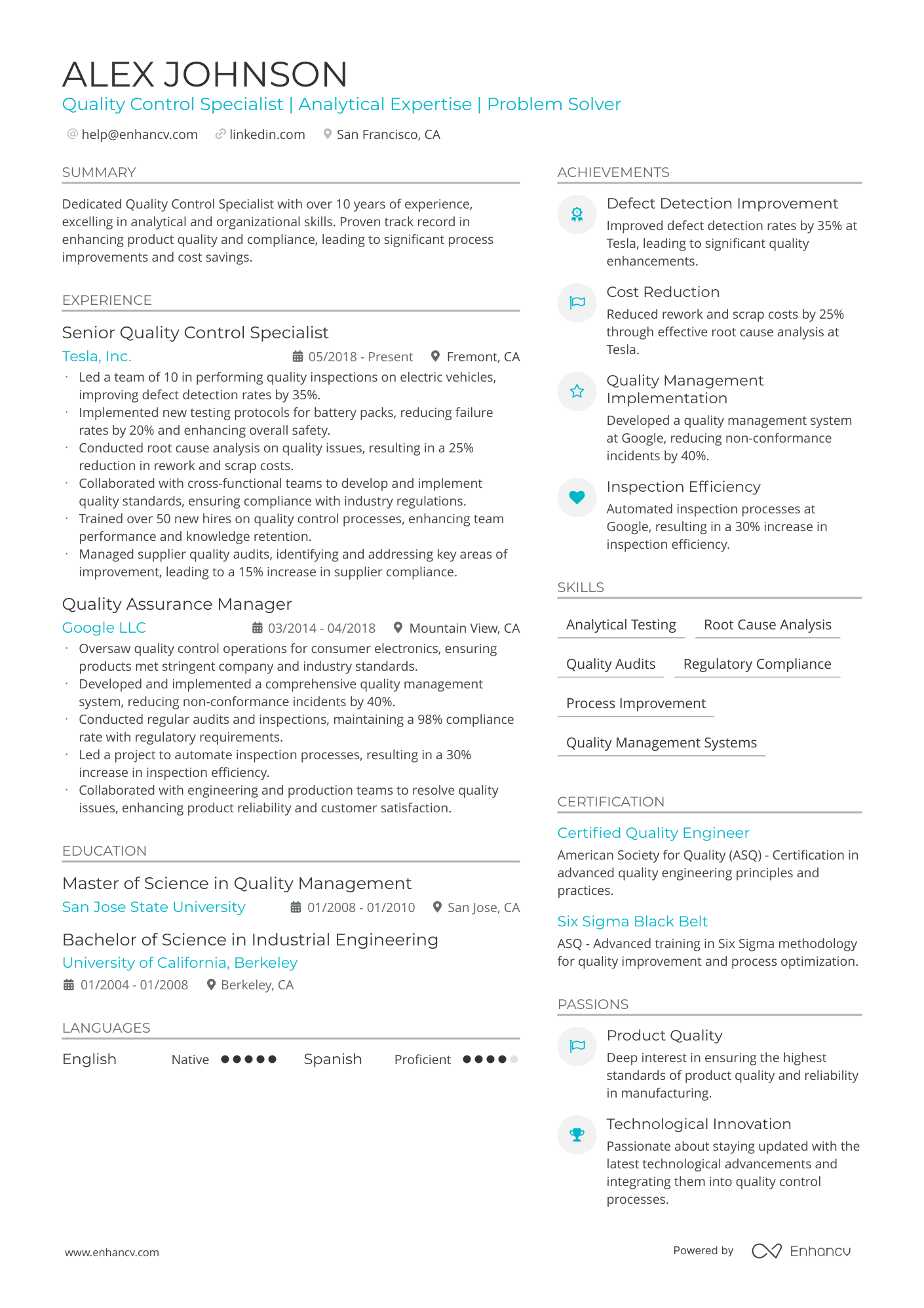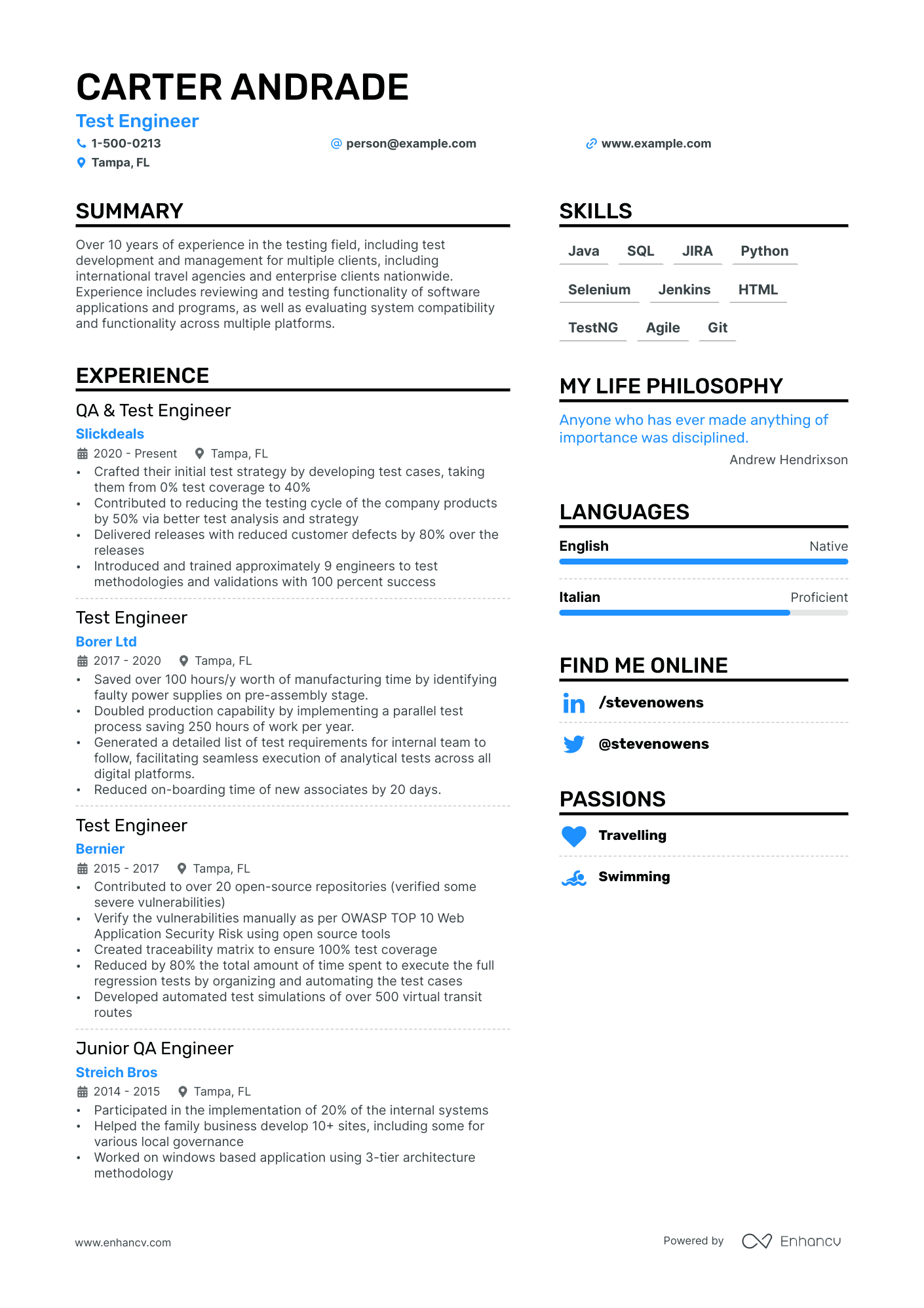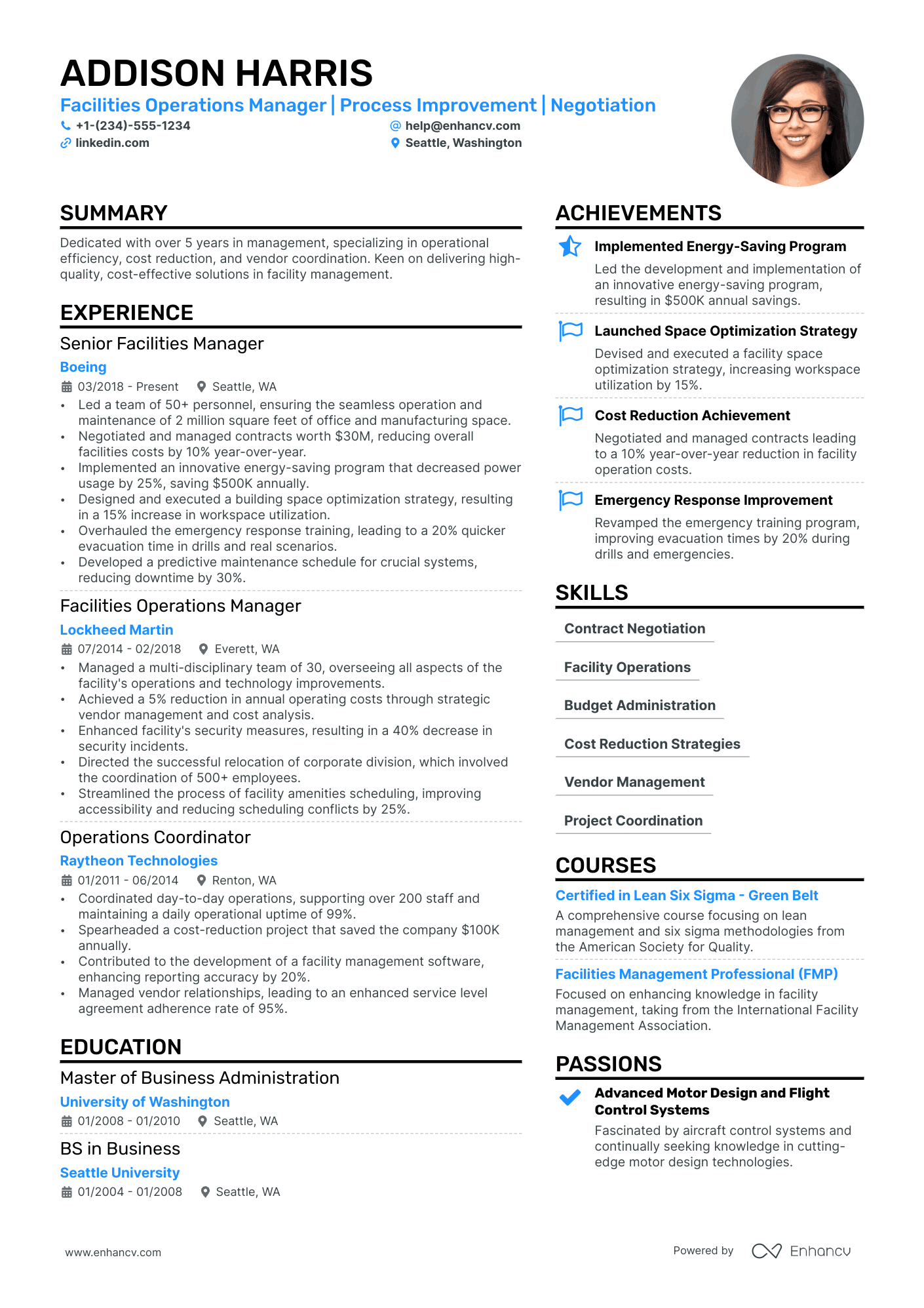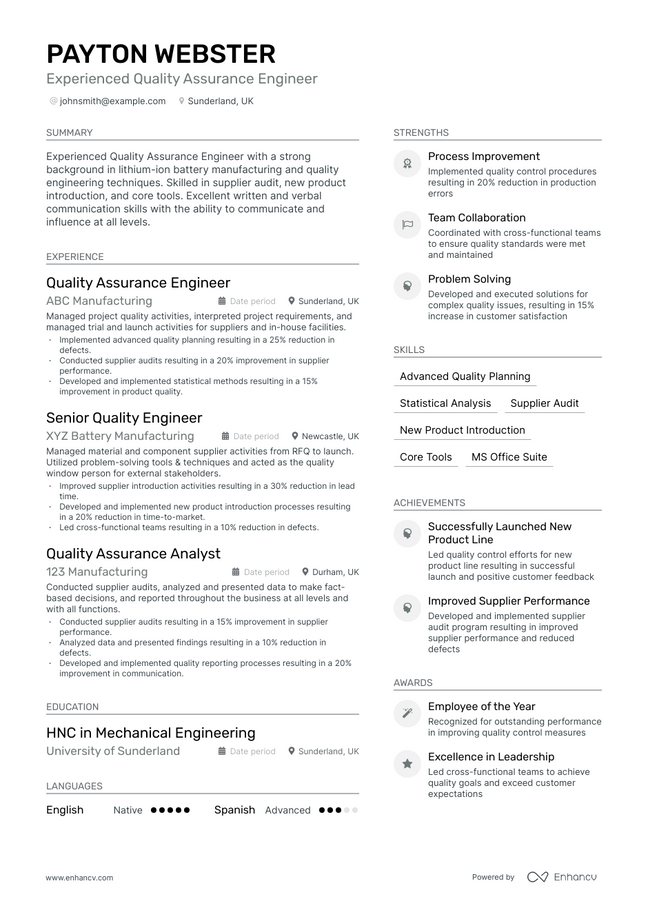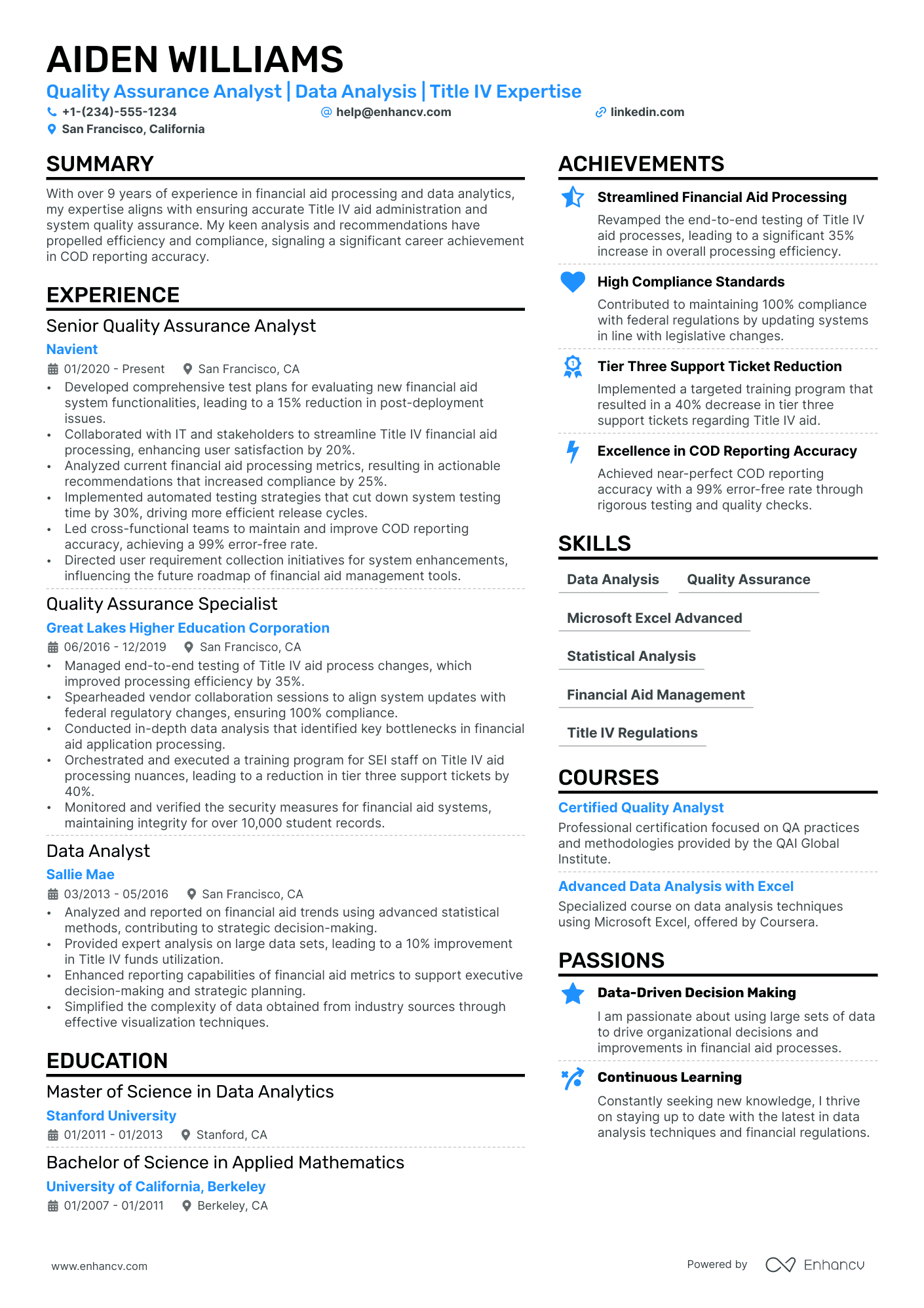Generate or Explore Resume Examples
Tell me about your experience, skills, and the job you're applying for — I'll instantly generate personalized resume samples for you. Or scroll down to find thousands of professional resume examples crafted by career experts.
 Most popular
Most popular
Accounting and finance resume examples
View all
98Creating an accounting or finance resume is all about showing that you’re organized, focused, and diligent while being an expert with numbers. Explore the resume samples below to craft your standout application.
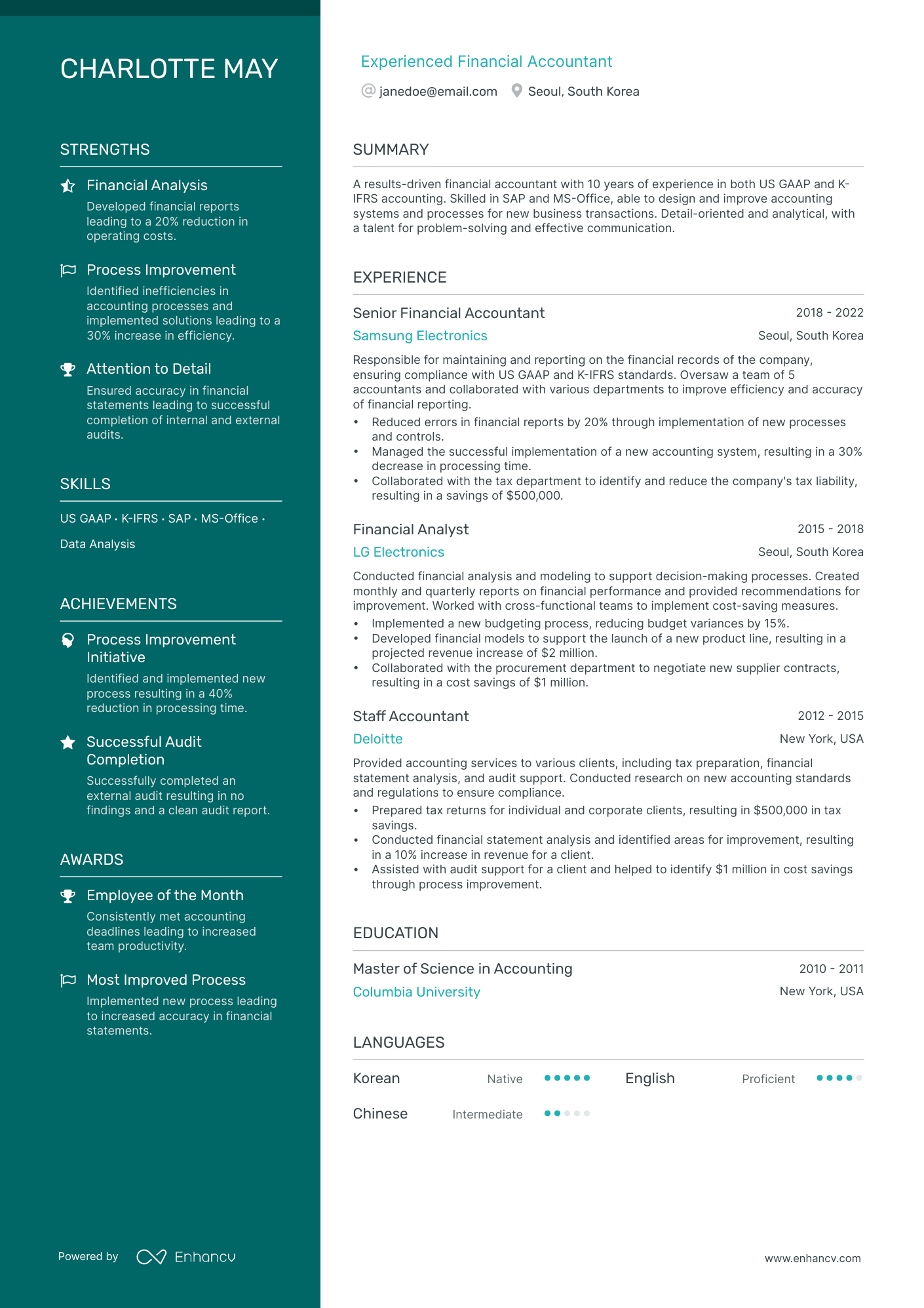
Accounting
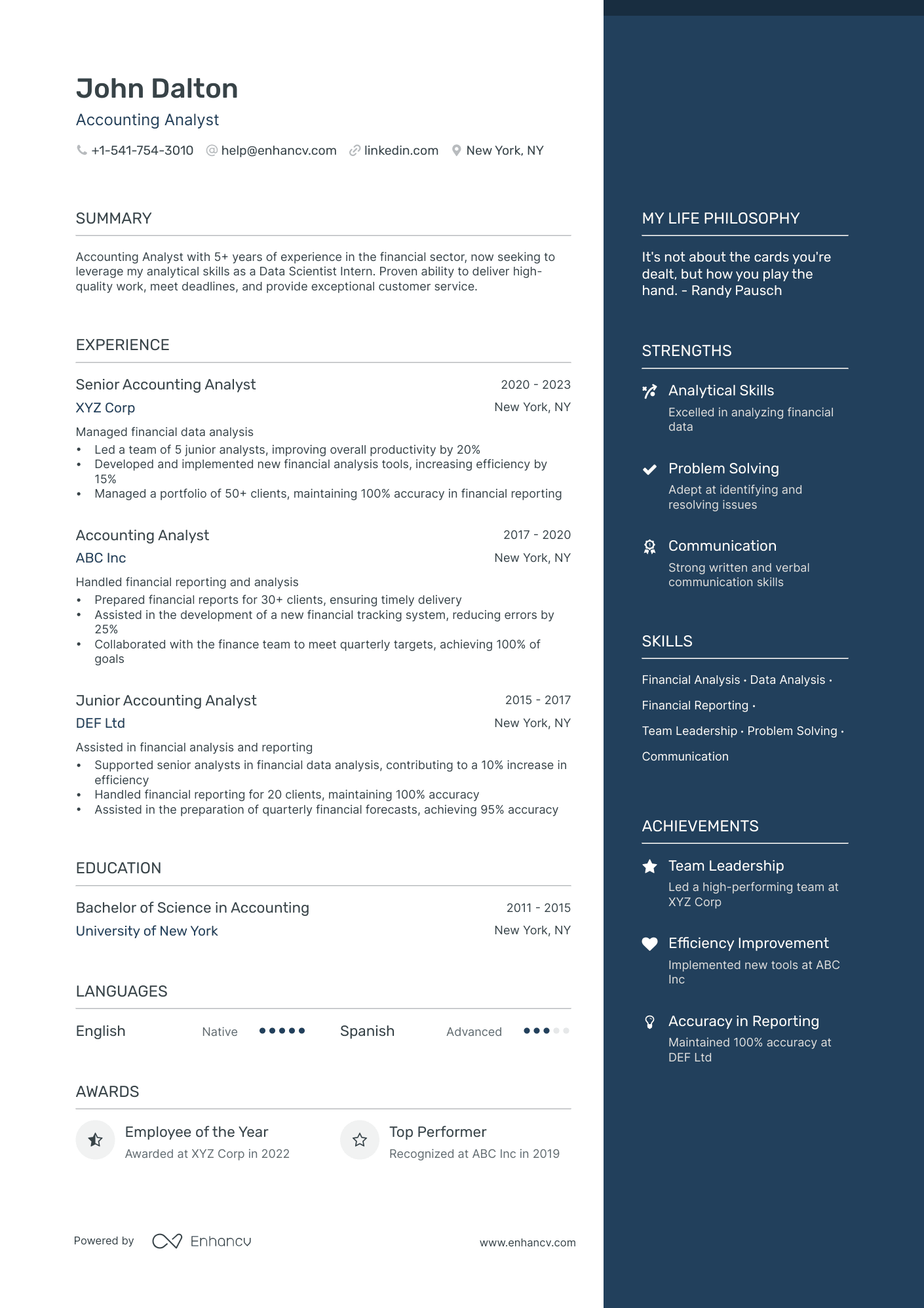
Accounting Analyst
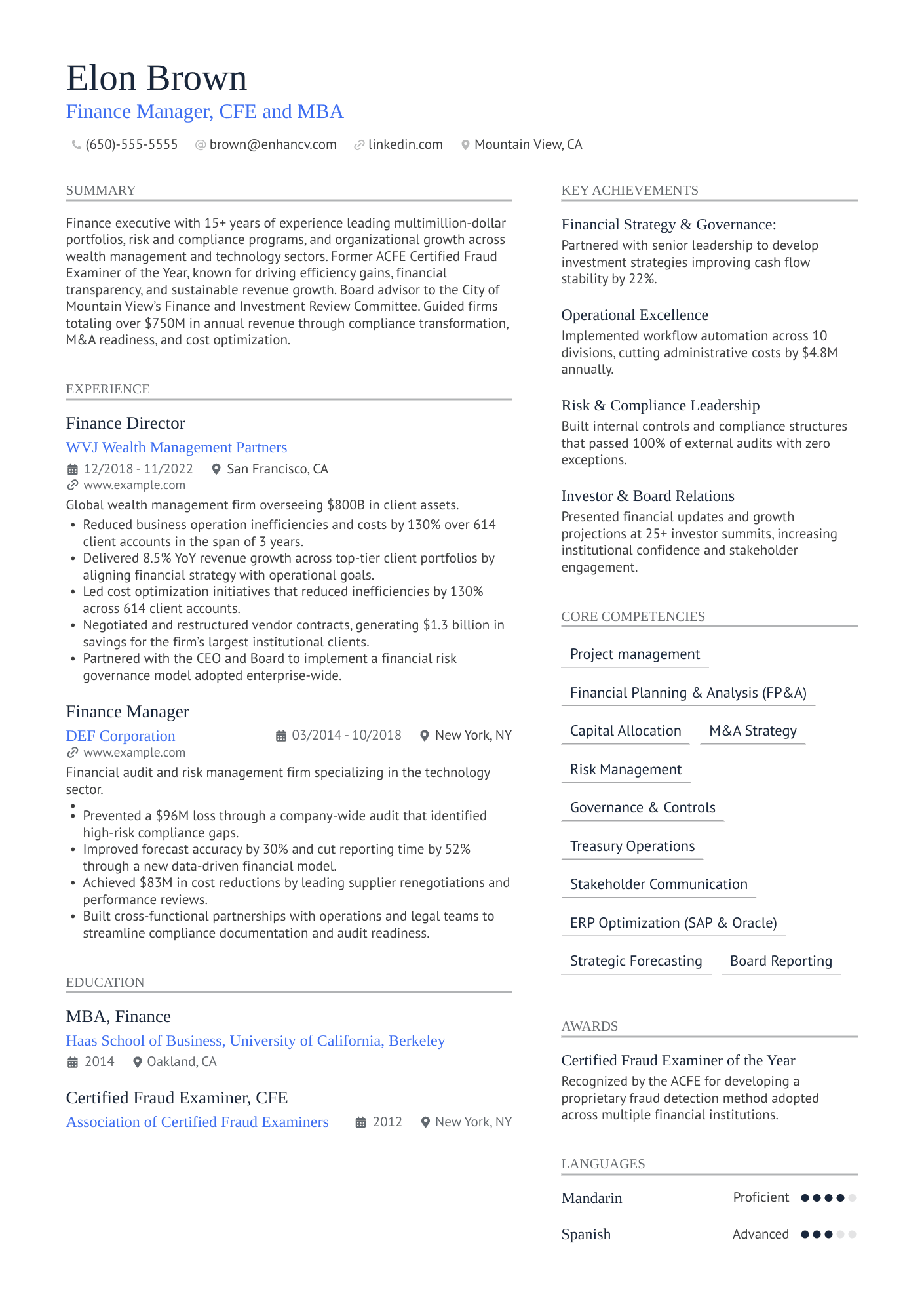
Chief Financial Officer
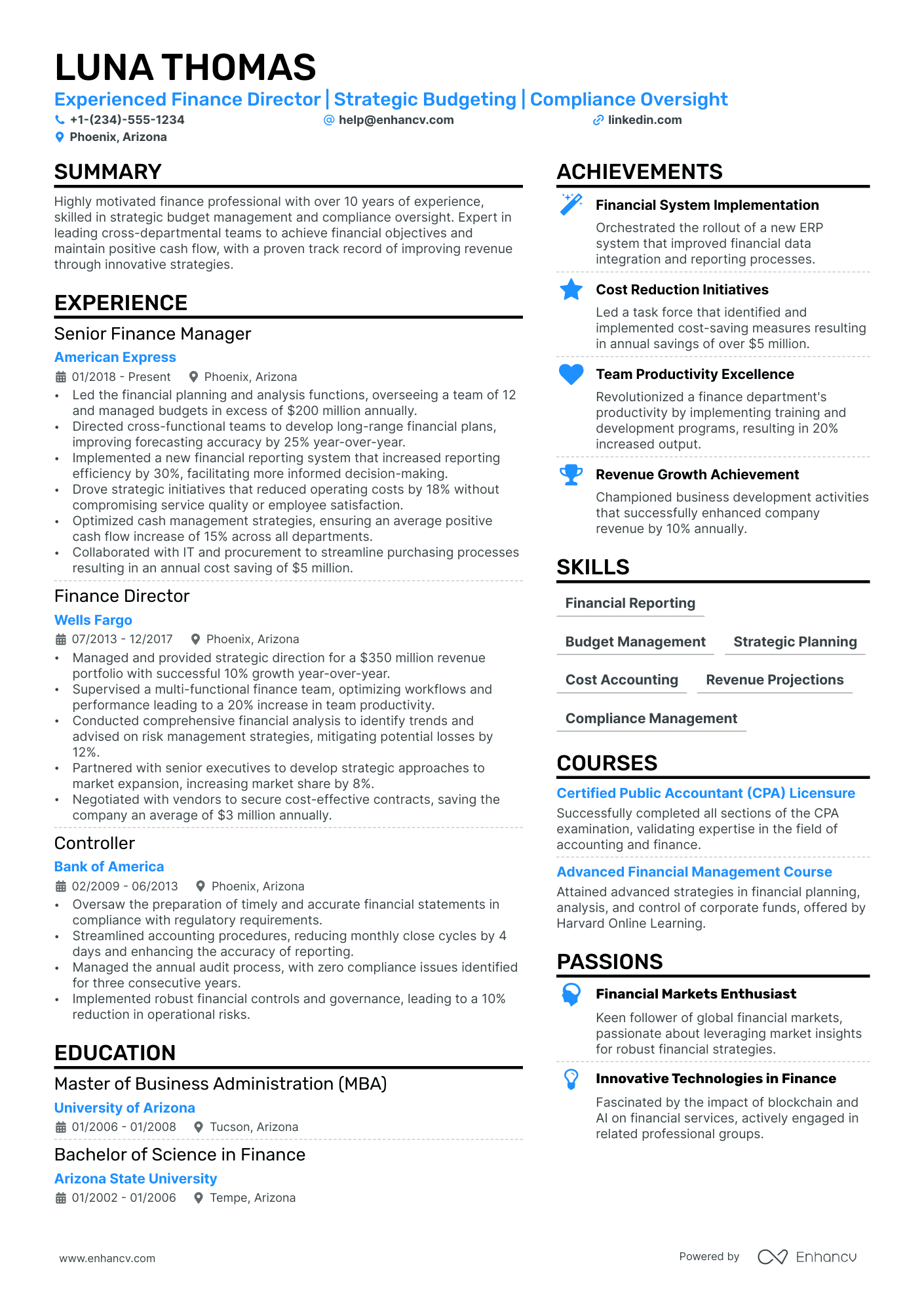
Director of Finance
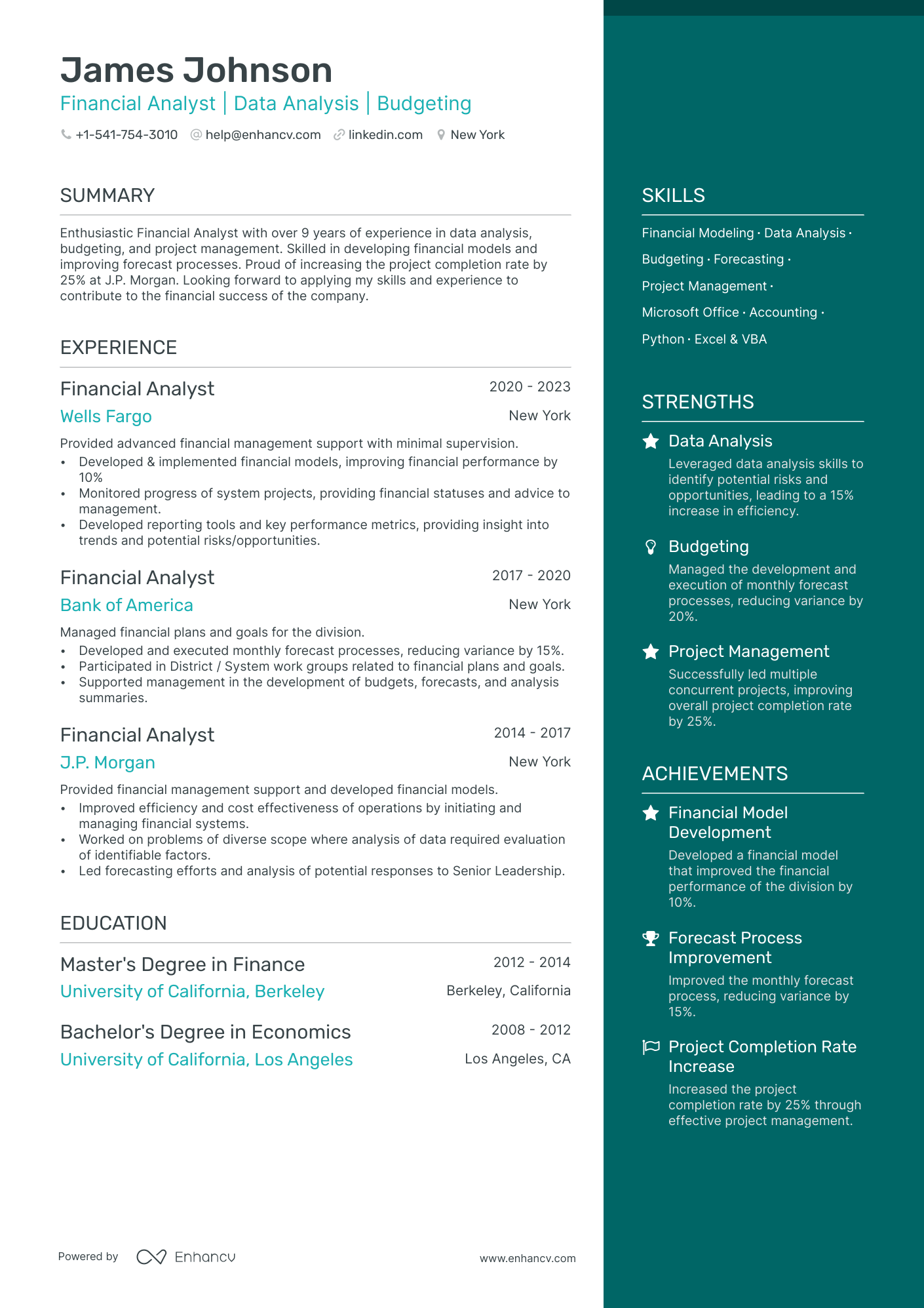
Financial Analyst
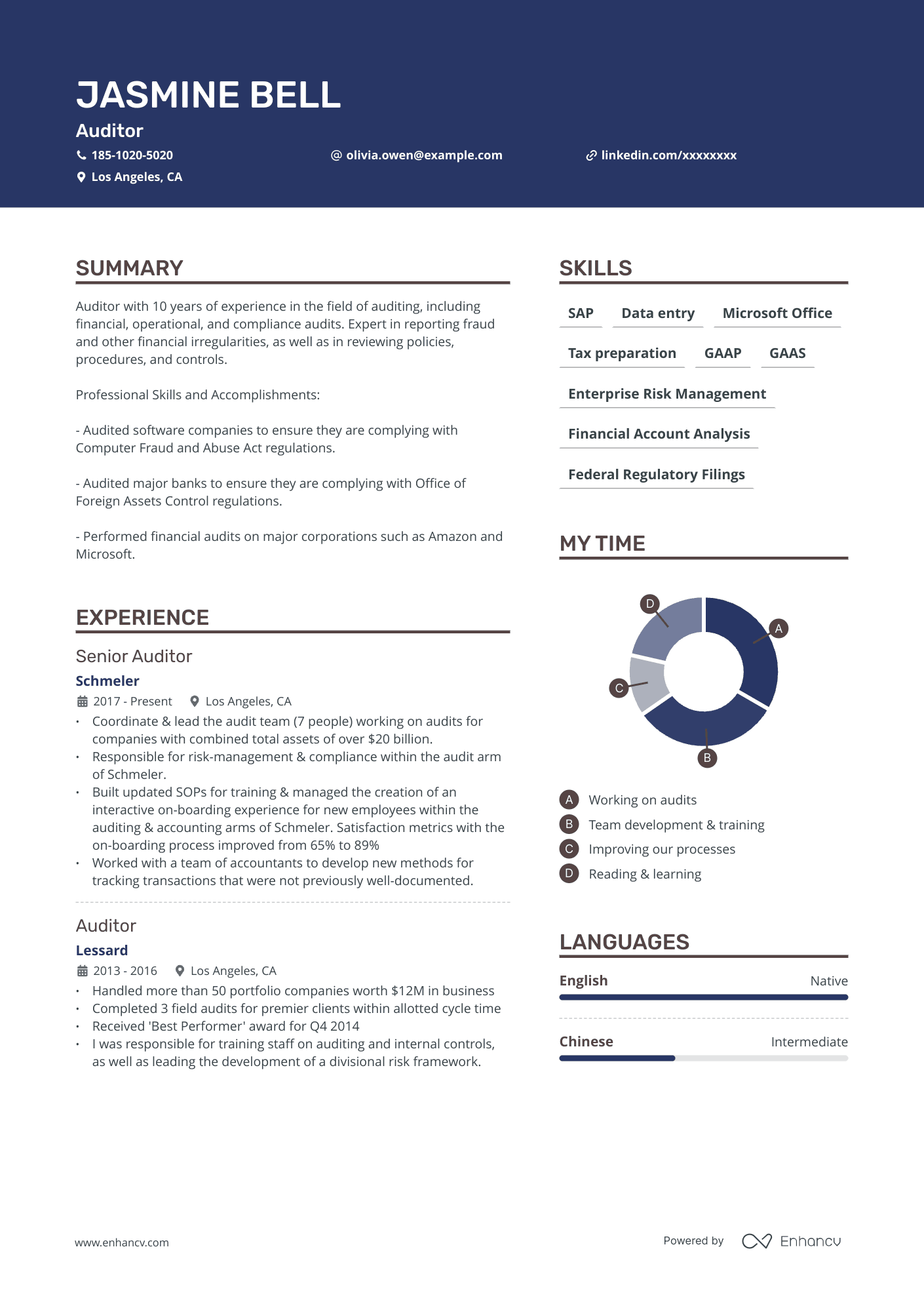
Auditor
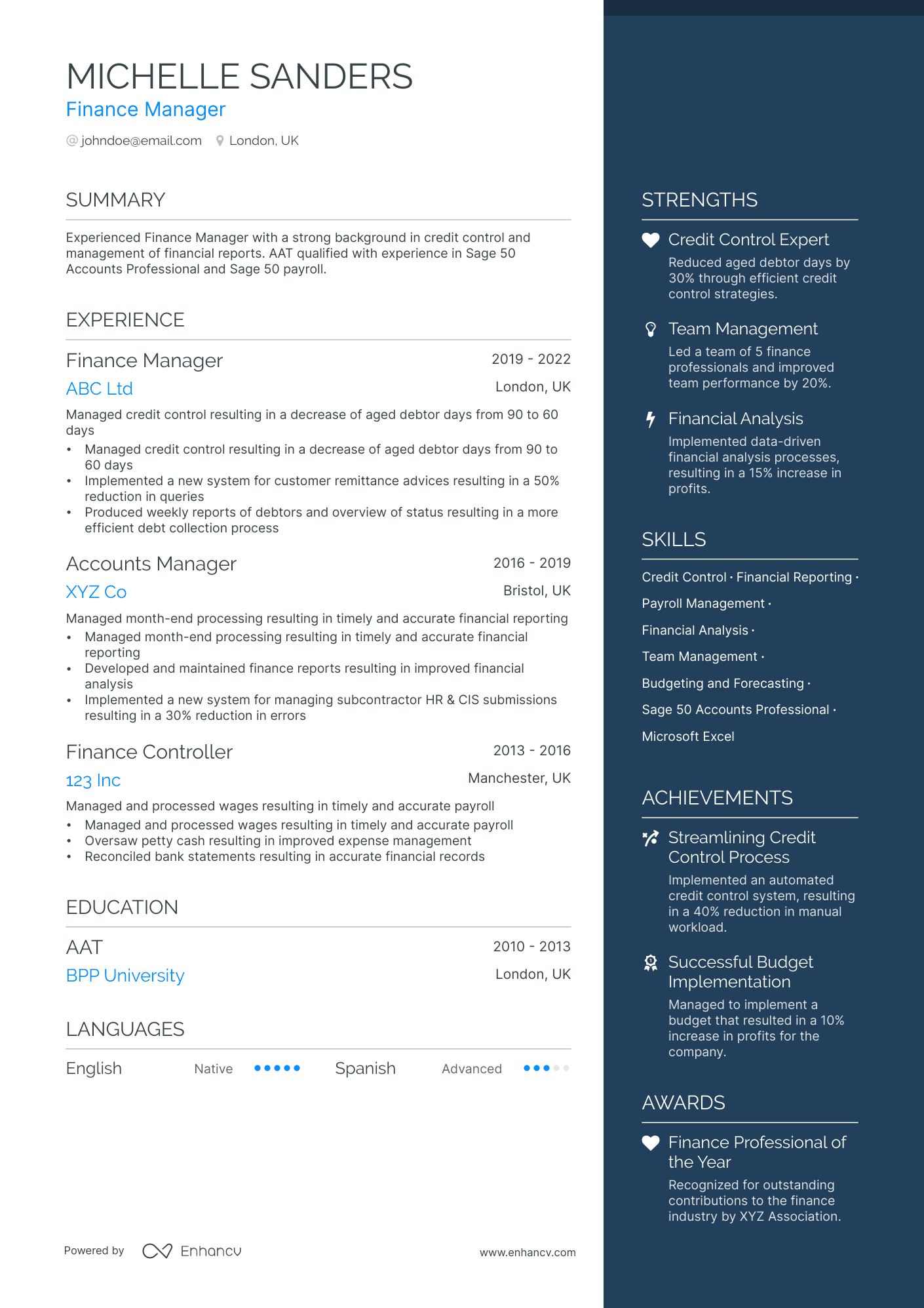
Finance Manager
Business and management resume examples
View all
89Our business analyst resume examples focus on skills and achievements to ensure you stand out. Crafted with time-proven design, you don’t have to worry about formatting – just focus on your experience.
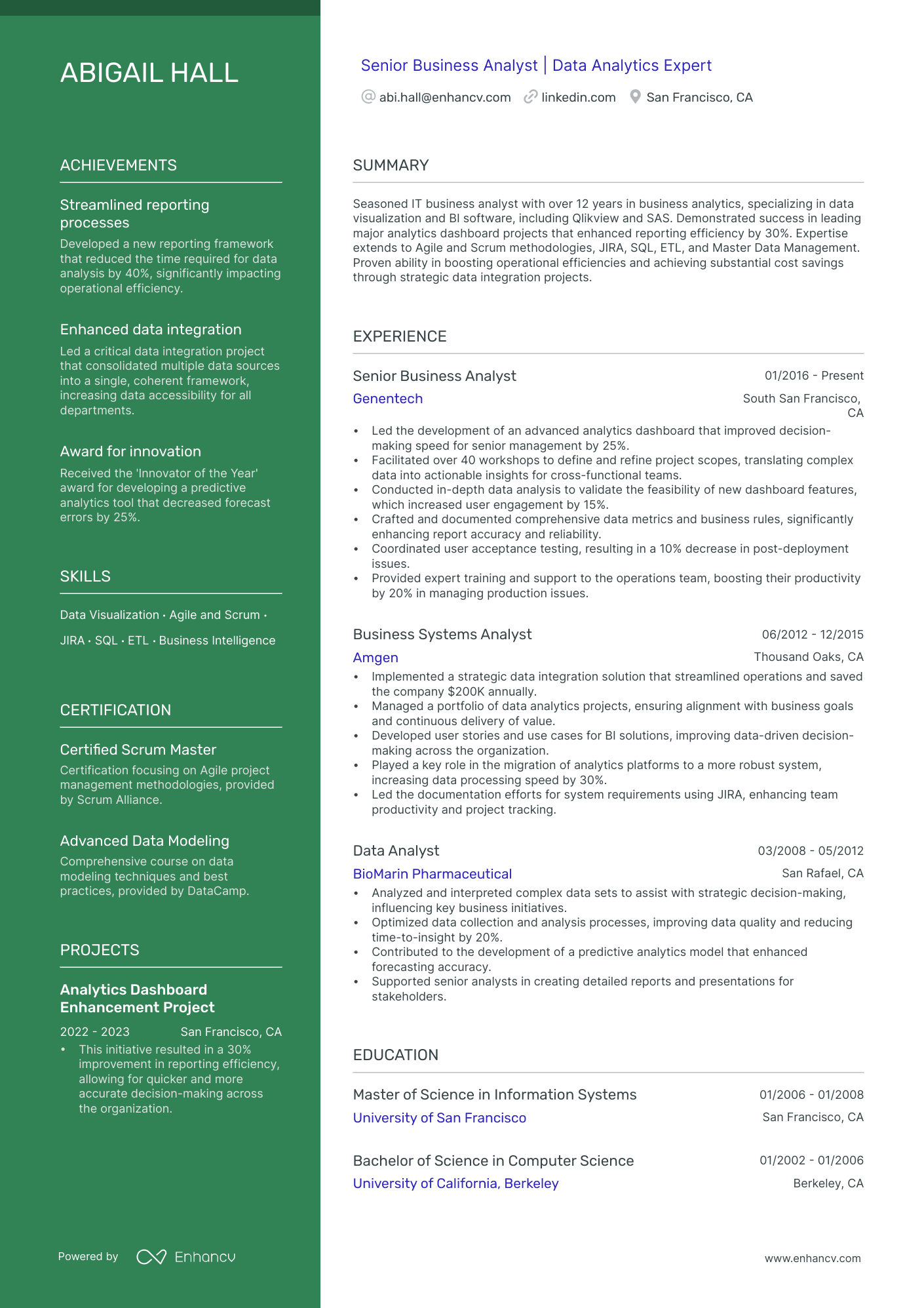
Business Analyst
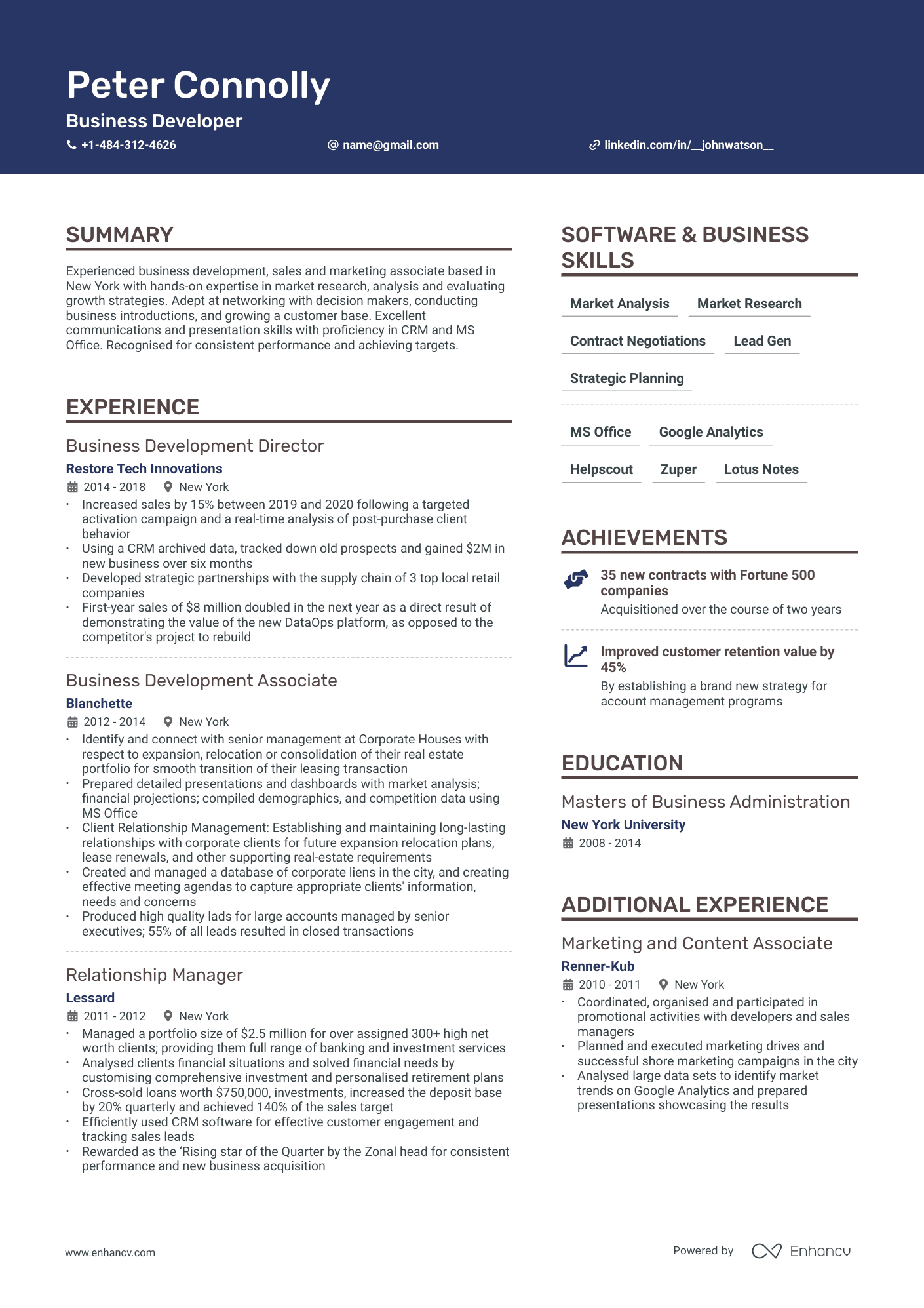
Business Development
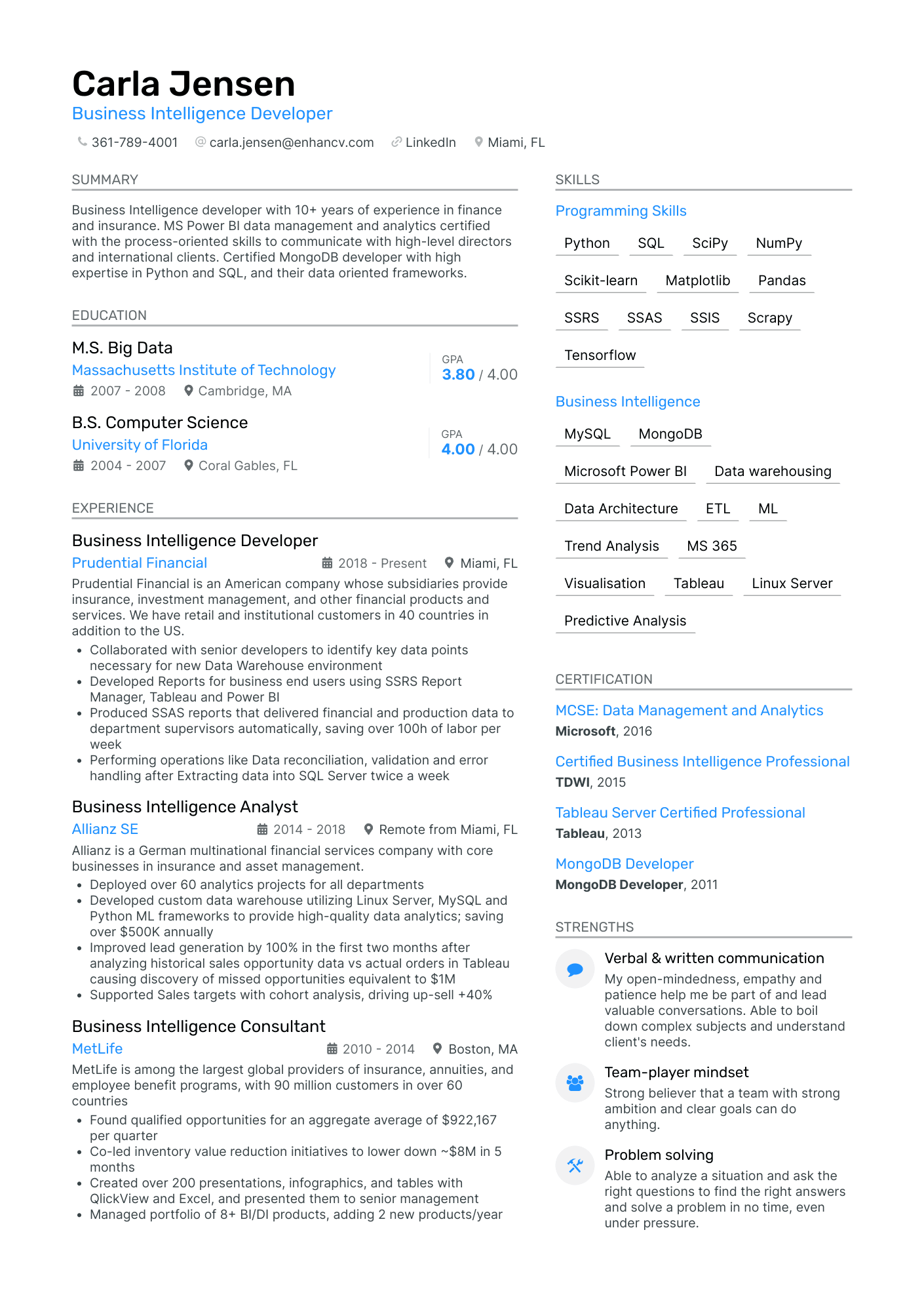
Business Intelligence
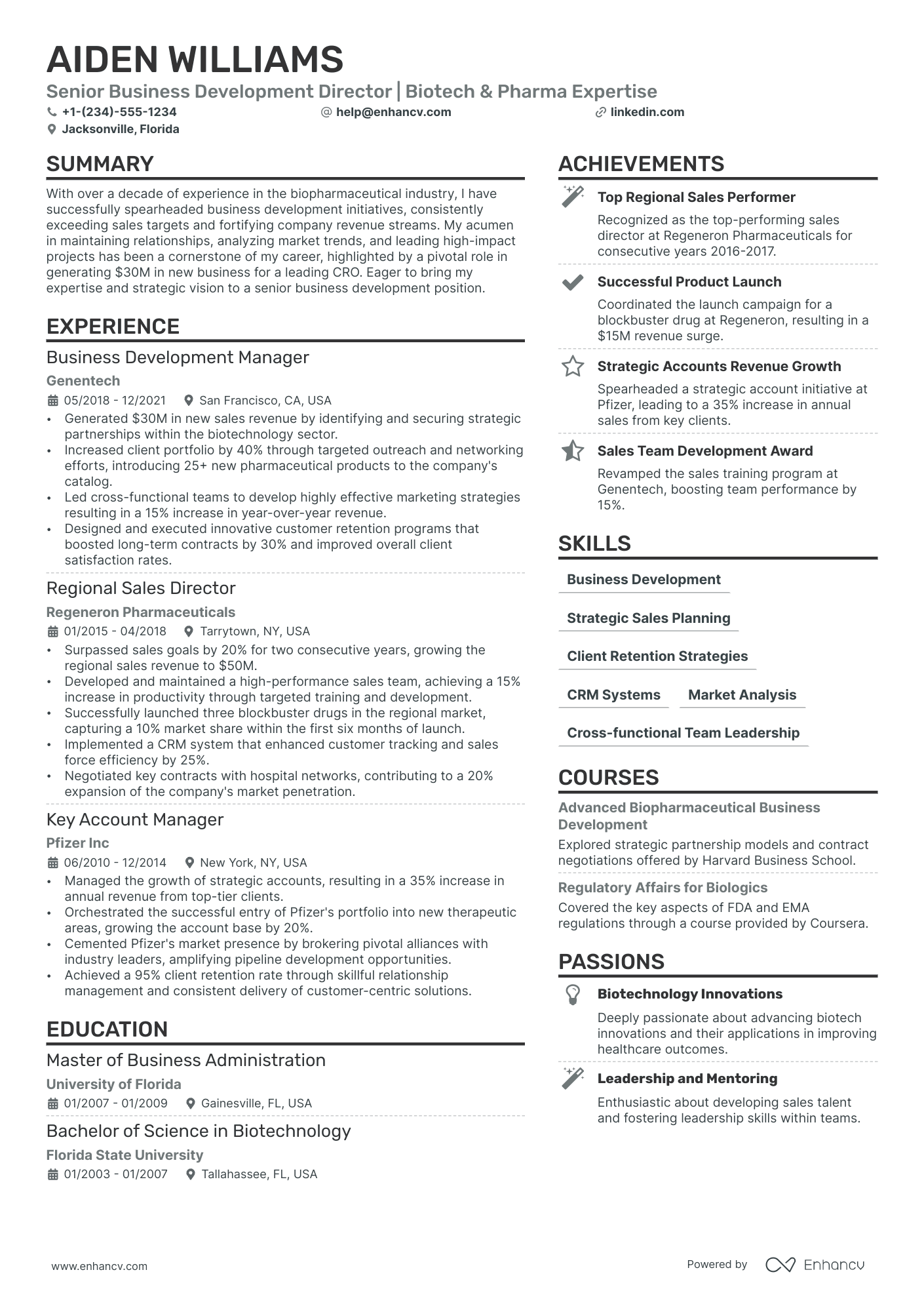
Director of Business Development
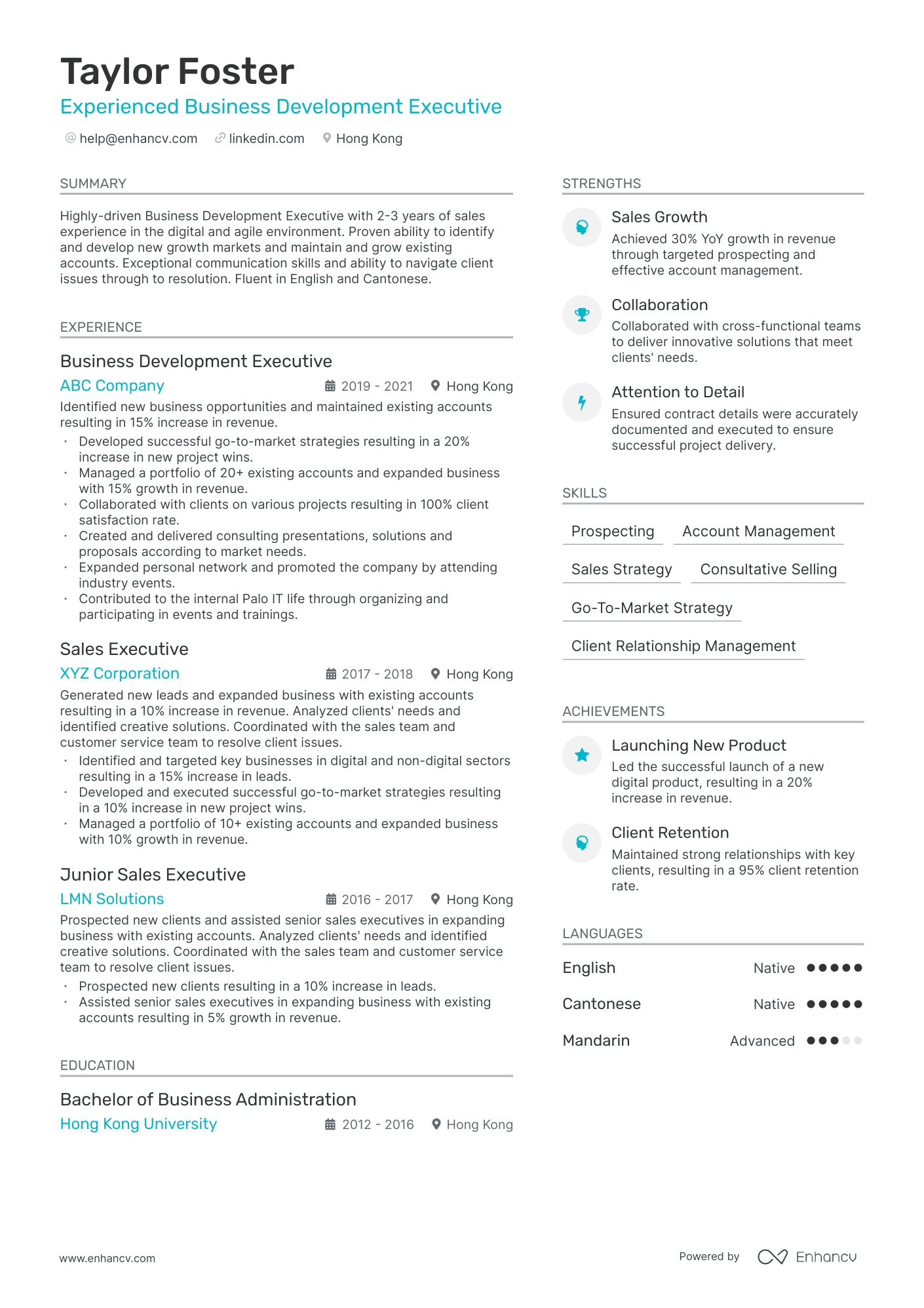
VP Business Development
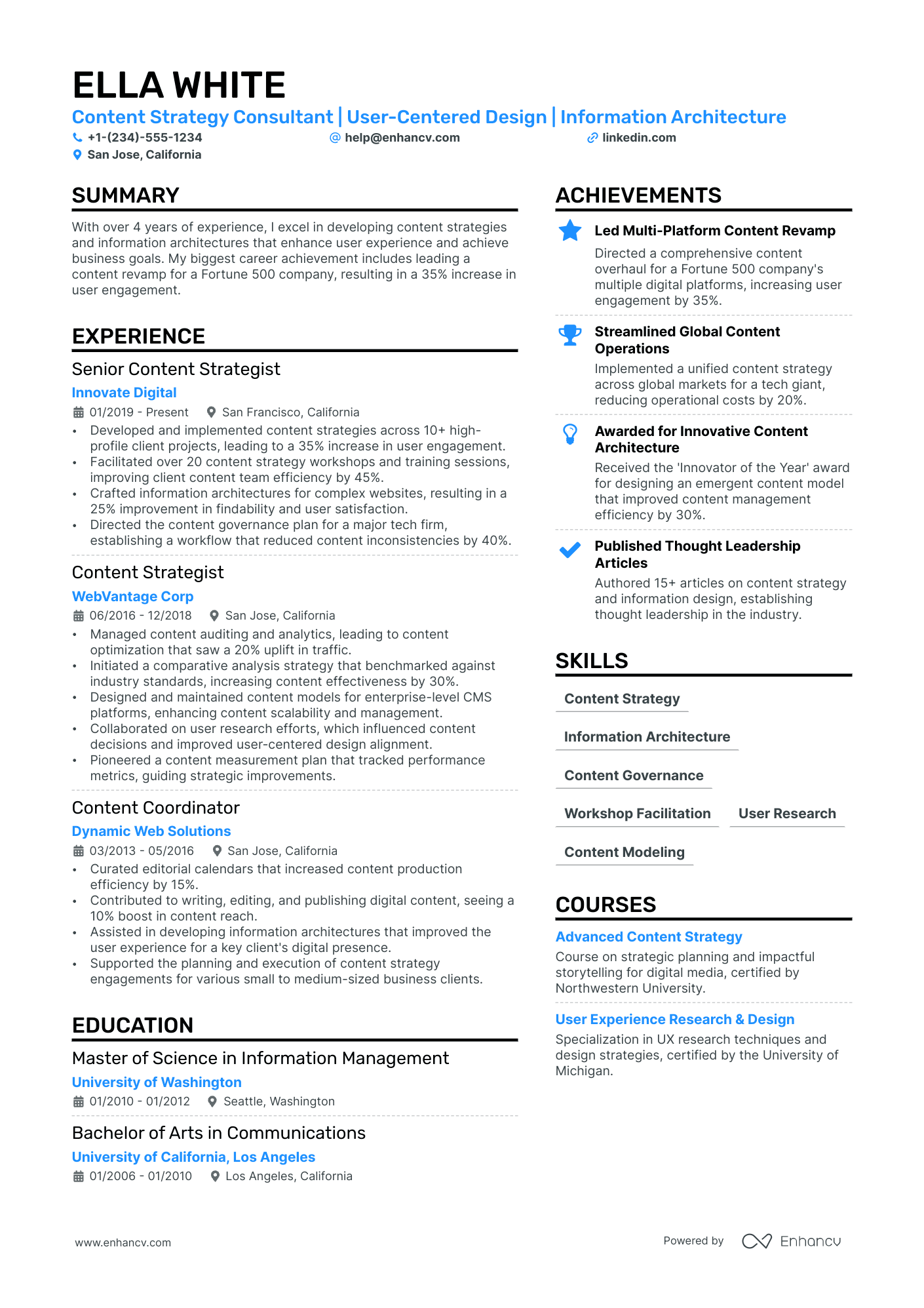
Strategy Consultant
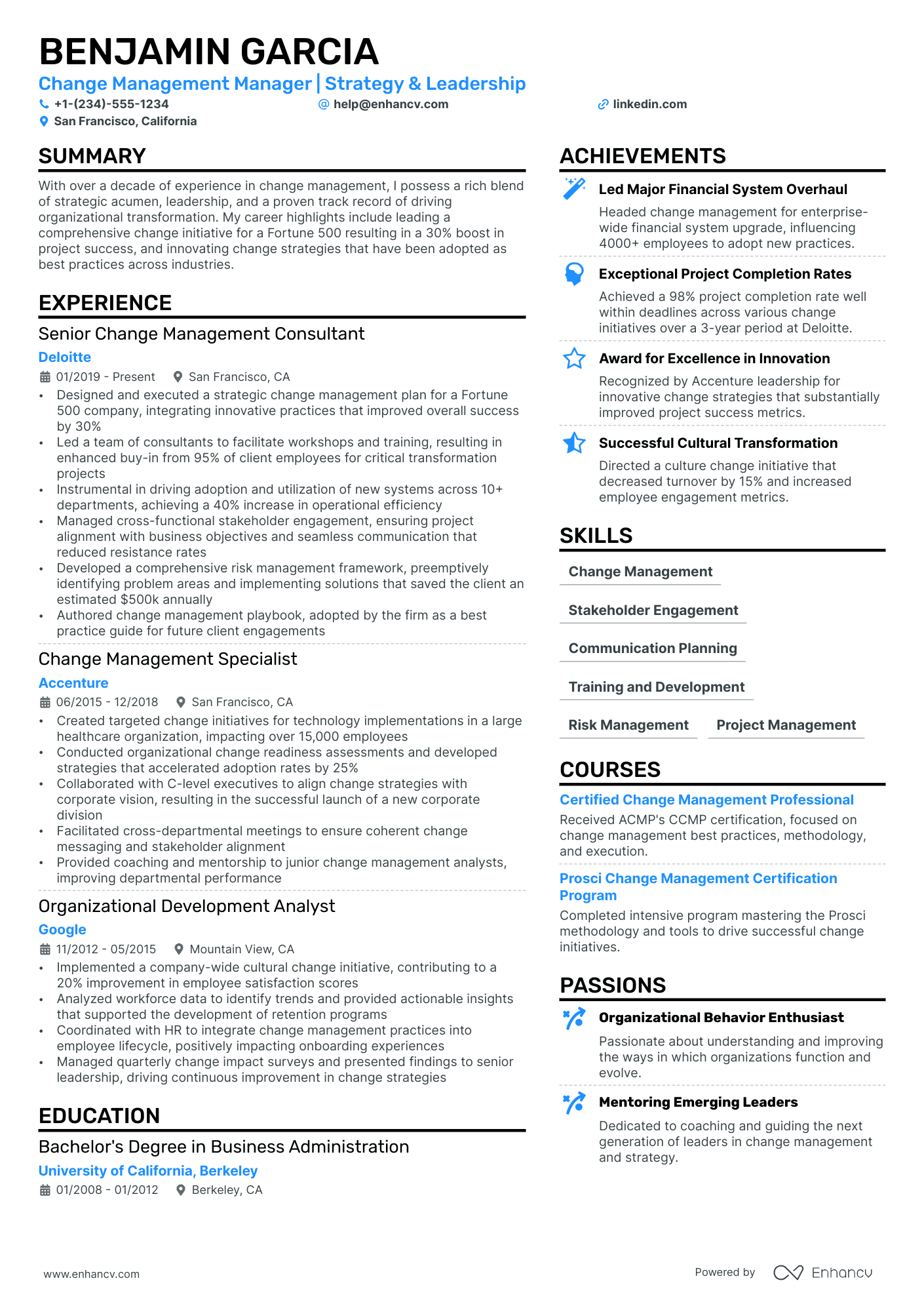
Management Consultant
Creative and cultural fields resume examples
View all
28Focus on your proof of excellence and present your professional experience in a detailed and professional manner. Choose a cultural resume sample and build yours right now.
Data science resume examples
View all
34Build a resume that shows business impact. Choose from the best data scientist resume samples and create a resume that beats luck and gets callbacks. Focus on previous experience and past publications of your work.
Design resume examples
View all
49We’re pretty sure that you know a thing or two about creating a great-looking resume. Use our design resume samples to make one that stands out. You just need to focus on communicating your experience and how you’ve made an impact through design.
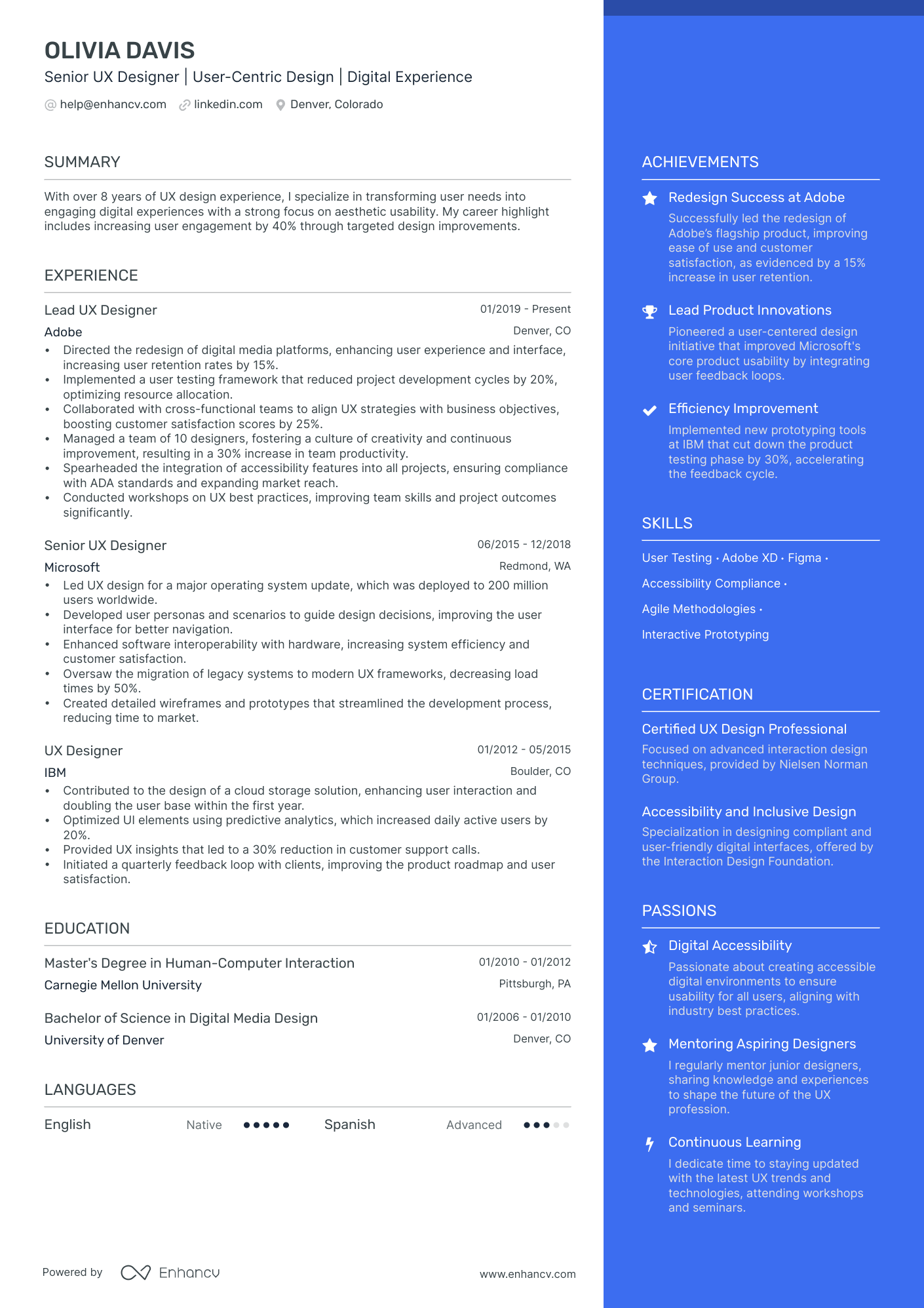
UX Designer
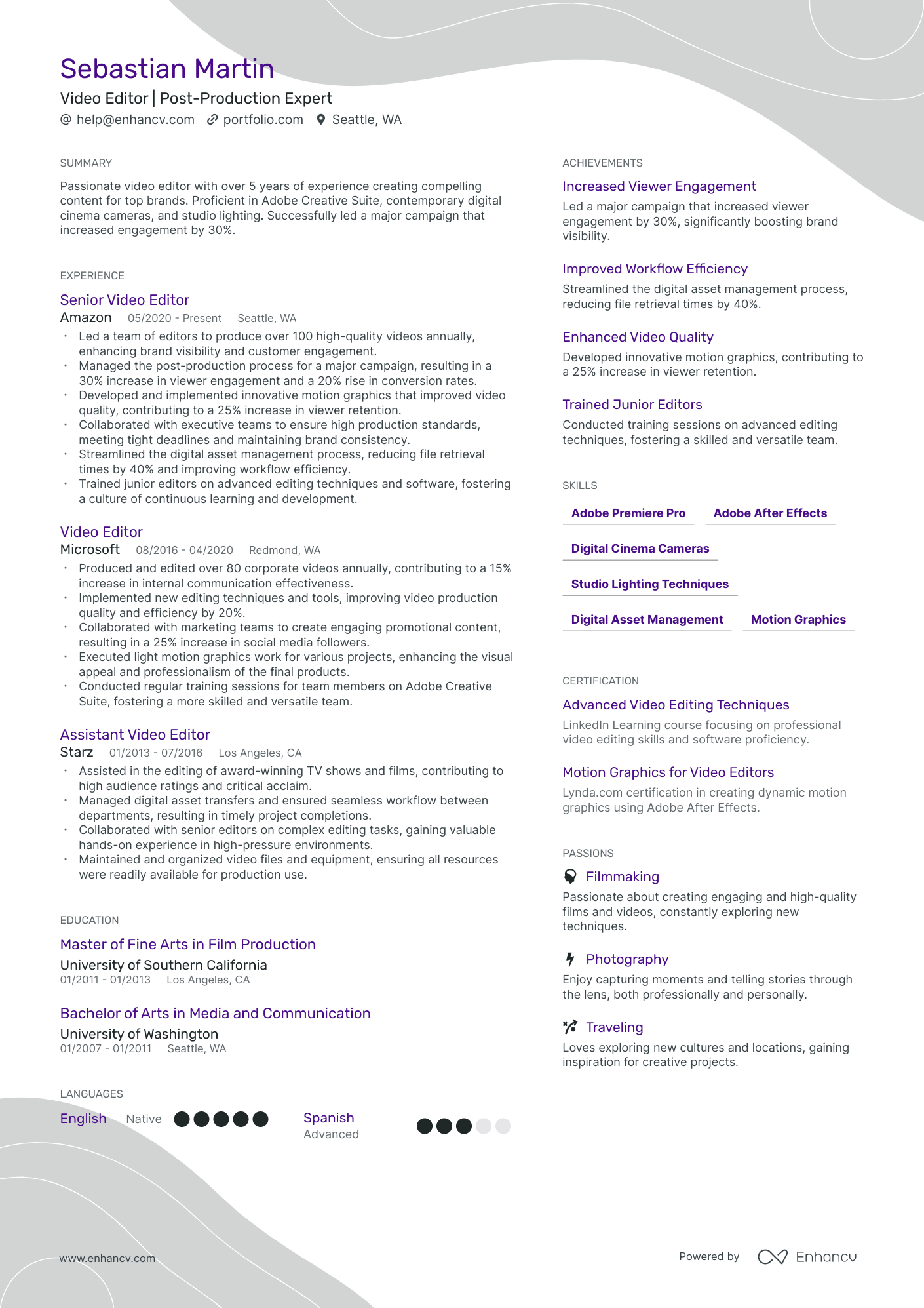
Video Editor
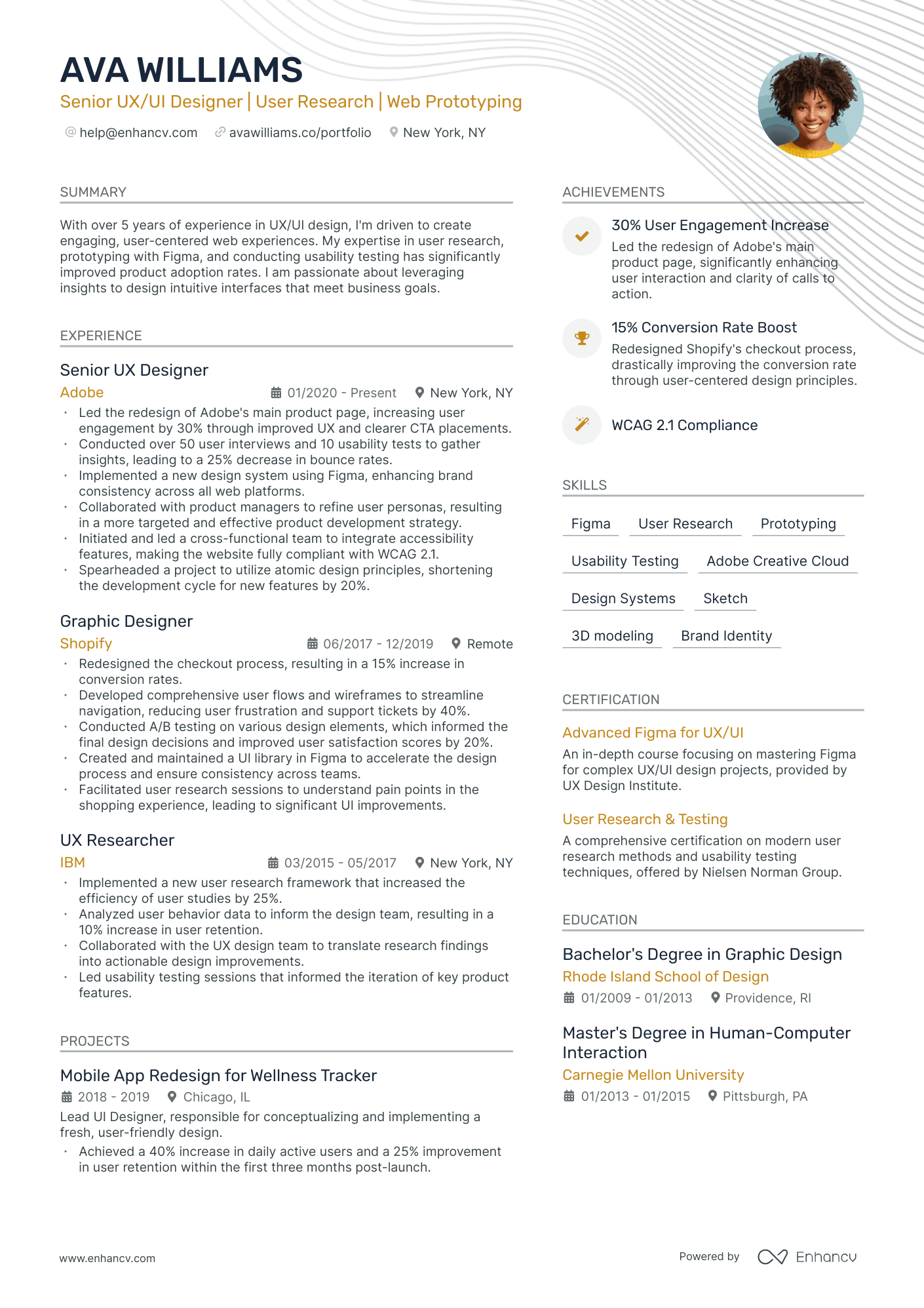
Designer
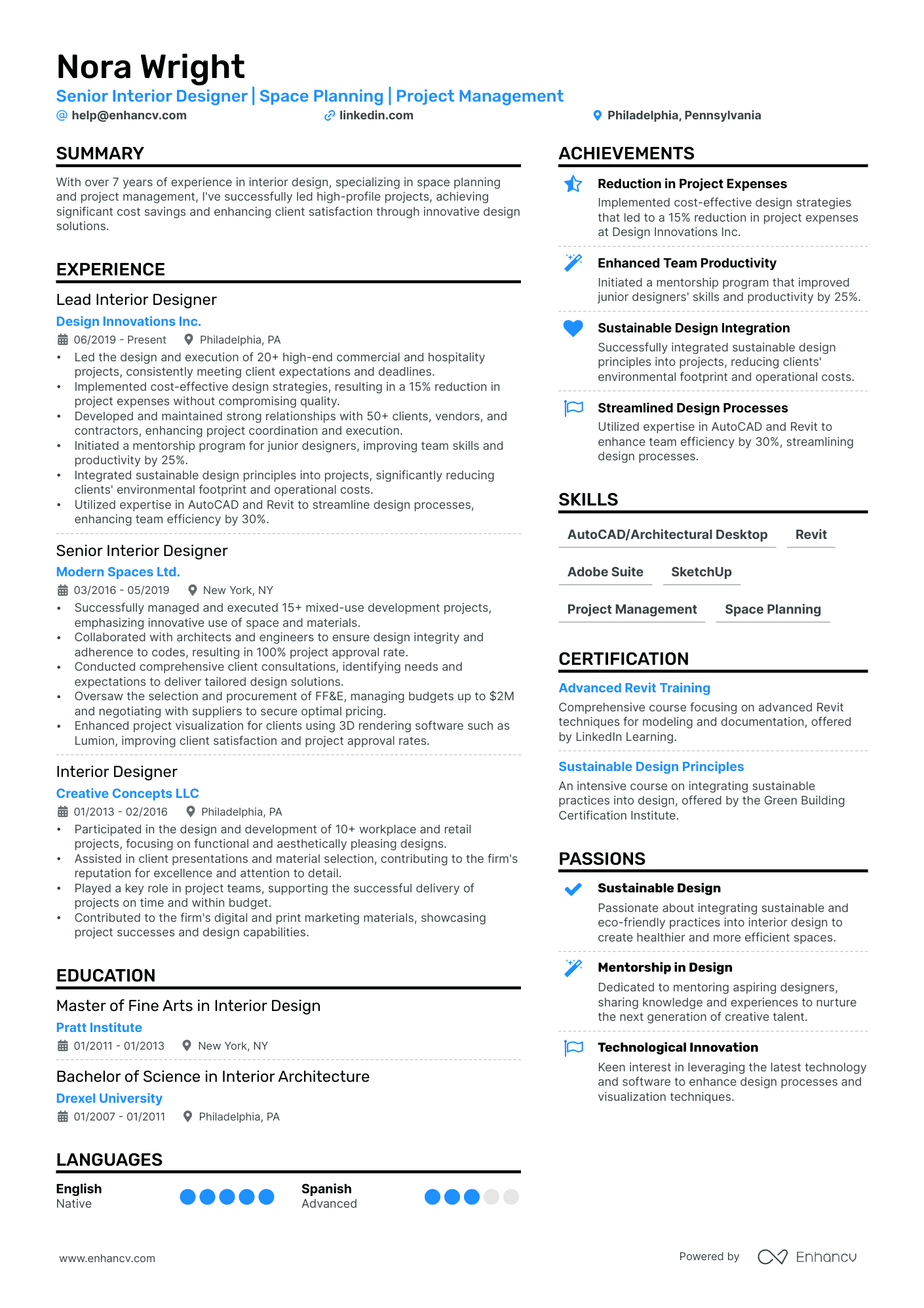
Interior Designer
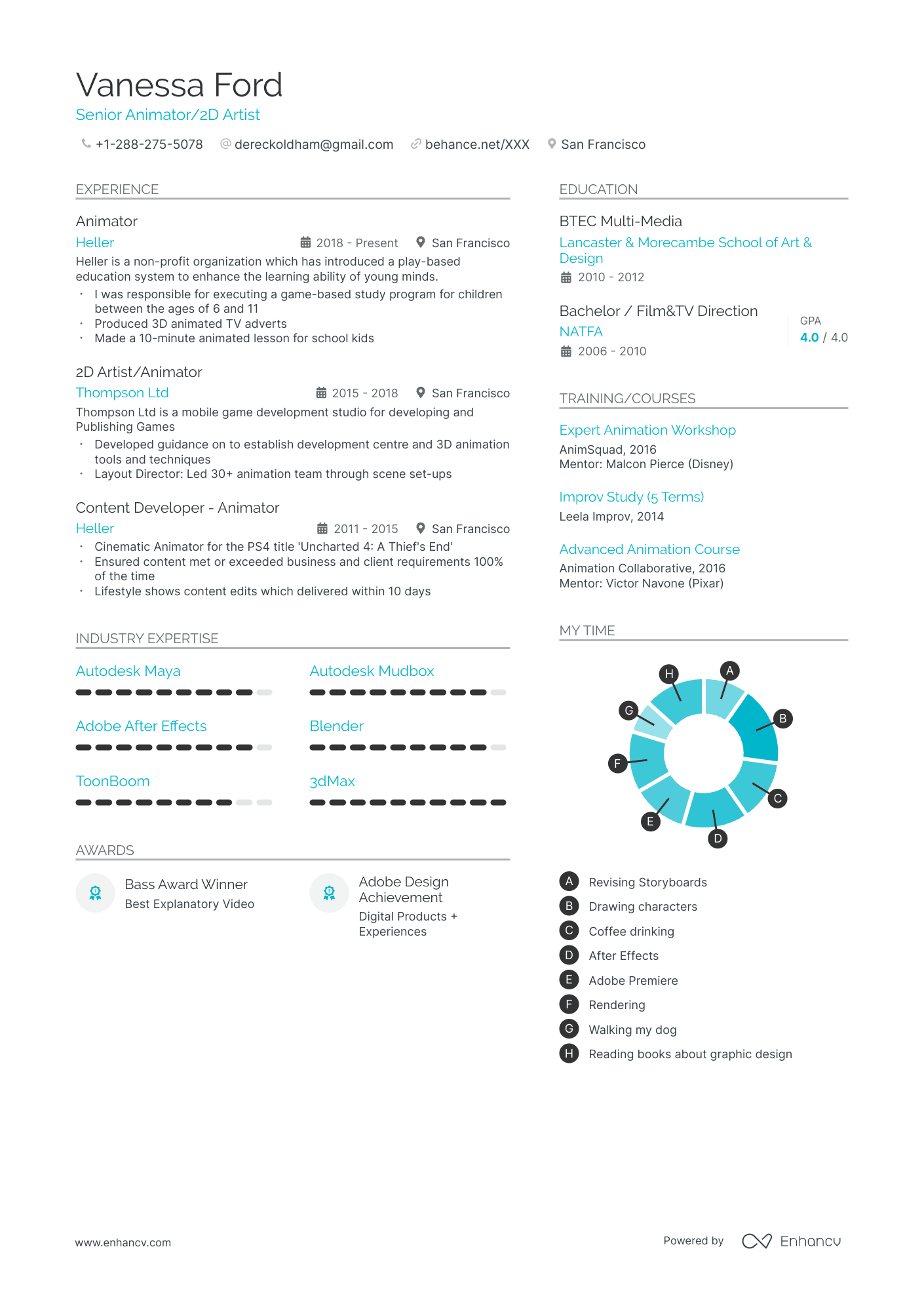
Animator
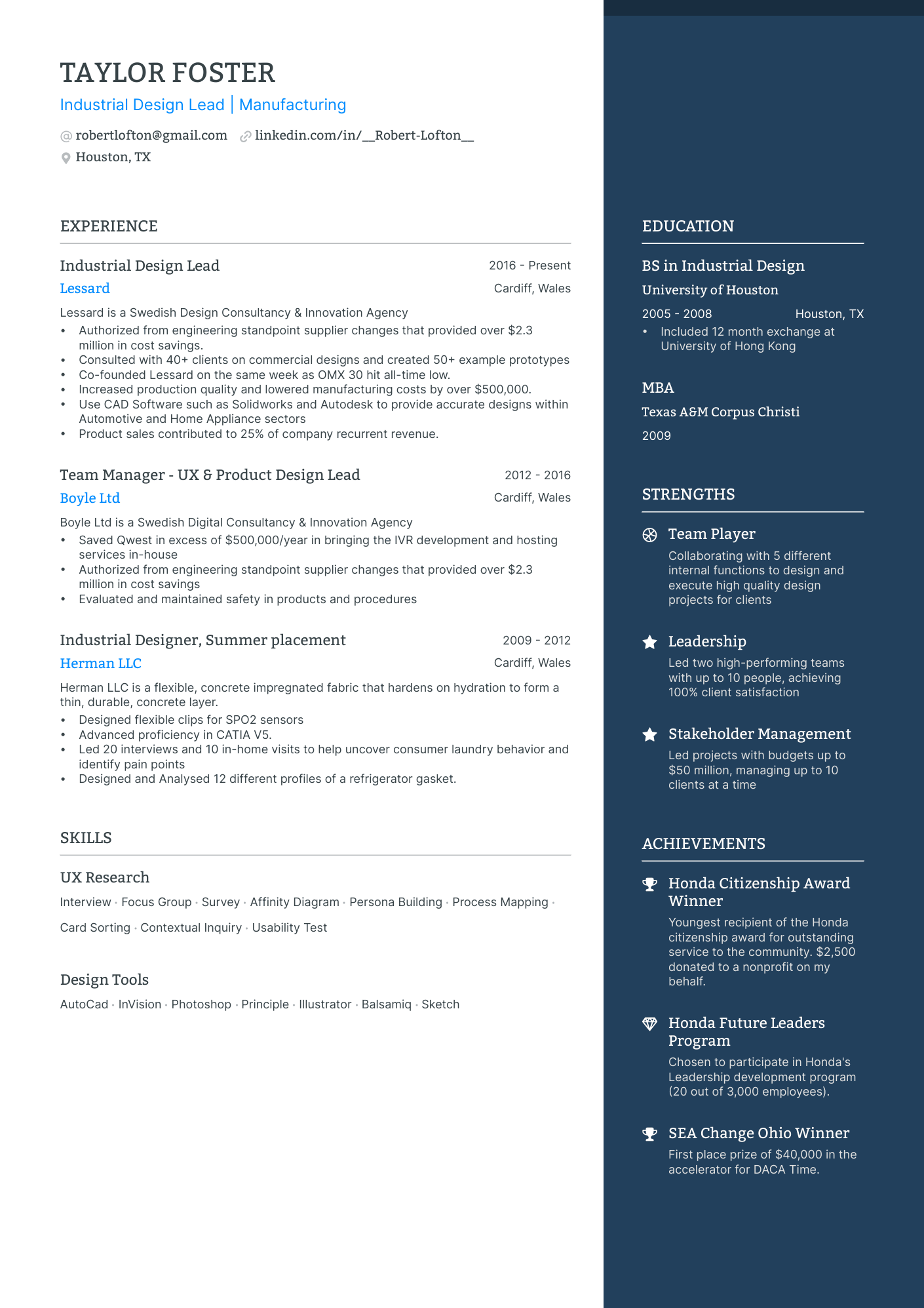
Industrial Design
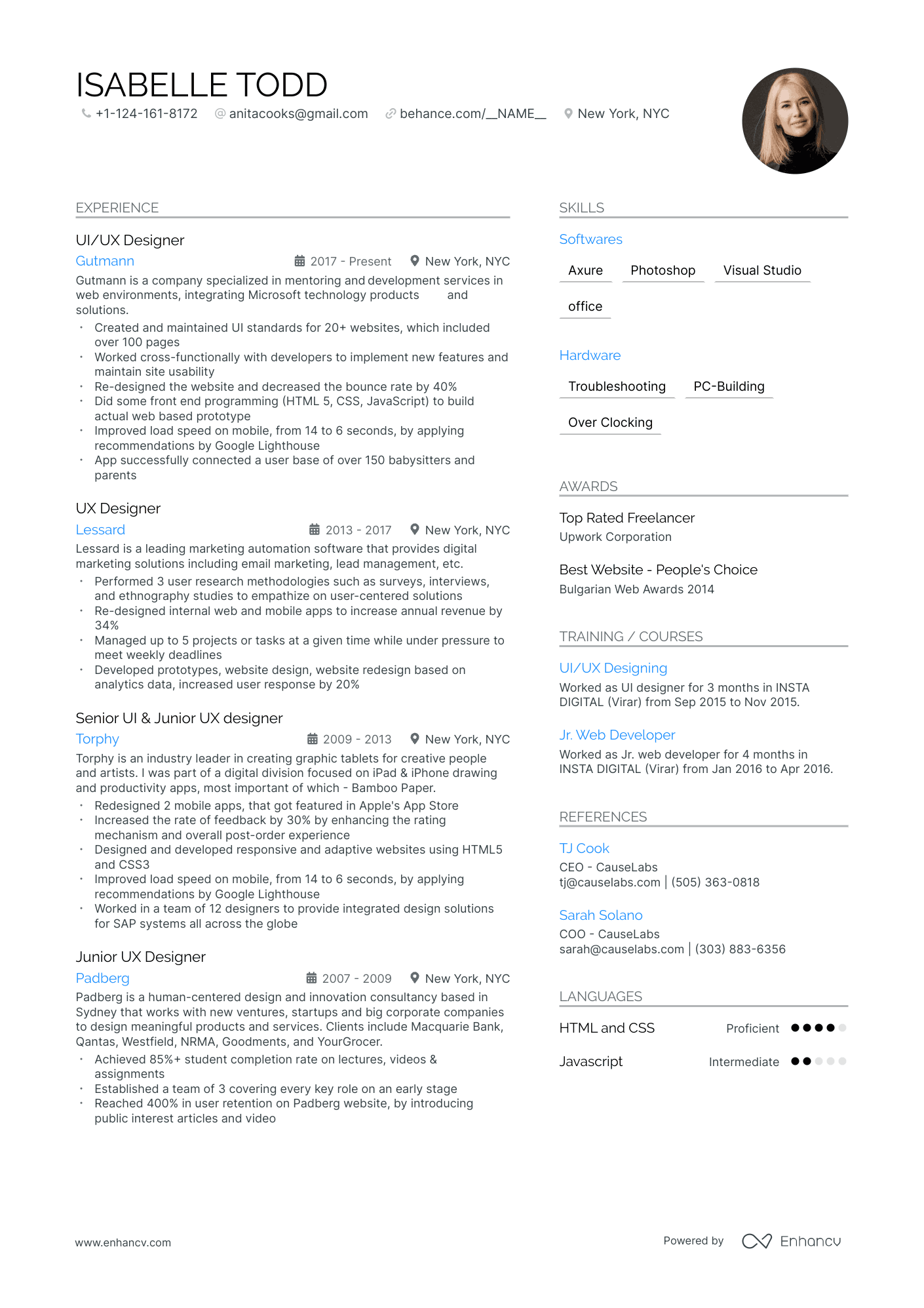
UX UI Designer
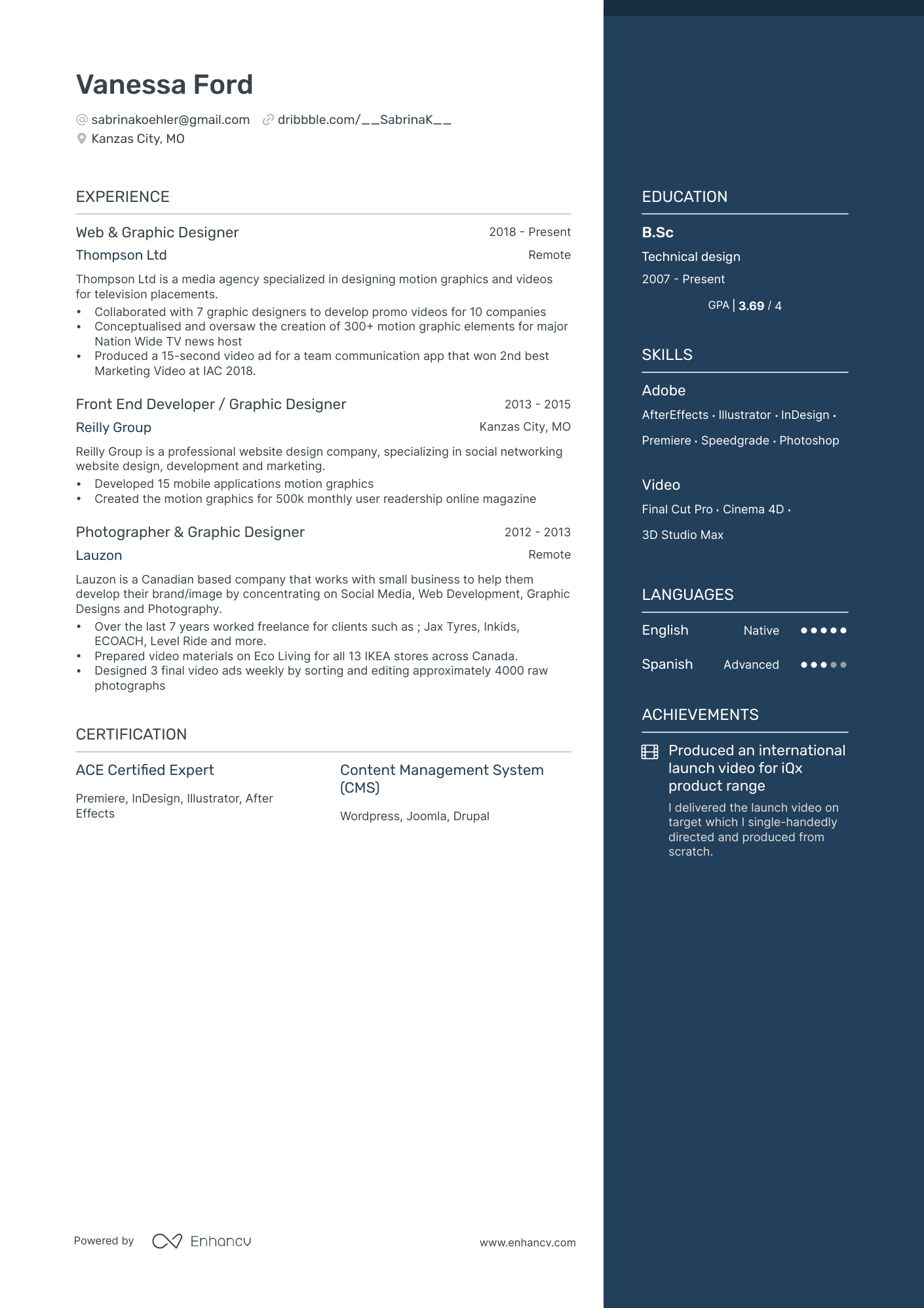
Motion Graphics
Engineering resume examples
View all
41Each engineering field is different, so you can’t have a one-size-fits-all approach here. Browse through the powerful resume samples below. You'll find specific ways to describe your experience, skills, and qualifications, depending on your job title.
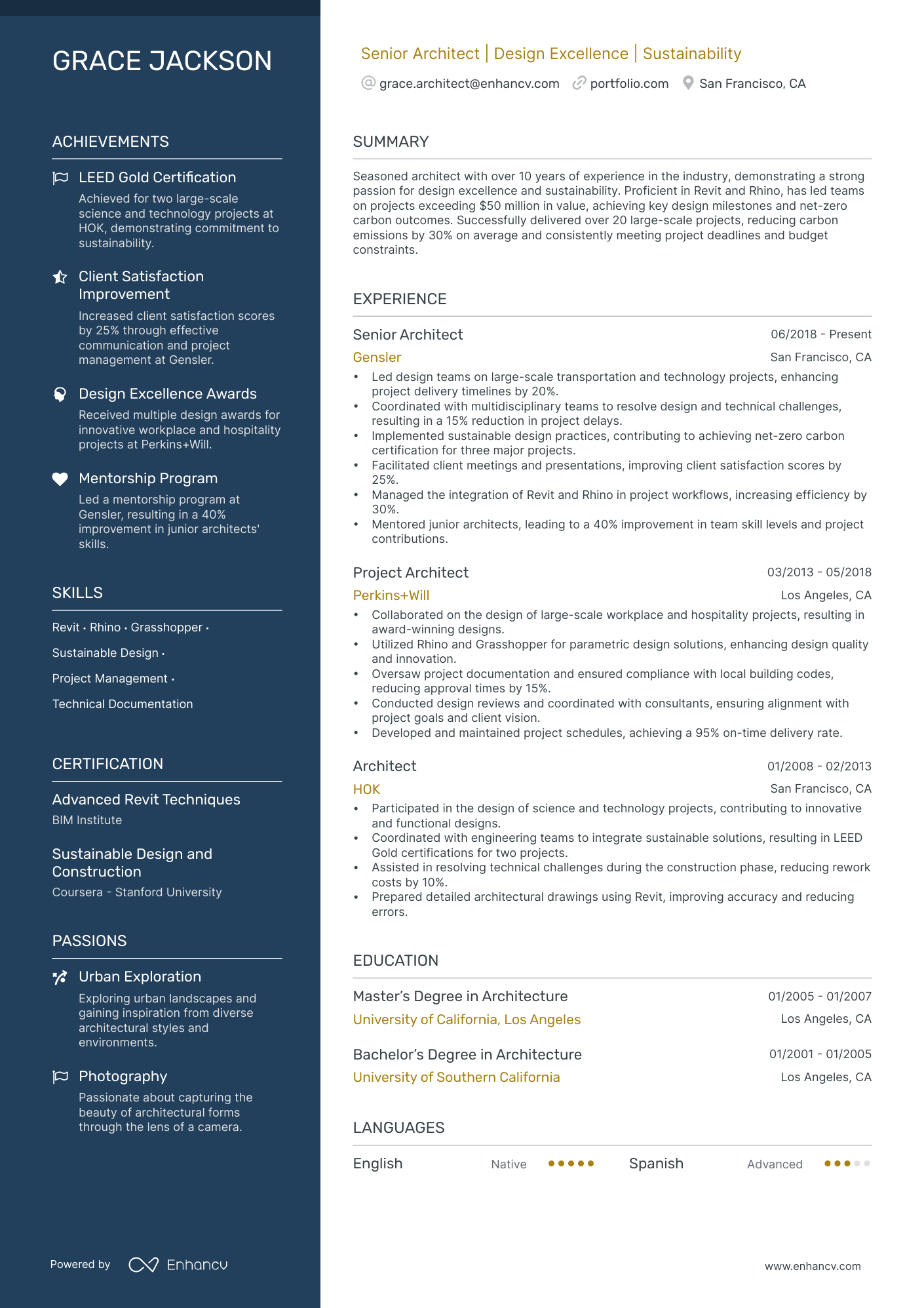
Architect
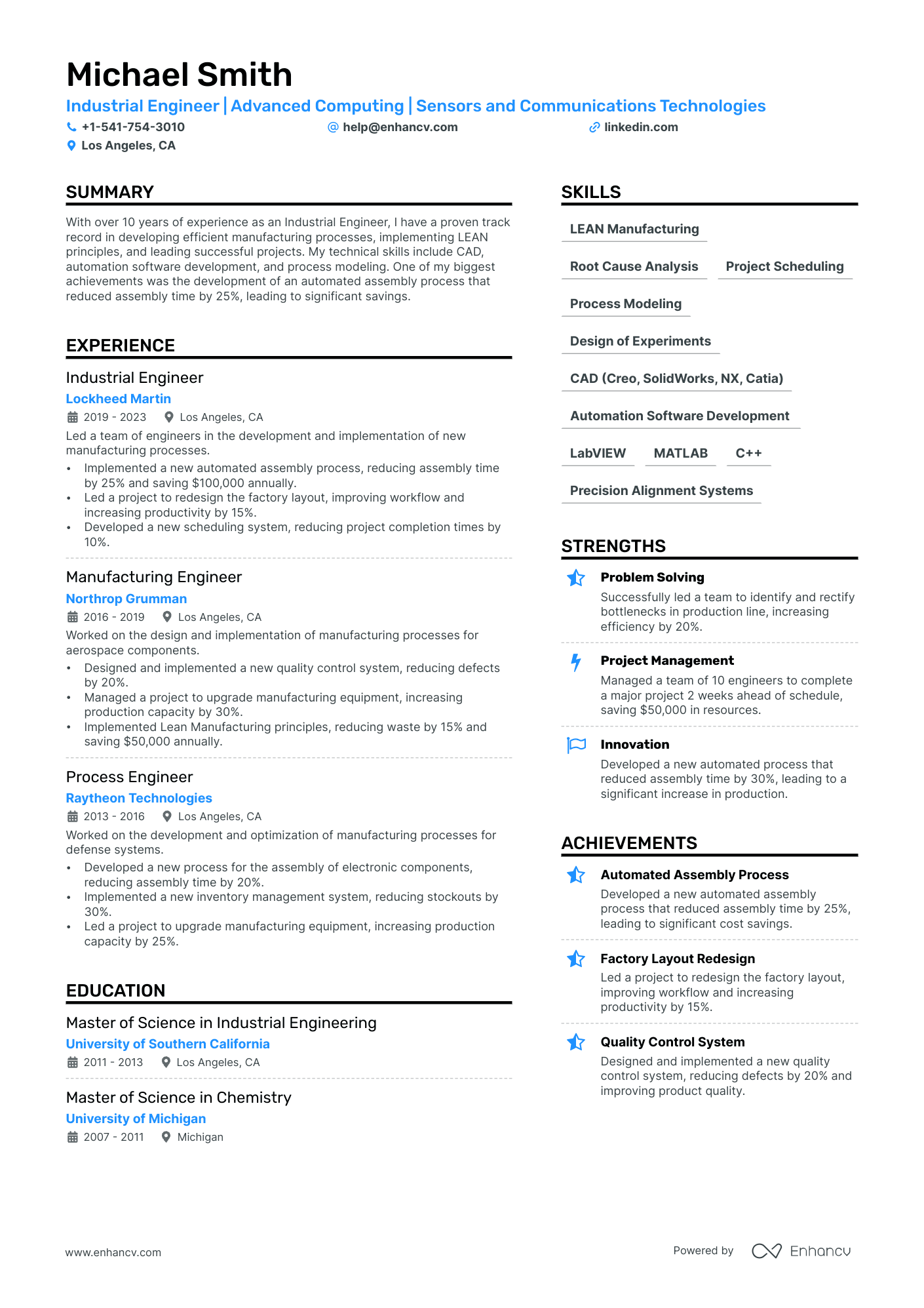
Engineering
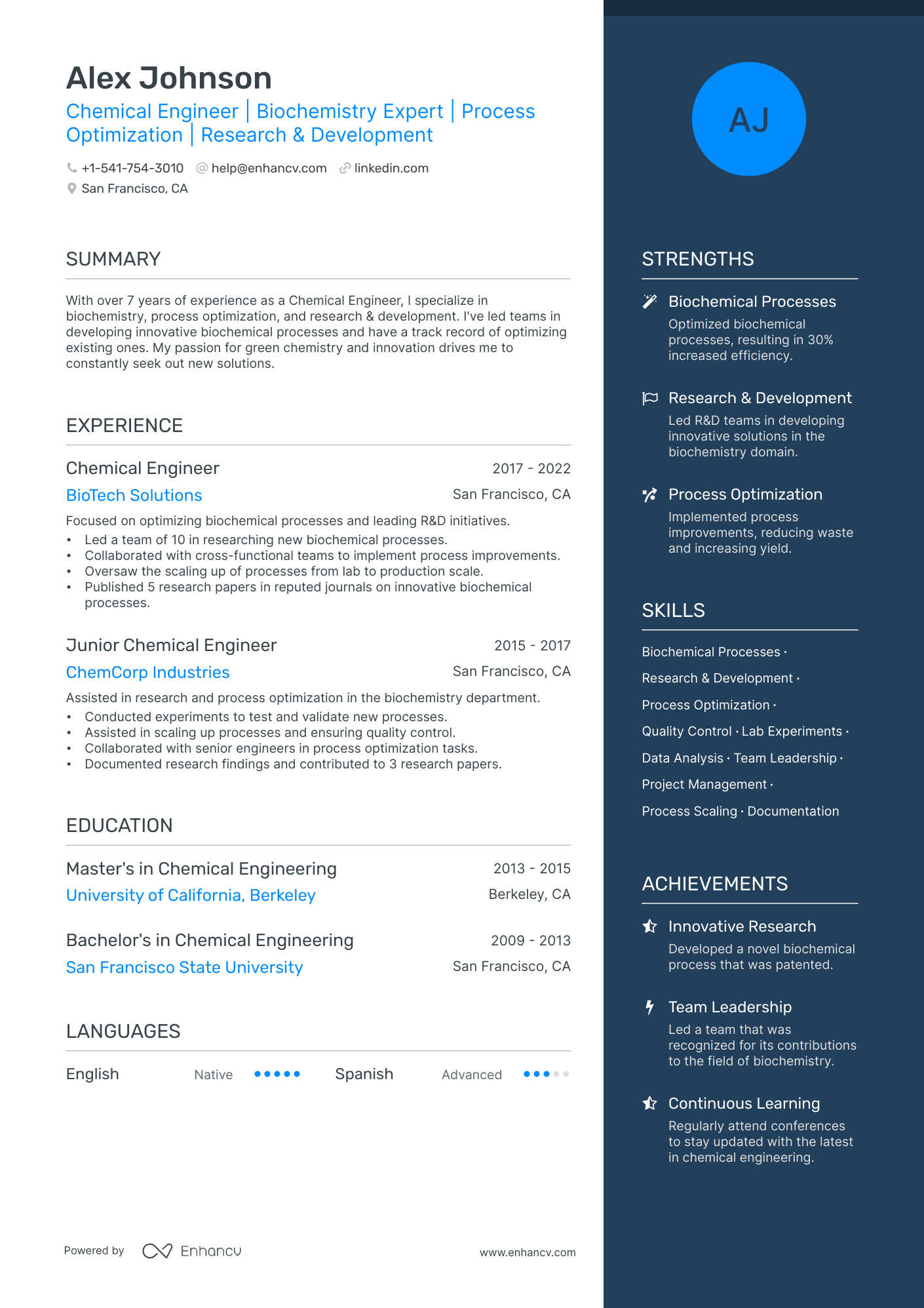
Chemical Engineer
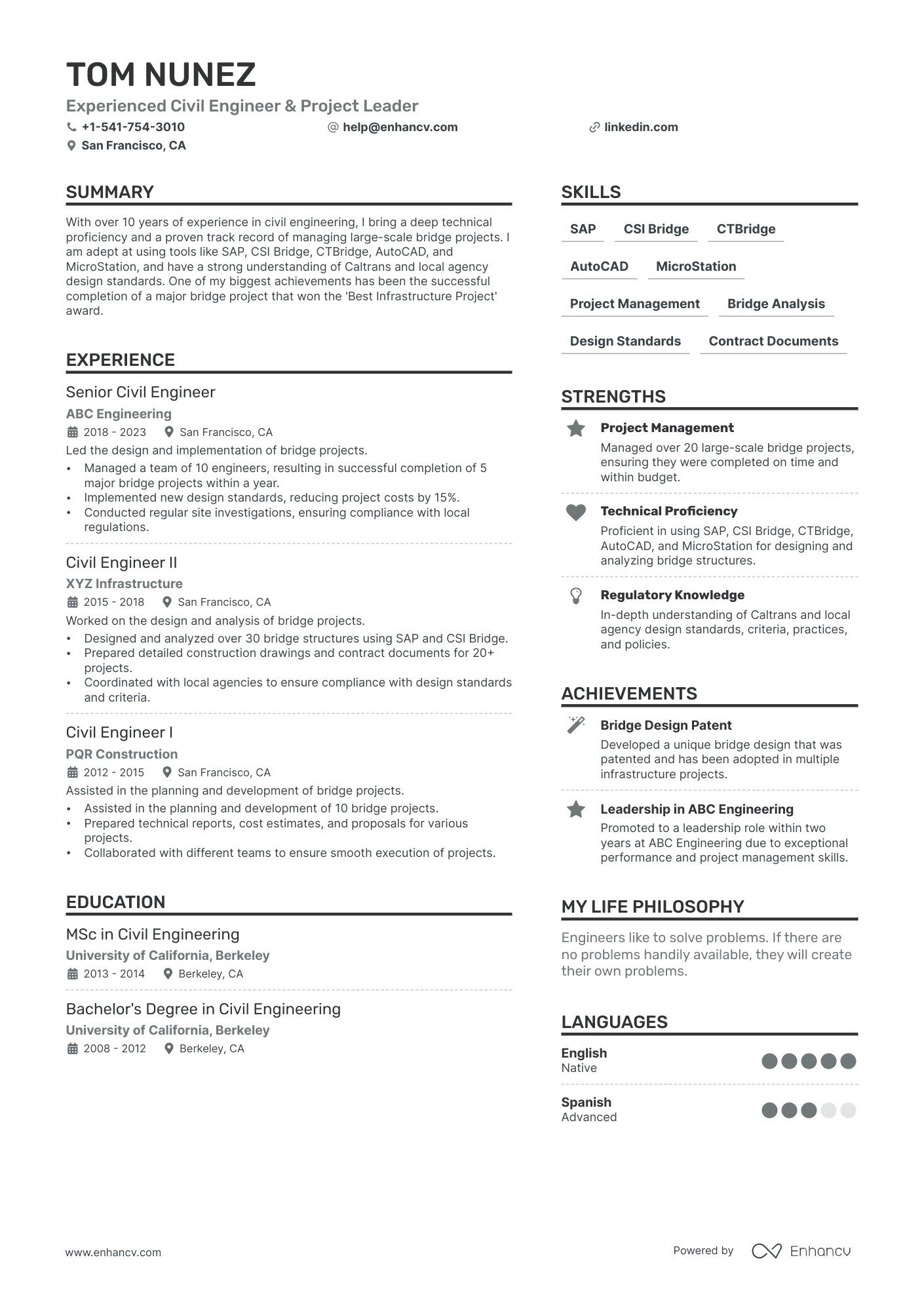
Civil Engineer
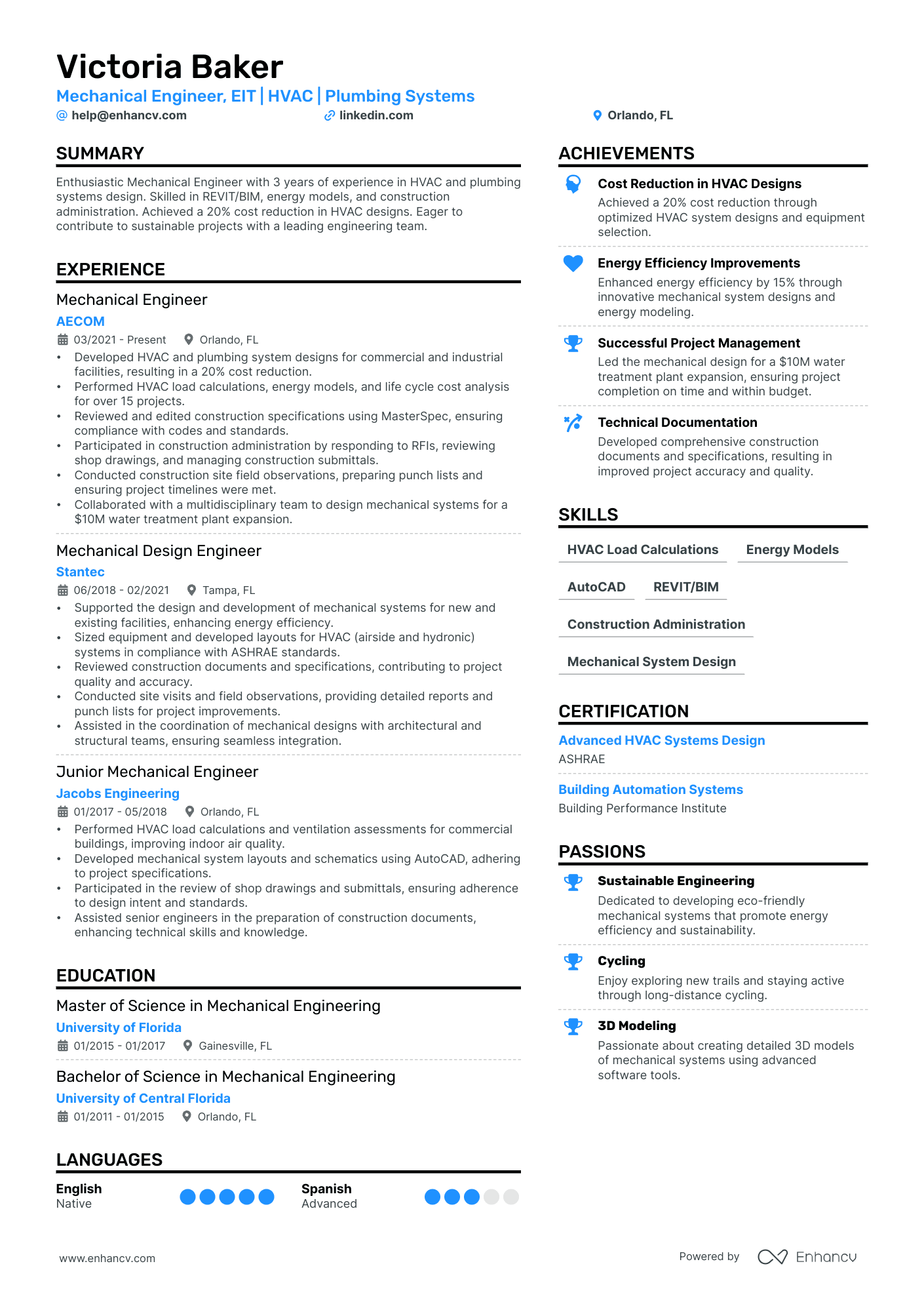
Mechanical Engineer
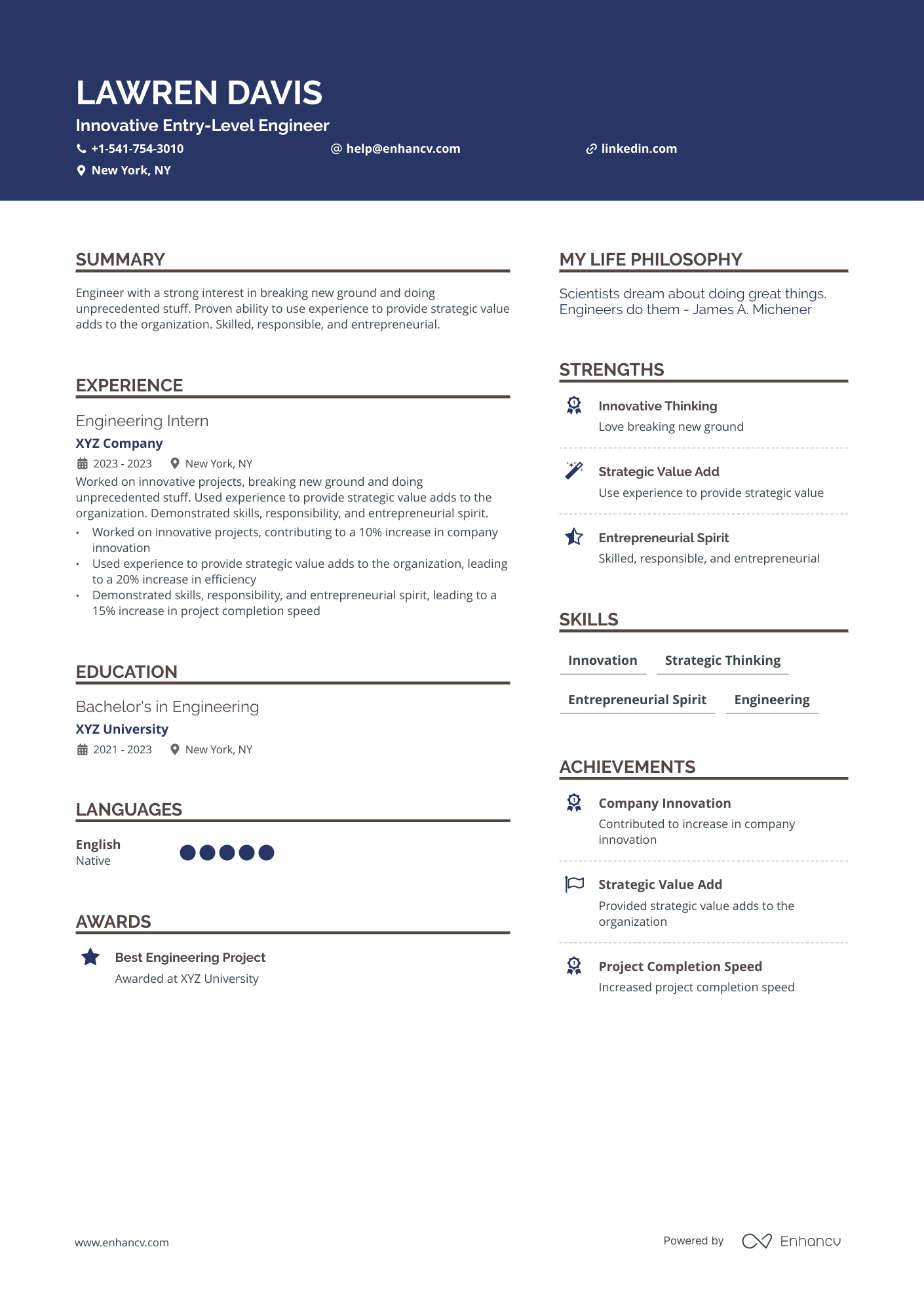
Entry-Level Engineering
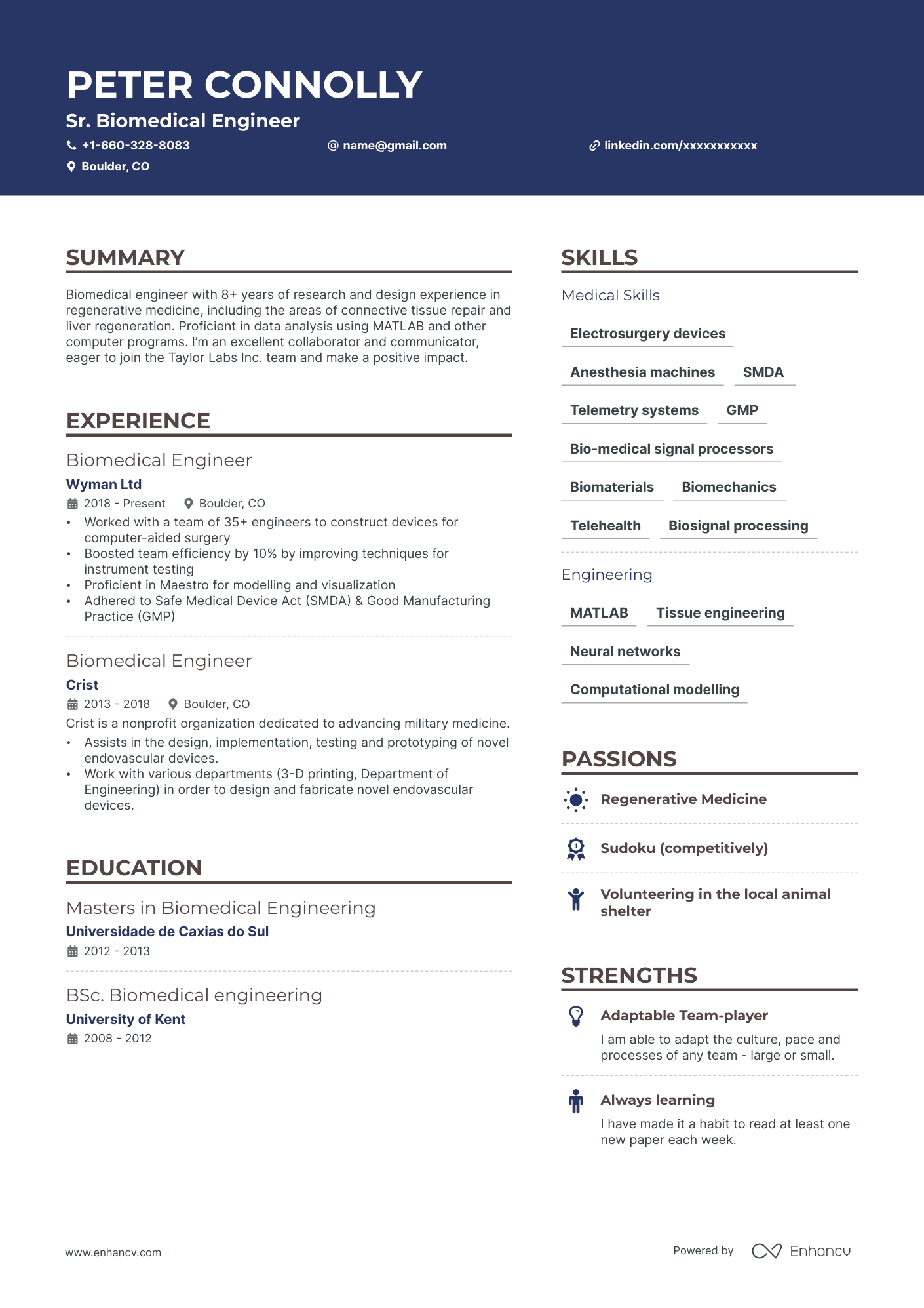
Biomedical Engineer
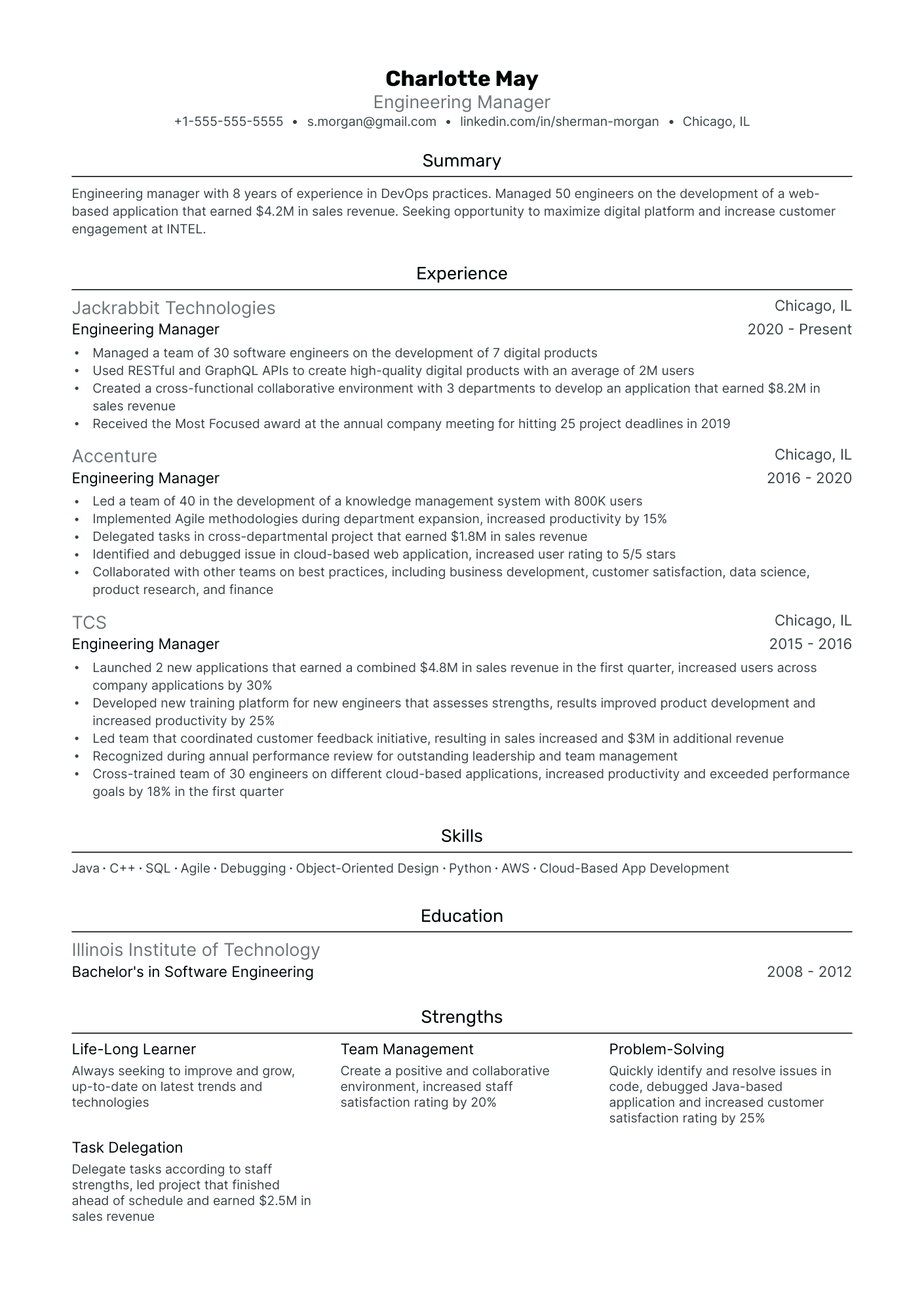
Engineering Manager
Executive and management resume examples
View all
60Make a resume that highlights every important detail. Follow our executive and management resume examples to build a resume people remember. Match the company’s tone of voice and job description without worrying about the design and layout.
Famous people resume examples
Learn from the world’s most successful people and build a resume that’s just as good as theirs. Check out our famous resume examples and create a resume that beats luck and results in callbacks.
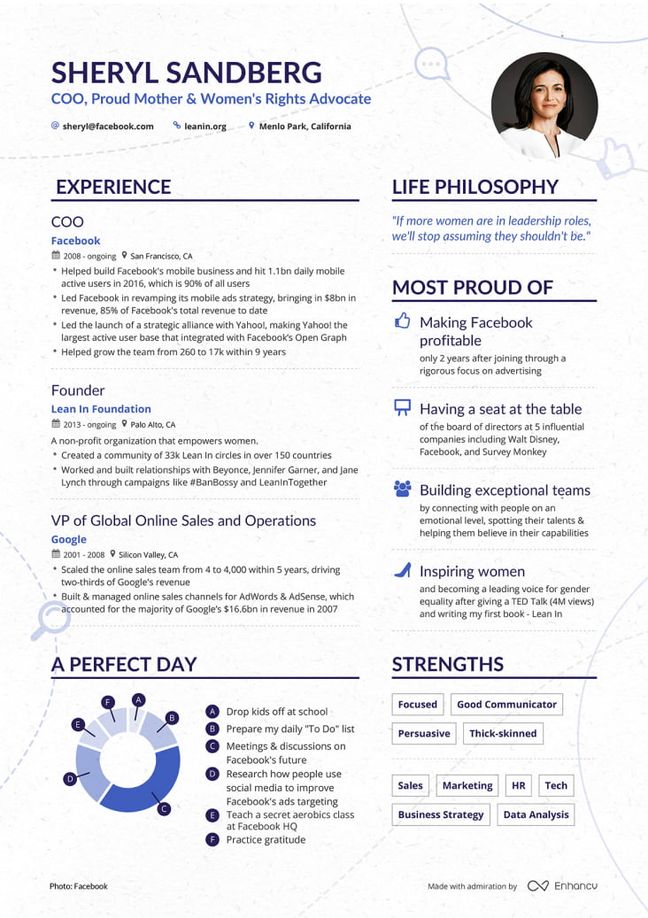
Sheryl Sandberg
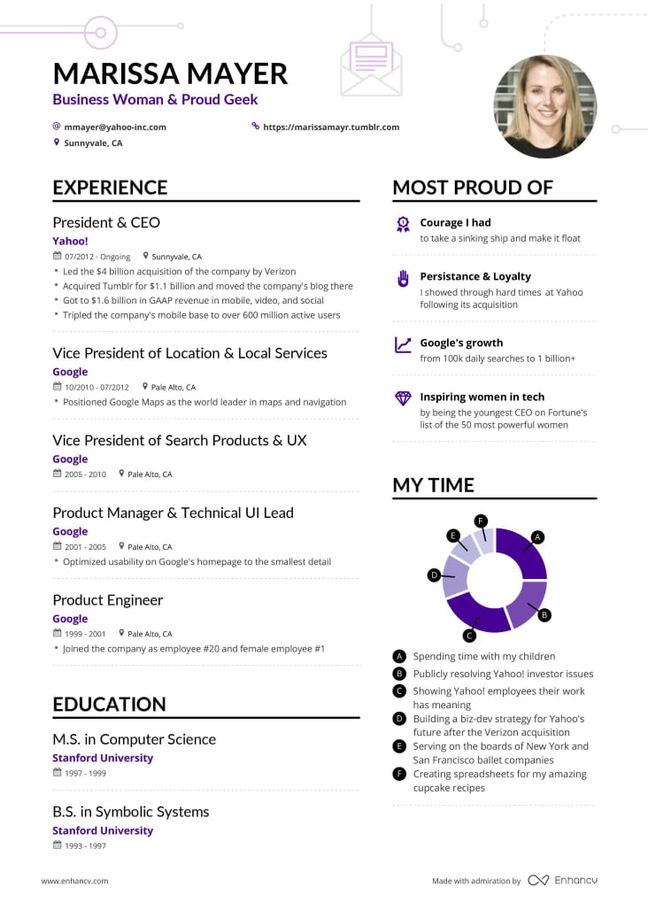
Marissa Mayer
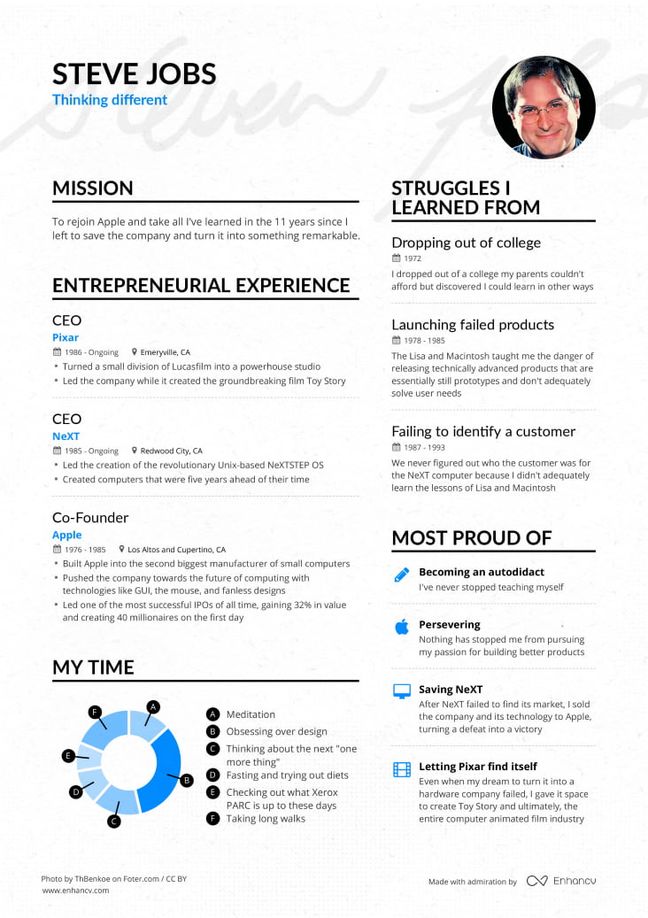
Steve Jobs
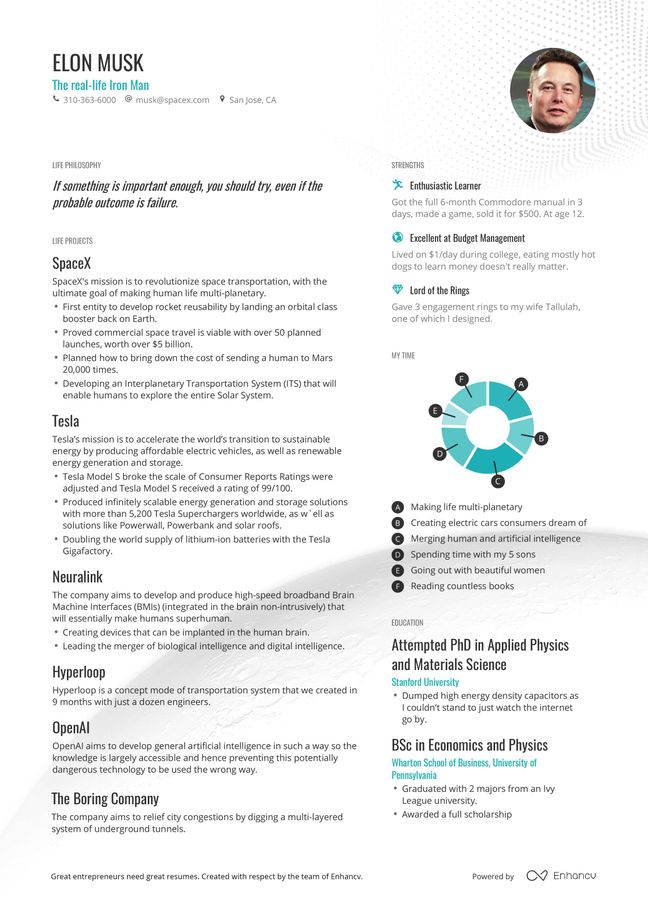
Elon Musk
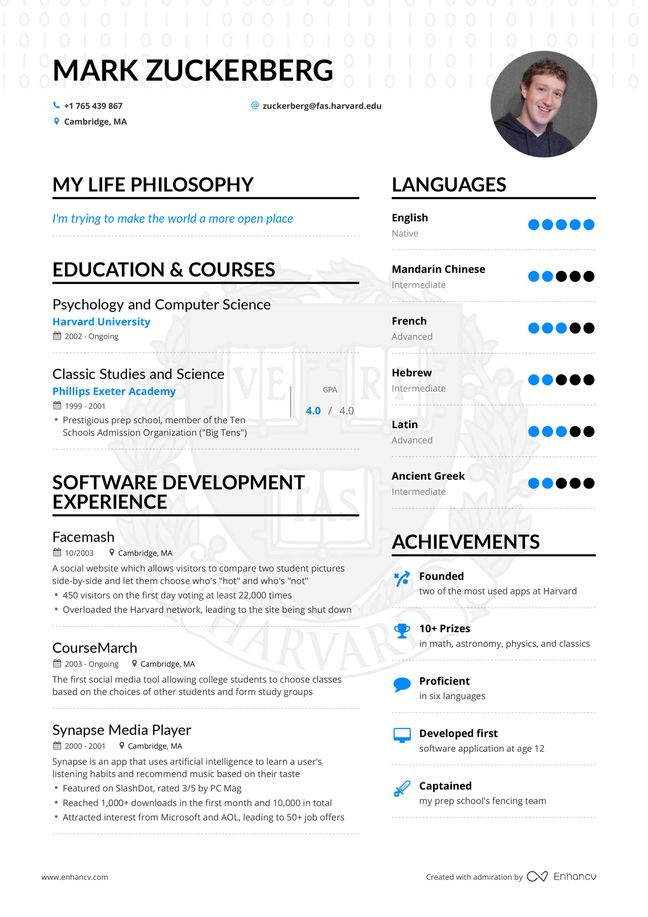
Mark Zuckerberg
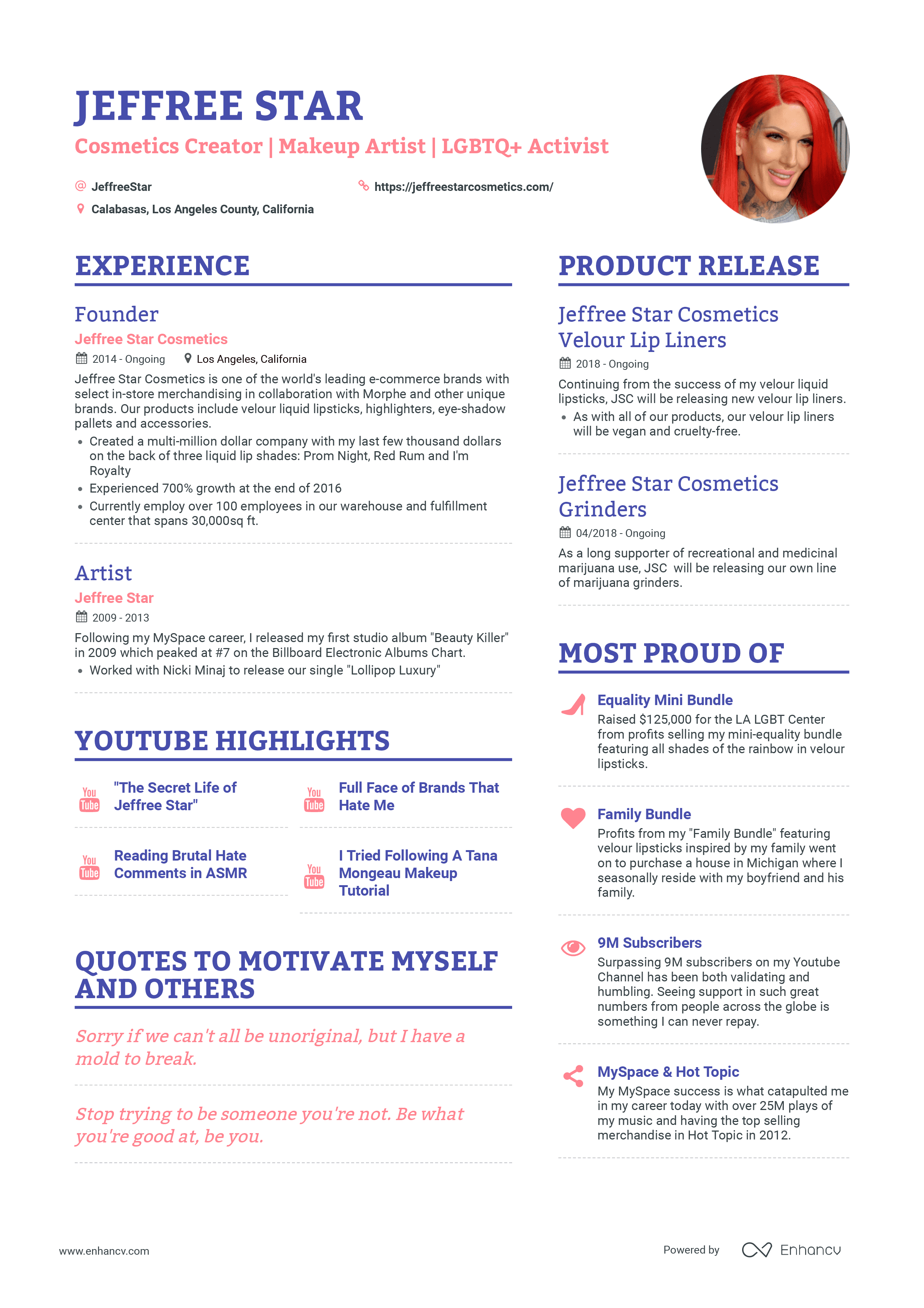
Jeffree Star
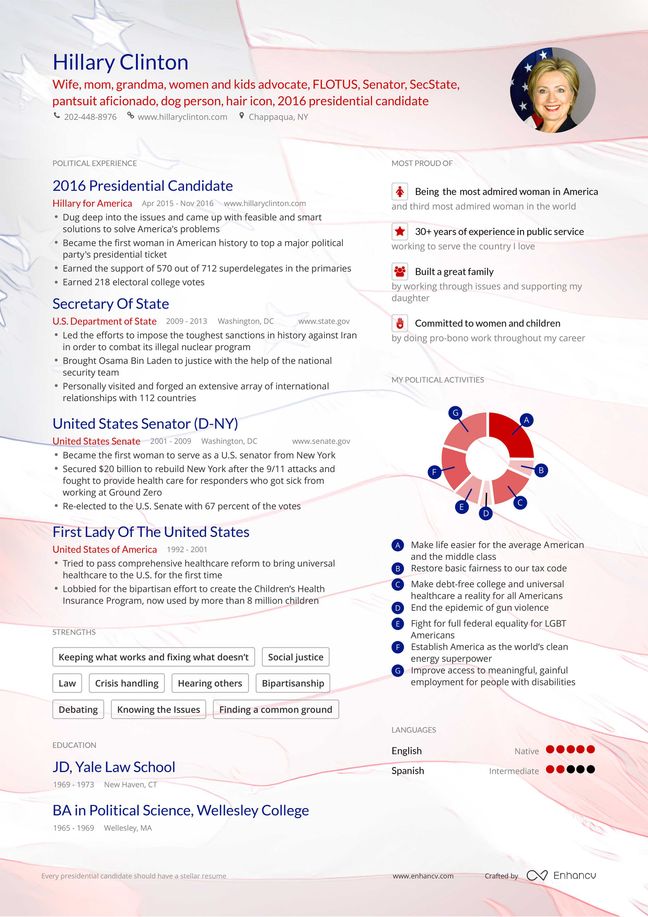
Hillary Clinton
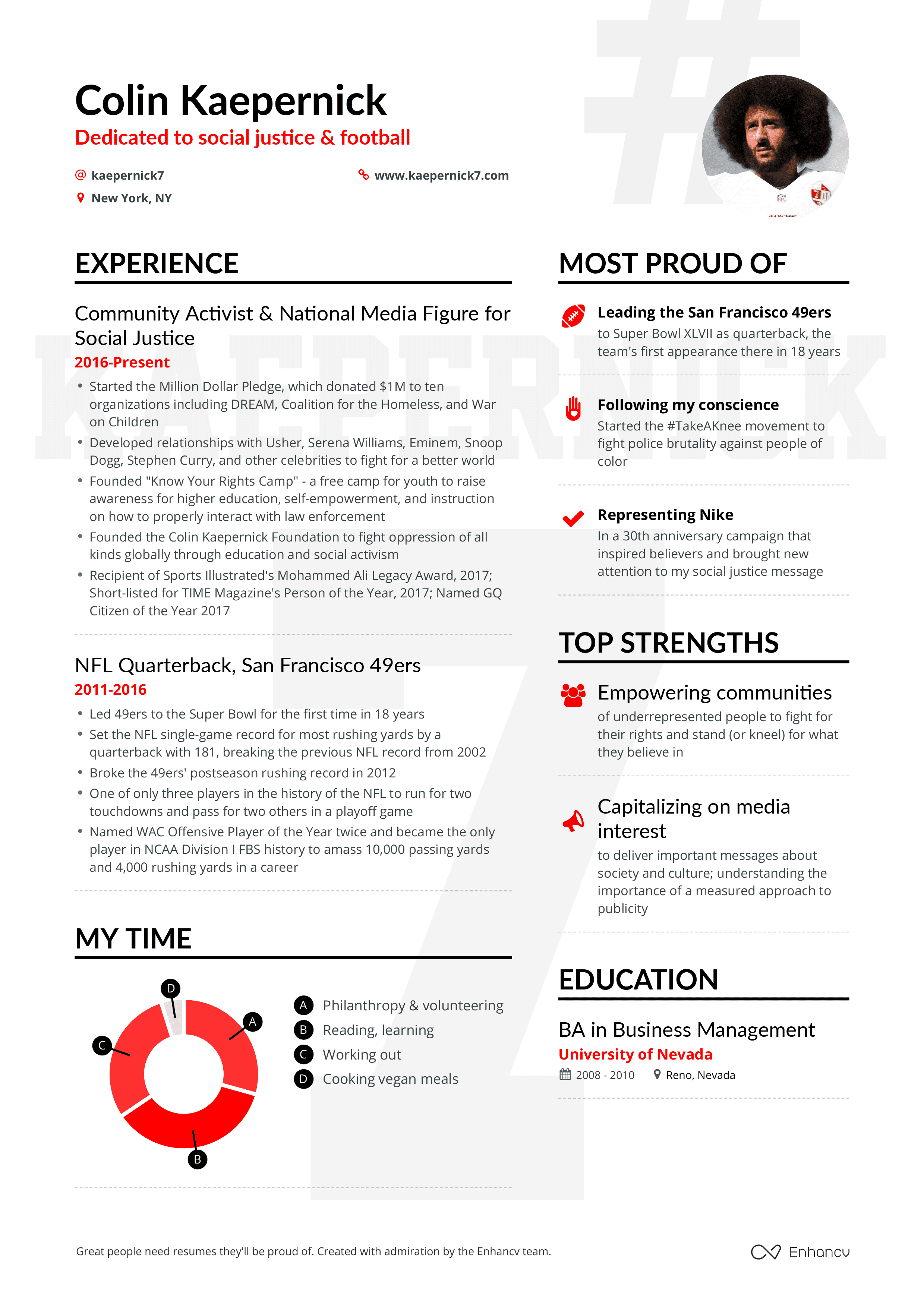
Colin Kaepernick
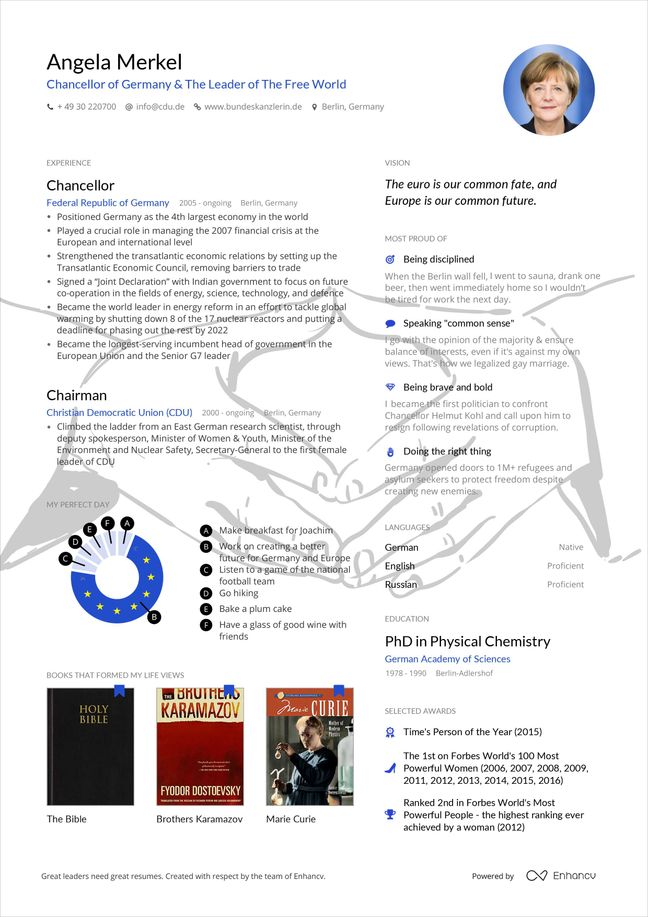
Angela Merkel
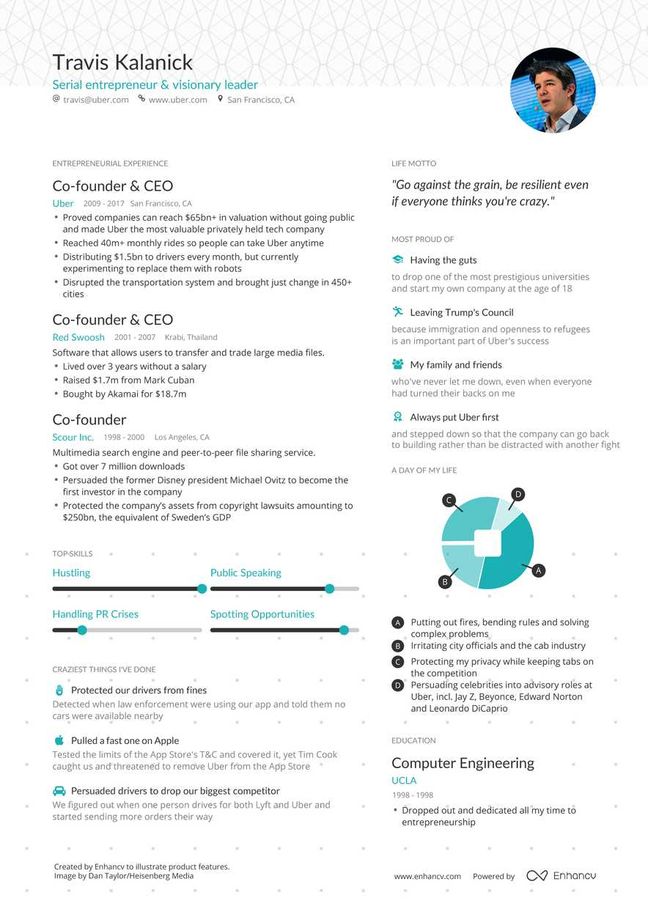
Travis Kalanick
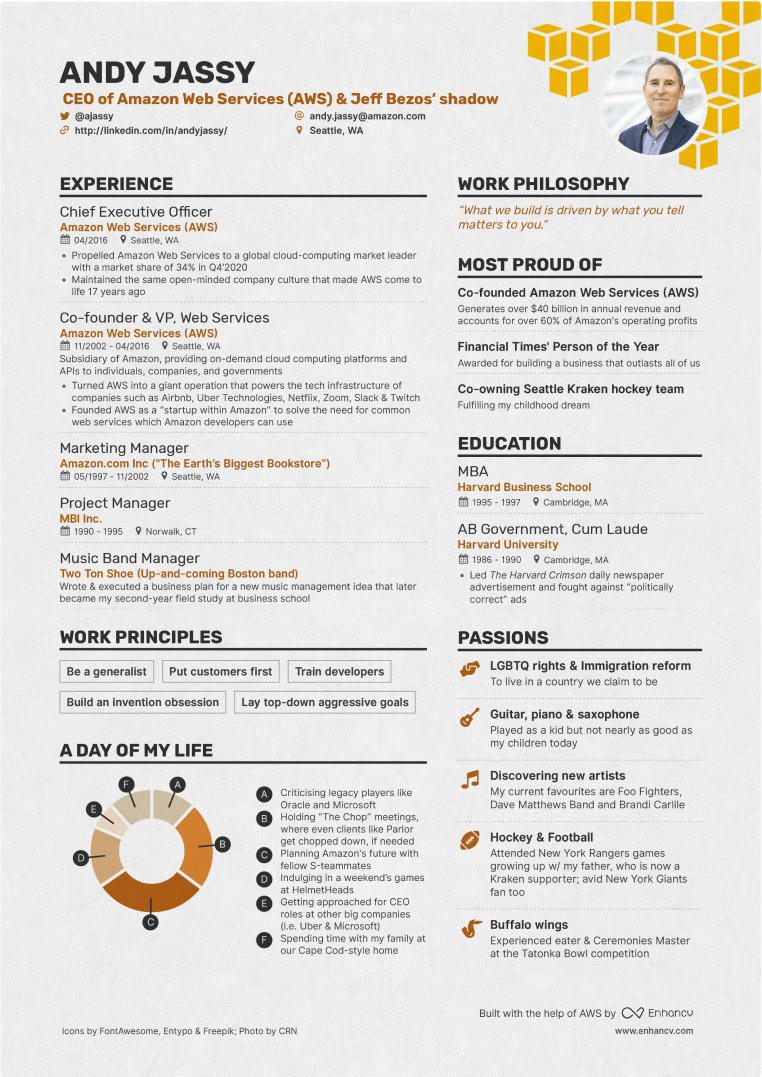
Andy Jassy
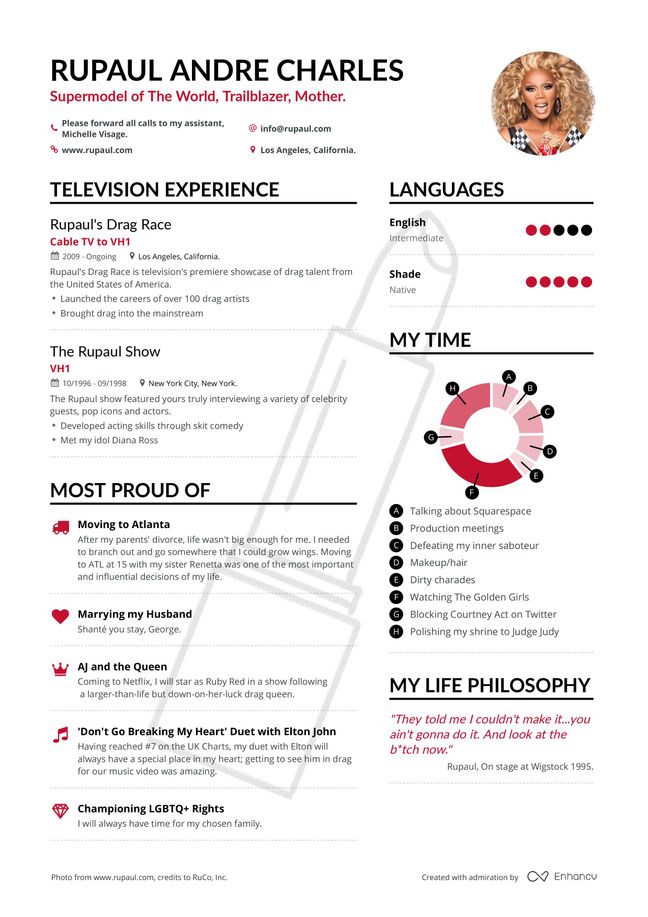
Rupaul
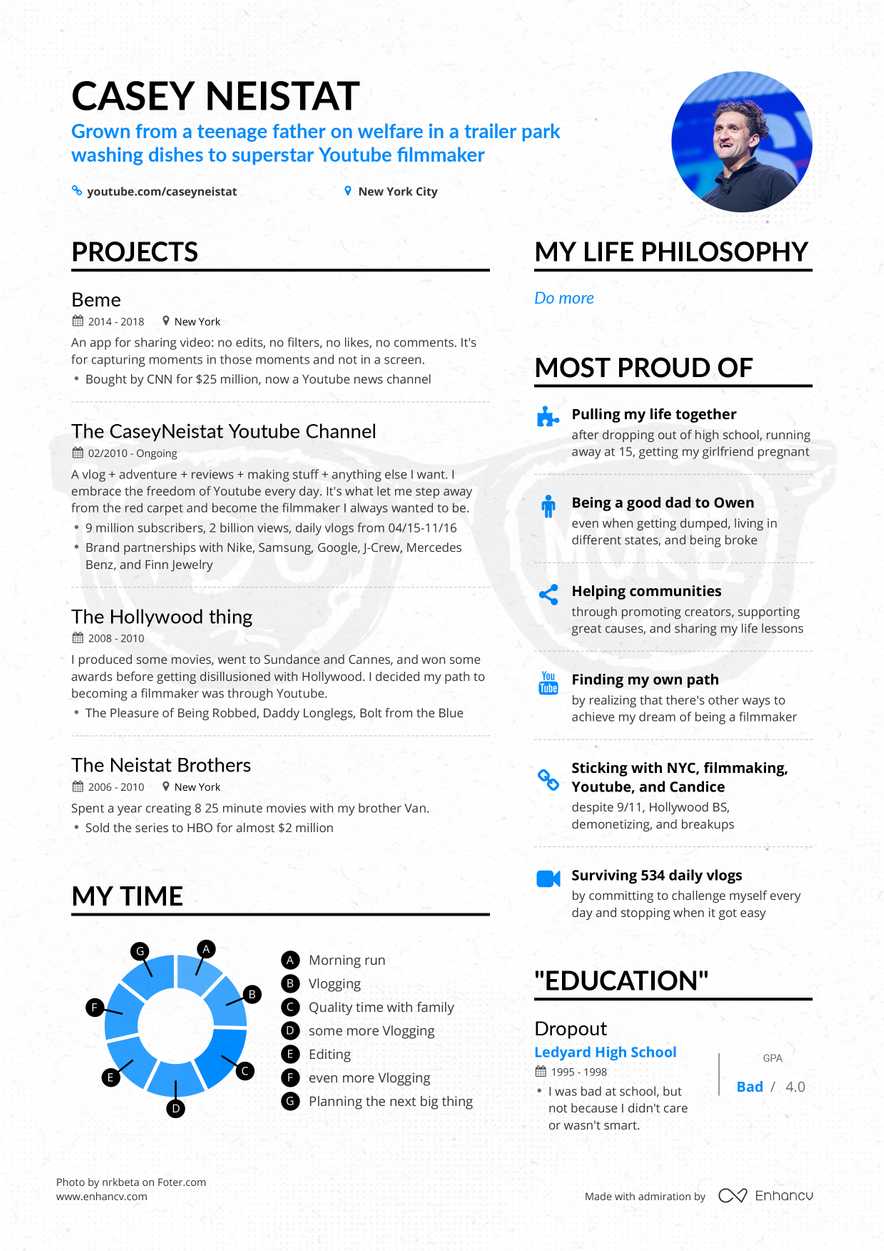
Casey Neistat
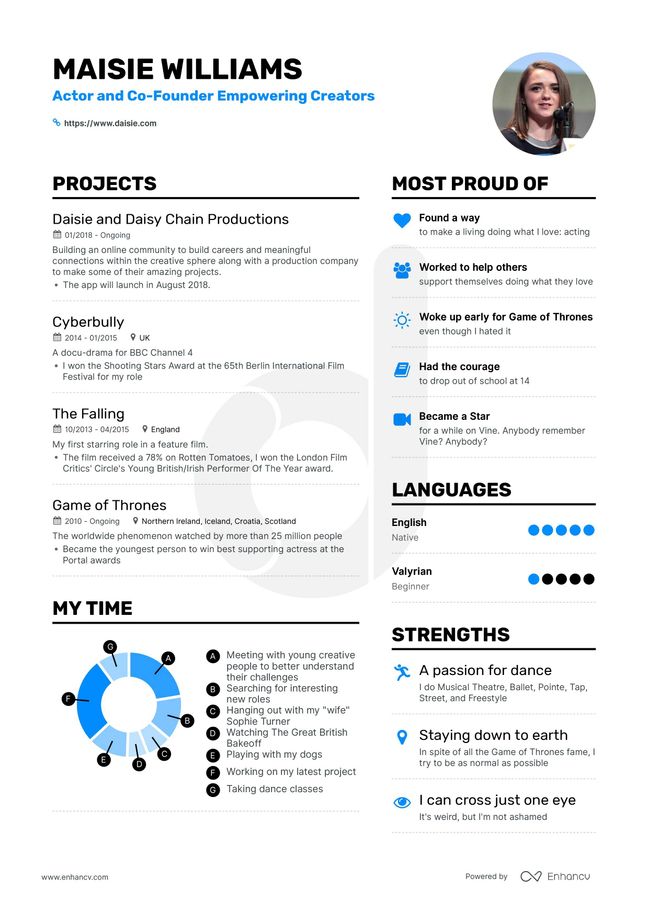
Maisie Williams
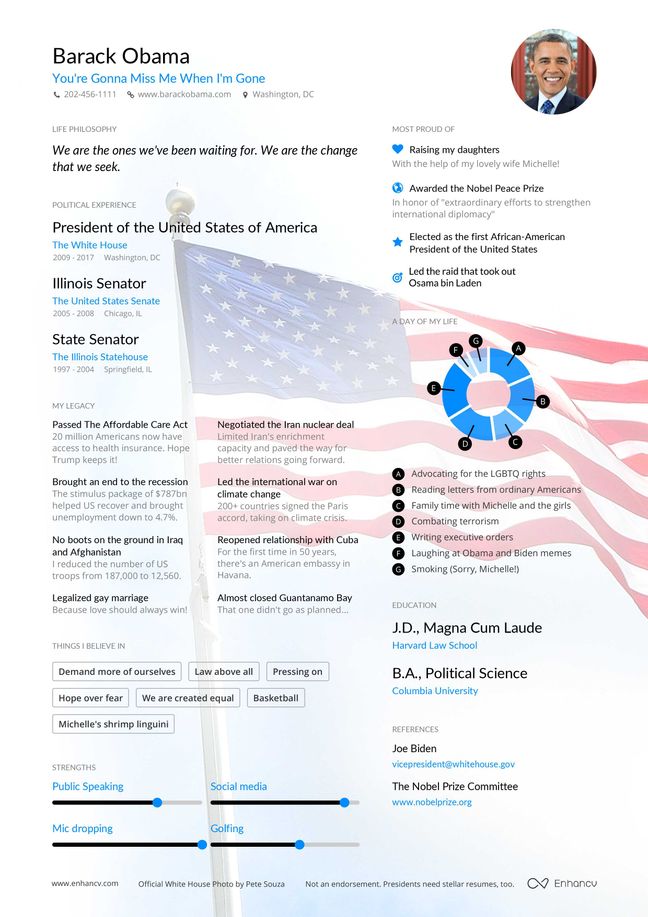
Barack Obama
Food service resume examples
View all
28Choose from a list of profession-specific food service resume samples and grab the attention of the hiring manager in seconds. Focus on the things that truly matter – your professional skills – and leave the design and formatting to us.
Freelance resume examples
View all
12Supercharge your portfolio with a powerful resume. Choose from our freelance resume examples and show potential clients your experience in a beautiful, yet professional and easily scannable way.
Government and federal resume examples
View all
6Government and federal jobs require you to show a proven experience and track record. Choose one of our government and federal resume samples and build a resume that gets you your dream job.
Human resources resume examples
View all
38A successful HR resume is one that shows to employers that you put people first. Choose from a variety of human resources resume samples and build a resume that portraits your attitude, personality, and professional expertise authentically.
Information technology resume examples
View all
137Focus on creating a resume that communicates your achievements and experience clearly. Browse our IT resume examples and focus on building a resume free of jargon. We’ll handle design and readability for you.
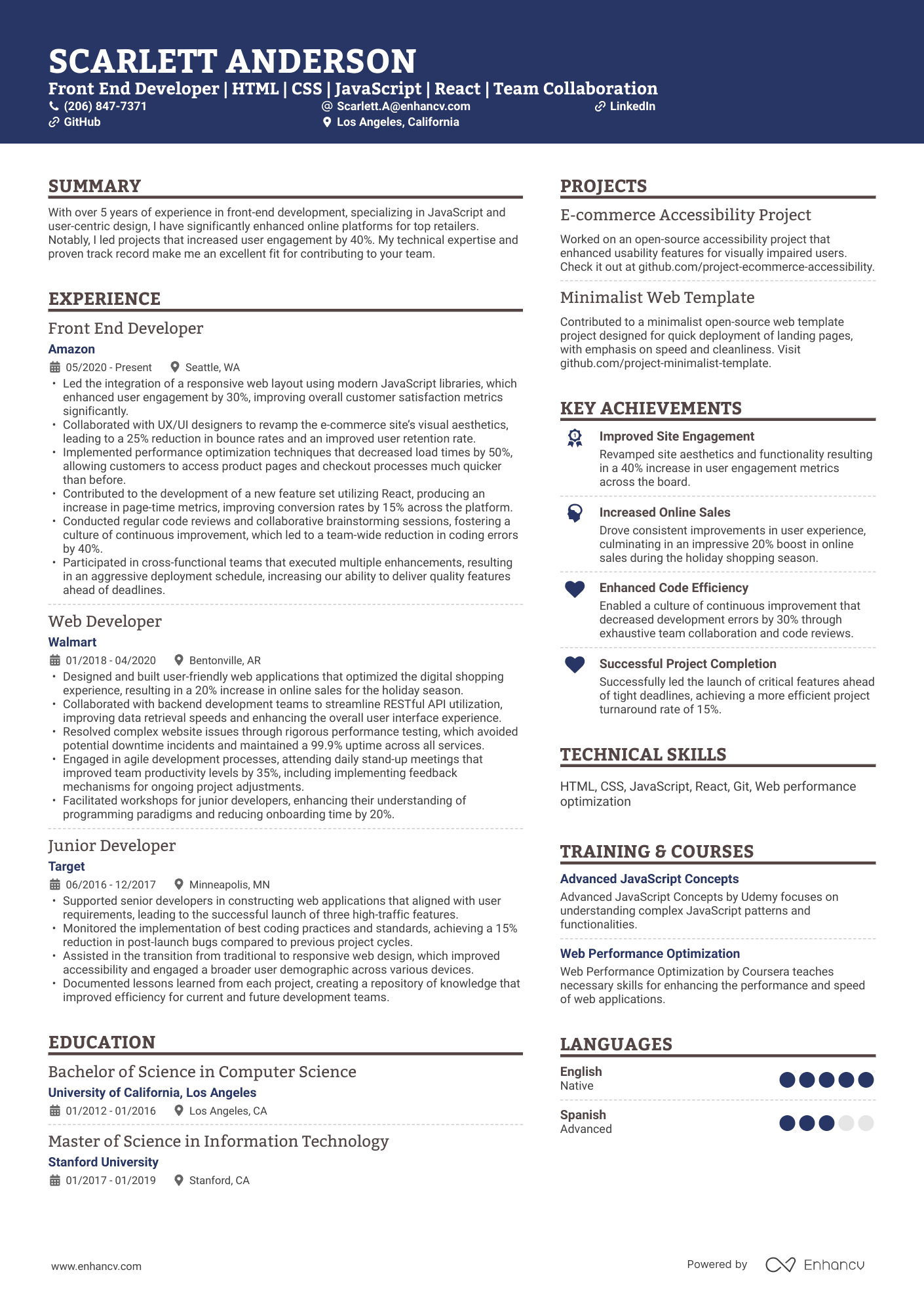
Front-End Developer
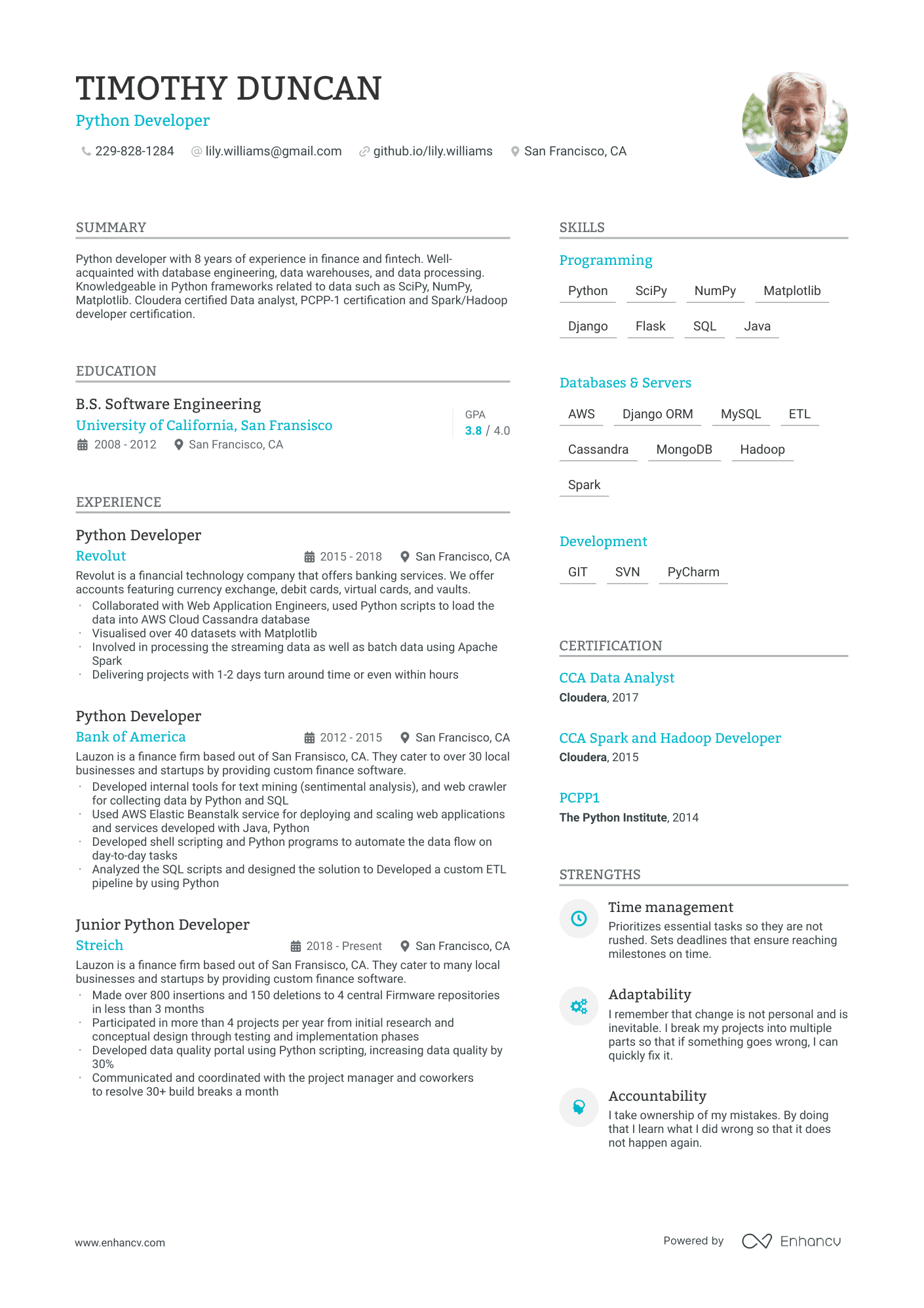
Python Developer
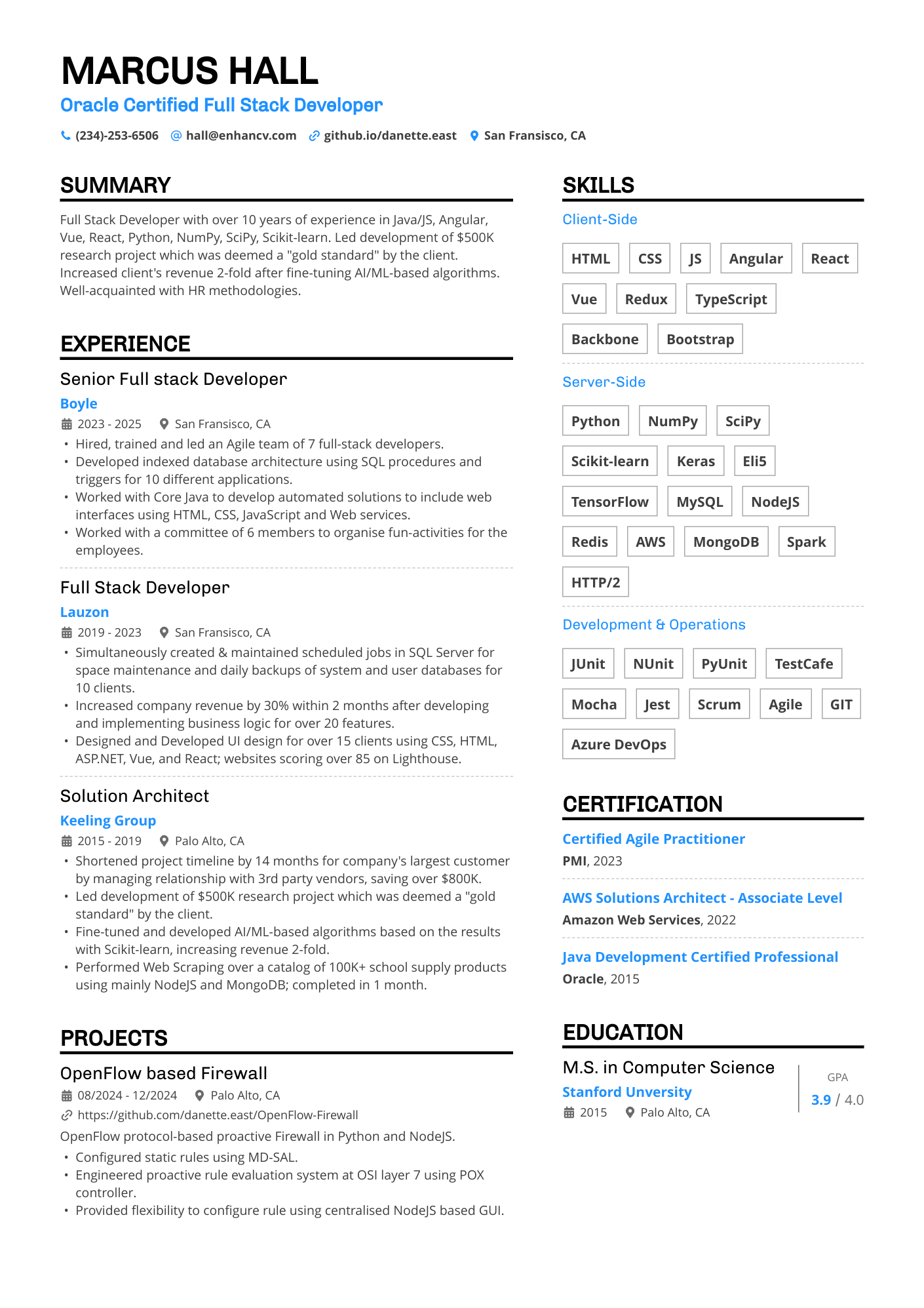
Full-Stack Developer
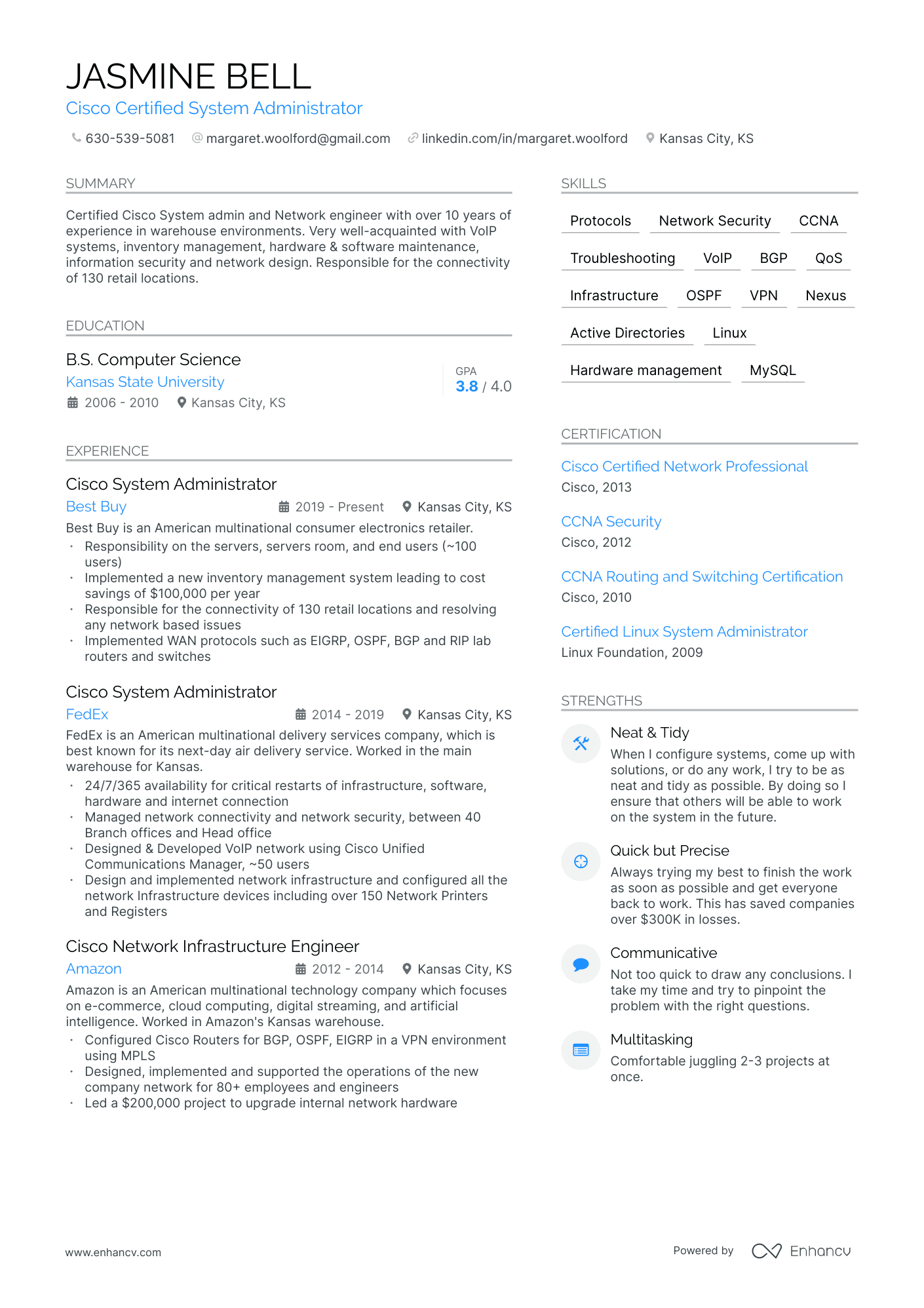
System Administrator
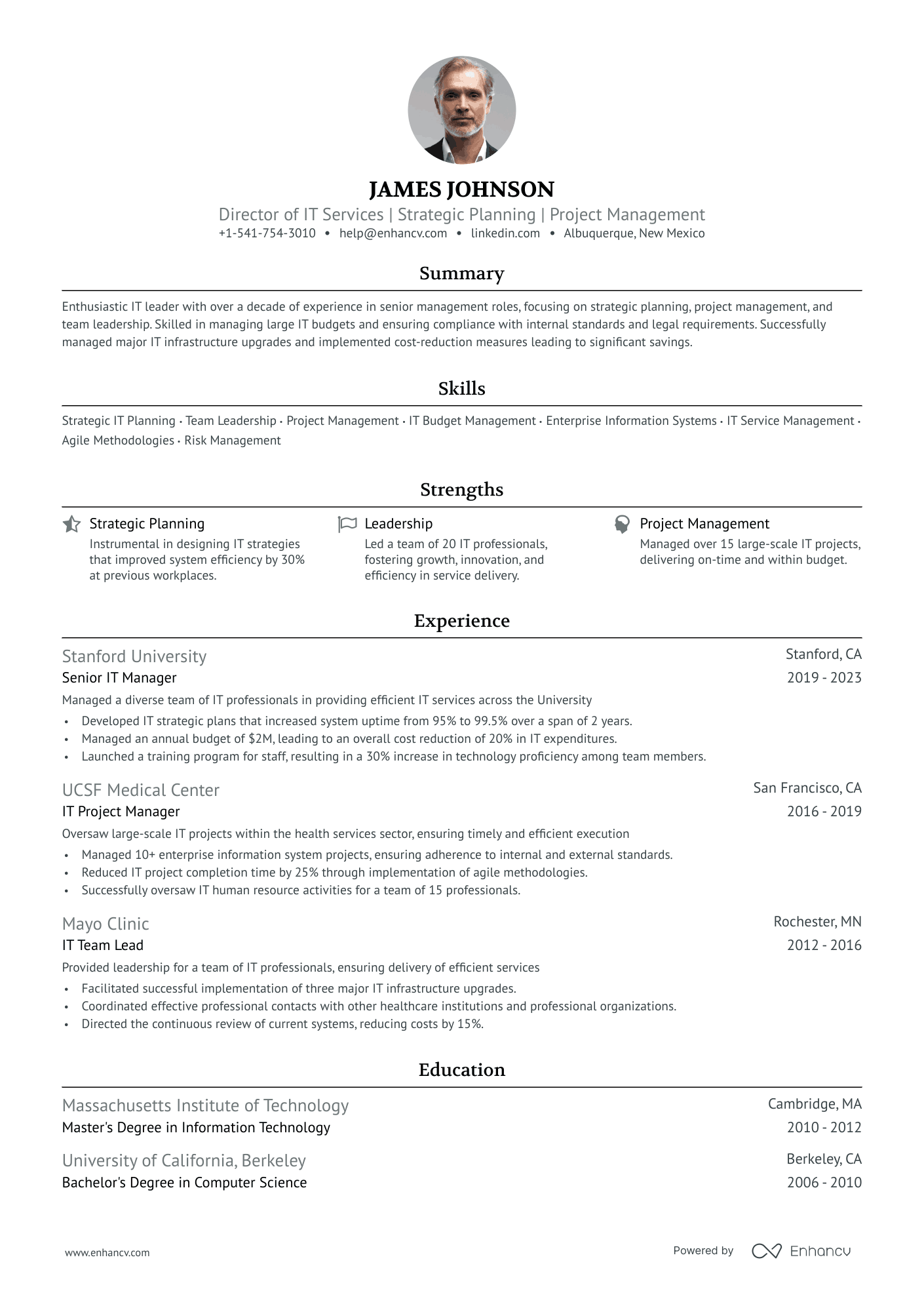
IT Director
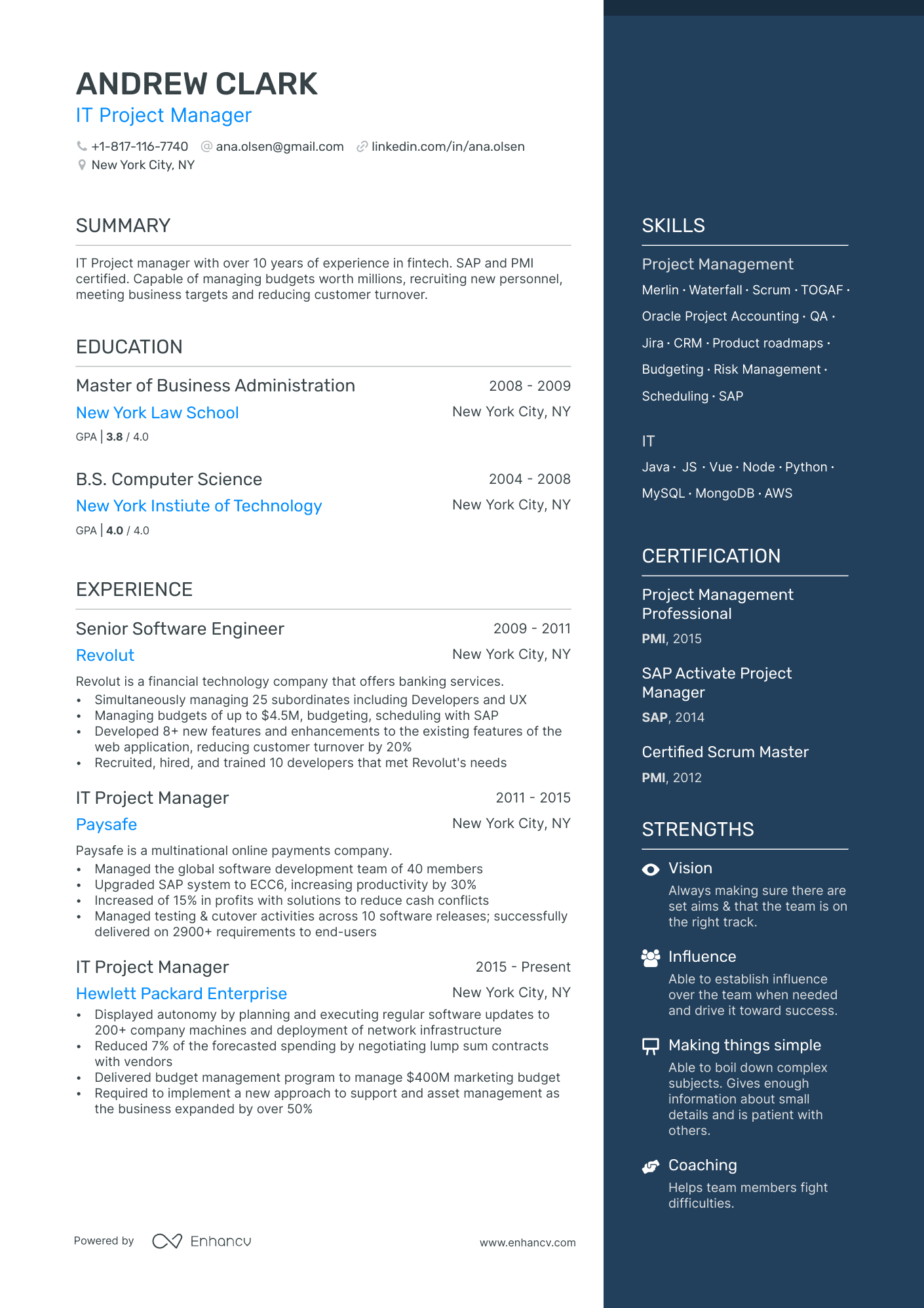
IT Project Manager
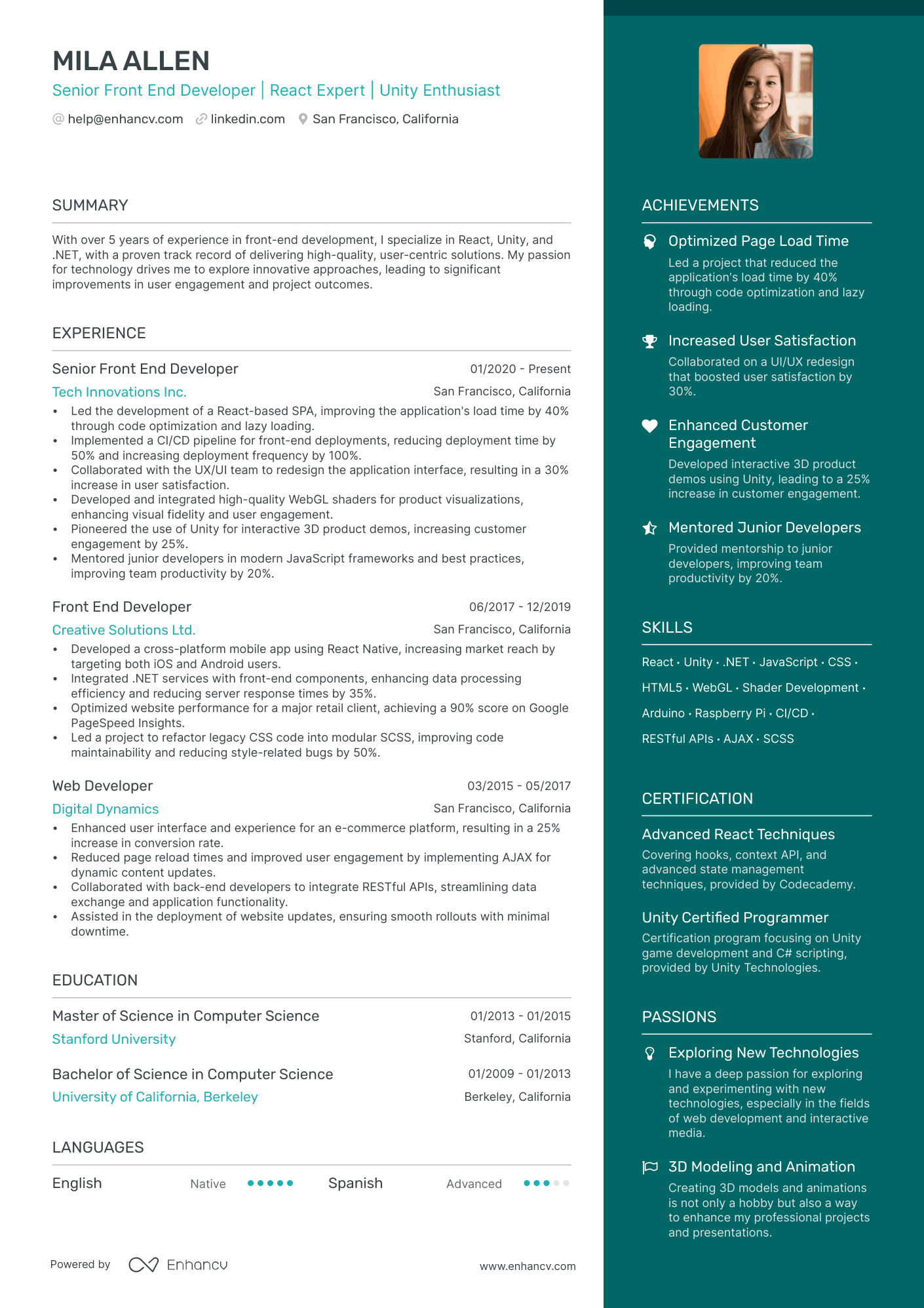
Tech
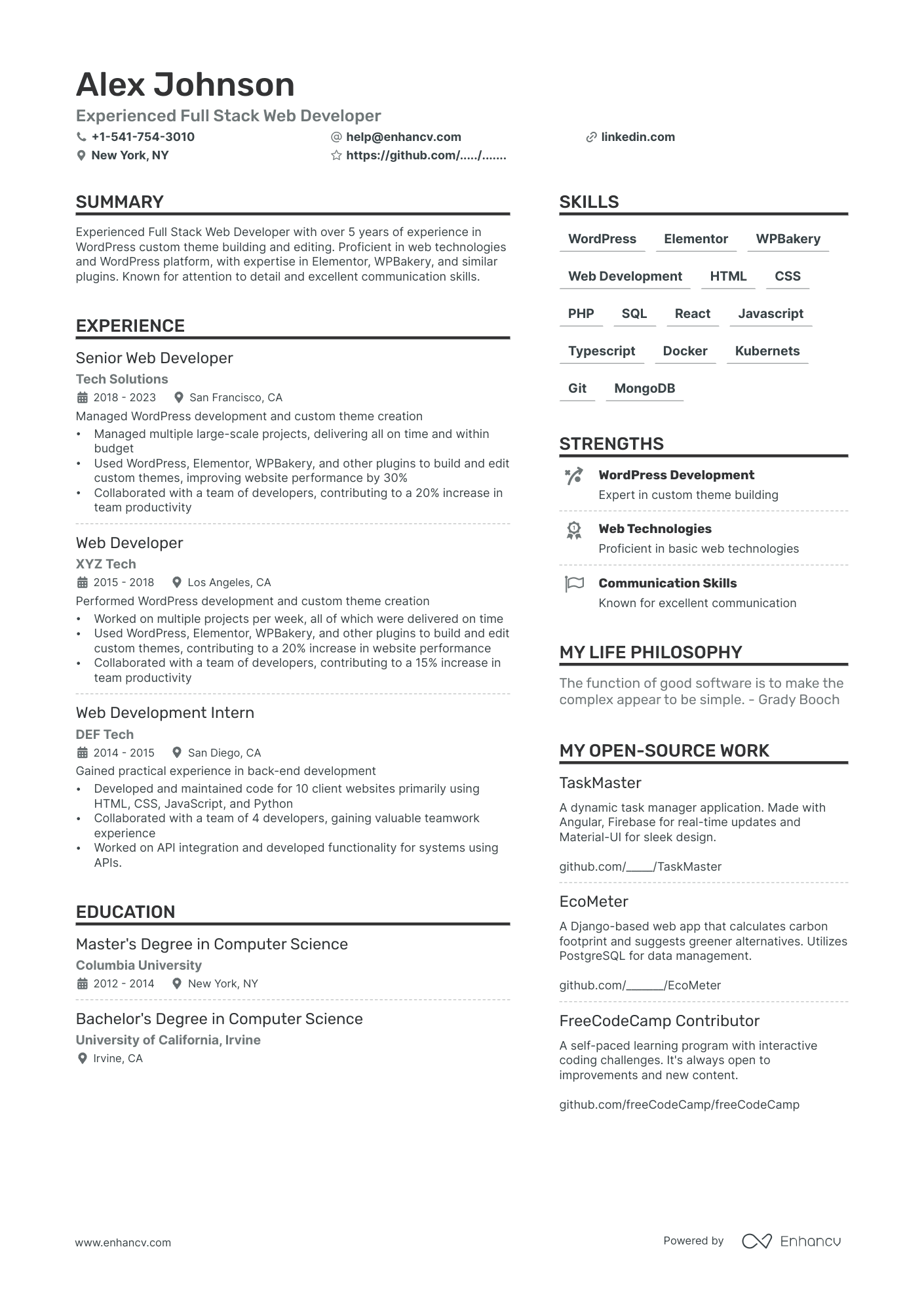
Web Developer
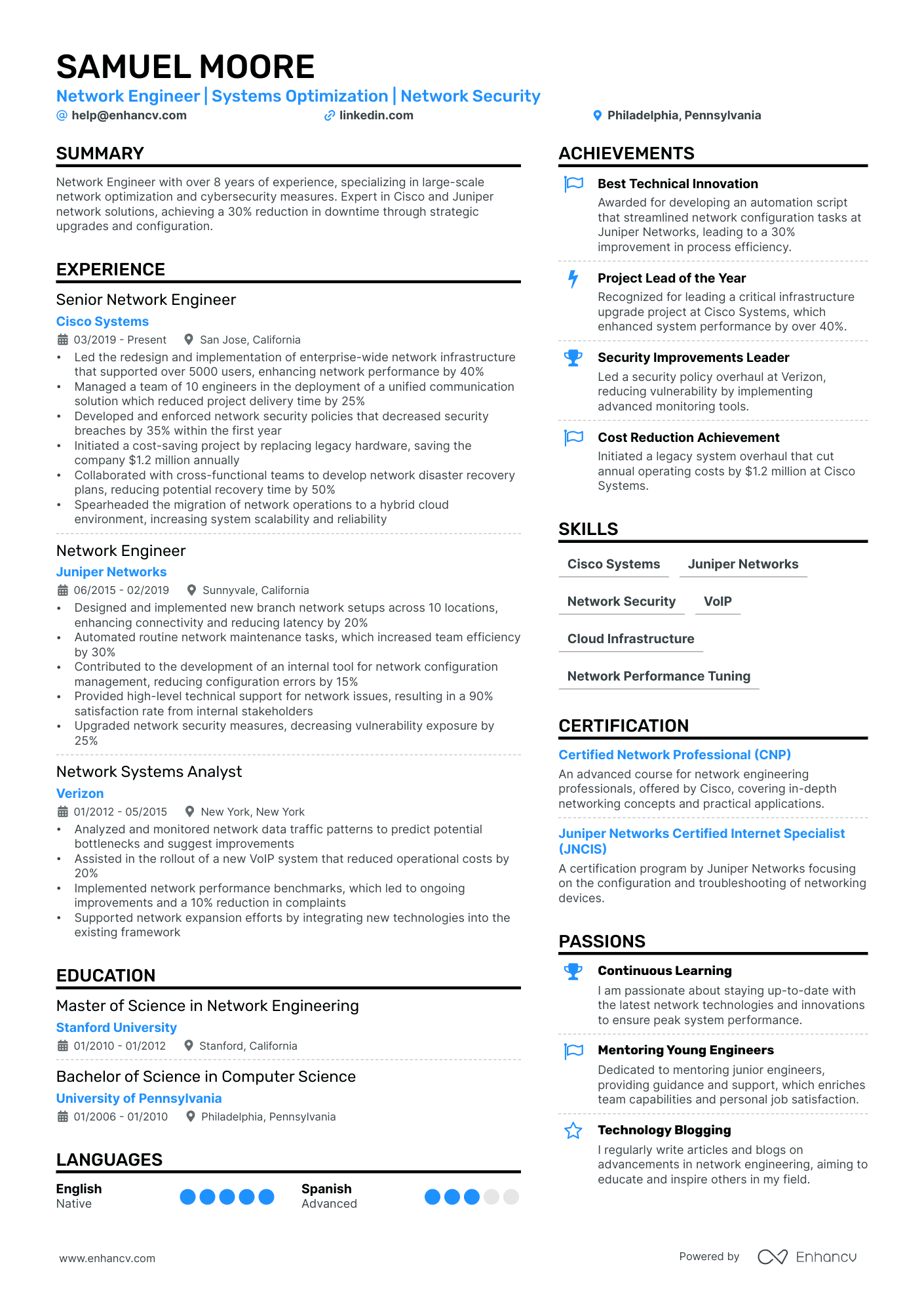
Network Engineer
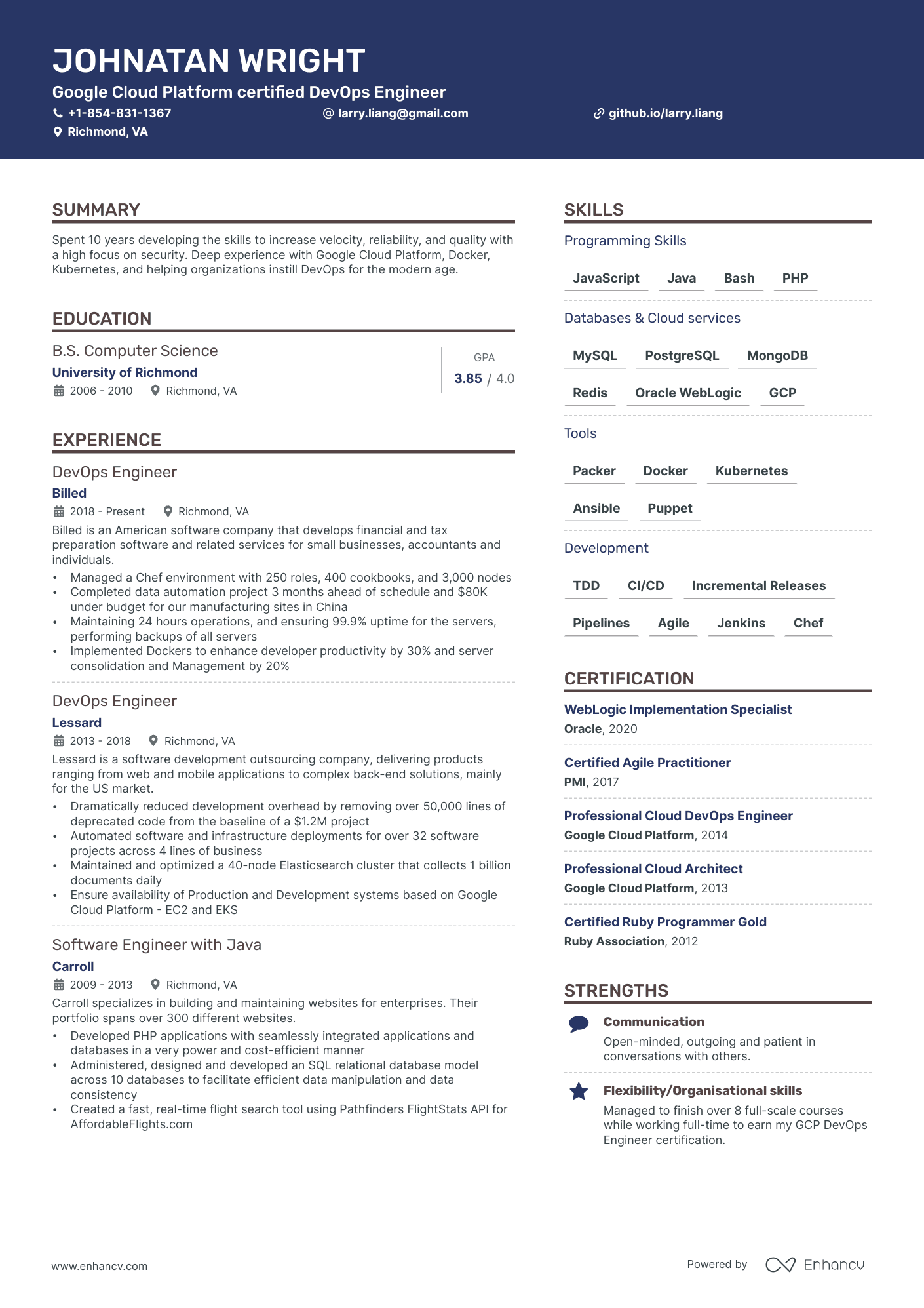
DevOps Engineer
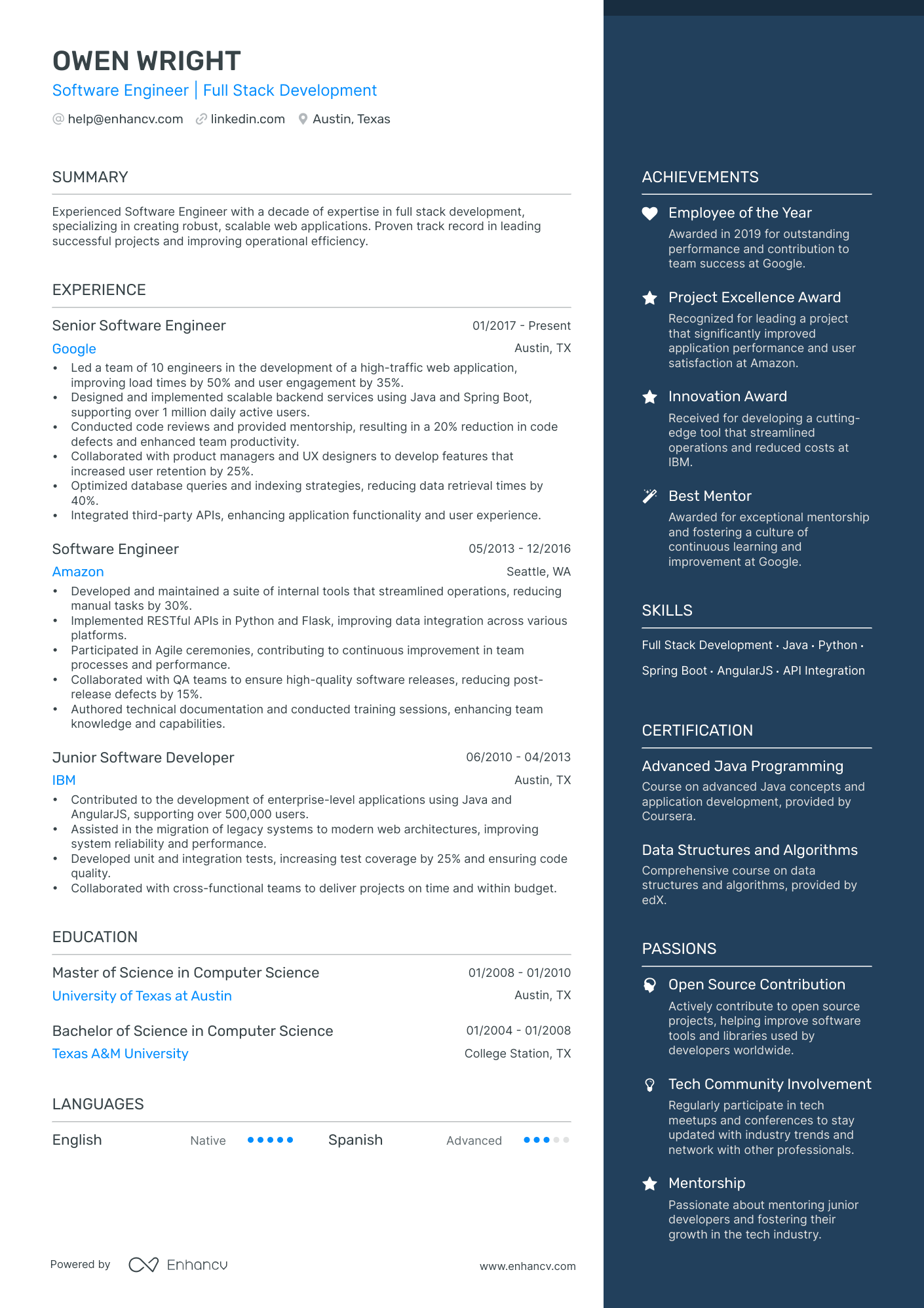
Computer Science
Intern and entry-level resume examples
View all
22Scoring your first job is hard. Put time crafting a resume that shows your willingness to put in the work and that you’re consistent. Show that you have so much to offer, despite little work experience by following our entry-level resume samples.
Law enforcement and emergency service resume examples
View all
12Emphasize on your necessary mental and physical capabilities that are a must. Explore our law enforcement and emergency services resume examples and get the recruiter’s attention with a professional-looking resume.
Legal resume examples
View all
21Choose from our legal resume samples and focus on showing your negotiation and communication skills. Keep the tone formal and professional. Focus on your experience, writing, and communication skills.
Maintenance and repair resume examples
View all
15A deep understanding of building upkeep is complicated enough. Focus on communicating your experience and know-how and let the design and visual to our maintenance and repair resume examples.
Manufacturing and warehousing resume examples
View all
41Create a resume that makes you stand out compared to automation. Show your soft and hard skills highlighting them equally. Choose from a variety of manufacturing and warehousing resume samples and get writing.
Marketing resume examples
View all
69Craft a resume that tells your story with confidence. Focus on the most important aspects of your experience without worrying about the design or formatting. Just choose one of our marketing resume examples below and build your resume!
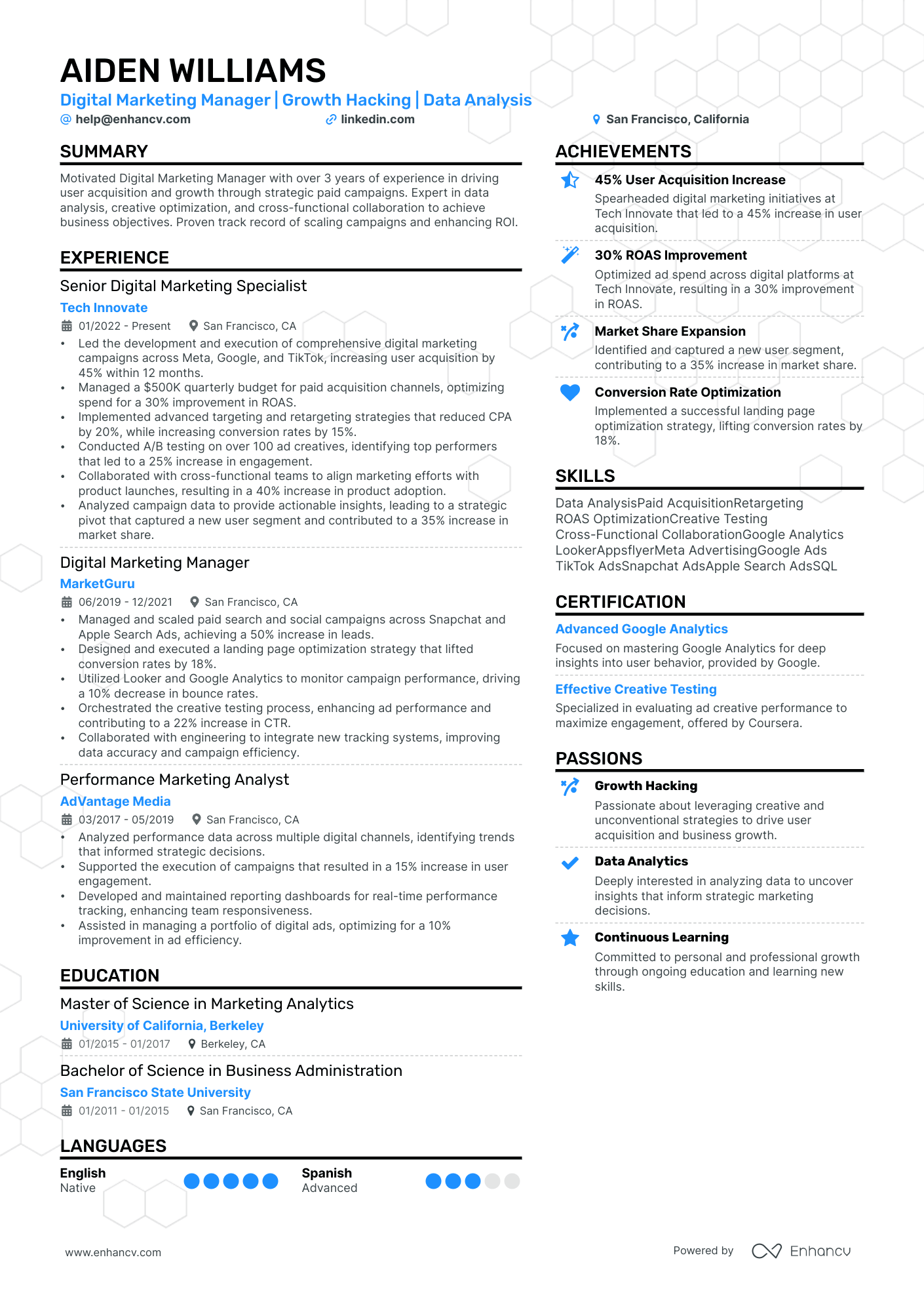
Digital Marketing
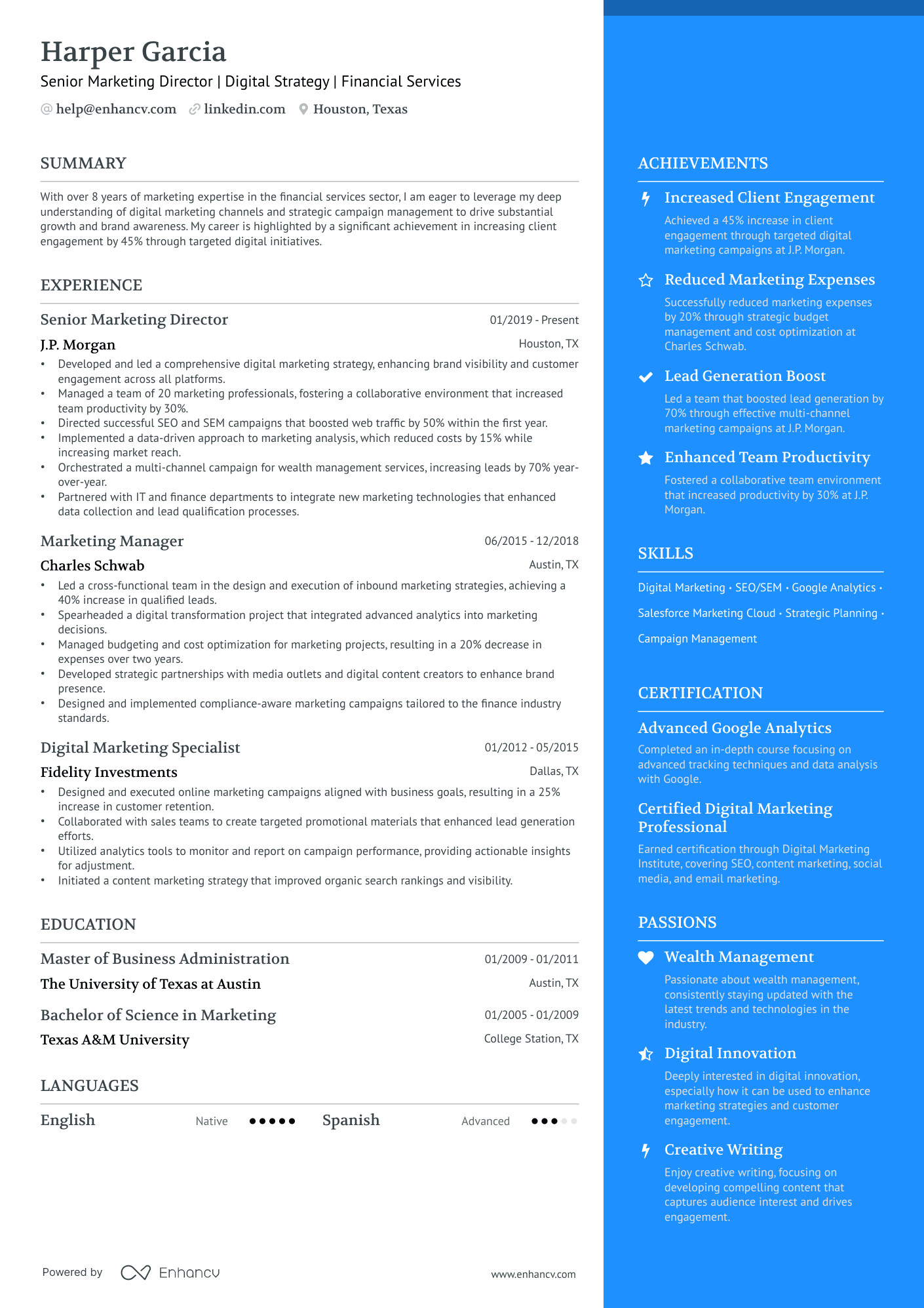
Marketing Director
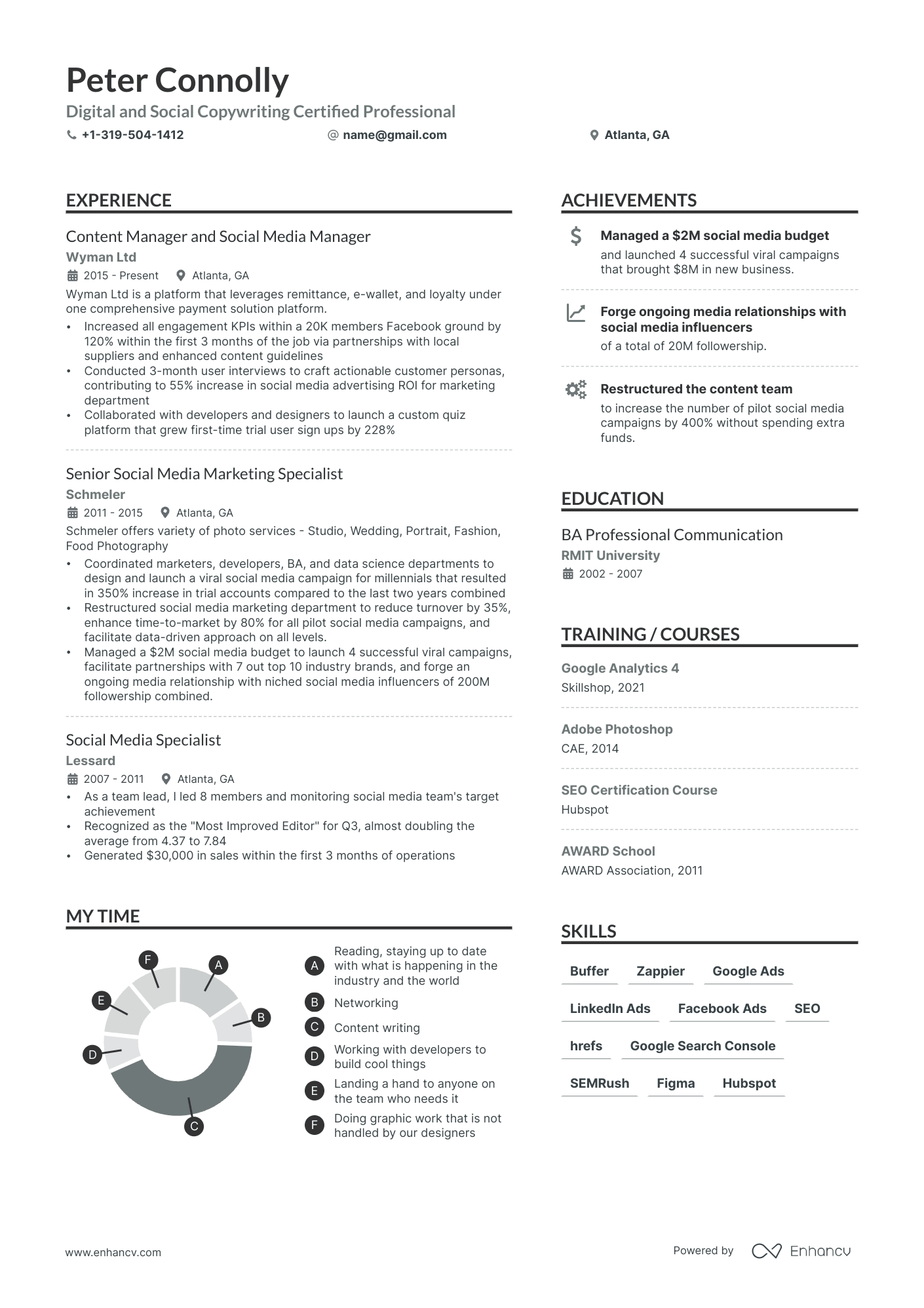
Social Media Manager
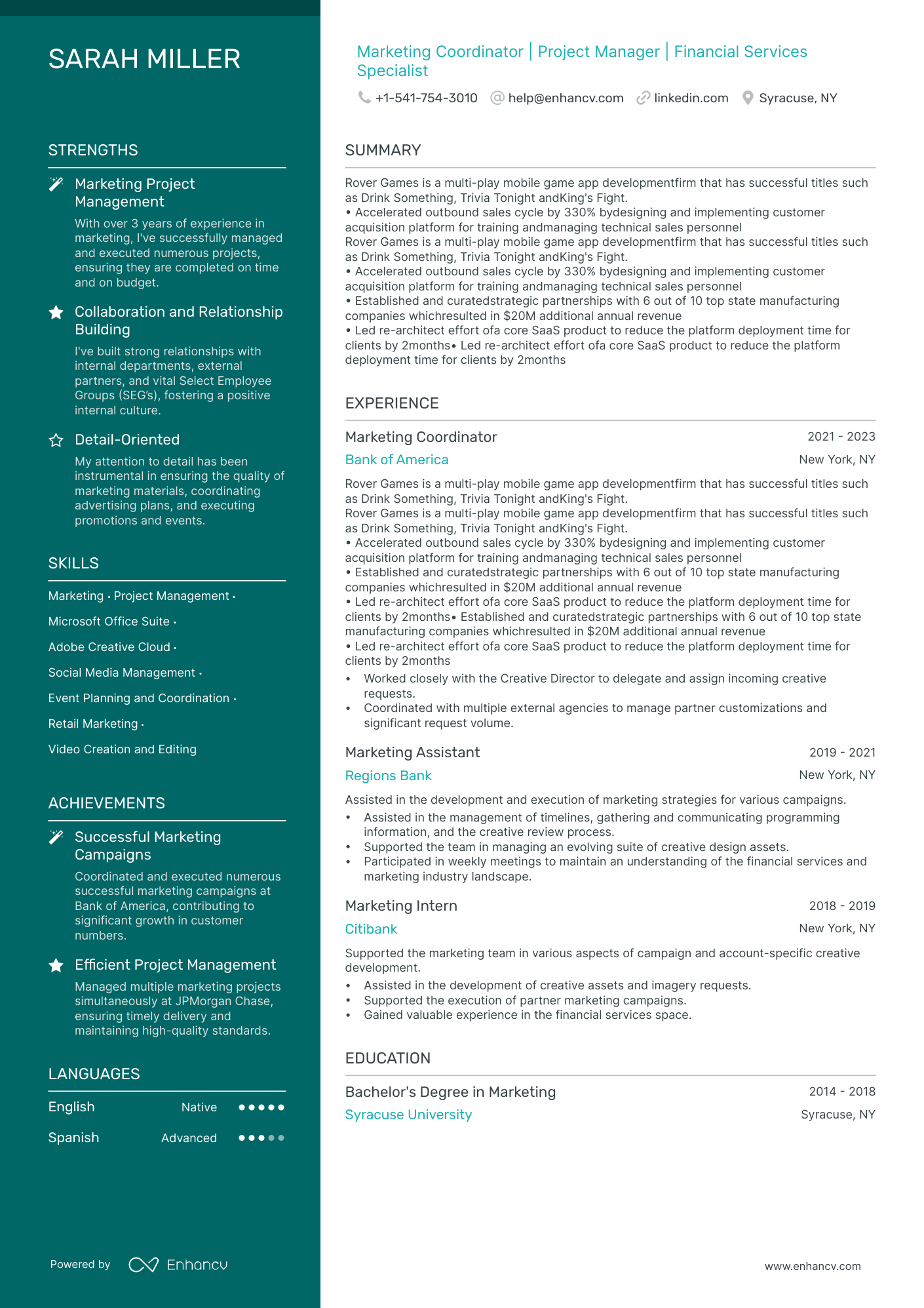
Marketing
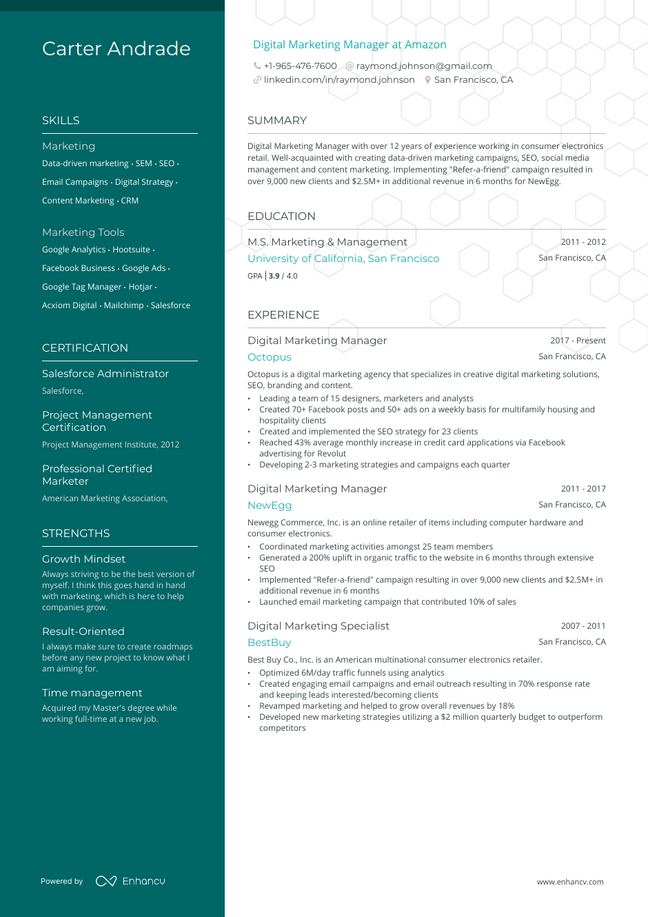
Digital Marketing Manager
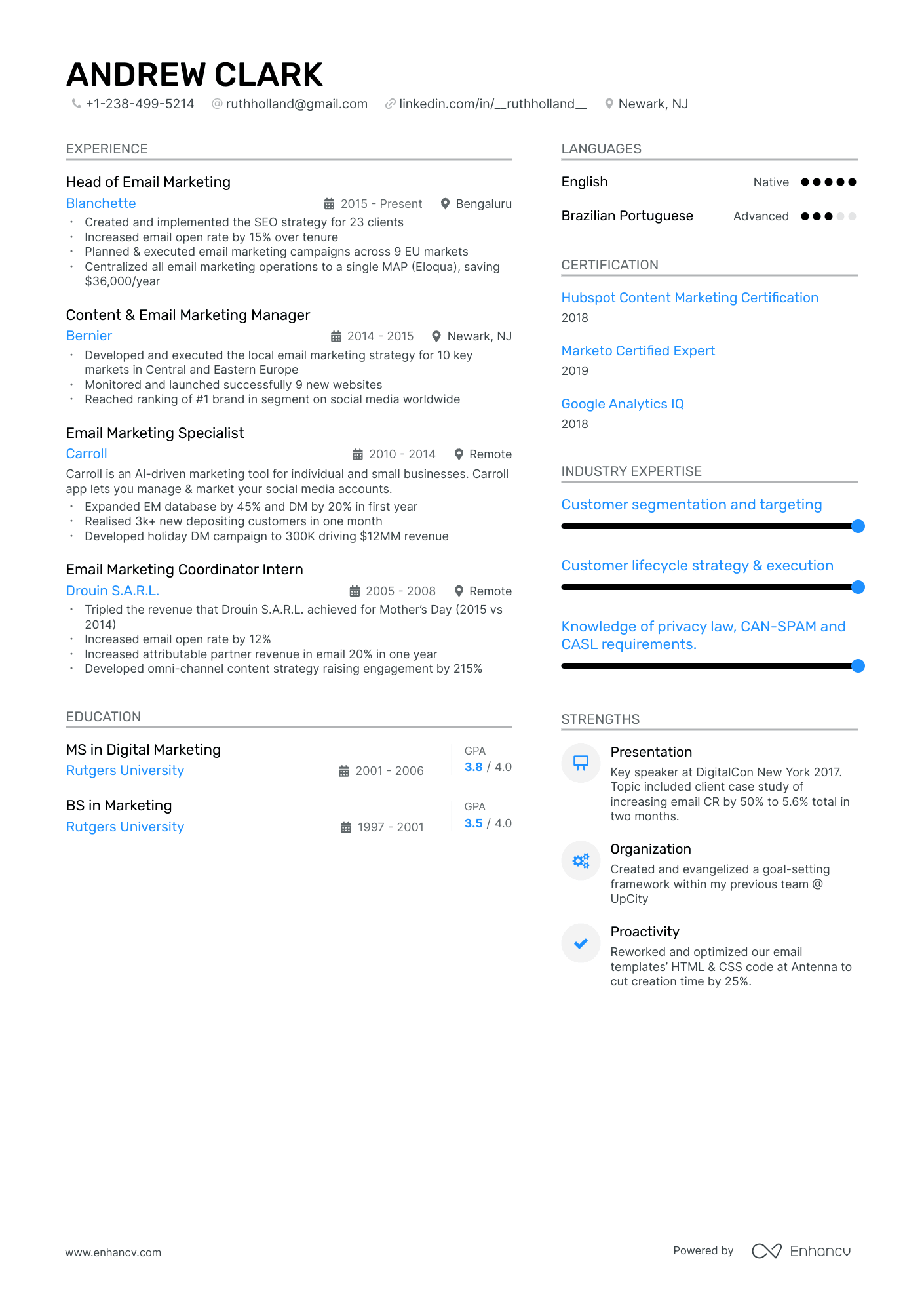
Email Marketing
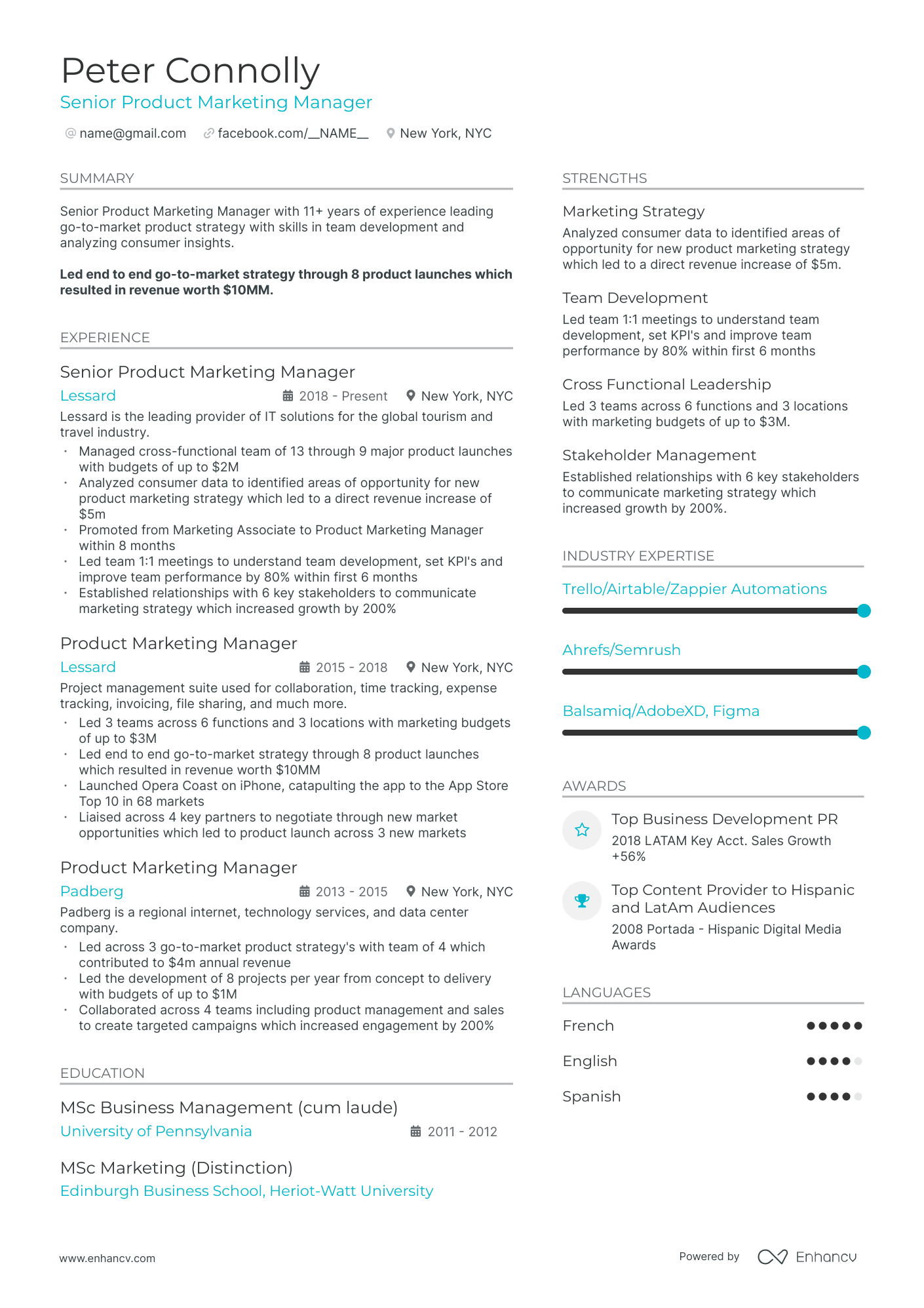
Product Marketing Manager
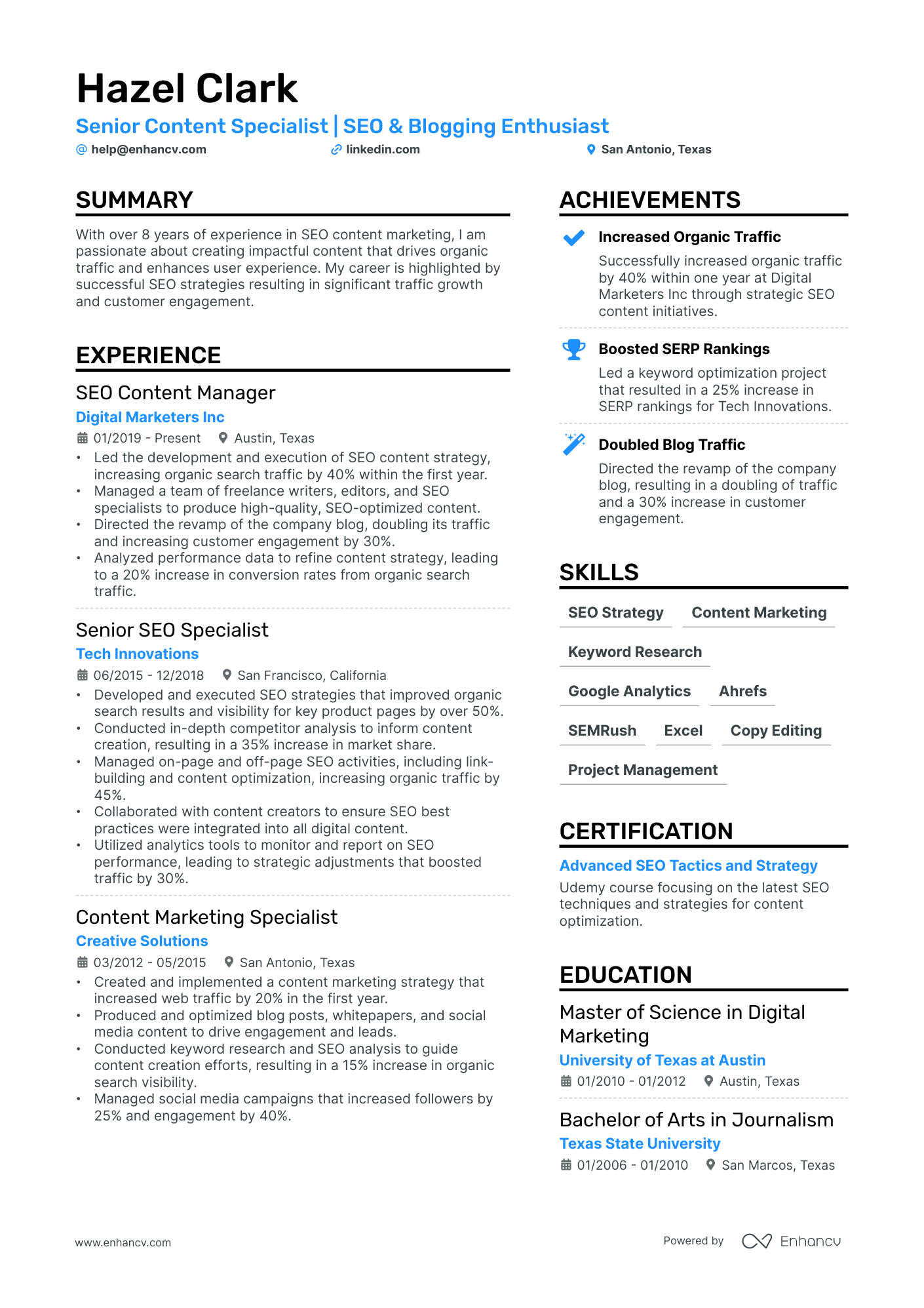
SEO
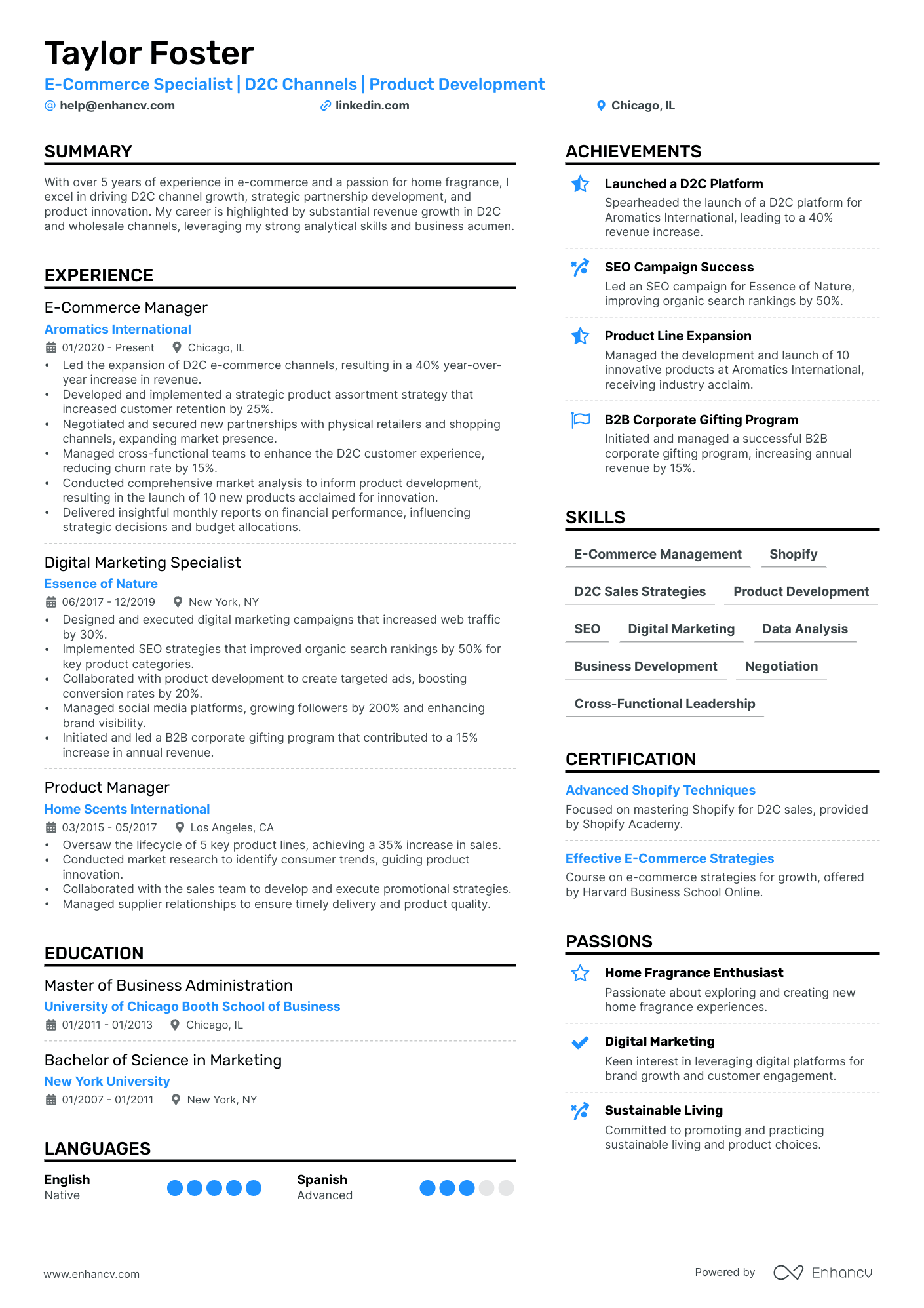
Brand Manager
Nursing, healthcare, and well-being resume examples
View all
97Put your education, certifications, and practical knowledge at the forefront with a proven nursing, healthcare & well-being resume example. Let us do the design and layout work, you focus on writing about yourself.
Office and administration resume examples
View all
37Focus on your organizational and communication skills and choose an office and administration resume example that matches the company culture of the place you are applying at. We’ll handle the looks.
Other resume examples
View all
11Browse from hundreds of resume examples and look into our ever-growing list of resumes, tailored specifically to your industry, following tested resumes that got people hired at Tesla, Spotify, and Microsoft!
Project management resume examples
View all
61Show your time-proven record of turning ideas into projects and then reality on time by following one of our project management resume samples. Choose from a variety of examples used by other people to get their dream PM job.
Real estate resume examples
View all
17Put extra emphasis on your licenses, closed deals and years of experience, and your key expertise. Choose a real estate resume sample that matches the market you operate in and build a resume that represents your professional life.
Sales and retail resume examples
View all
138Spend time explaining your biggest sale wins and the type of products you have experience selling while our resume builder tool takes care of the visual side. Choose a sales resume sample that fits the industry and get started!
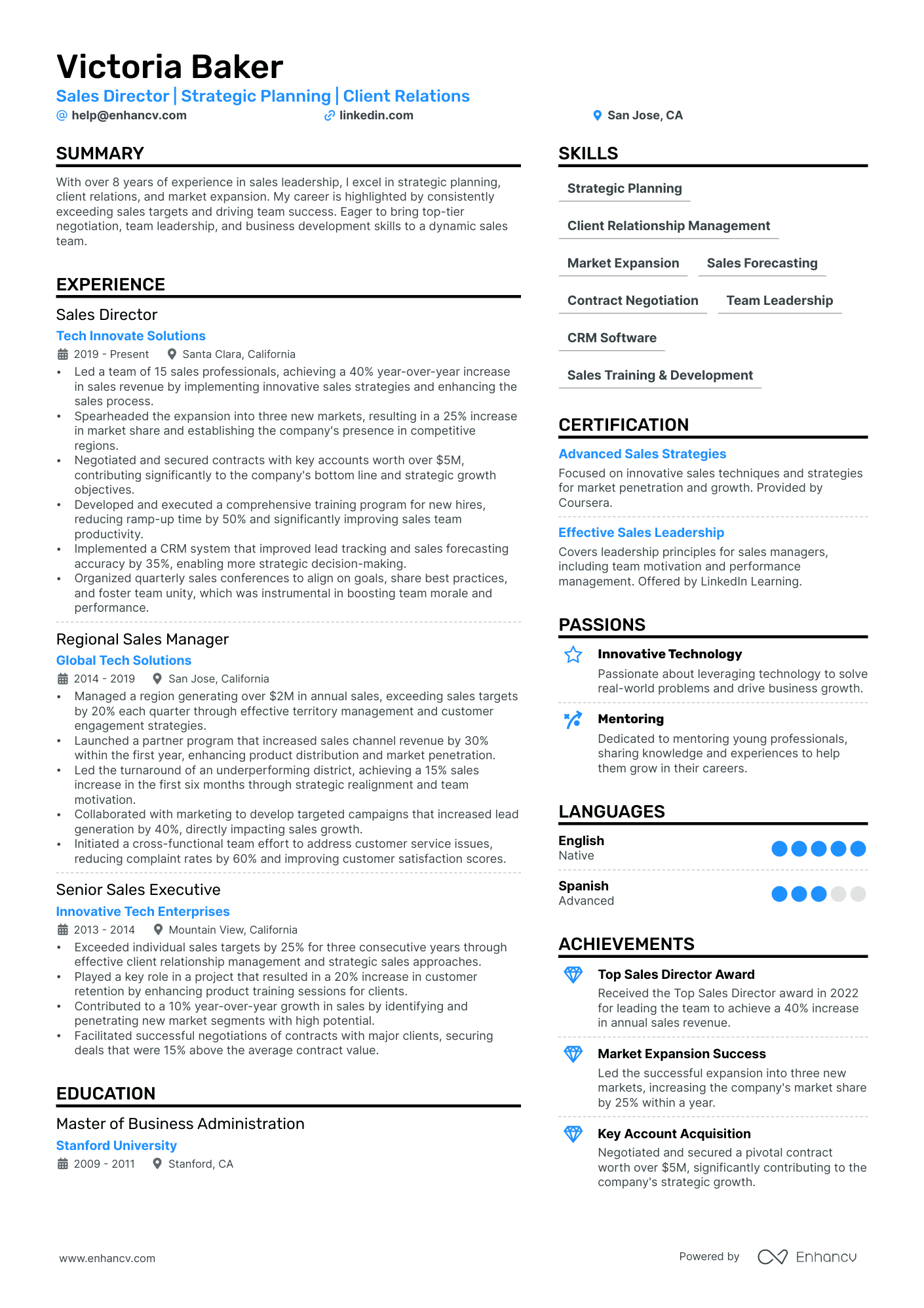
Sales
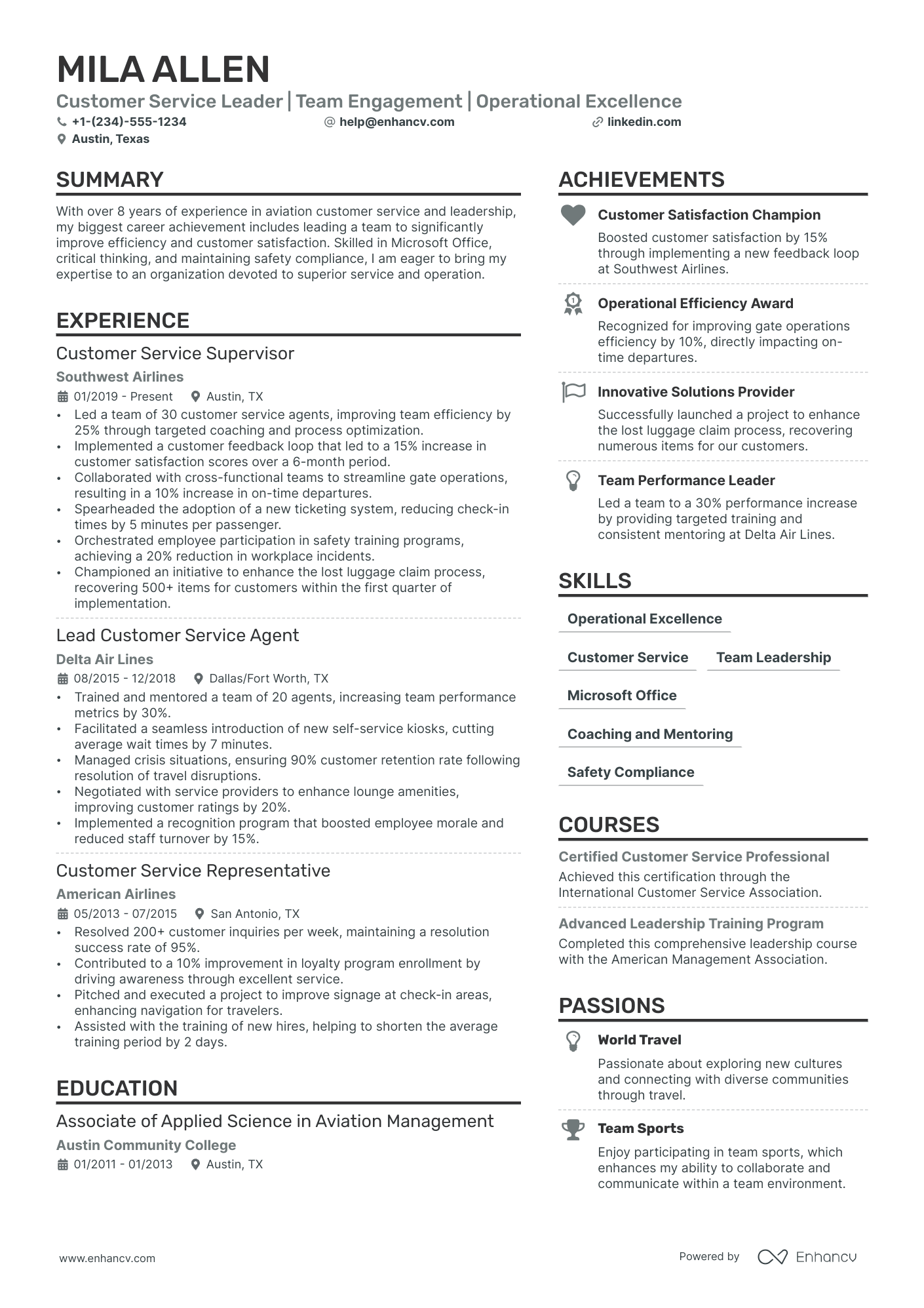
Customer Service
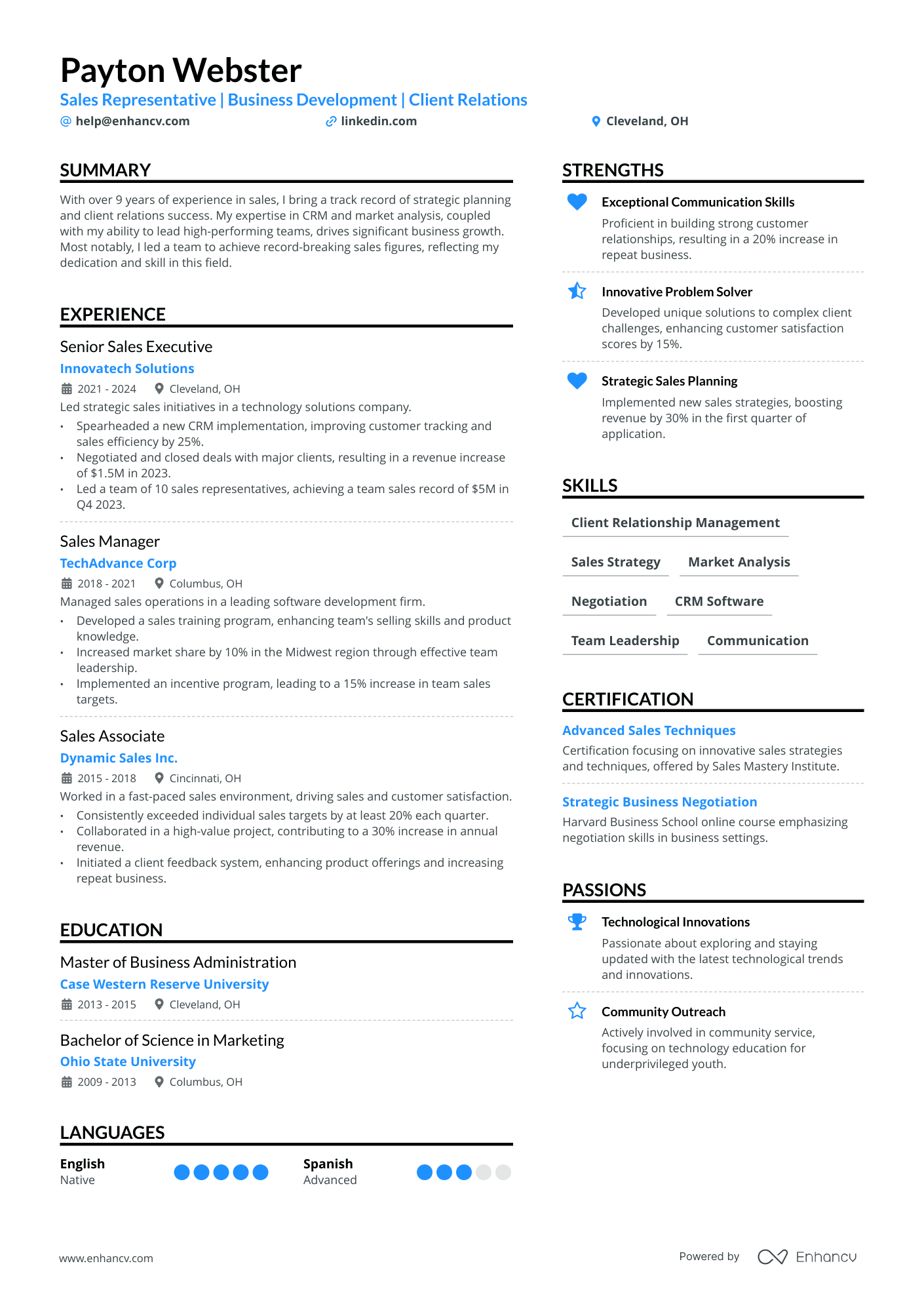
Sales Representative
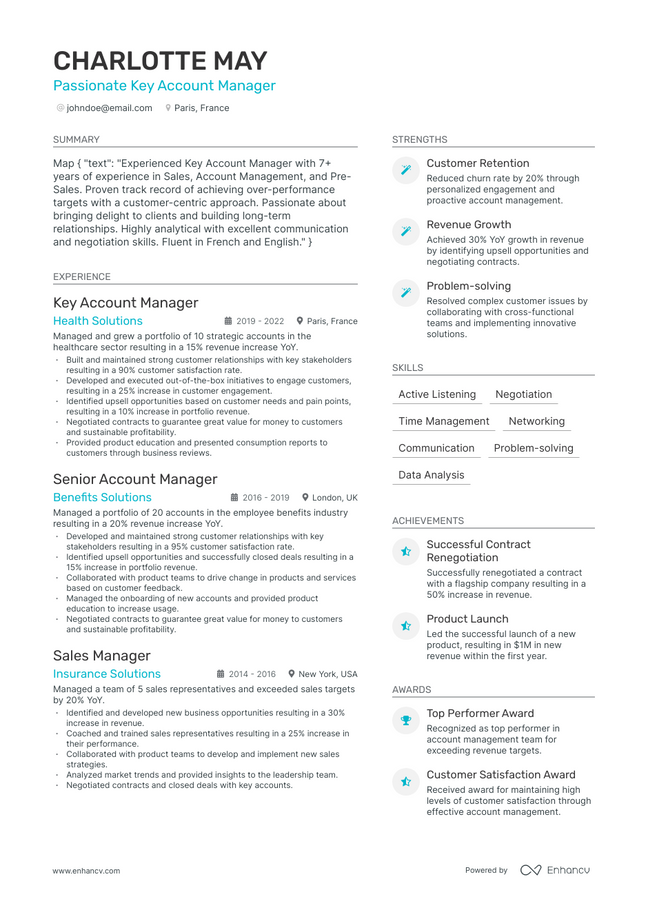
Key Account Manager
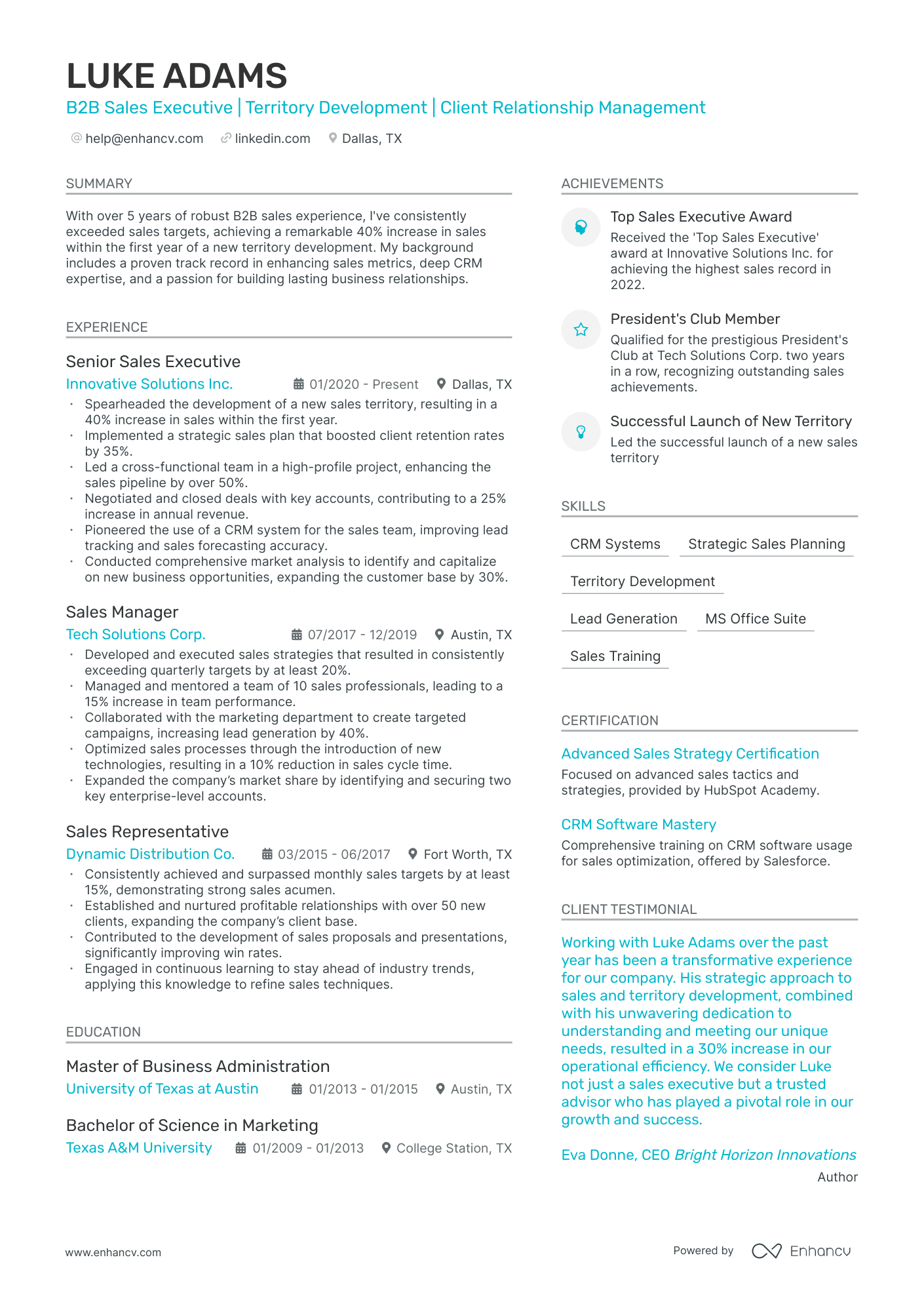
Sales Executive
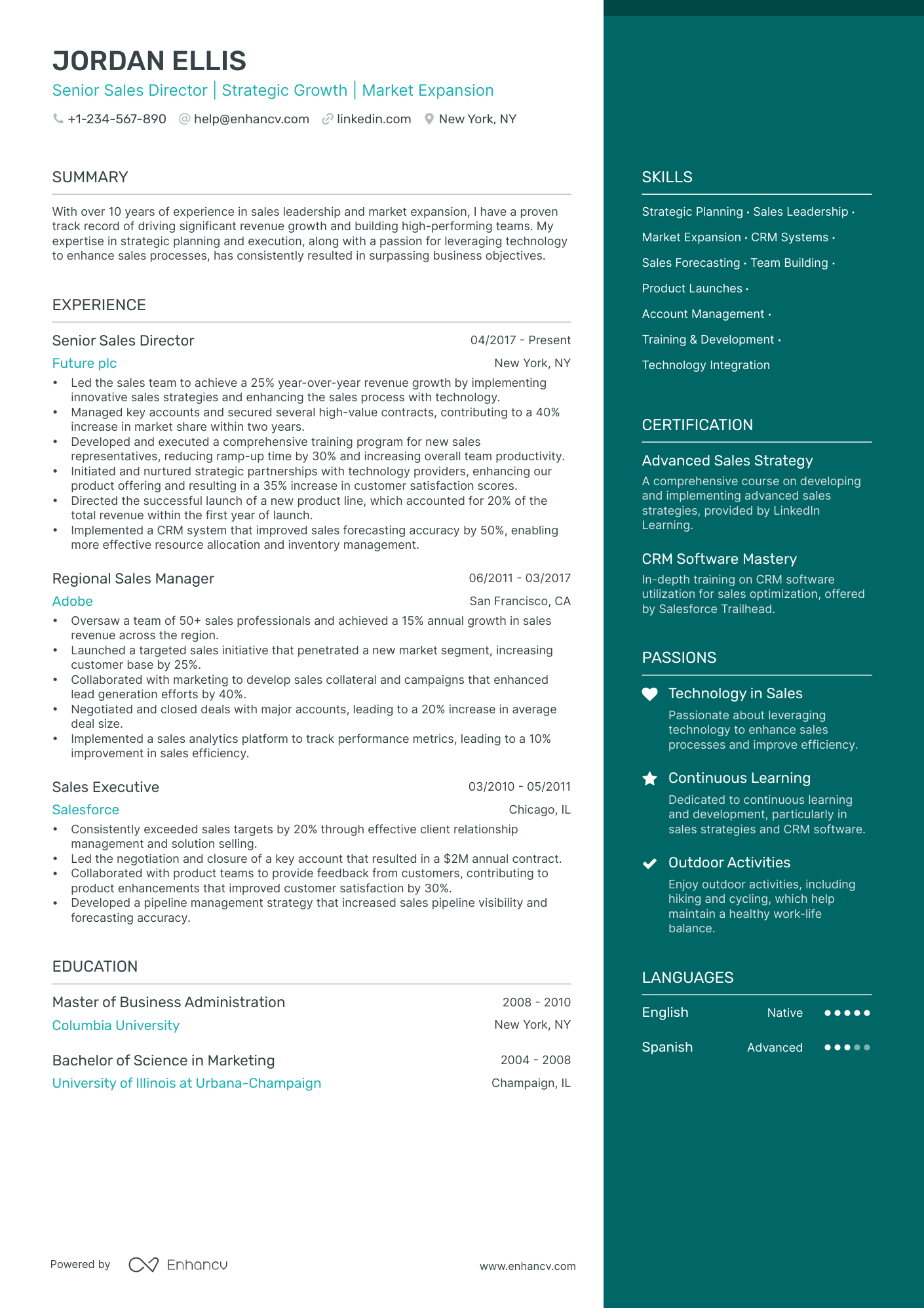
Sales Director
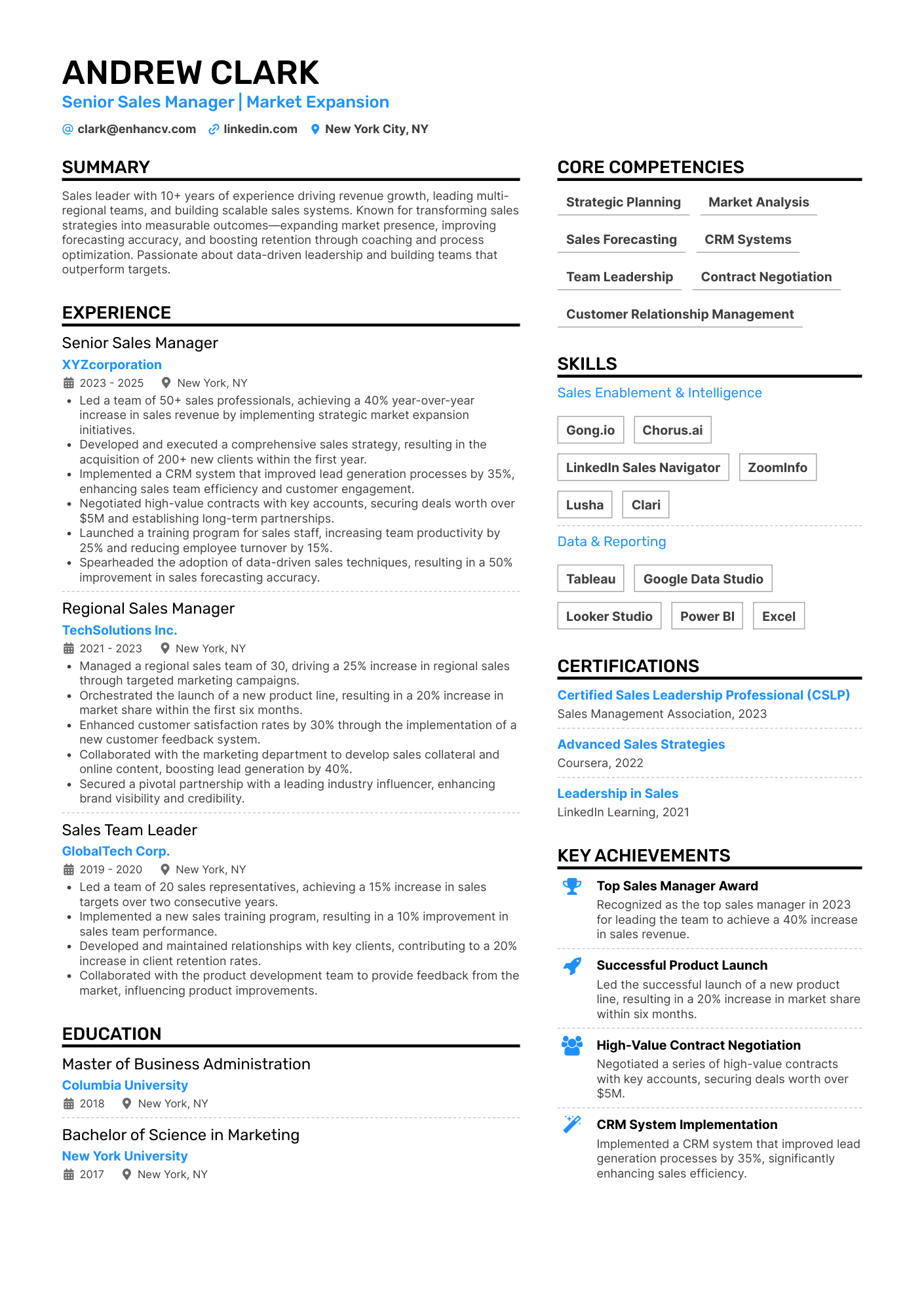
Sales Manager
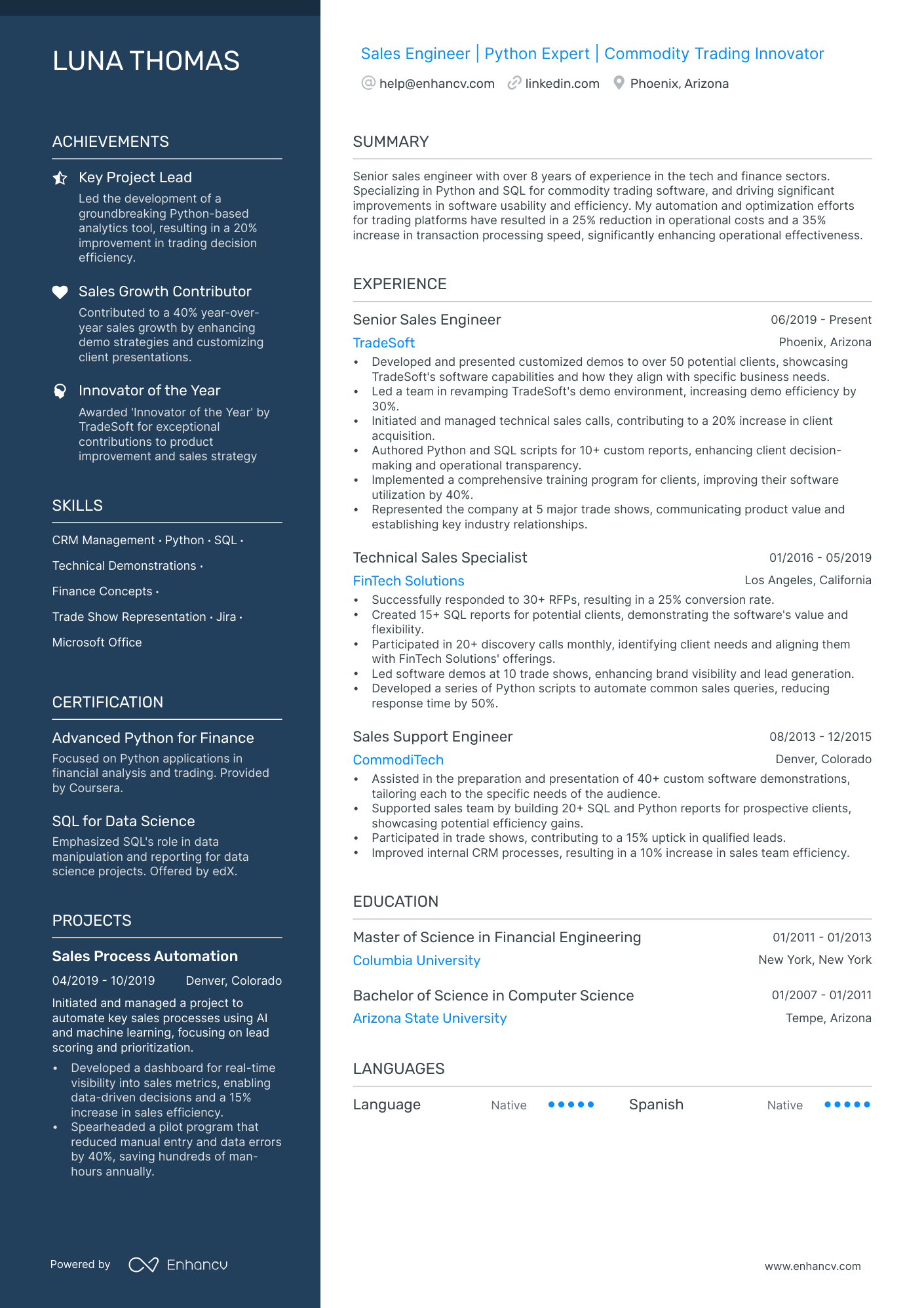
Sales Engineer
Salon and spa resume examples
View all
4Focus on communicating your education, courses, and experience in a straightforward matter. Soft skills play a major role for client relationships in the salon and spa industry. Choose one of our templates and get the job.
Science and research resume examples
View all
14Start with your most recent science endeavor and succinctly focus your main accomplishments. Choose a science resume sample from the list below and make a resume you’re proud of.
Software engineering resume examples
View all
48Pick a software engineer resume sample and focus on your achievements, and how you made an impact throughout your employment history. Build a resume that gets you remembered in minutes.
Sports and recreation resume examples
View all
15Every successful sports and recreation resume sports rich certifications and experience sections. Choose a sports resume sample that fits you and build a resume that you’re proud of!
Teaching and education resume examples
View all
61Successful teacher resumes focusing on showing your full experience paired with a great representation of your impact on the students’ educational progress. Choose one of our teaching and education resume samples and build your resume today.
Travel and transportation resume examples
View all
18Focus on communicating that you’re a reliable professional that can be trusted. Choose a travel and transportation resume sample that beats luck.
Quality assurance resume examples
View all
22Show how good you are at finding problems and focus on making your quality control skills shine. Use our ATS-friendly resumes templates and take advantage of resume sections exclusive to our resume builder.
Frequently asked questions about resume examples
What is a resume example?
Why should I use resume examples?
Using a resume example can help you with that initial writing block. You get a ready-made design and layout template to follow. The only thing that you should focus on is writing a good experience section, including your skills that best fit the job description, and ensuring that you’ve tailored your resume.
What should a resume look like in 2026?
When you’re choosing the design of your resume you have to take into consideration the fact that most resumes have to pass an ATS before a recruiter lays eyes on it.
In almost all cases, using a reverse-chronological resume format should be your first choice. Applicant tracking systems are best at reading that format. Furthermore, hiring managers love it.
How do you write a resume example?
First, we start by picking a format that’s most suitable to the industry you’re applying for. Then we choose a suitable design – this includes font, margins, and backgrounds.
Once we have the basic layout done, we start adding sections that match the company in which you’re looking to get a job – like a resume summary for more traditional industries and a “My Time” section for more creative ones.
Are these the best resume examples for 2026?
We’ve handpicked all of the best-performing resumes across different industries. This includes design, wording, and the different sections that are featured on the resume.
We’ve ensured that you get to see high-quality resume examples that will help you create a quality resume yourself.
How do I adjust these resume examples to my needs?
You can start with an example and go into the Enhancv resume builder. From there you can use the design and layout of the resume of your choosing and re-write it to have your information.
Or, you can explore a few different examples related to your industry and build your resume from scratch using one of our resume templates.
